July 22, 2019
Azores Islands Açores | Our Love Story
I just returned from a once in a lifetime vacation with my mom and my father’s side of the family to the Azores Islands. No children! I have never been away from Farmer J or my children for this amount of time. We spent ten days in the Azores with two of my aunts, their husbands, a cousin, and her boyfriend. We traveled to the islands of Terceira, Faial, Pico, and Sao Miguel. My top favorite islands were Terceira and Sao Miguel.
If you ever travel to the Azores Islands and the weather calls for a high of 76* and a low of 62*, do not do like I did and bring a suitcase half full of winter clothes and half full of summer clothes. A temperature of 76* in the Azores feels like 95* in Chico, California; and the sun feels like it is directly beating down on you. If you are too cold, you can always purchase a blanket or pants while on vacation. I only used one light sweatshirt during our overnight in the Boston, Massachusetts, airport.
We traveled to the island of Terceira first. We stayed at the Atlantida Mar Hotel where we could enjoy the view of the pool or the ocean all by turning our chair around. Amigo Taxi with Hildeberto was our tour guide for a full-day tour of the island. During the full-day tour, we saw the countryside that looked like a patchwork quilt and a location given the name of Two Rocks (a rock in the ocean split into two.) This is one location where I would love to live! Hildaberto even brought us to his residence to enjoy a glass of port on his front patio! He extended our full-day tour by researching where the bull flight was that evening, and he got us premiere and safe seating on a local’s front porch. The ladies sat on the lower section of the porch, while the gentlemen took the higher tier of the porch. We spent an afternoon shopping in Angra. Tip: Eat where the tour guide suggests!
Did you know that the first settlers brought cattle to the island, and they left them there for nine years? The settlers then returned to see if the cattle were still alive.
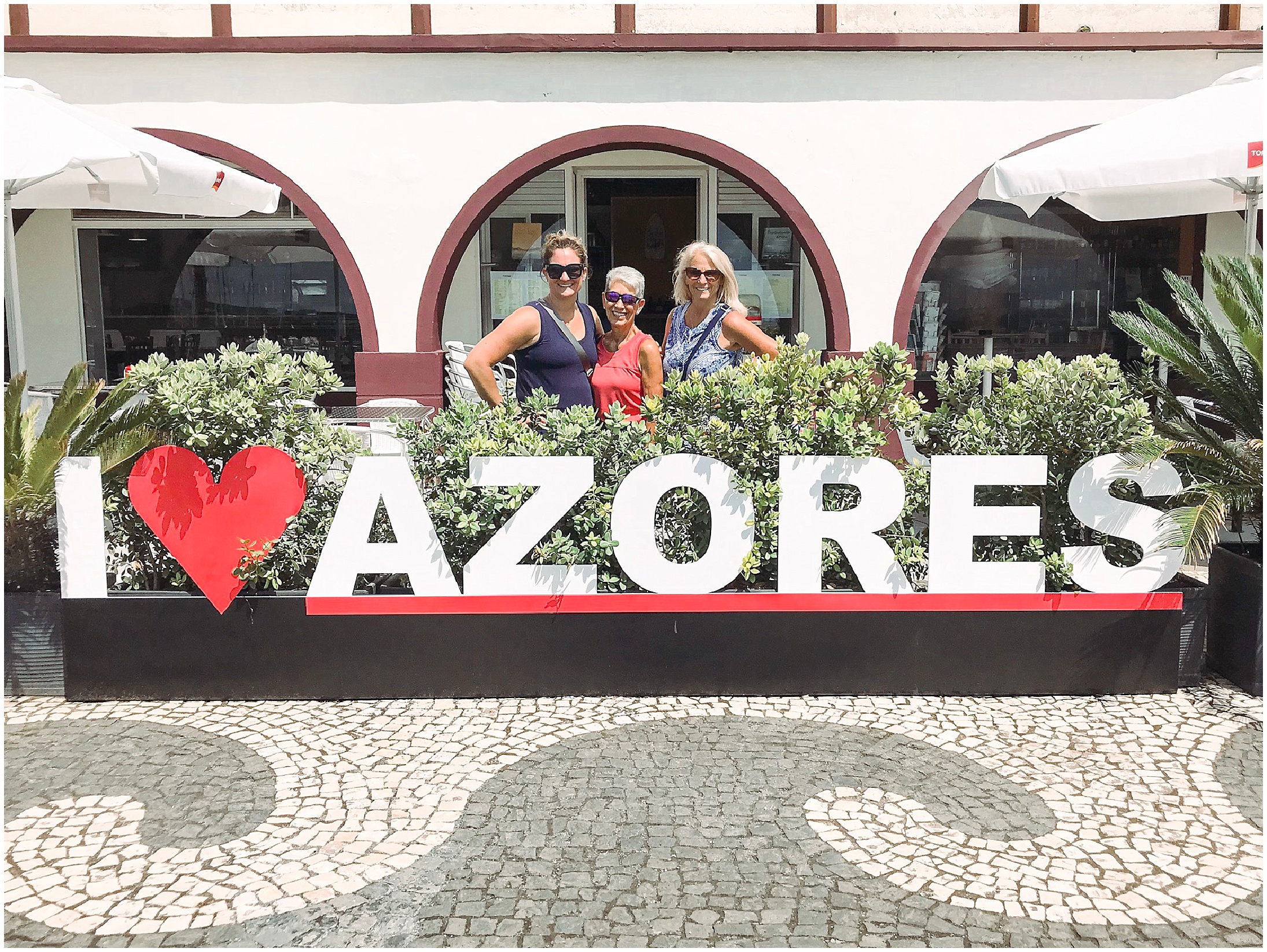
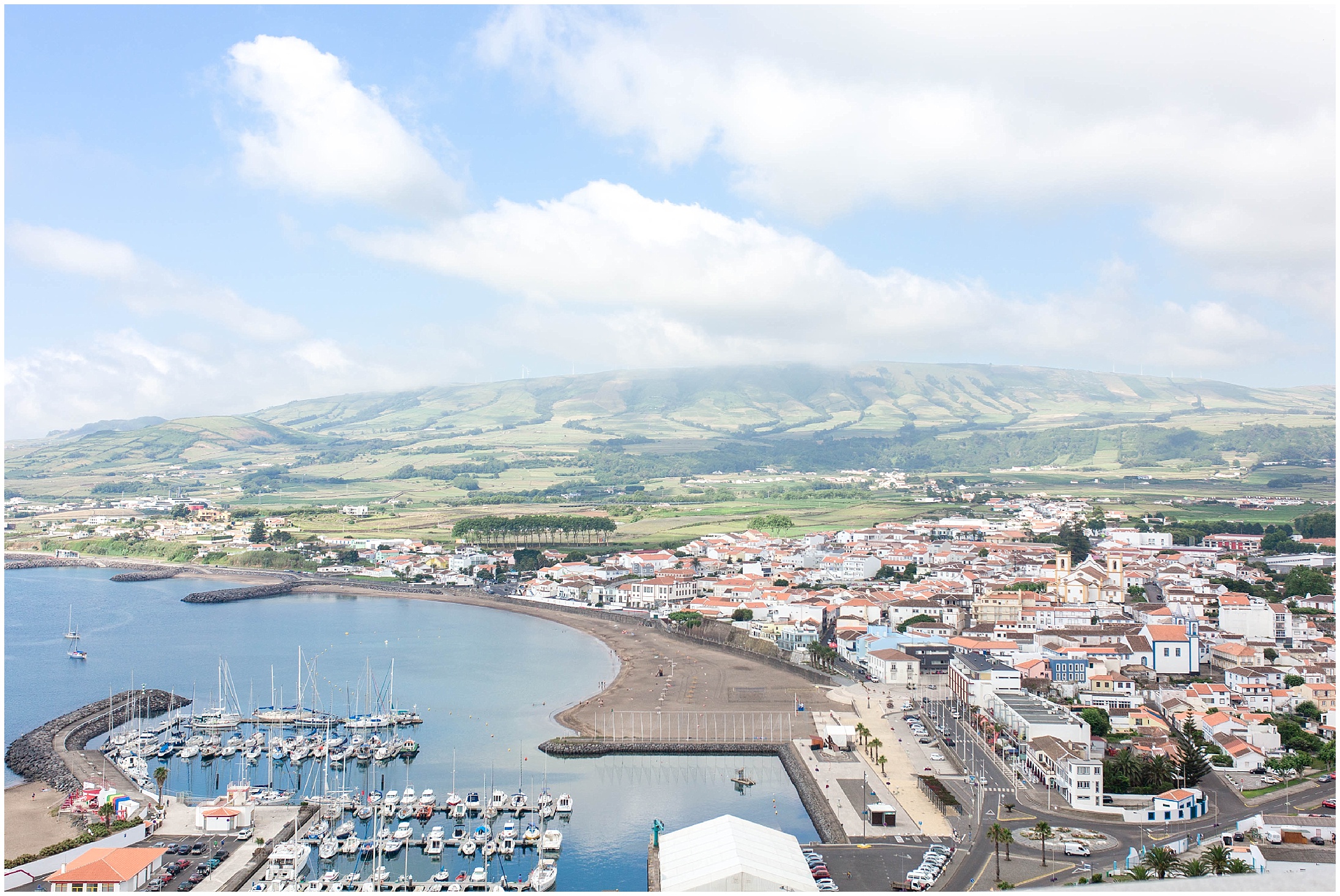
Lots of hiking on cross back trails and stairs to reach this view! This is the Praia Da Vitoria.
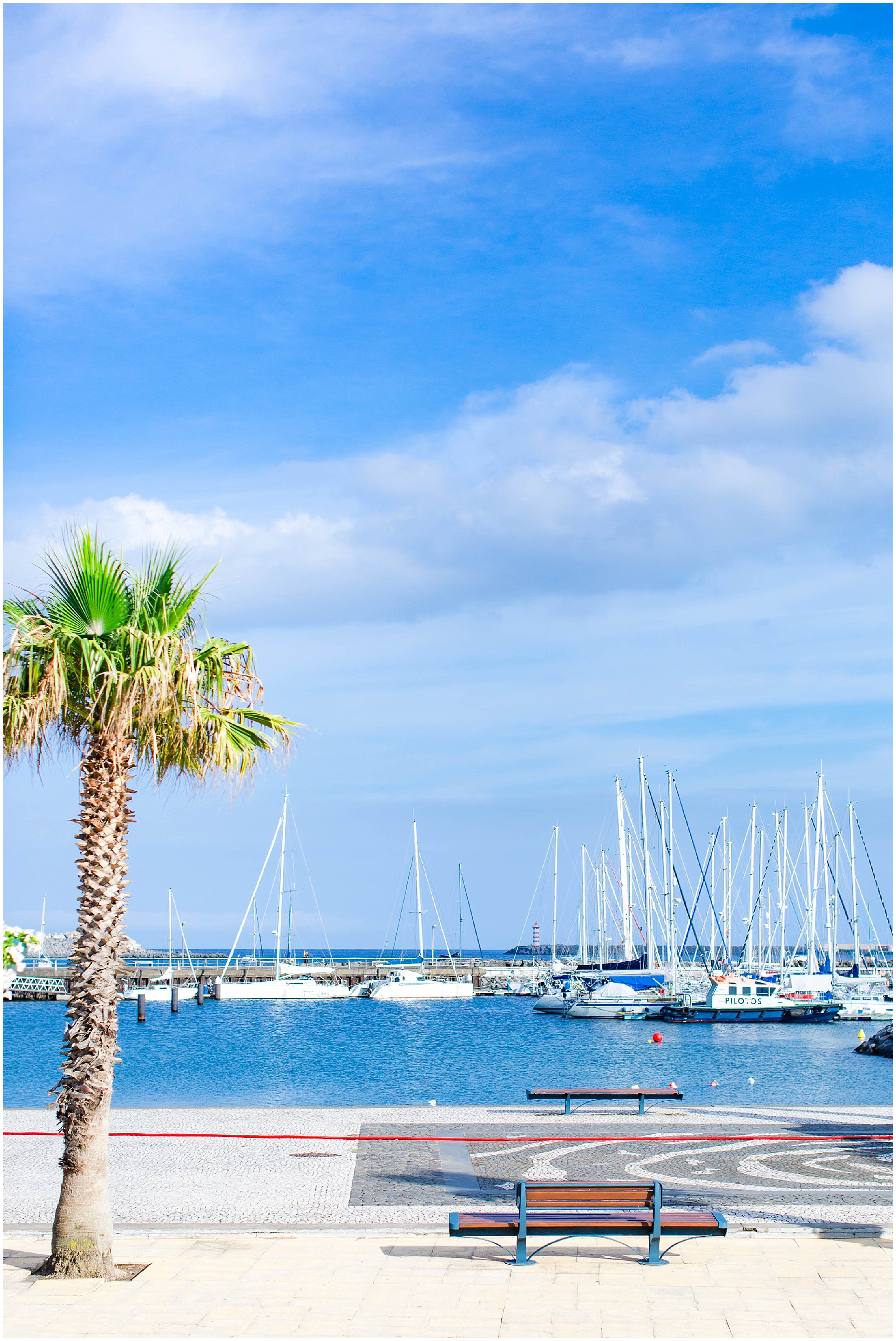
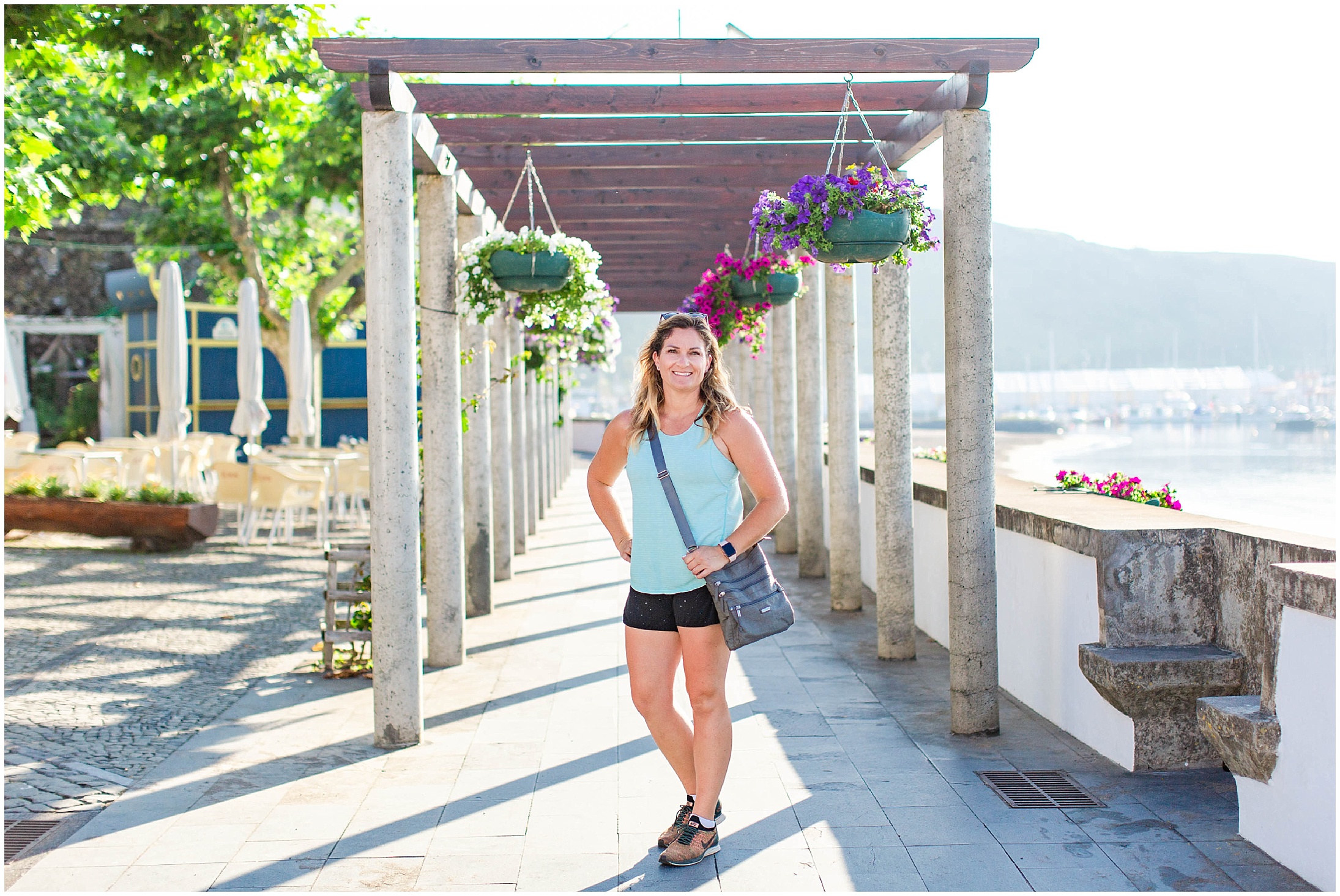
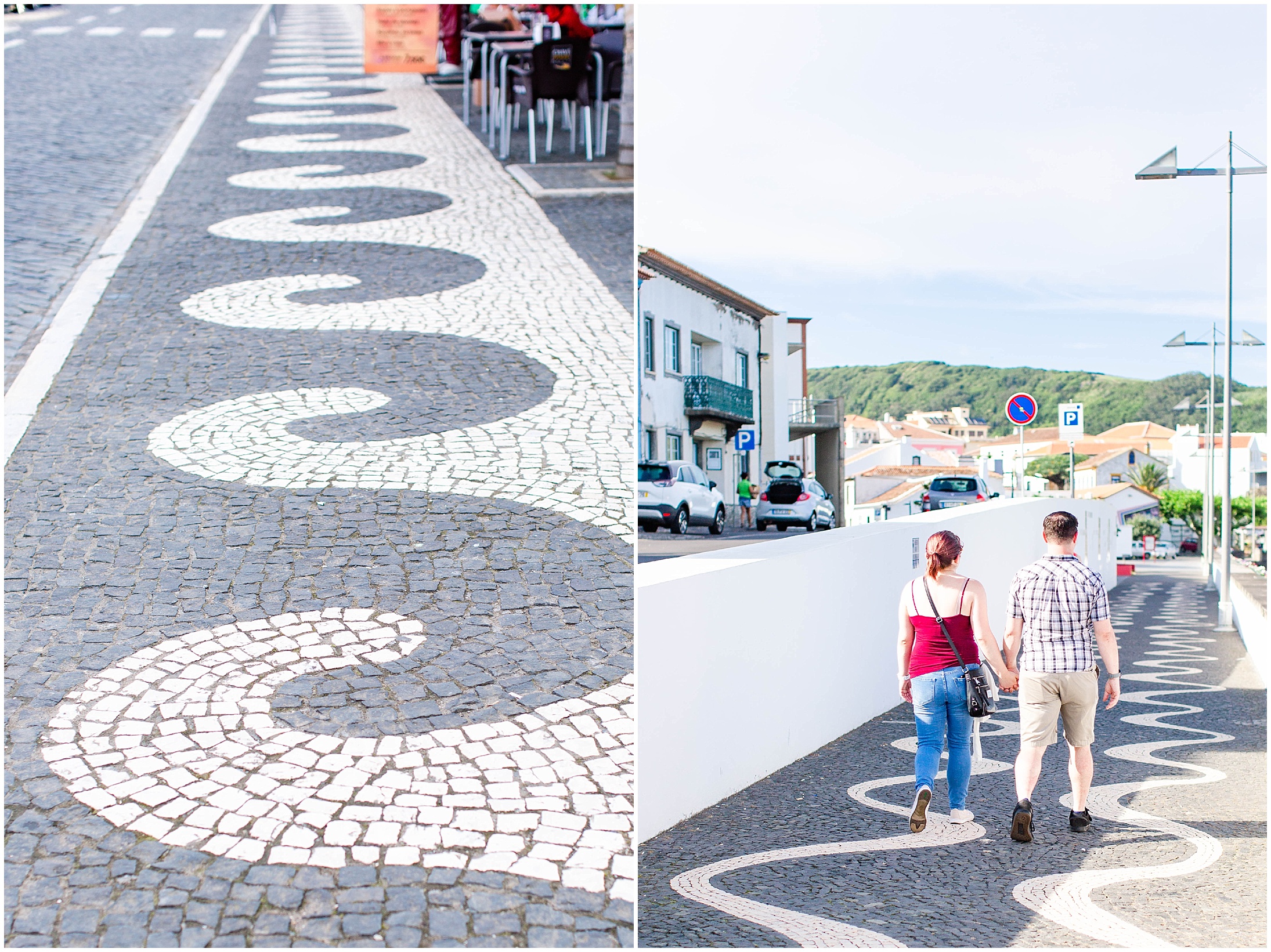
Patterned cobblestones cover all the sidewalks, and cobblestone roads are common in the towns as well.
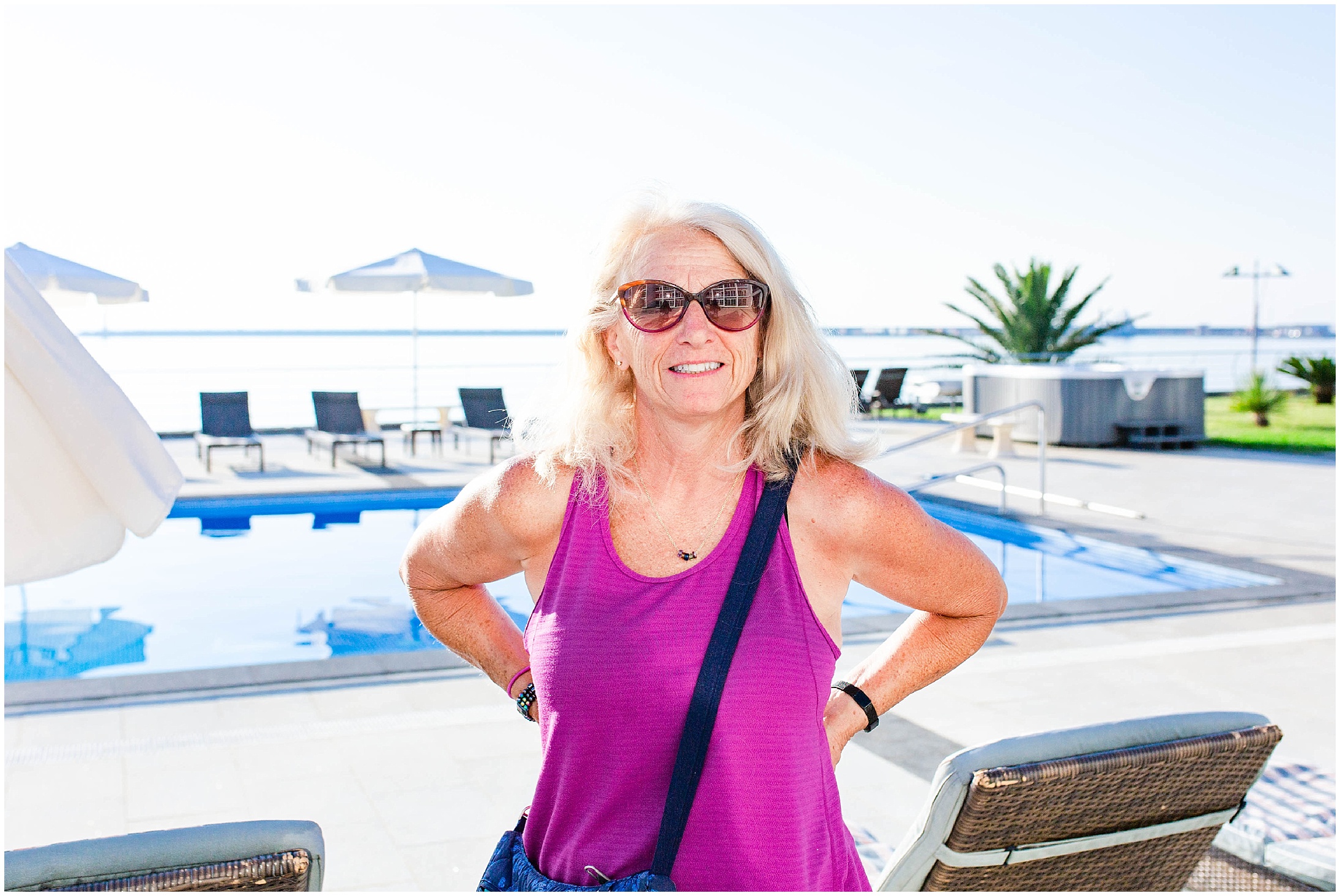
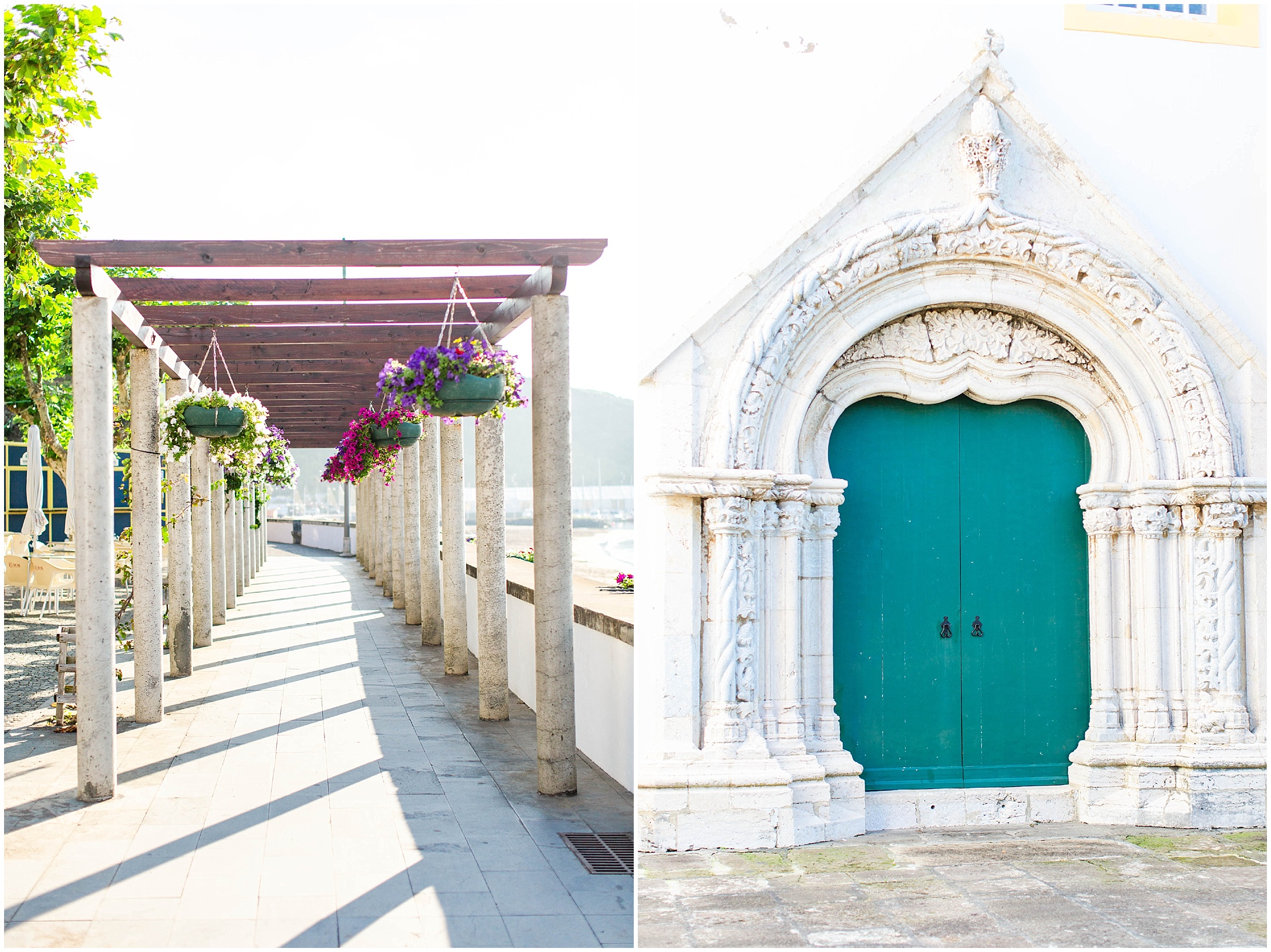
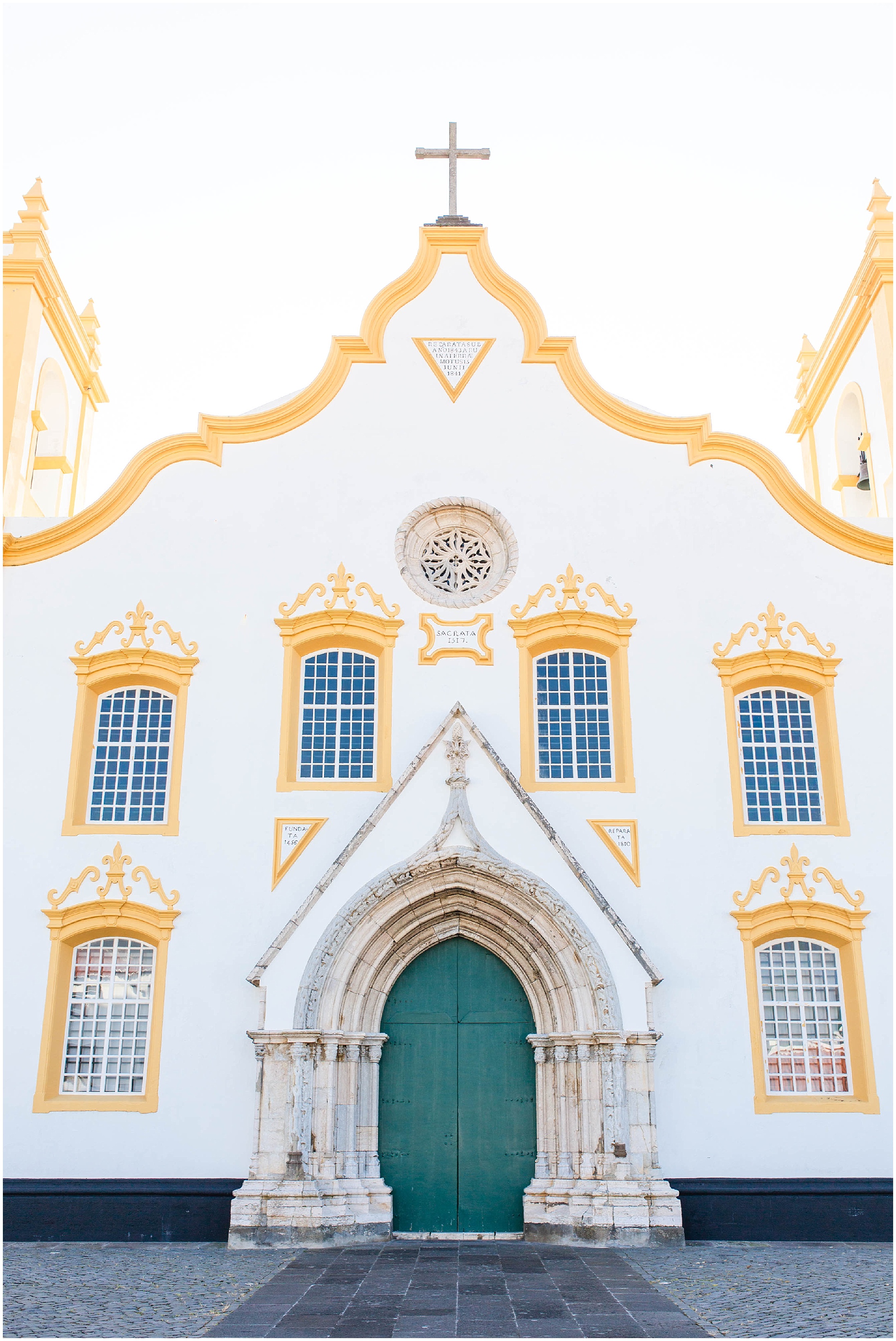
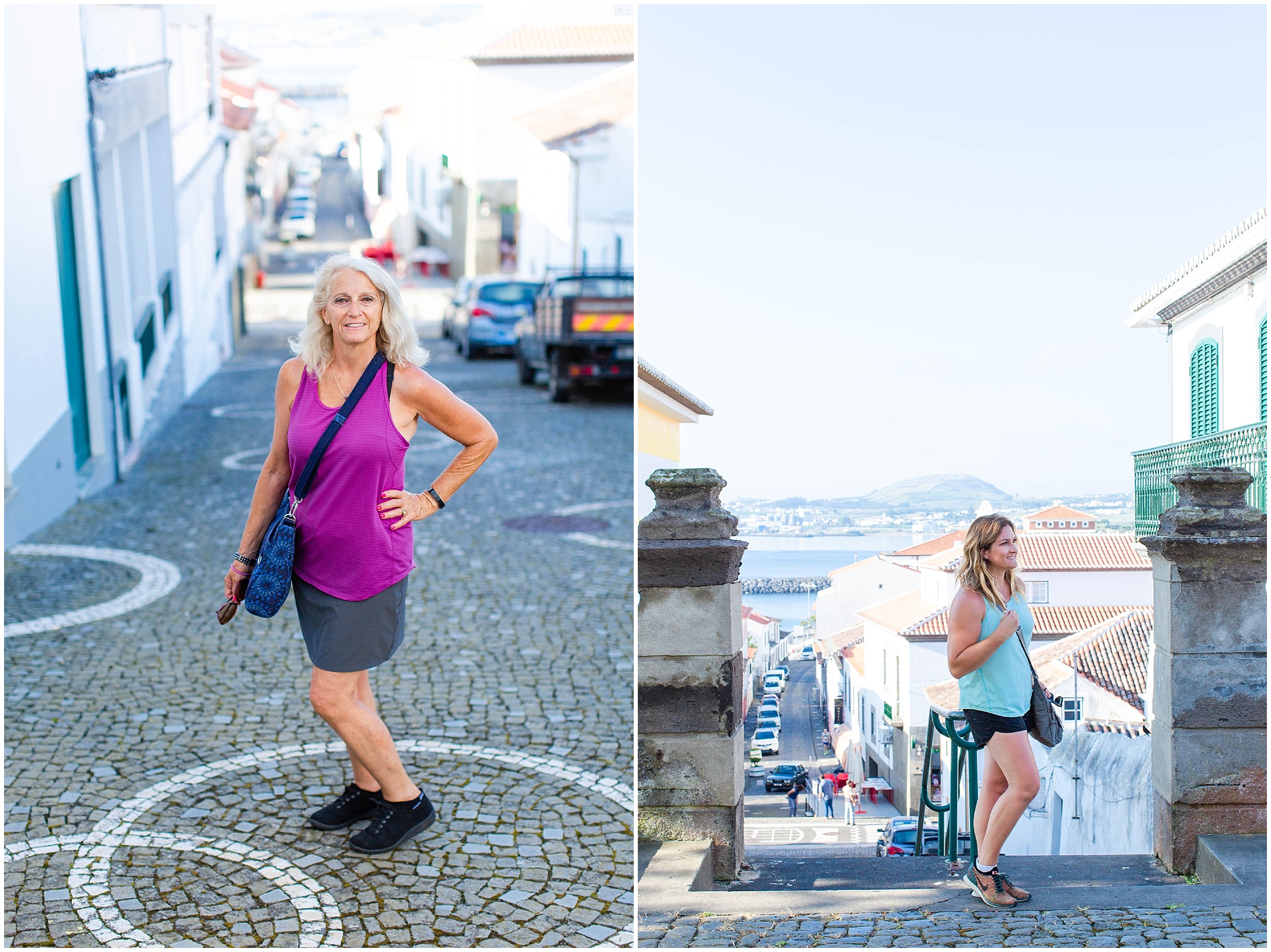
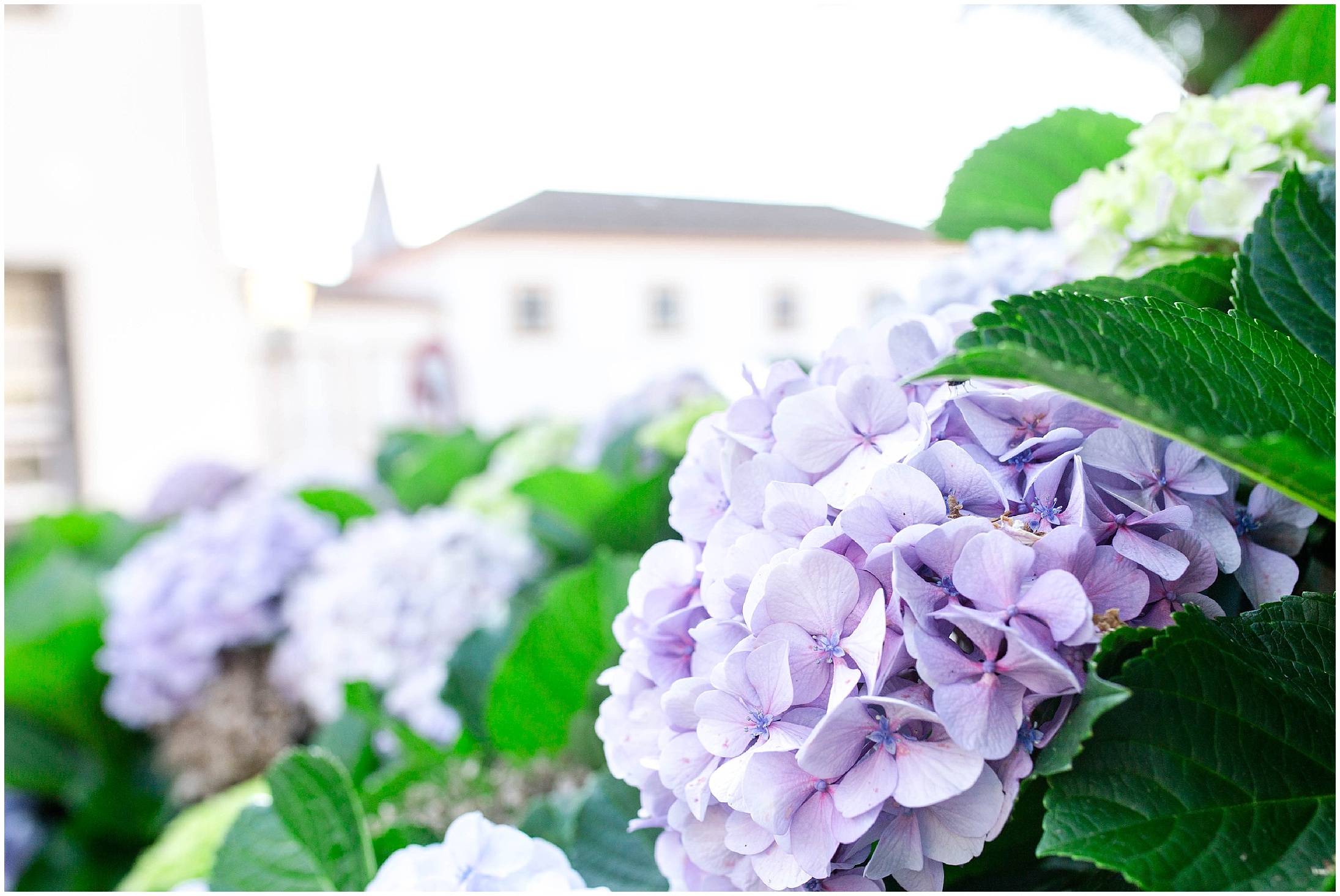
Hydrangeas line the hillsides and the roads on all four of the islands we visited.
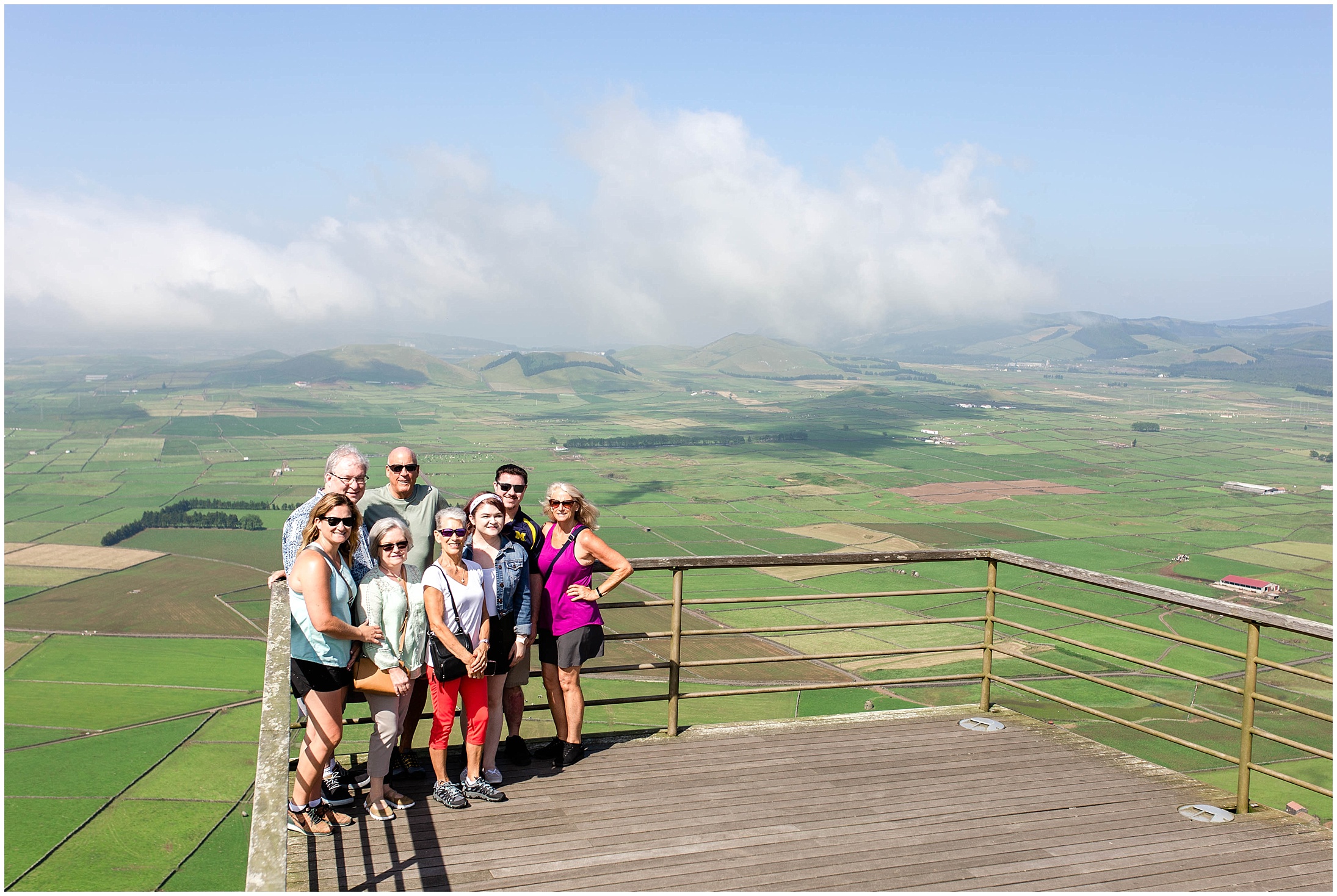
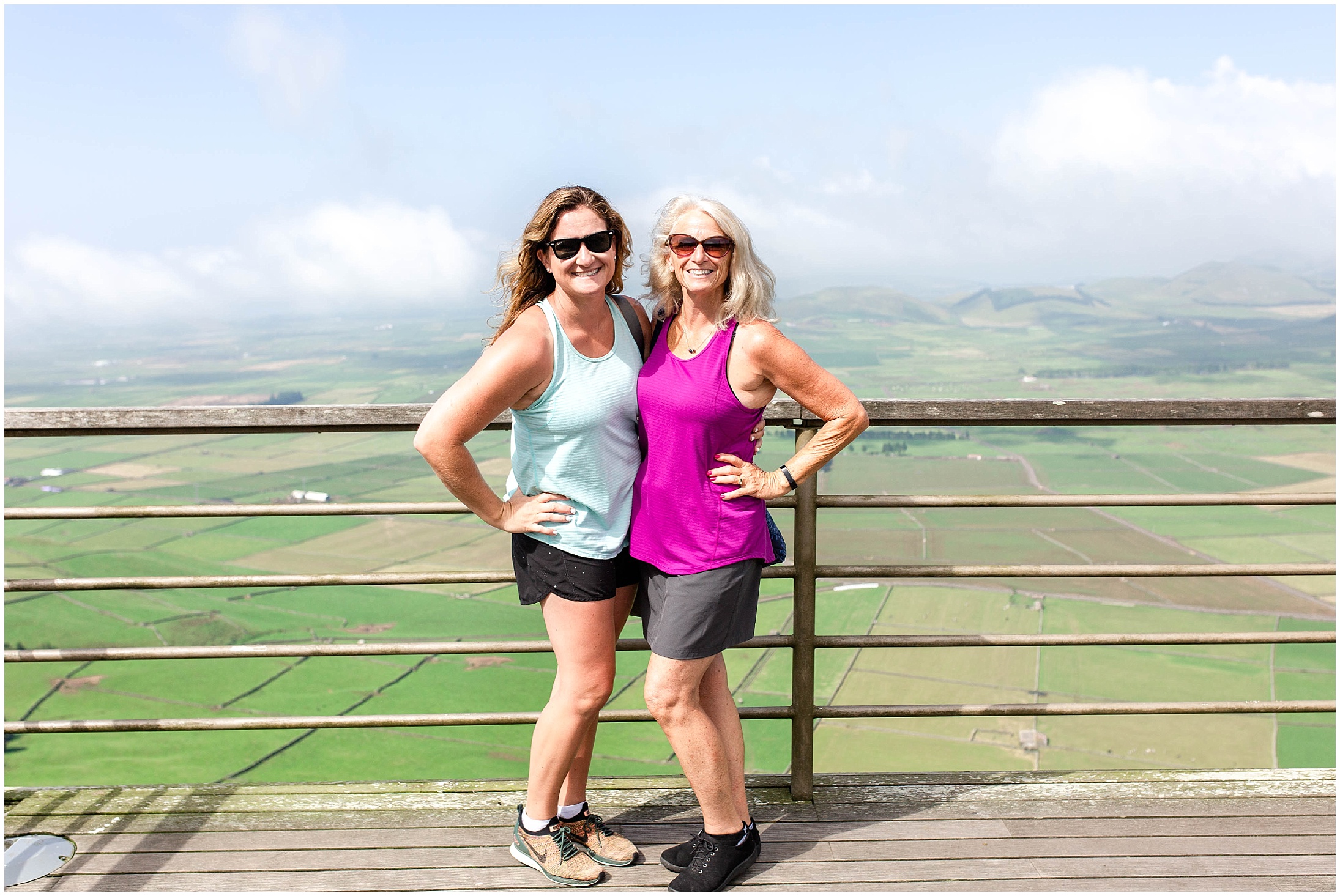
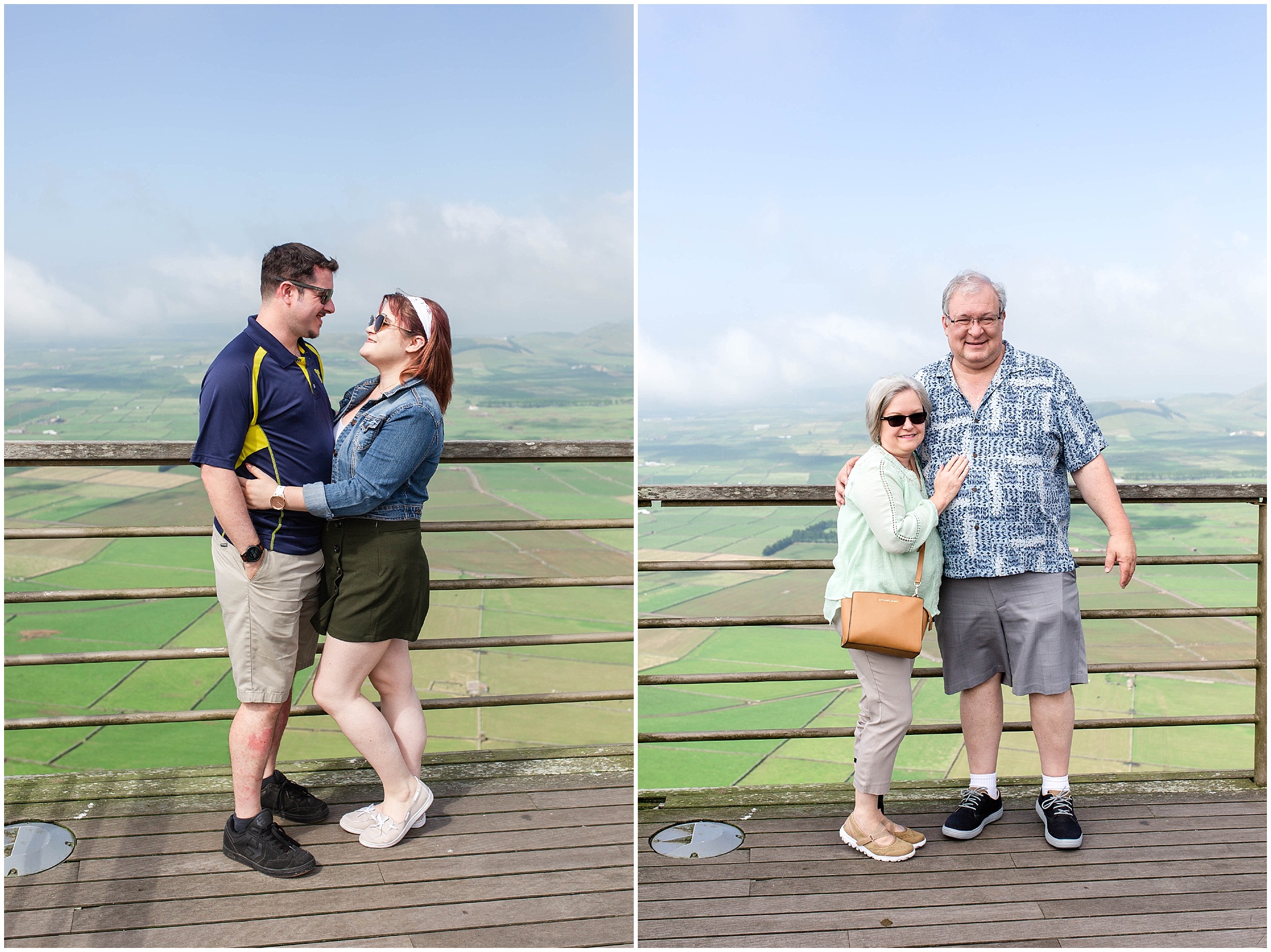
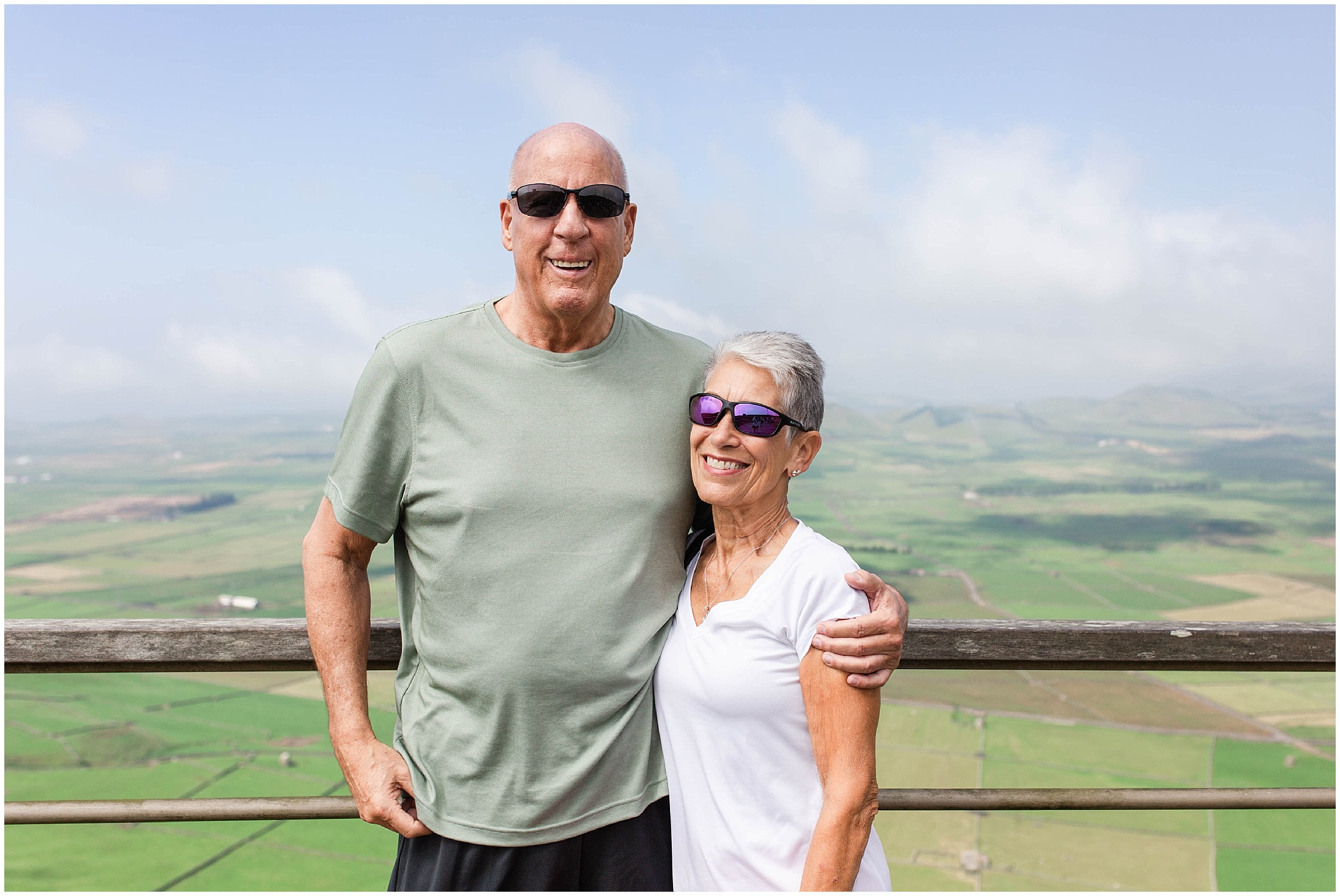
Quilted countryside on the island of Terceira. Our tour guide, Hildeberto, was an expert with the camera which allowed me to get into the group pictures!
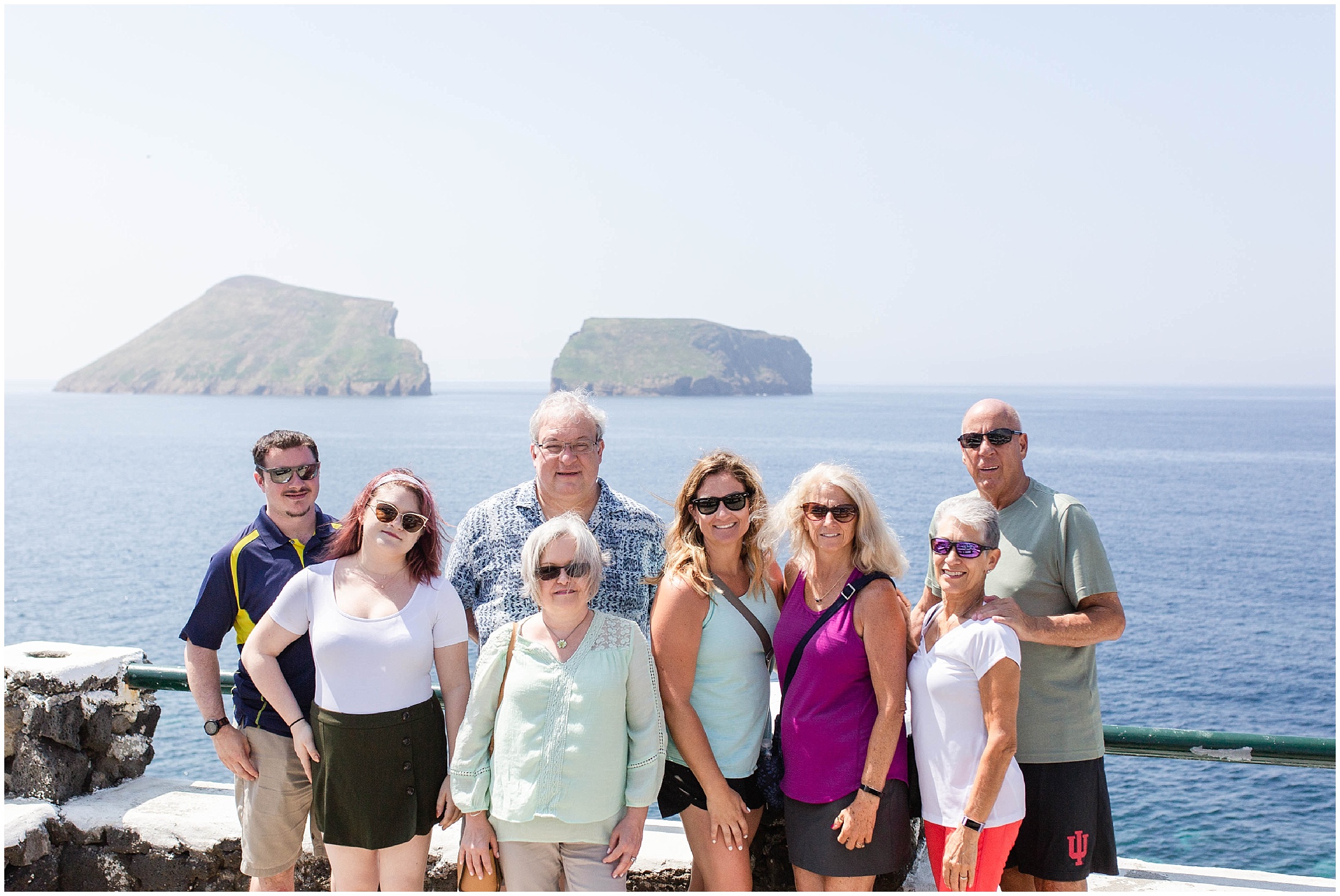
Two Rocks! I could see myself living in this part of the island. It would be a dream to live here.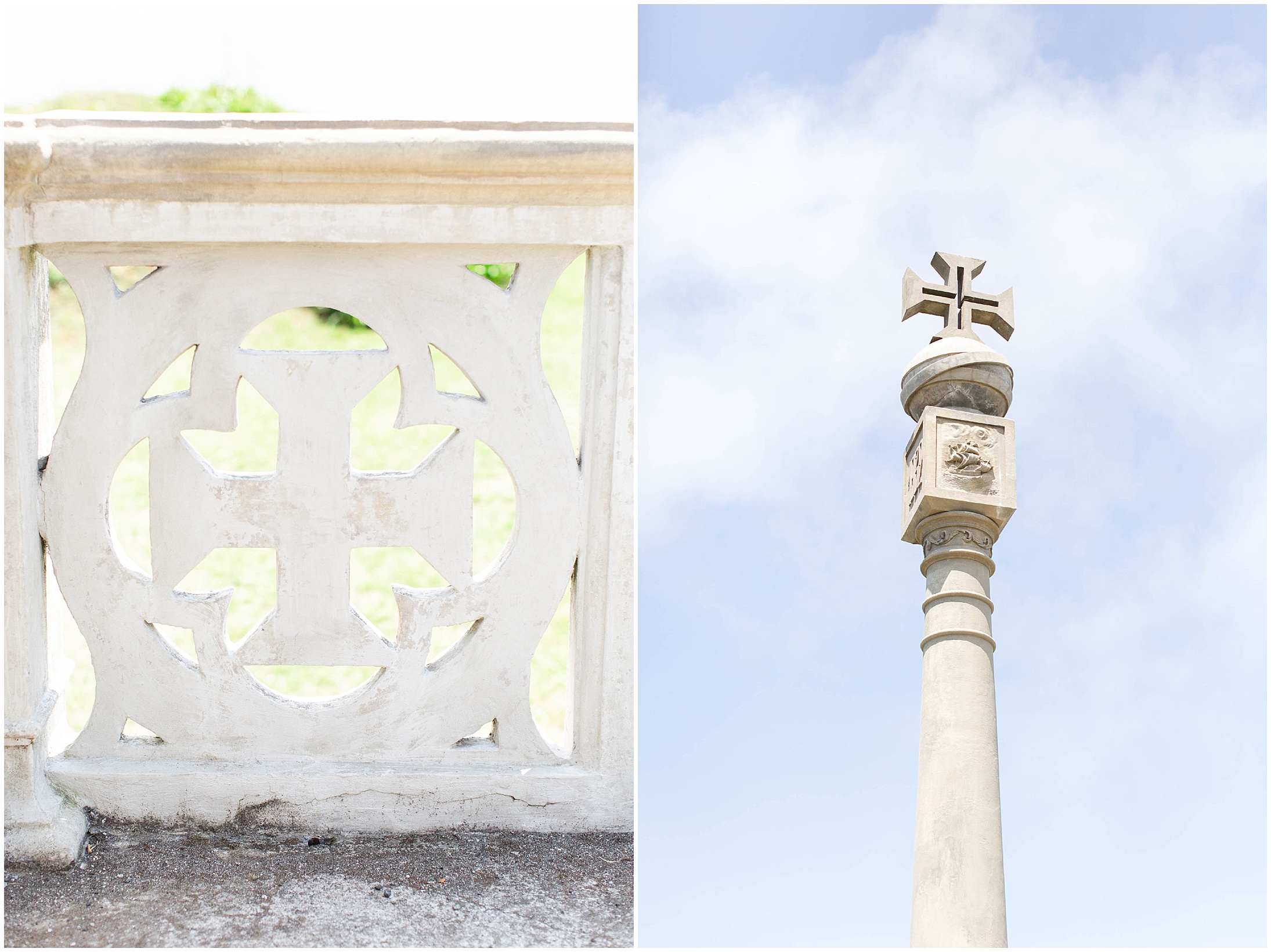
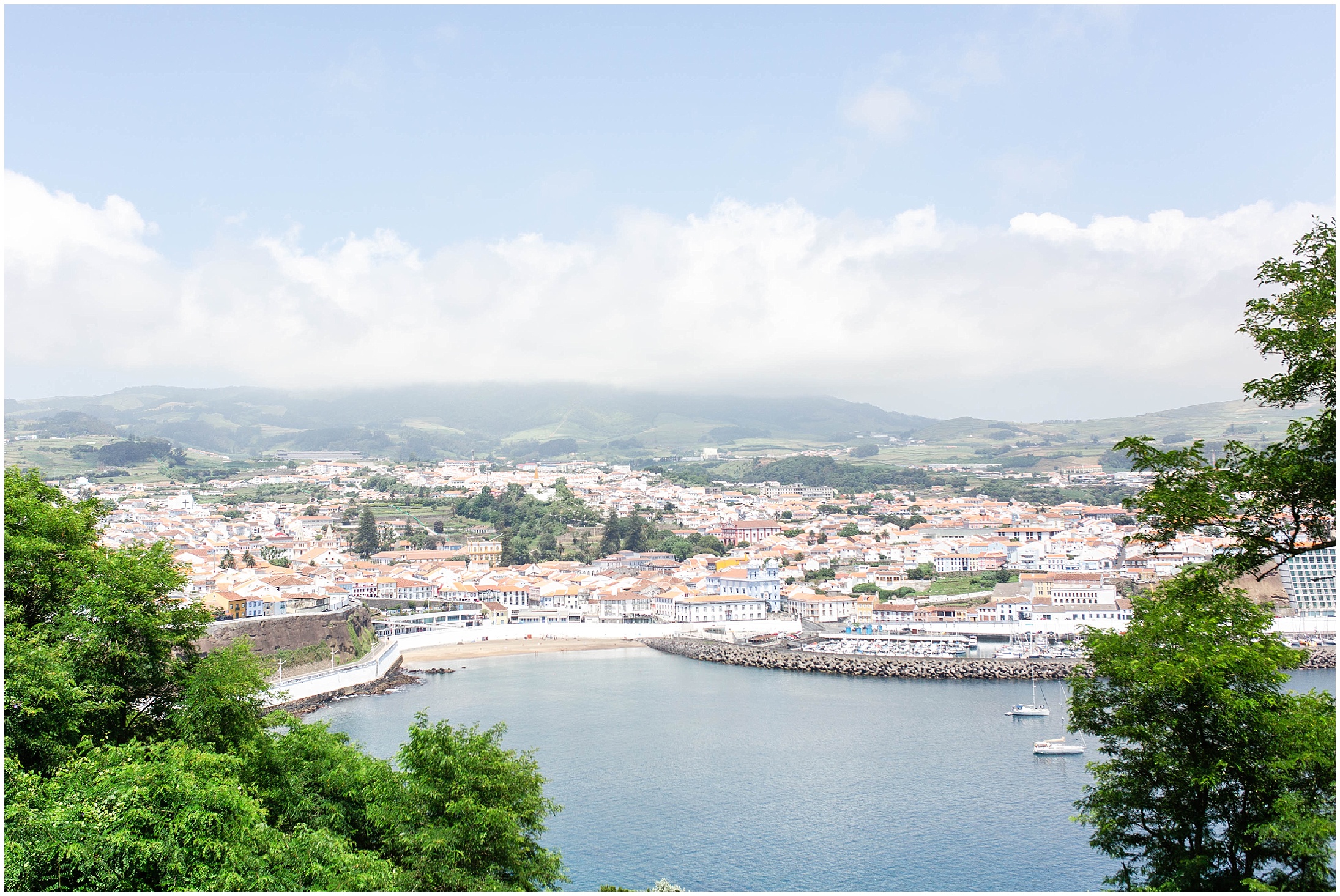
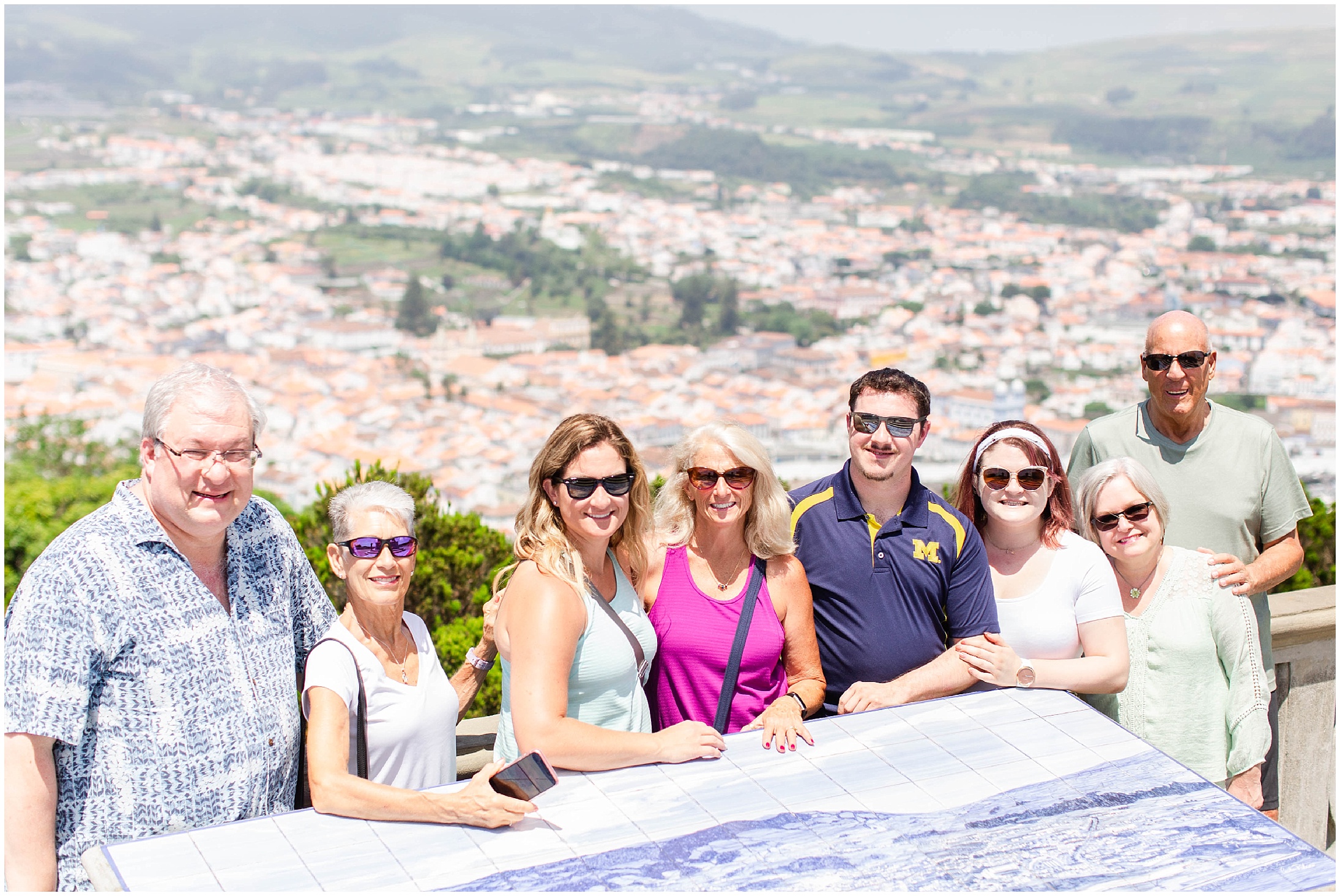
The city of Angra is behind us.
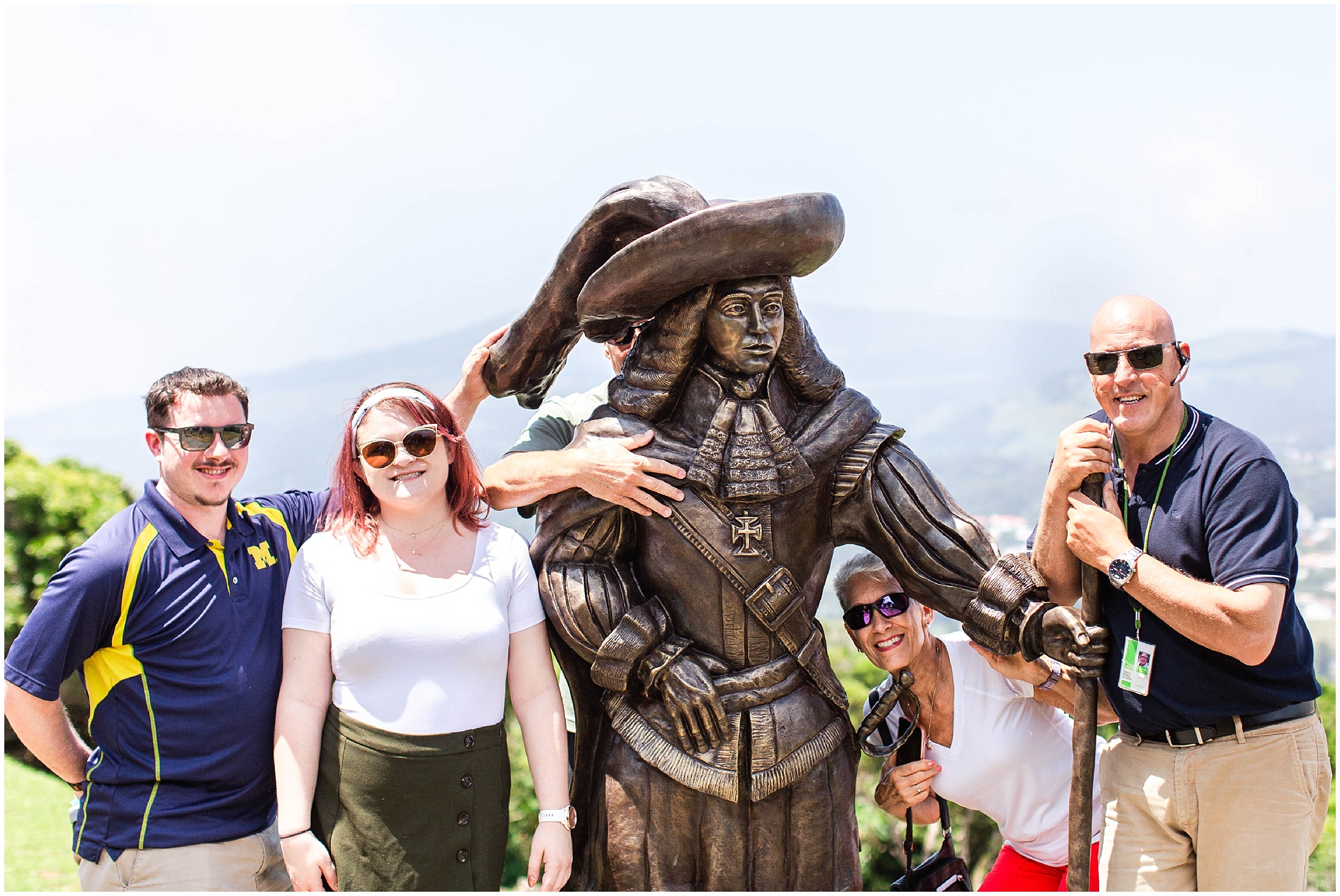
Left to Right: John, Cousin Amanda, Uncle Devon (behind the King statue), Tia, and Tour Guide, Hildeberto.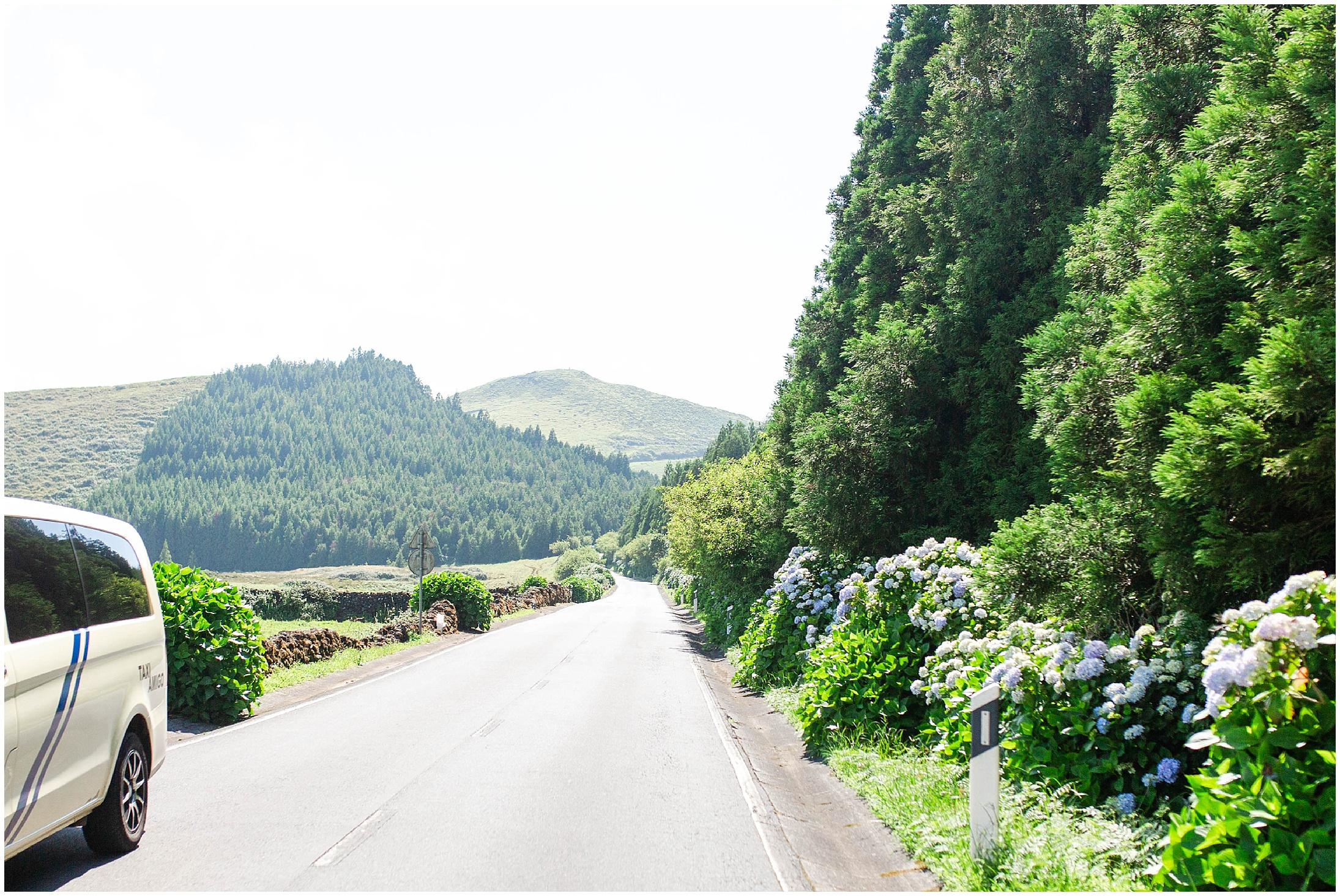
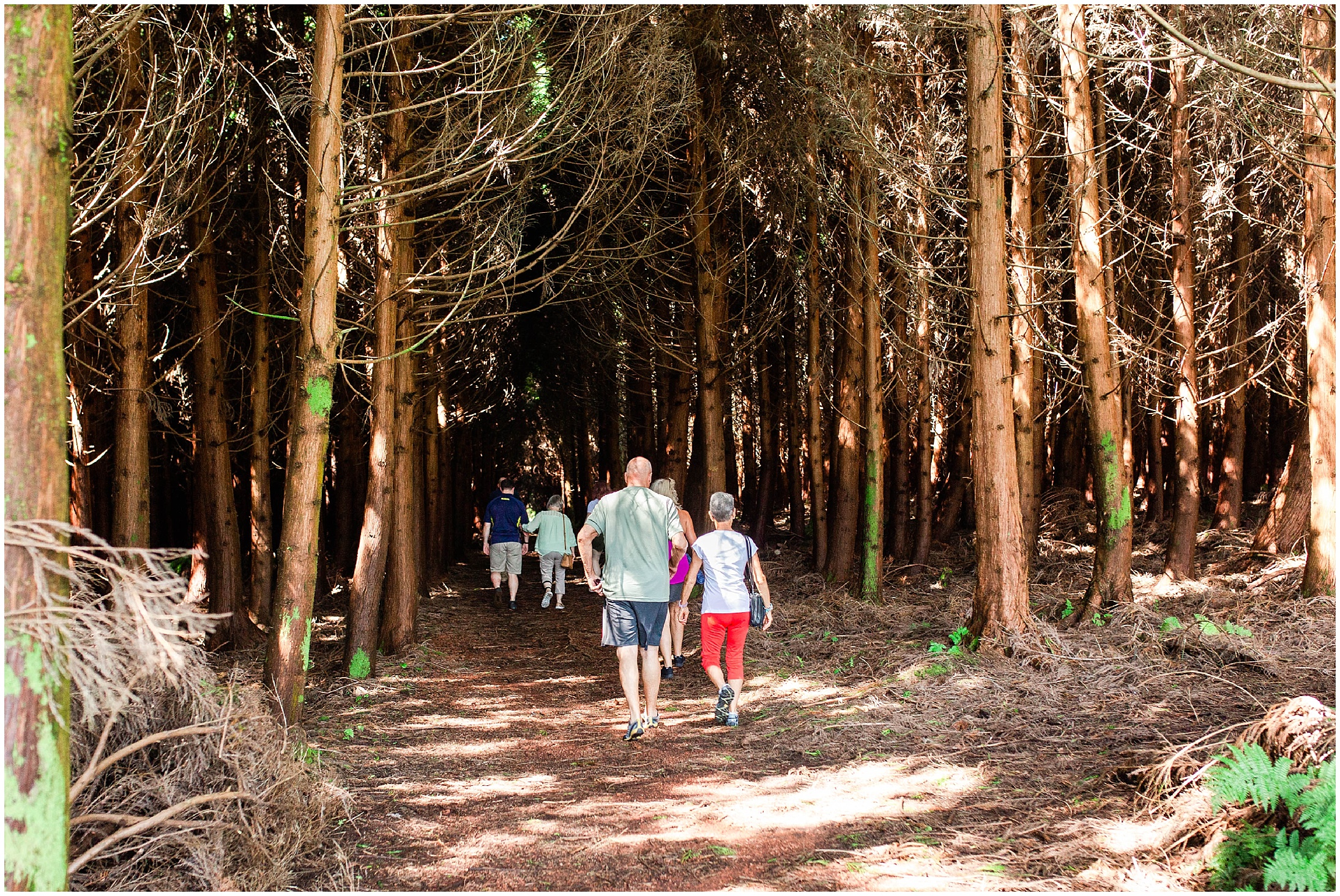
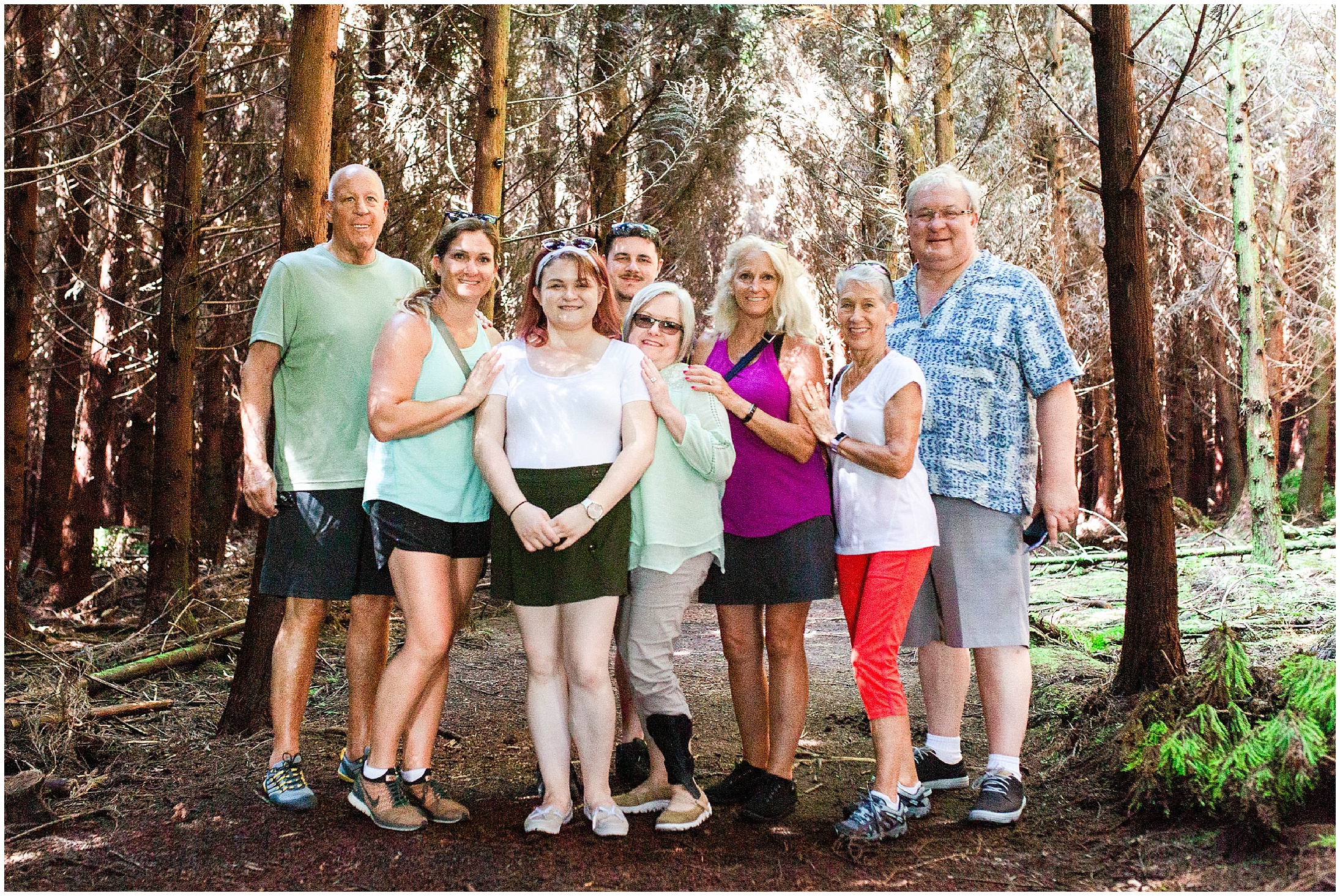
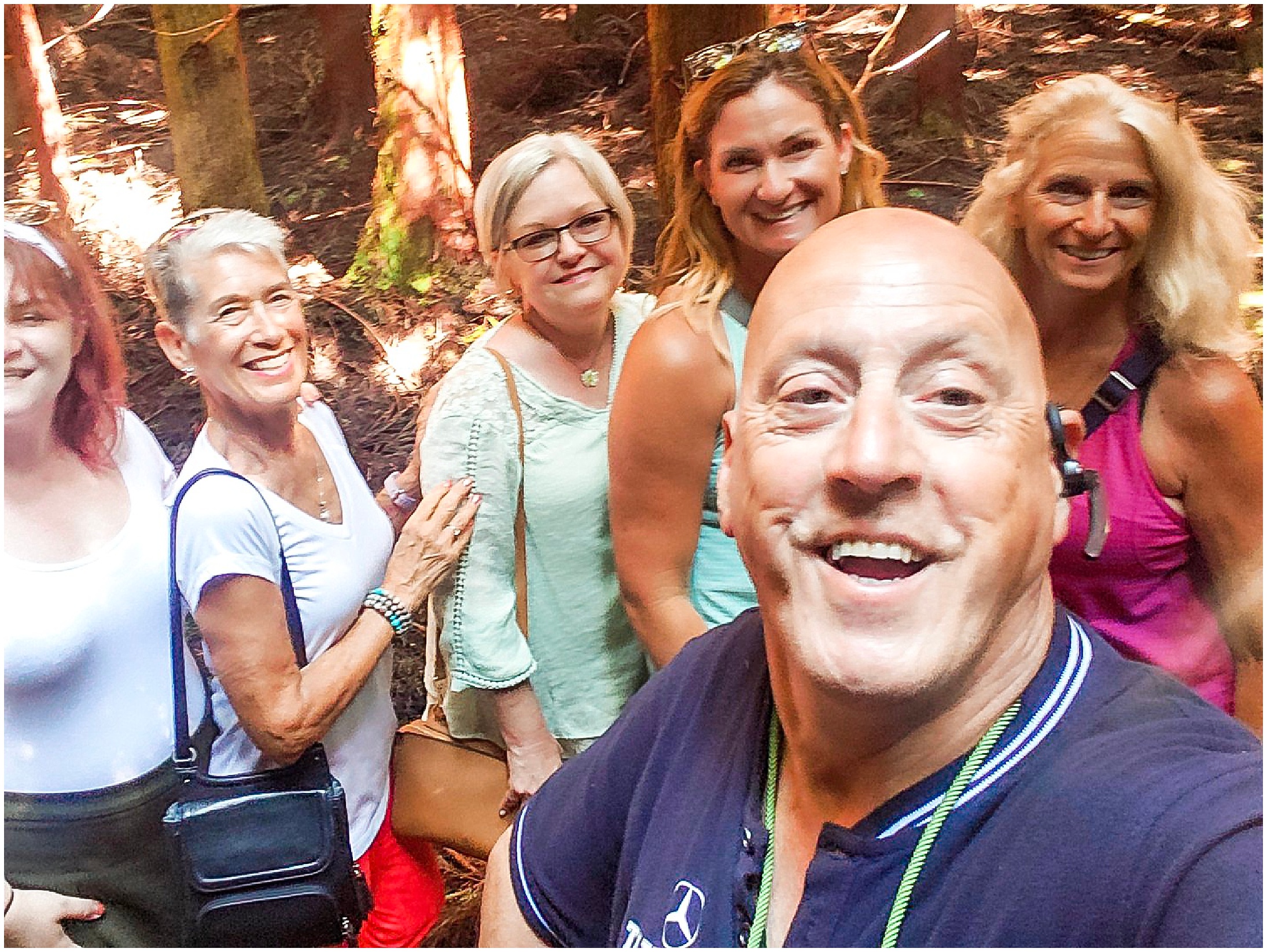
Hildeberto led us into a dark forest. Minimal light is allowed in by the trees. There are not many animals on the island. Cows, horses, goats, rabbits, and birds were all that I saw. No snakes!
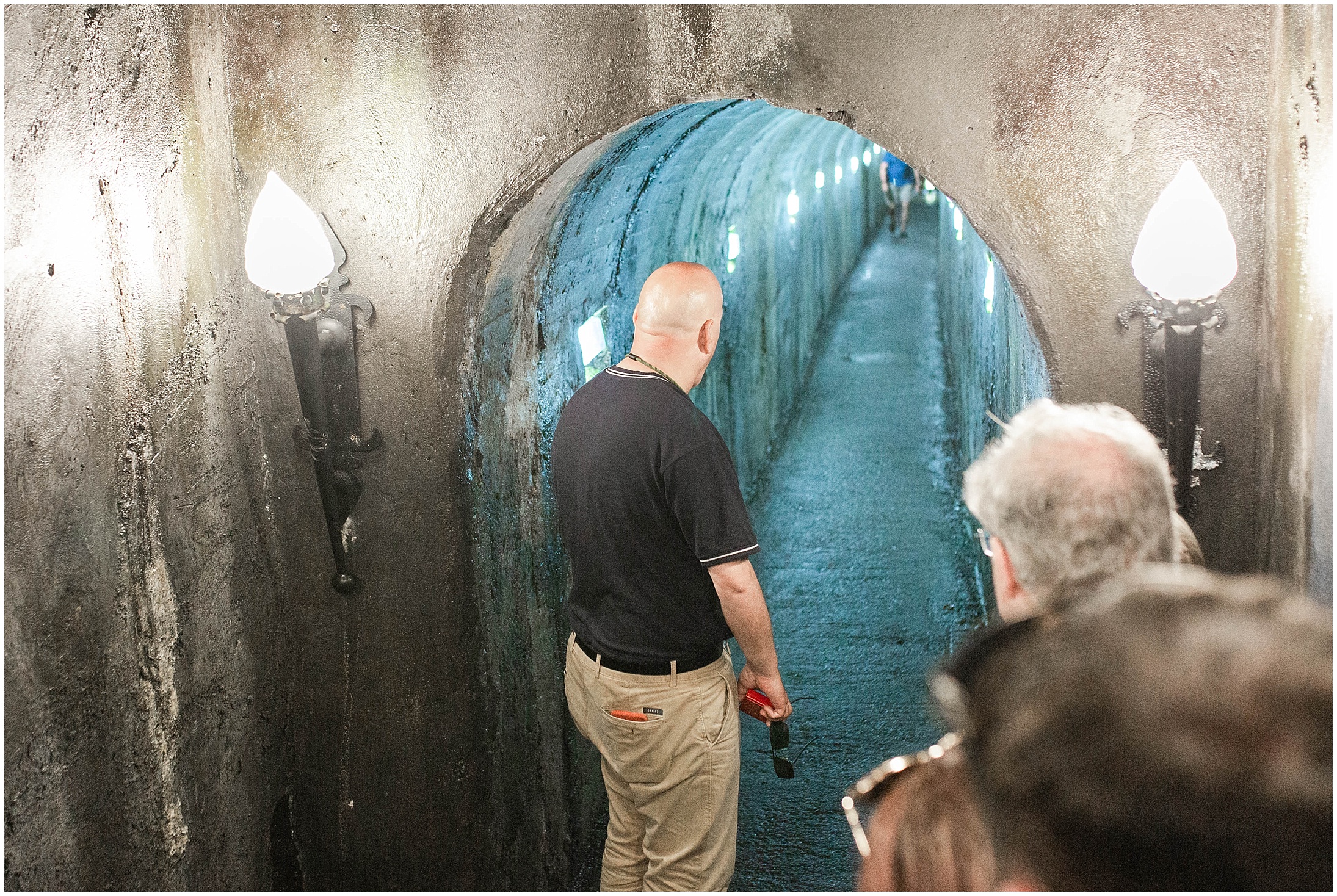
Tour Guide, Hildeberto, sang Ave Maria in the ancient lava tube.
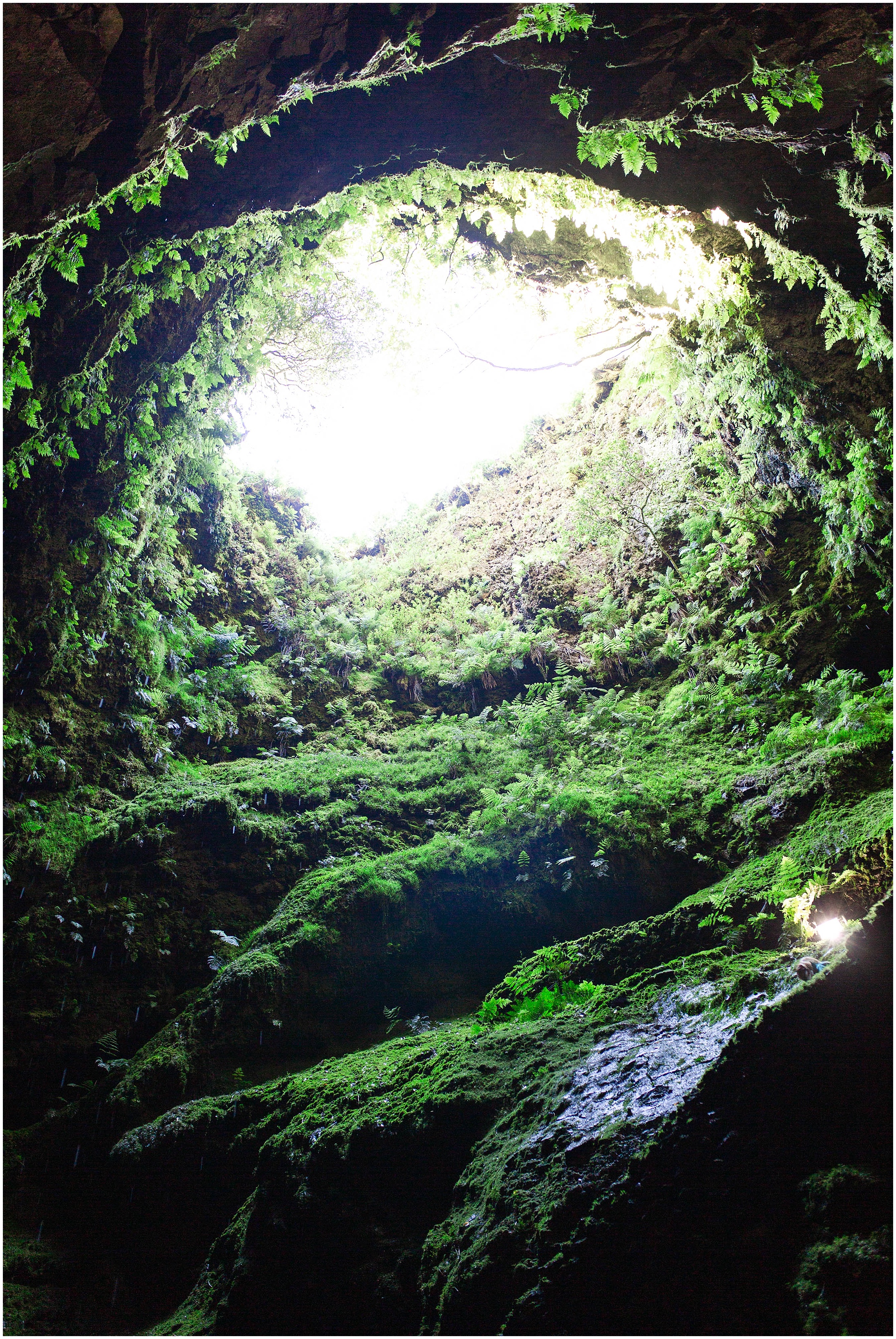
We hiked down a long way to get close to the bottom of the volcano. The view up was amazing.
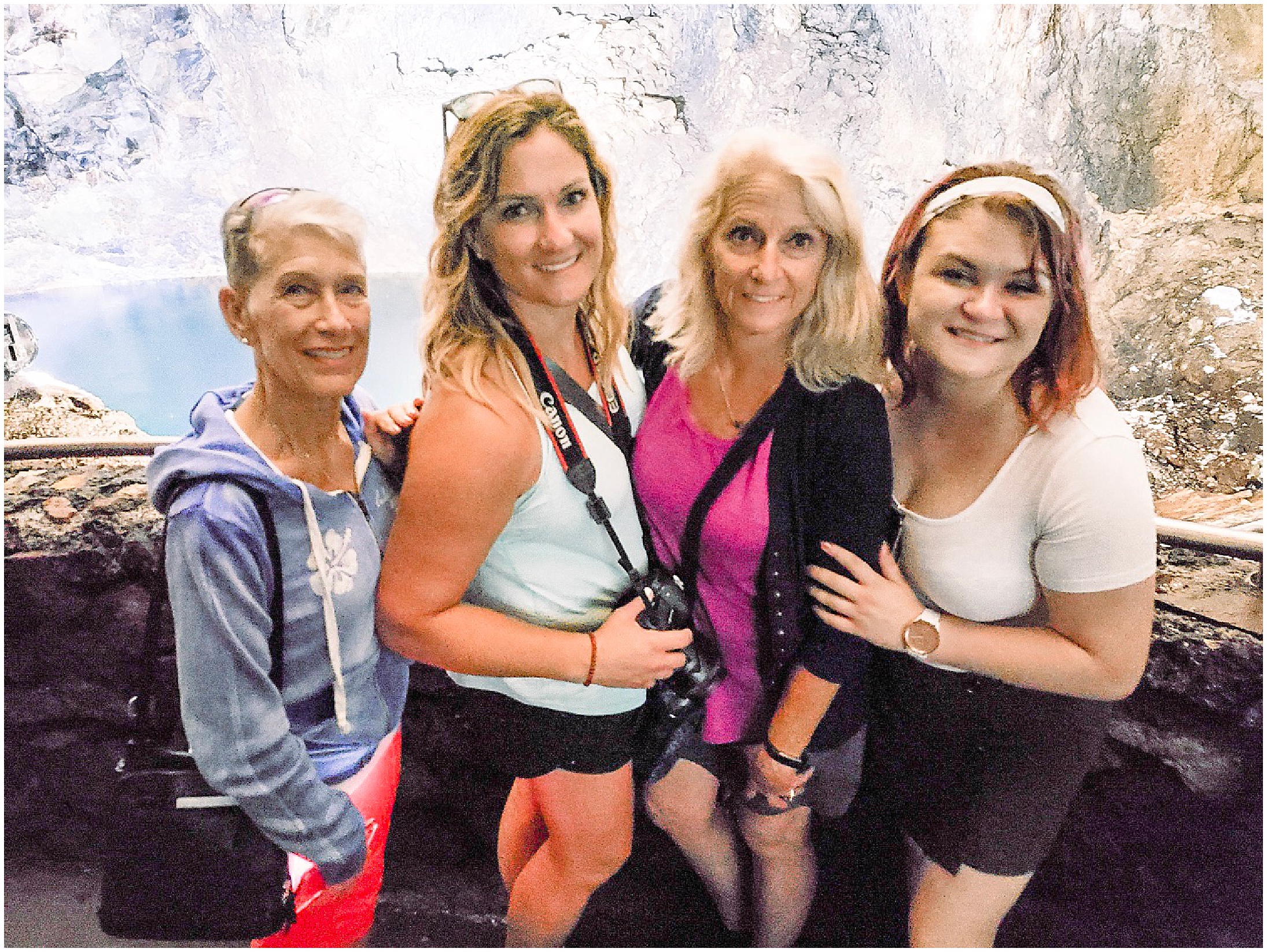
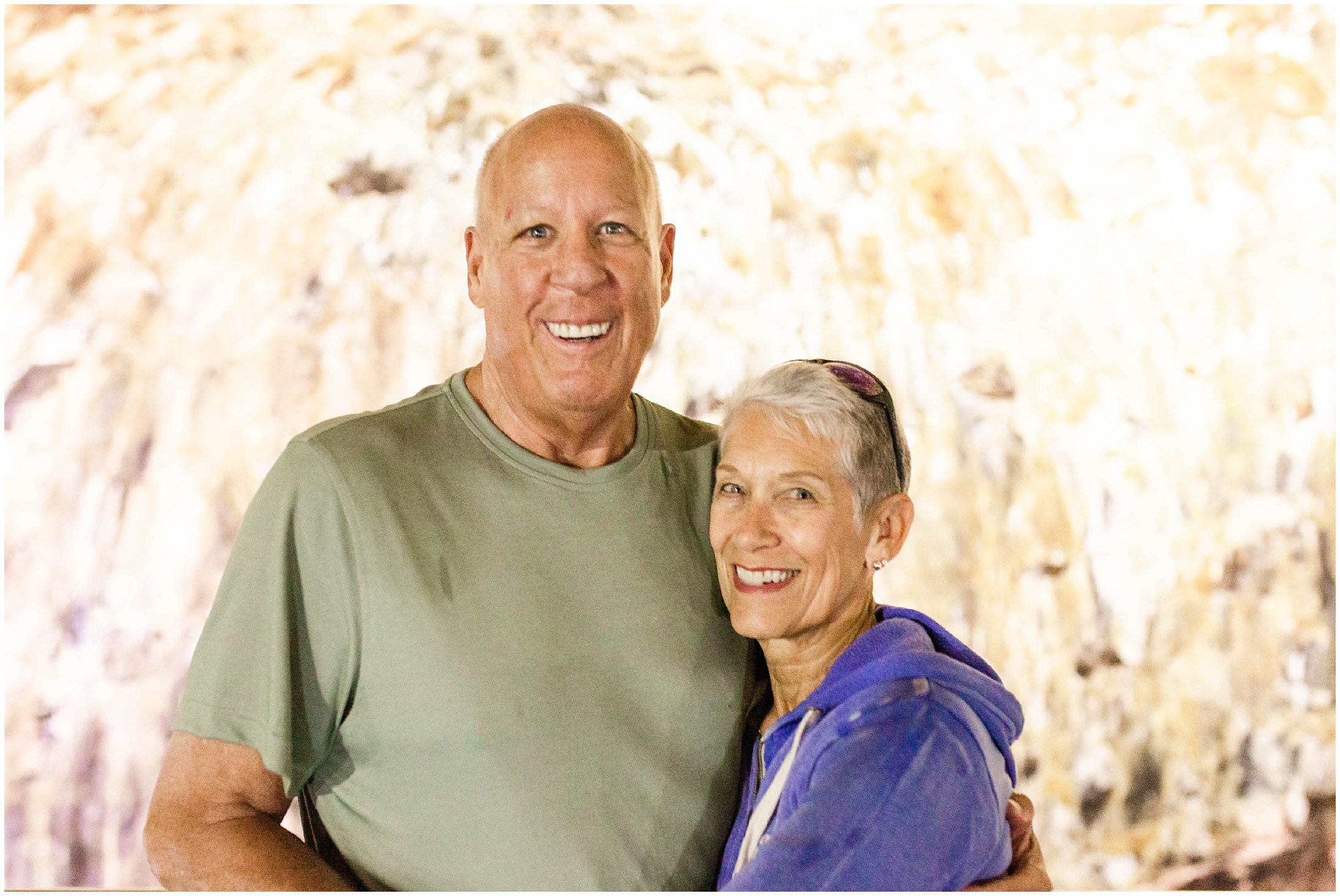
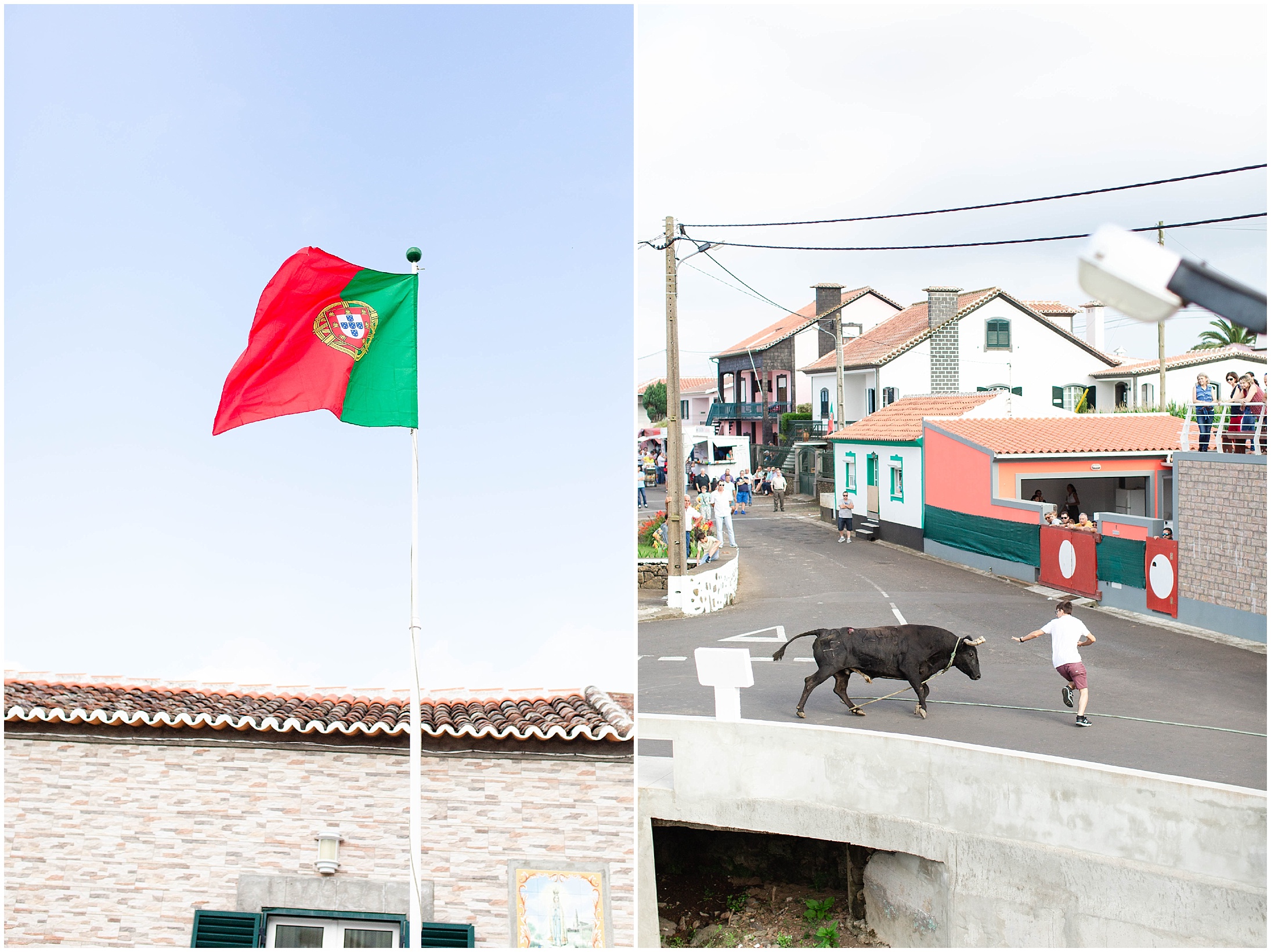
Terceira has the most bullfights out of all of the Azorean islands. There is almost one every night, and the town location varies.
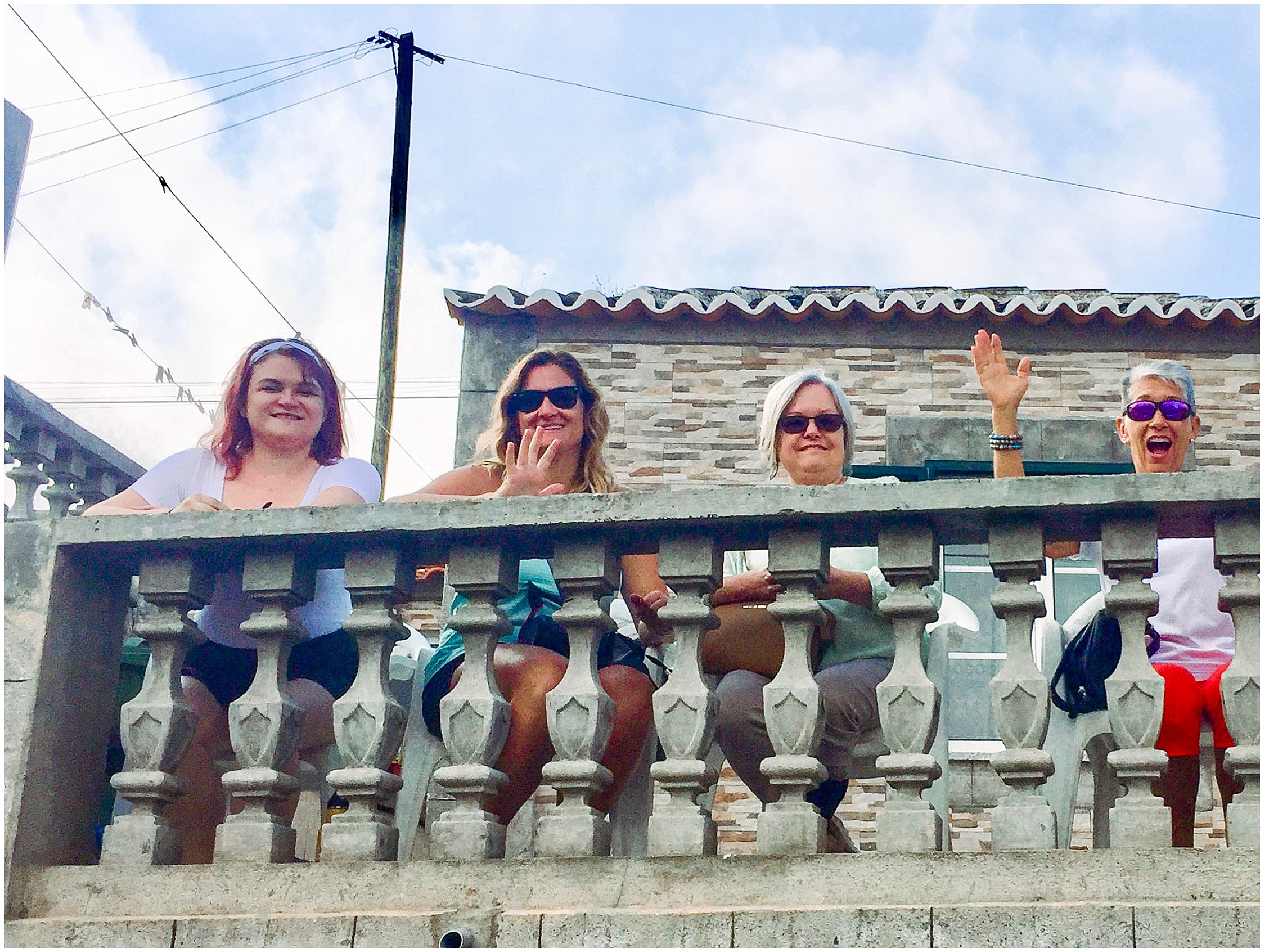
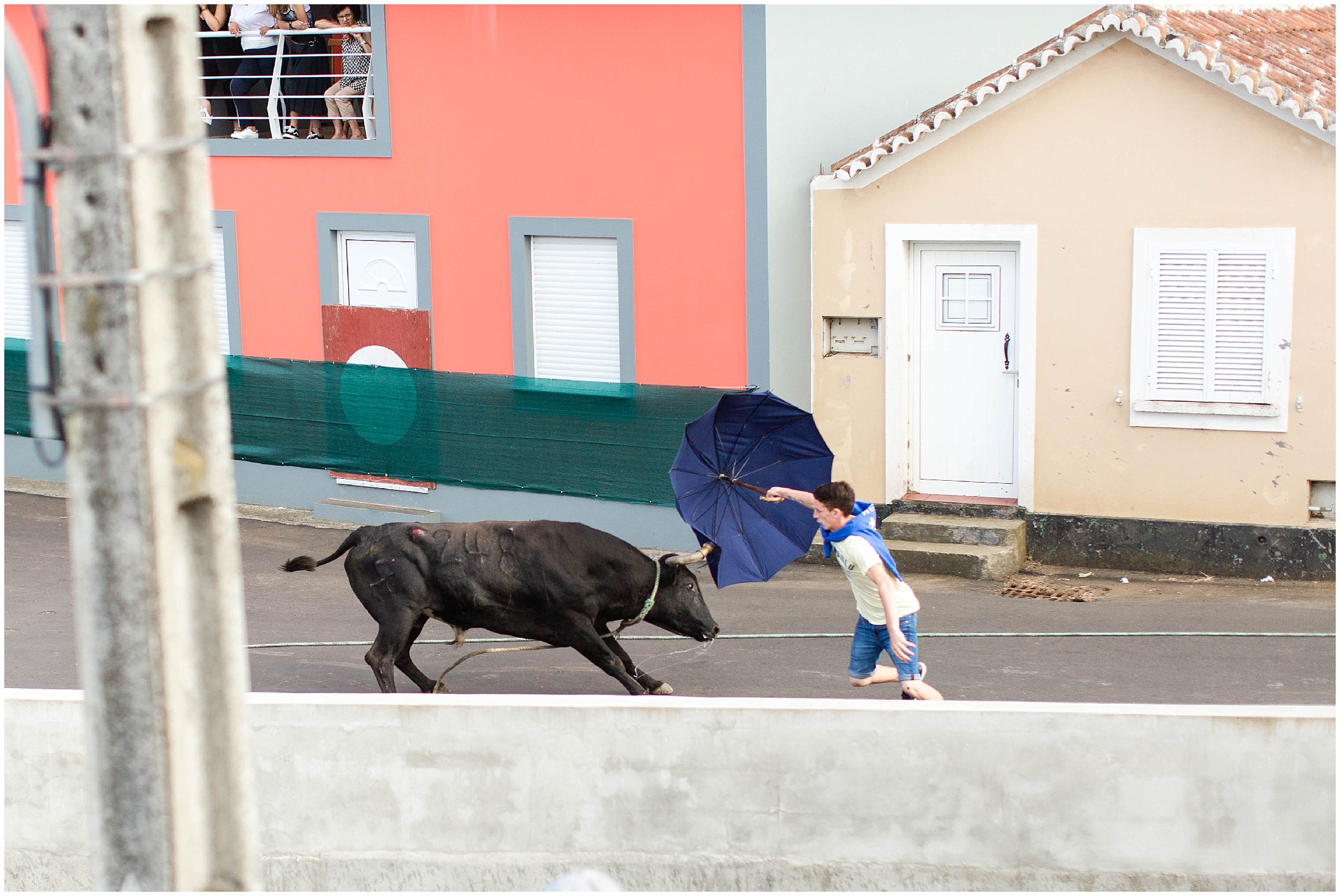
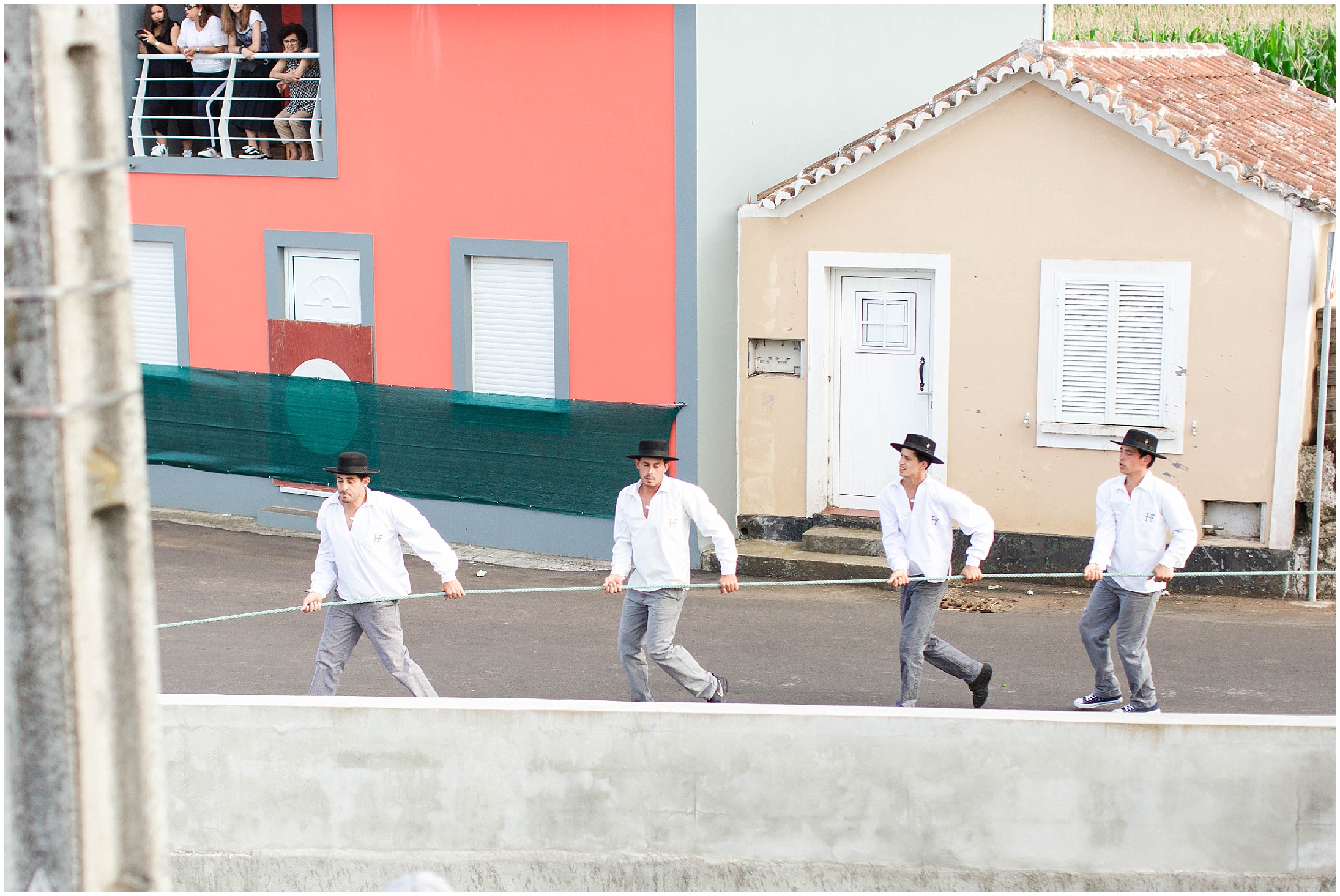
These gentlemen in the white shirts volunteer to help with the bullfights. The rope is connected to the bull, and they try to keep the bull in bounds.
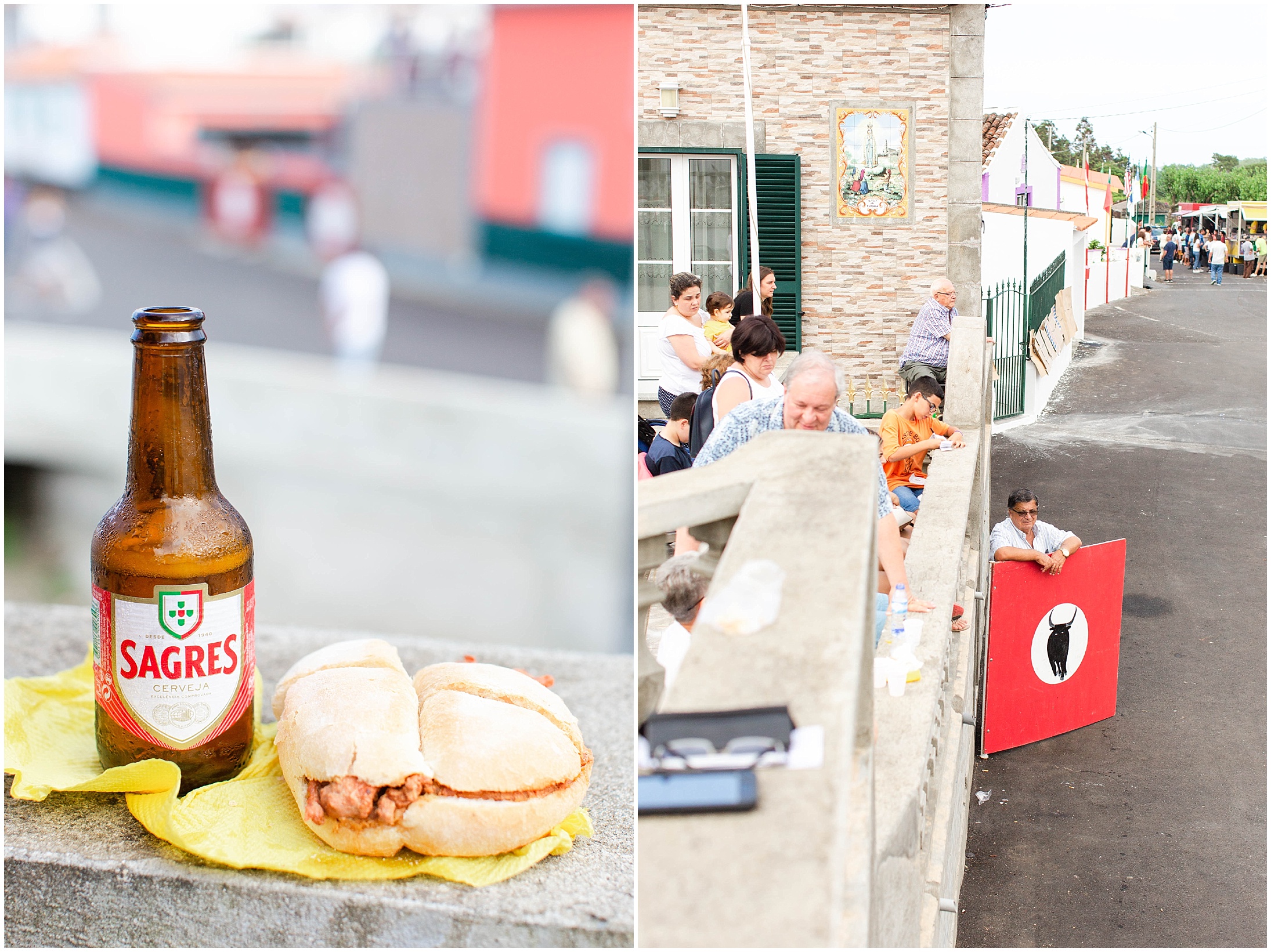
The pork sandwich is like a hotdog at an American baseball game. The red bull board protects this homeowner’s door from being damaged by the bull.
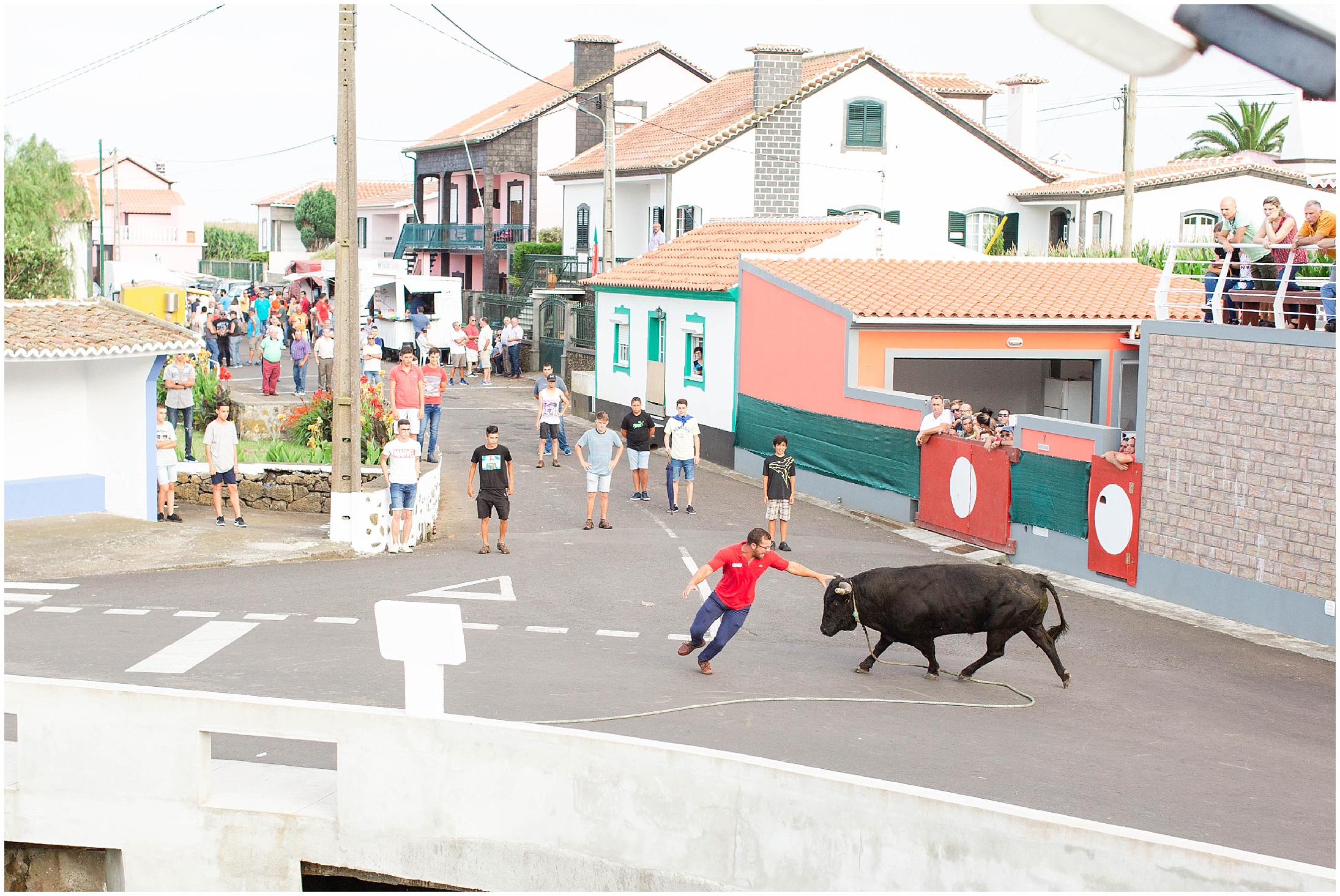
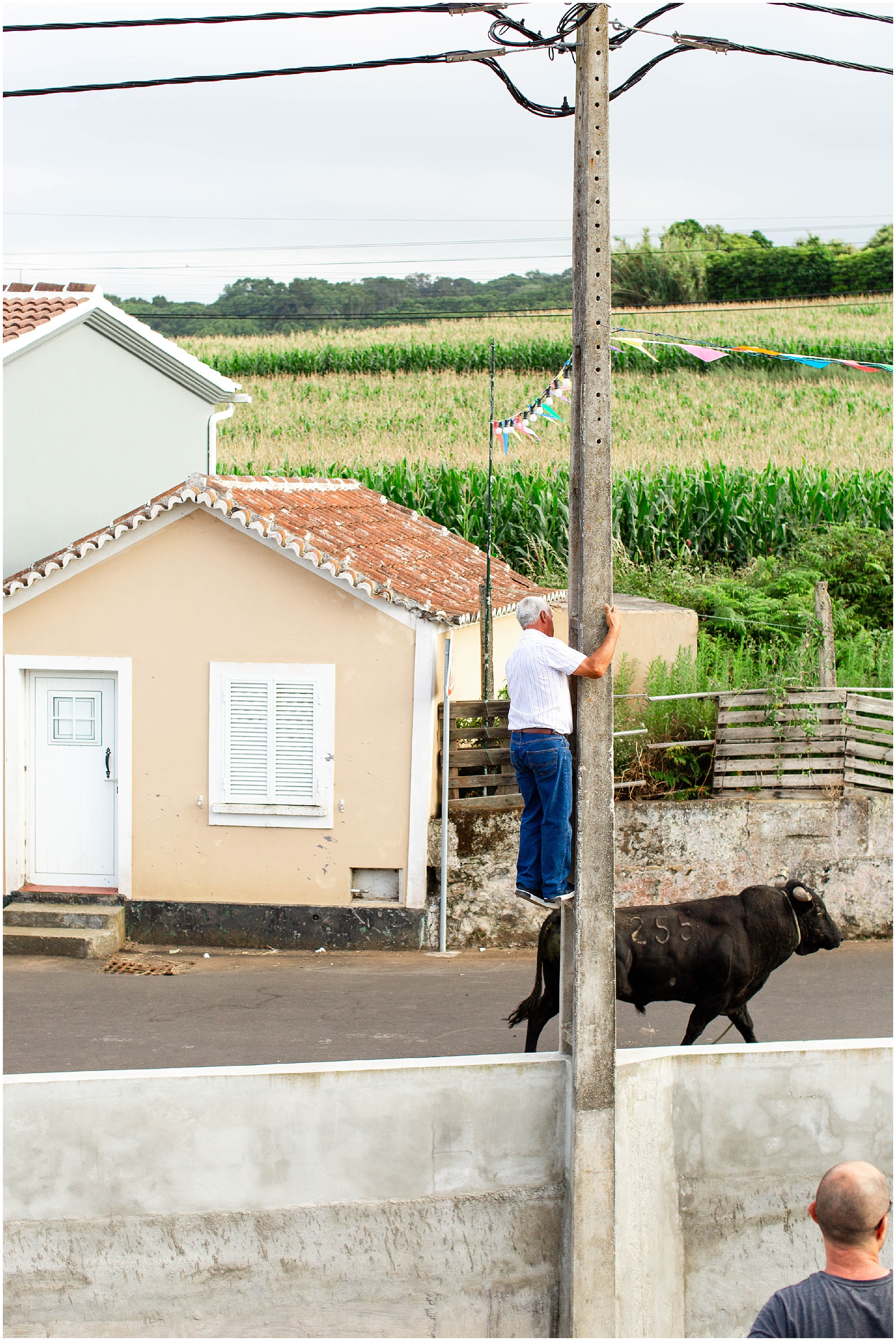
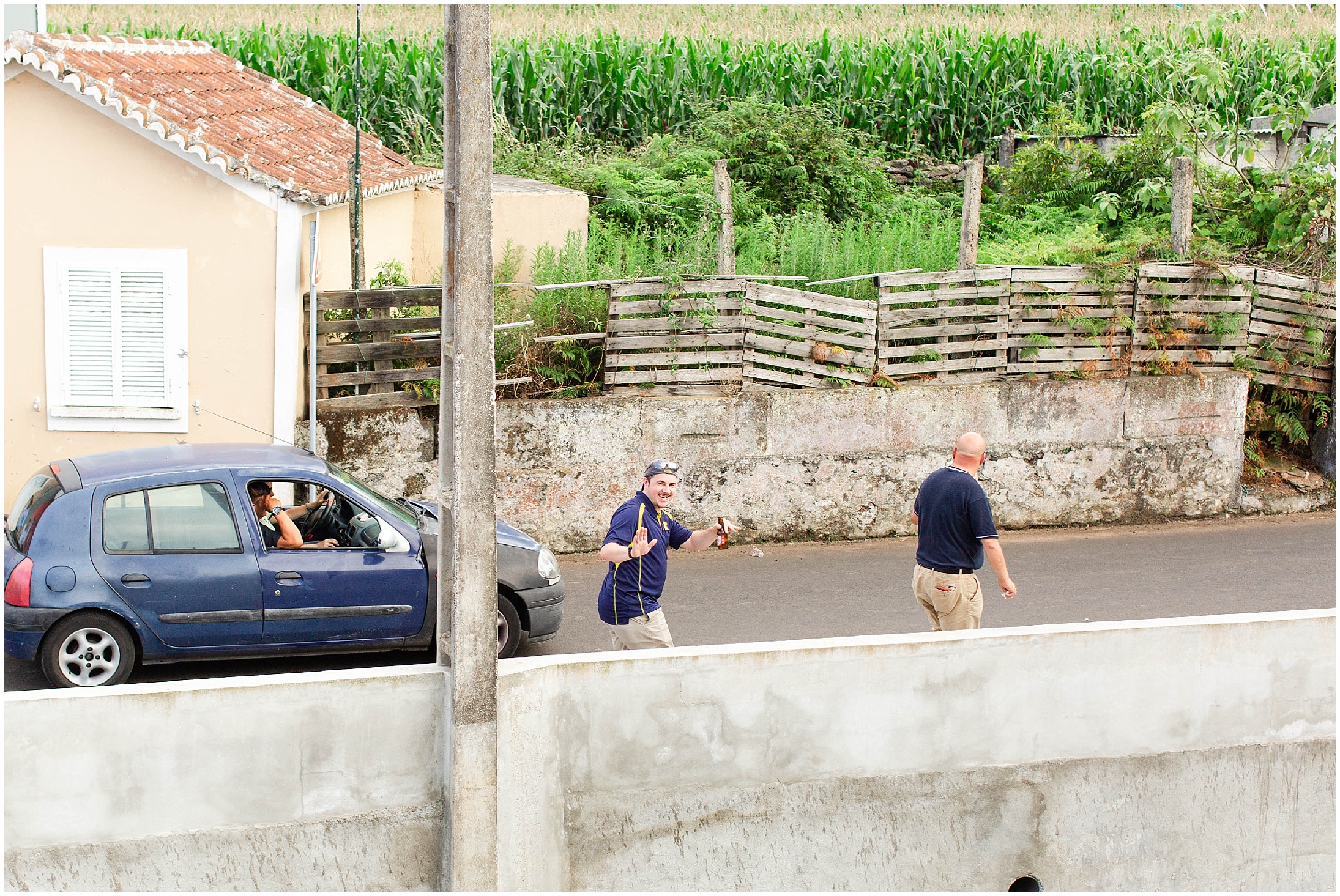
Amanda’s boyfriend, John, was getting a special tour by Hildeberto to see where the bulls were kept between bullfights.
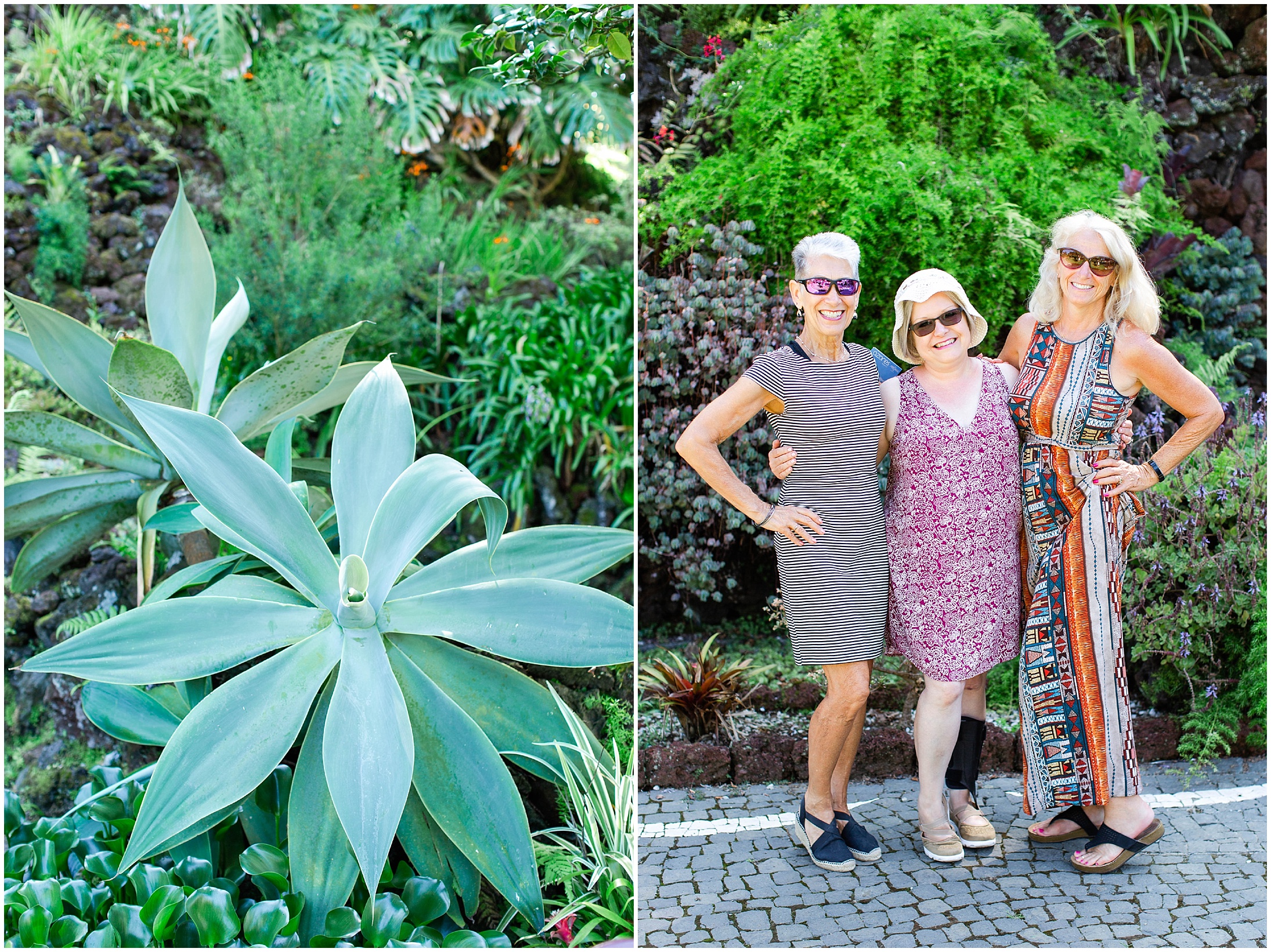
Afternoon in Angra. The guys bolted when they heard that we were shopping. We took some pictures in the botanical gardens before we started our shopping.
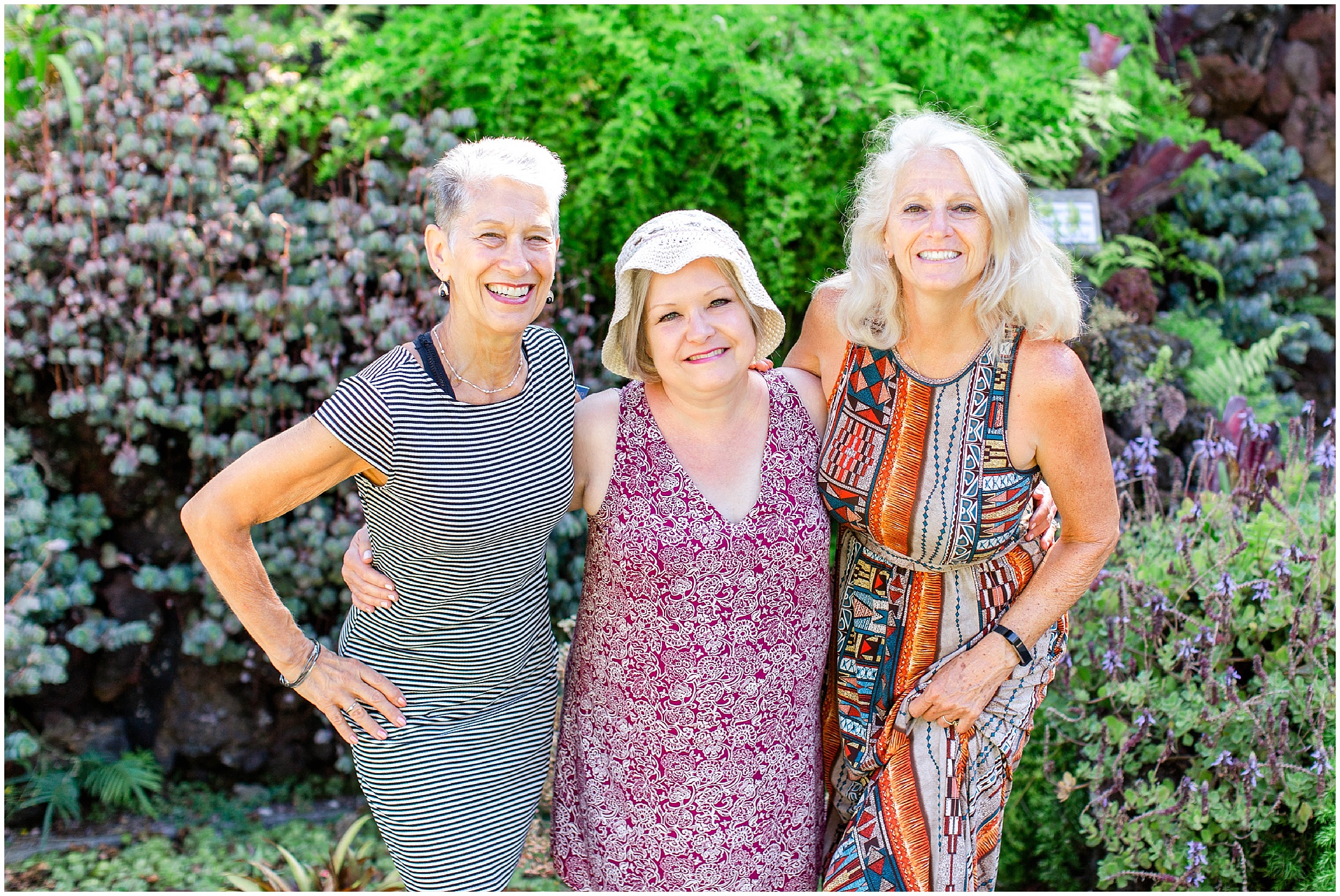
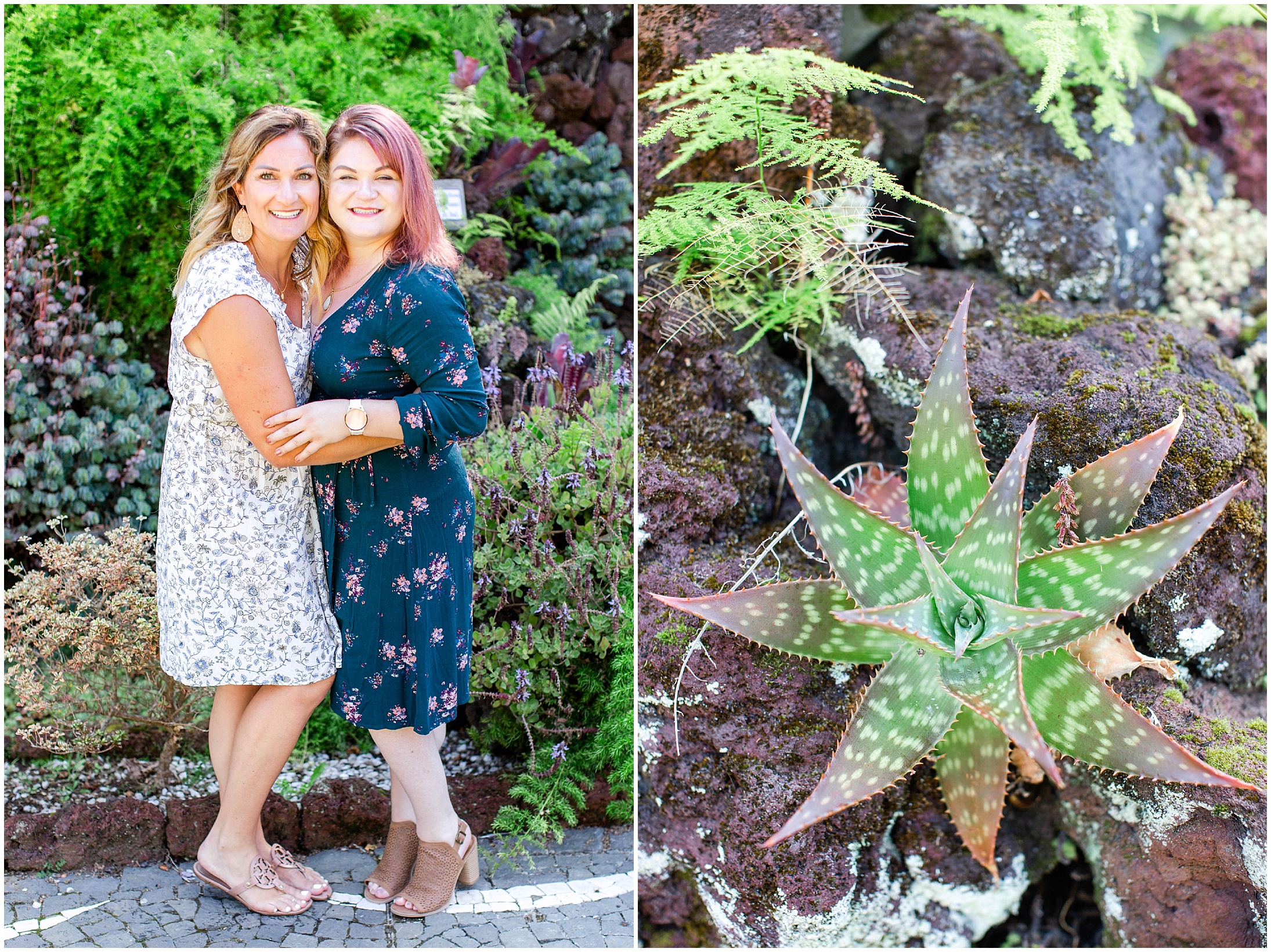
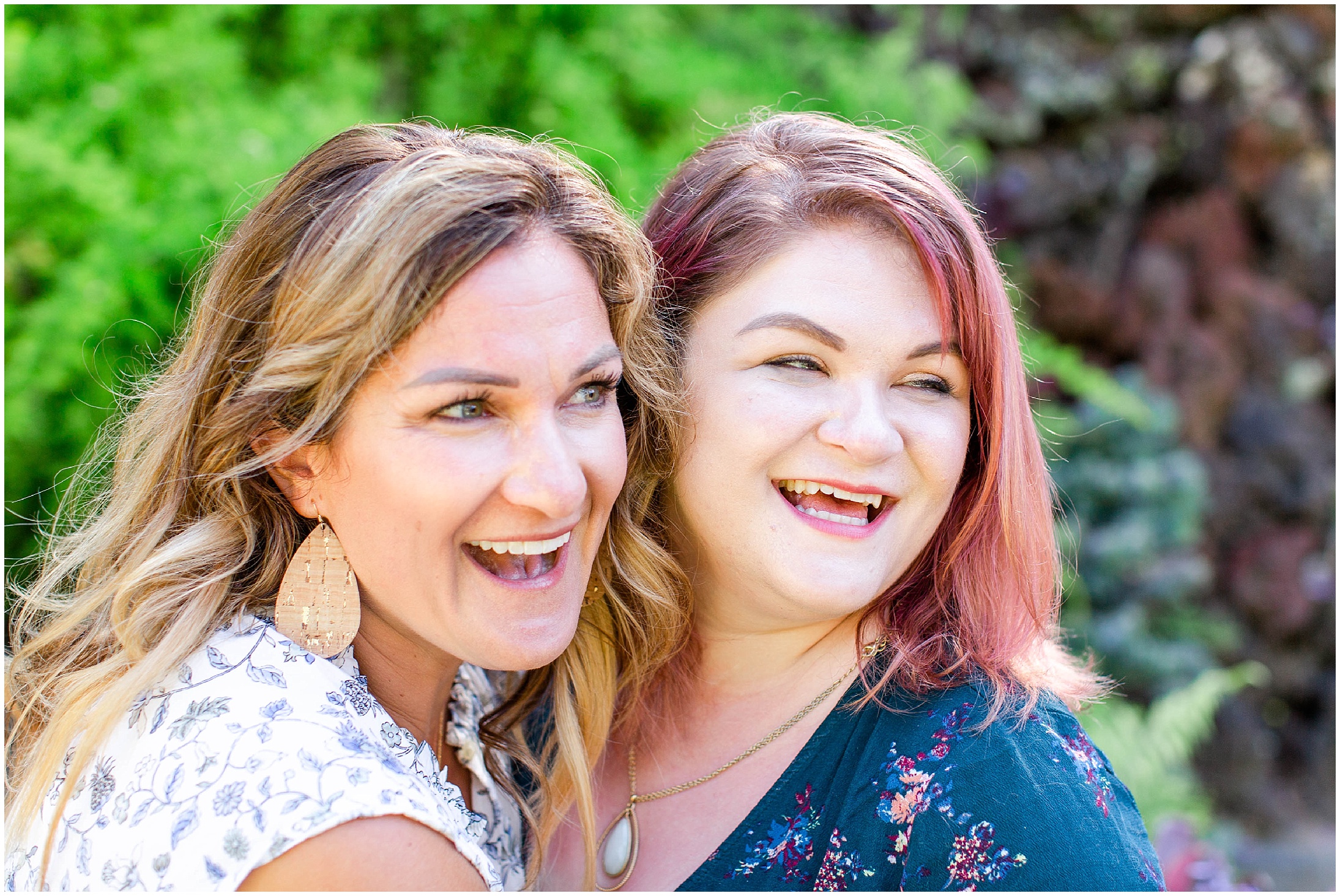
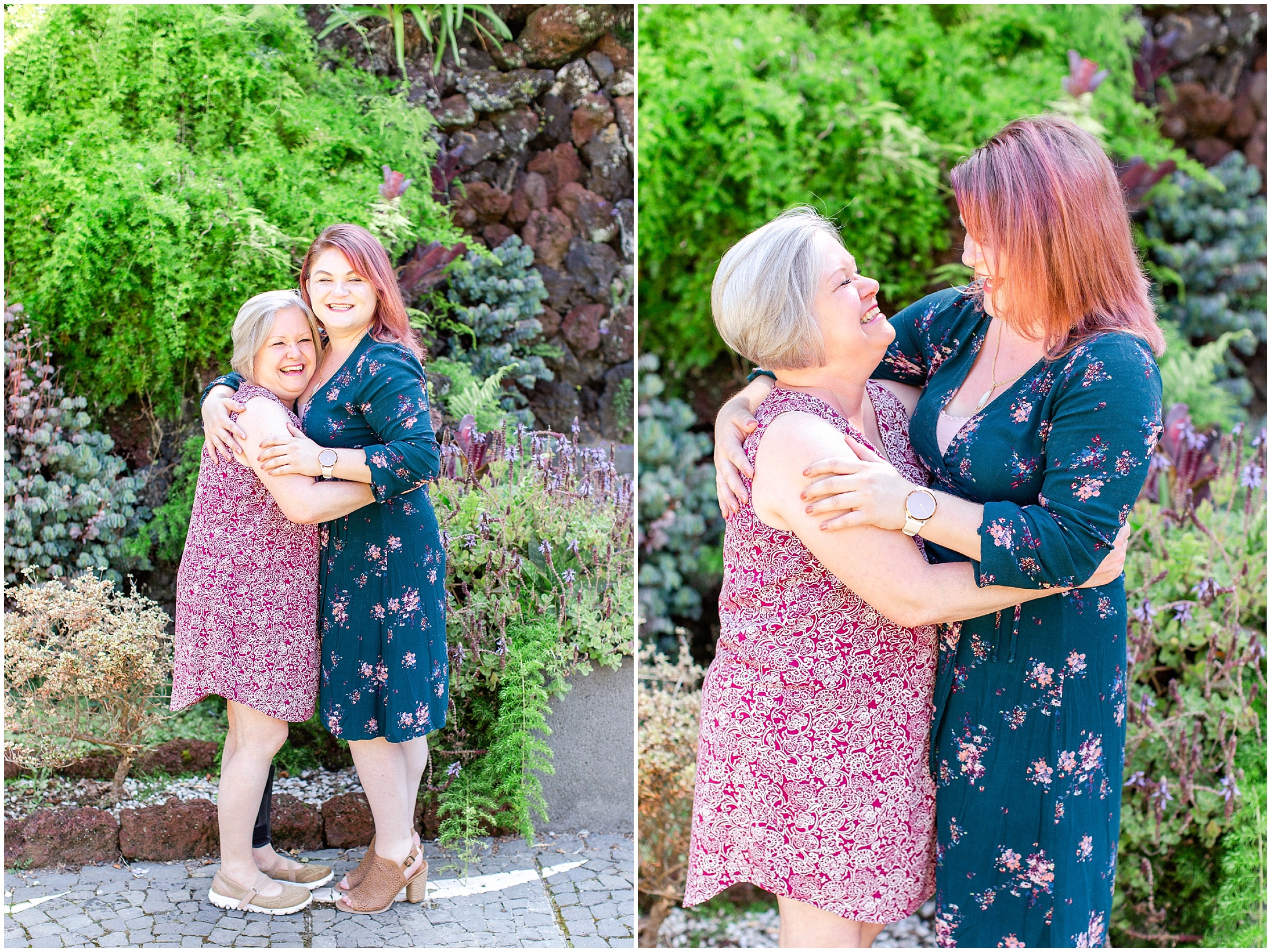
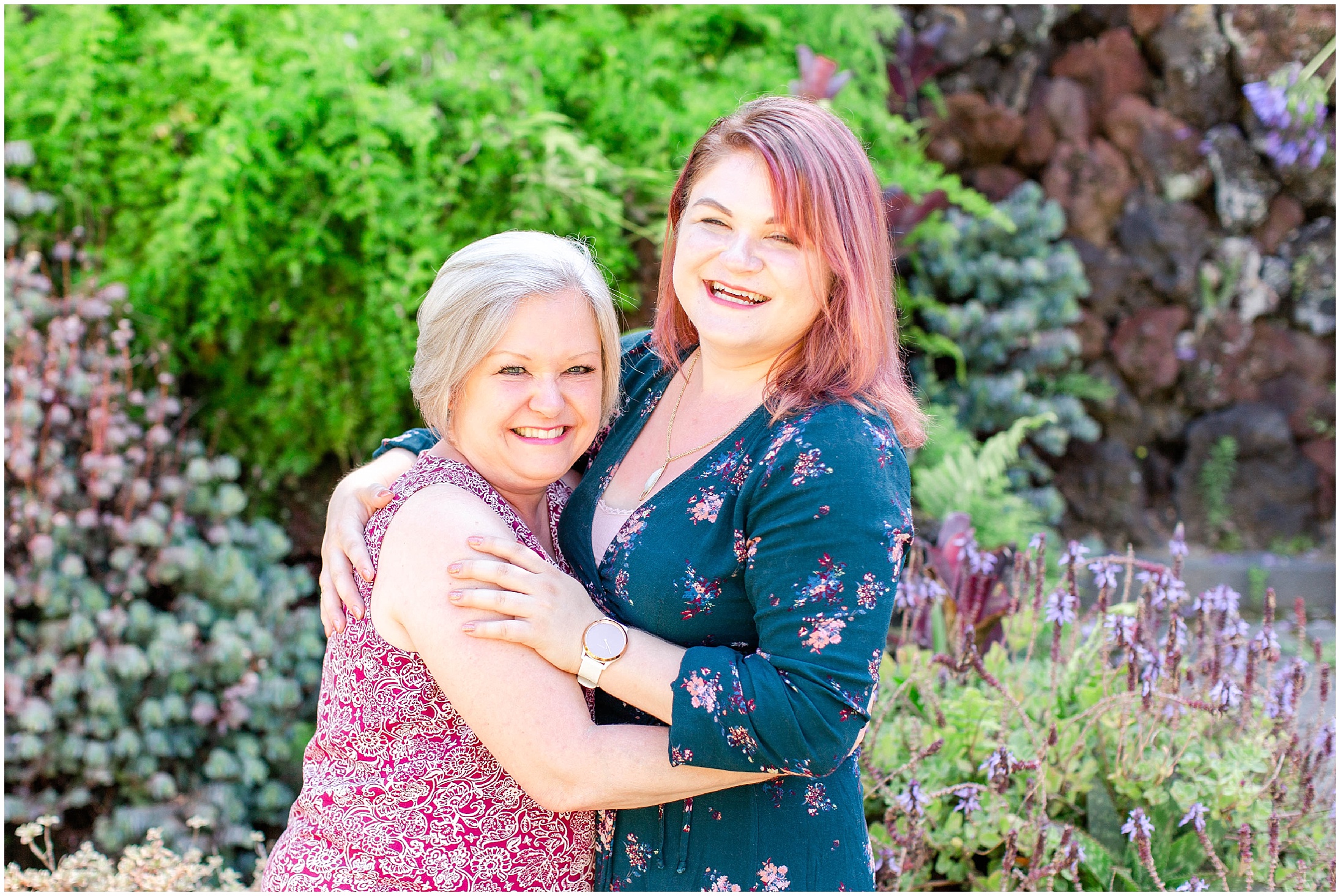
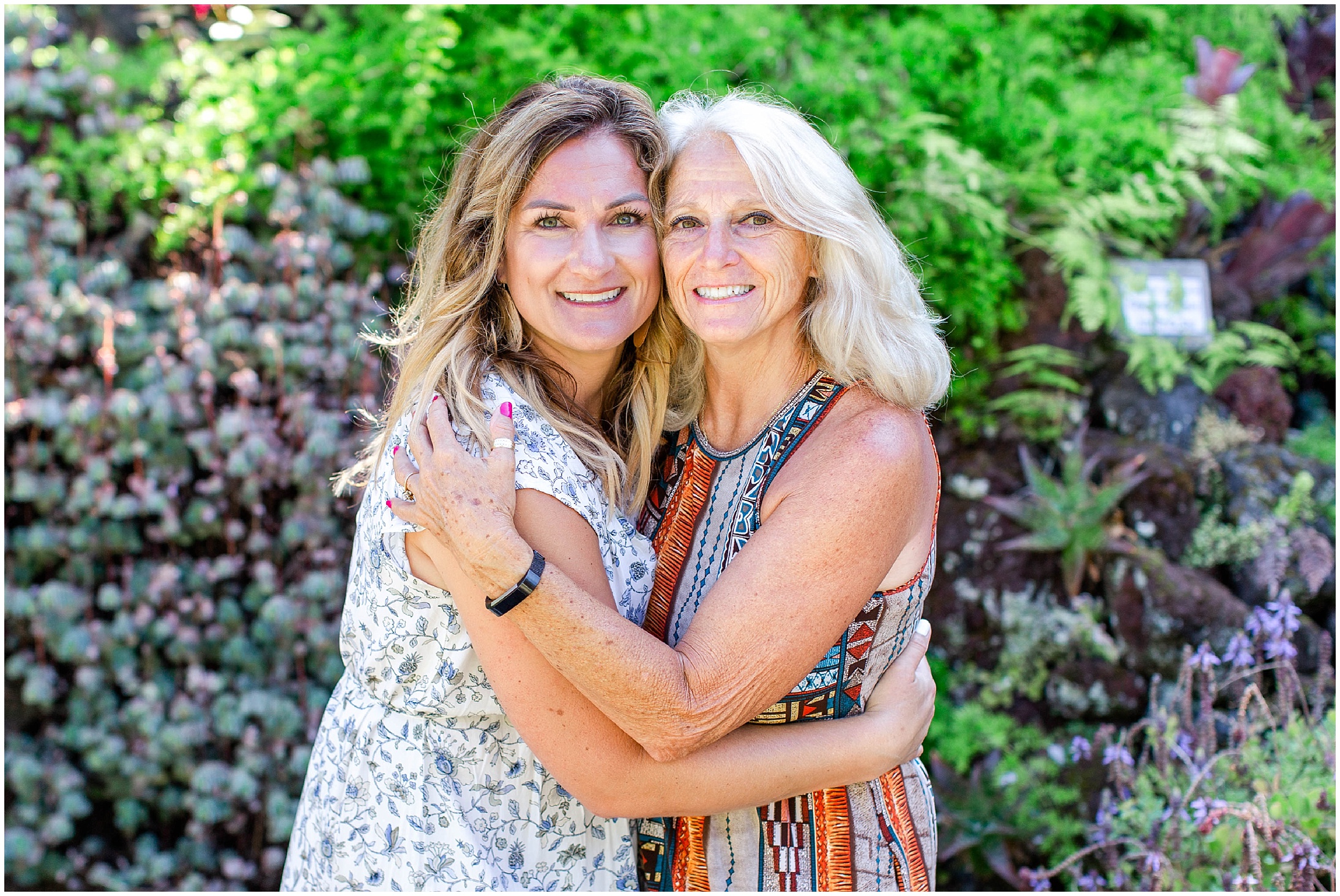
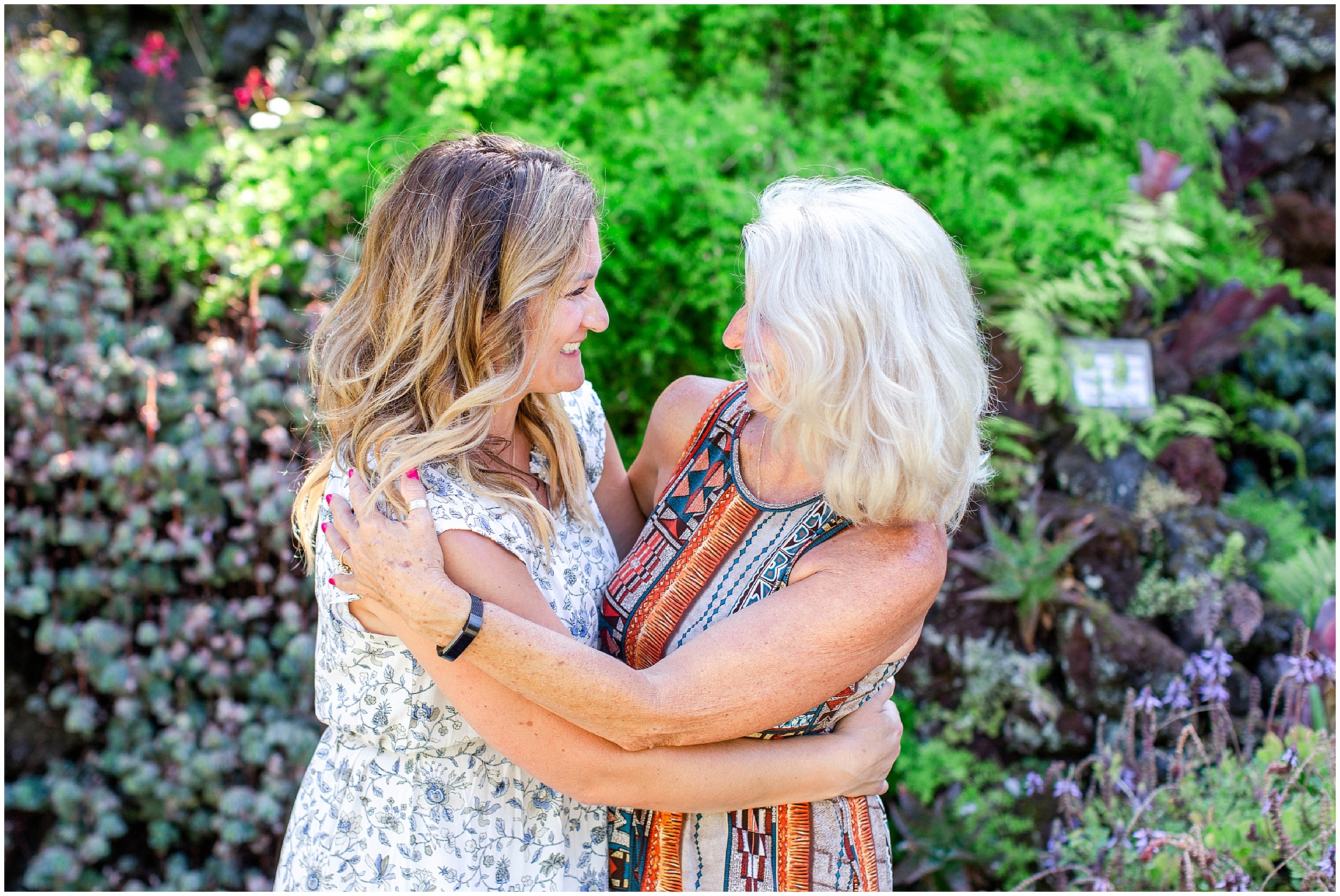
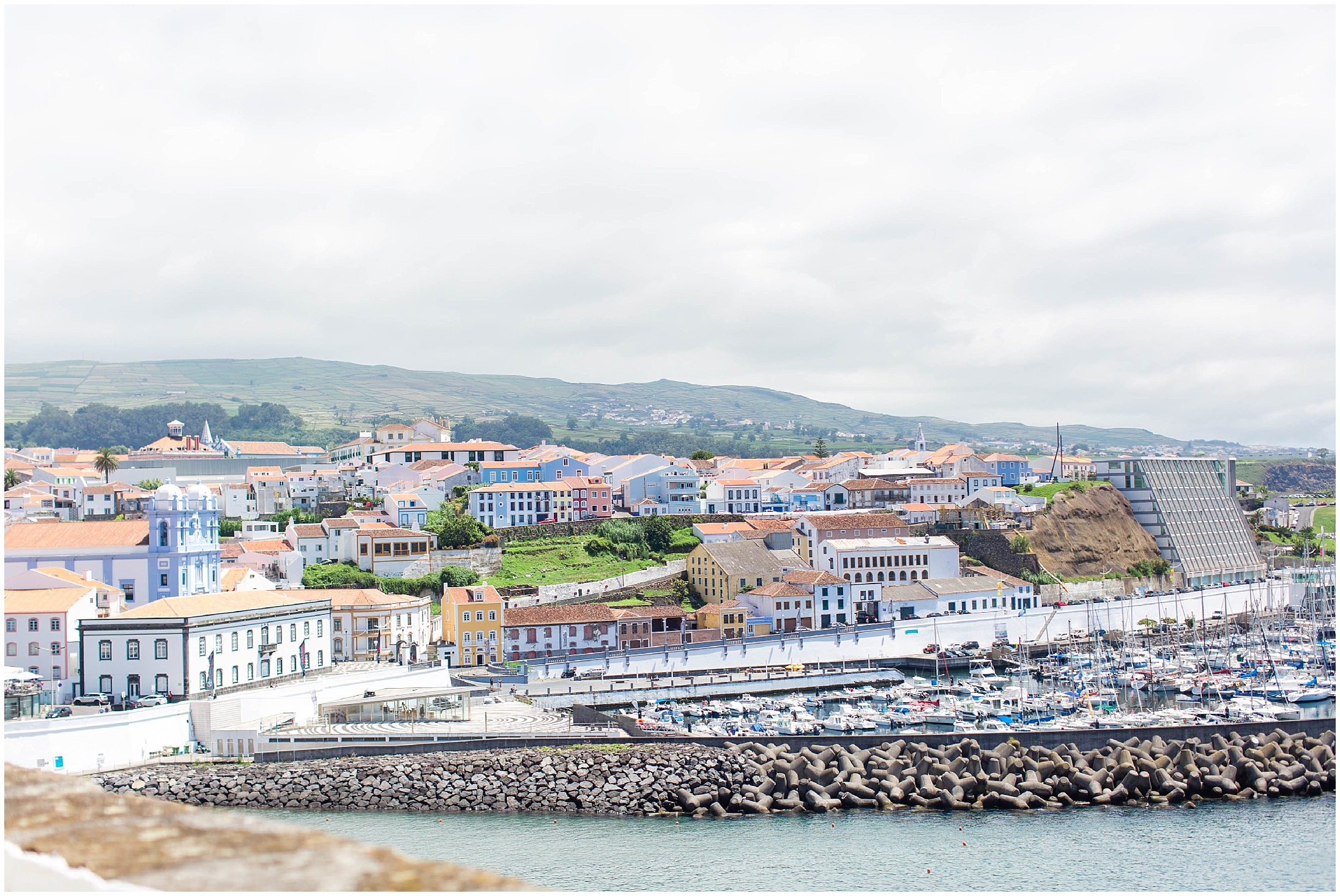
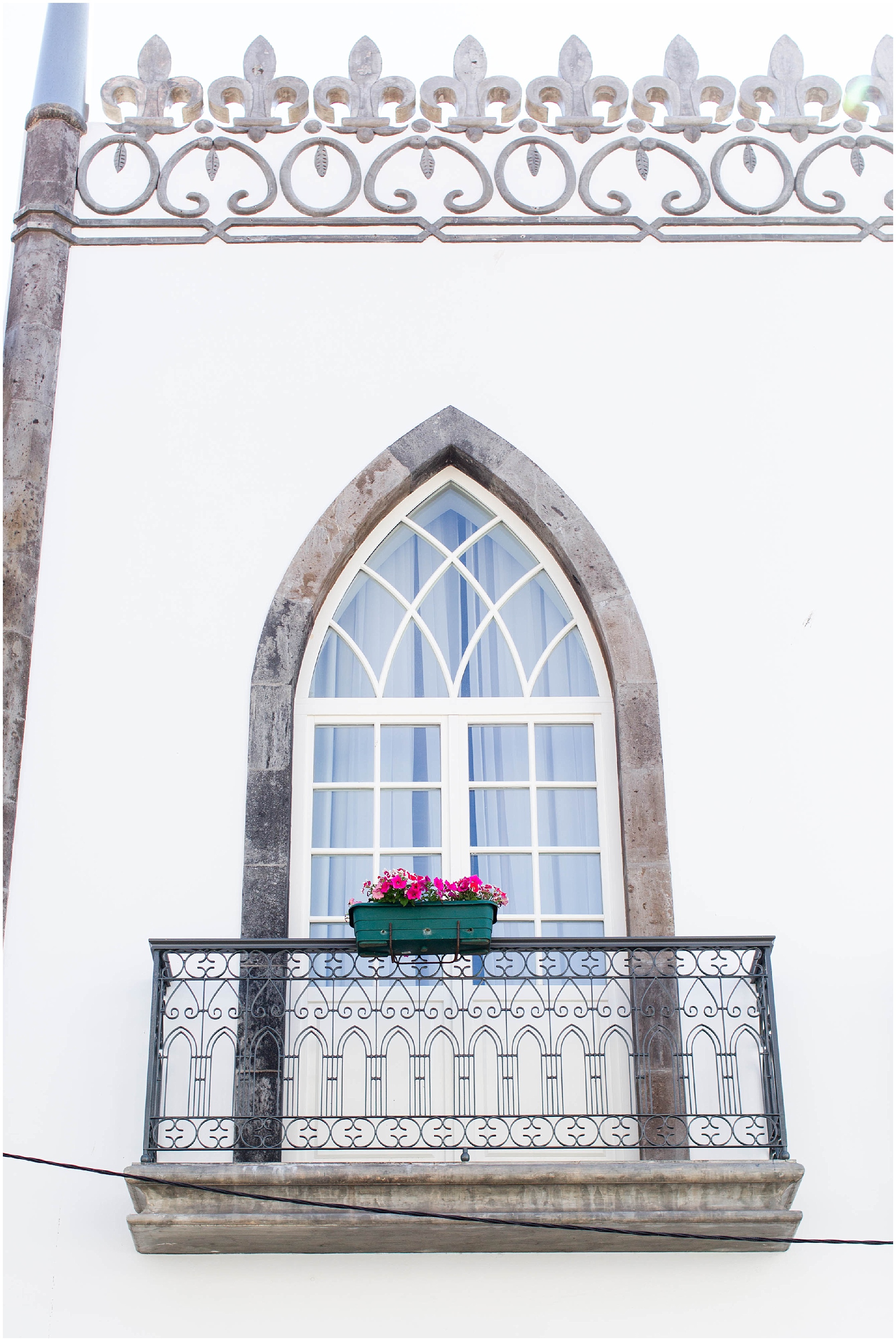
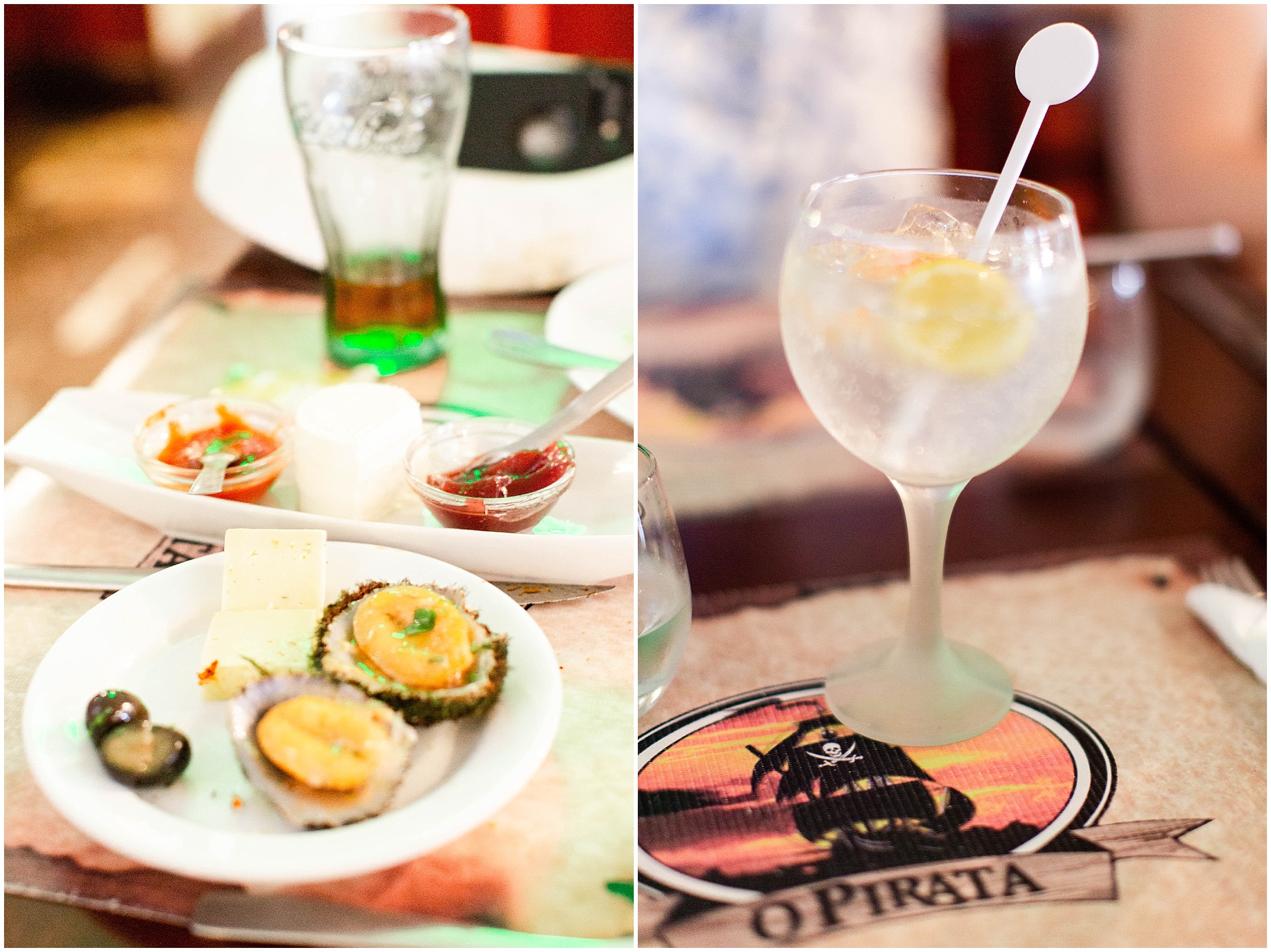 Left: Local Limpets (tastes like clams). Right: Azorian Gin and Tonics were amazing!
Left: Local Limpets (tastes like clams). Right: Azorian Gin and Tonics were amazing!
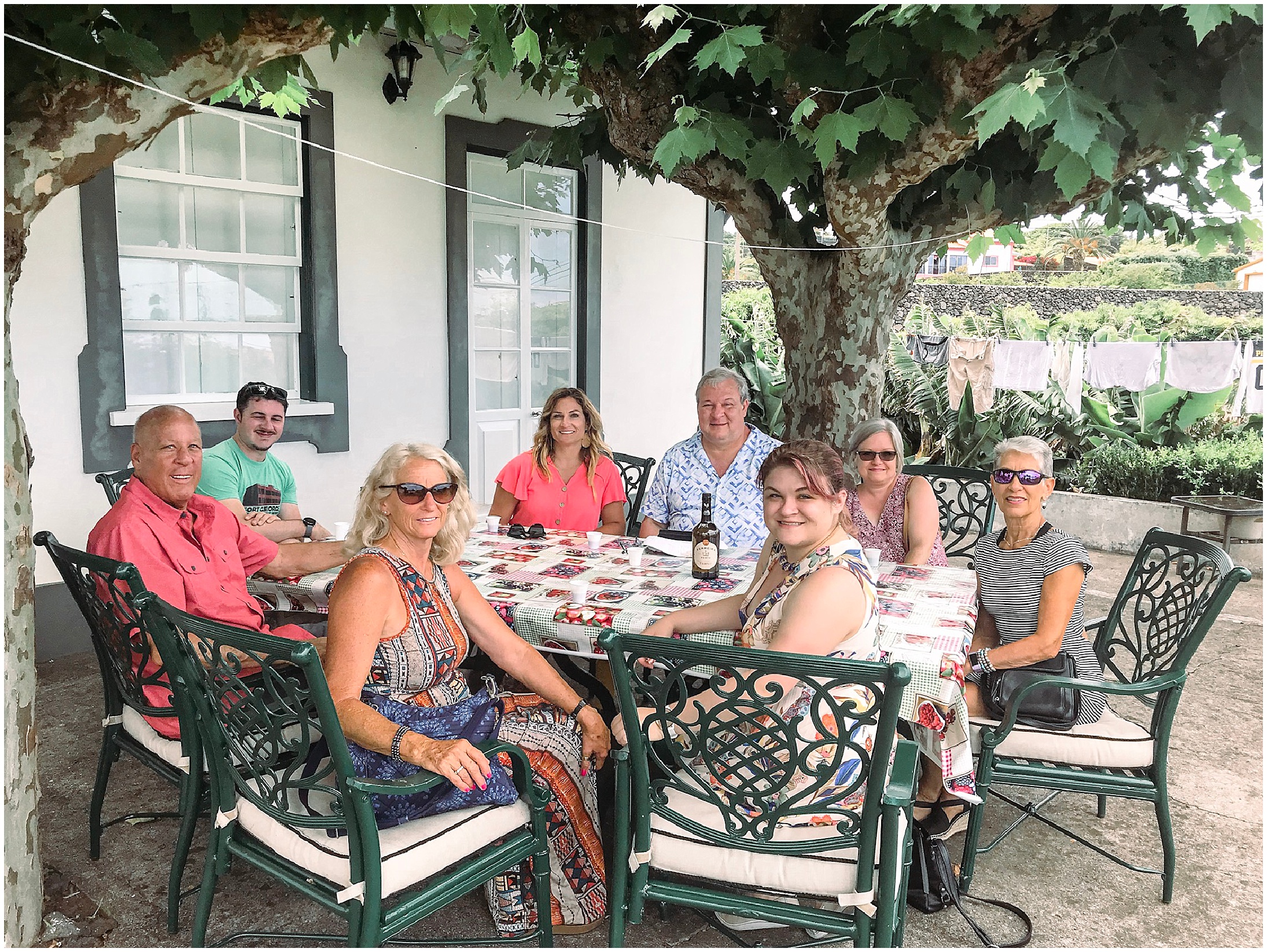
Hildaberto took us to his residence for an authentic Azorean experience.
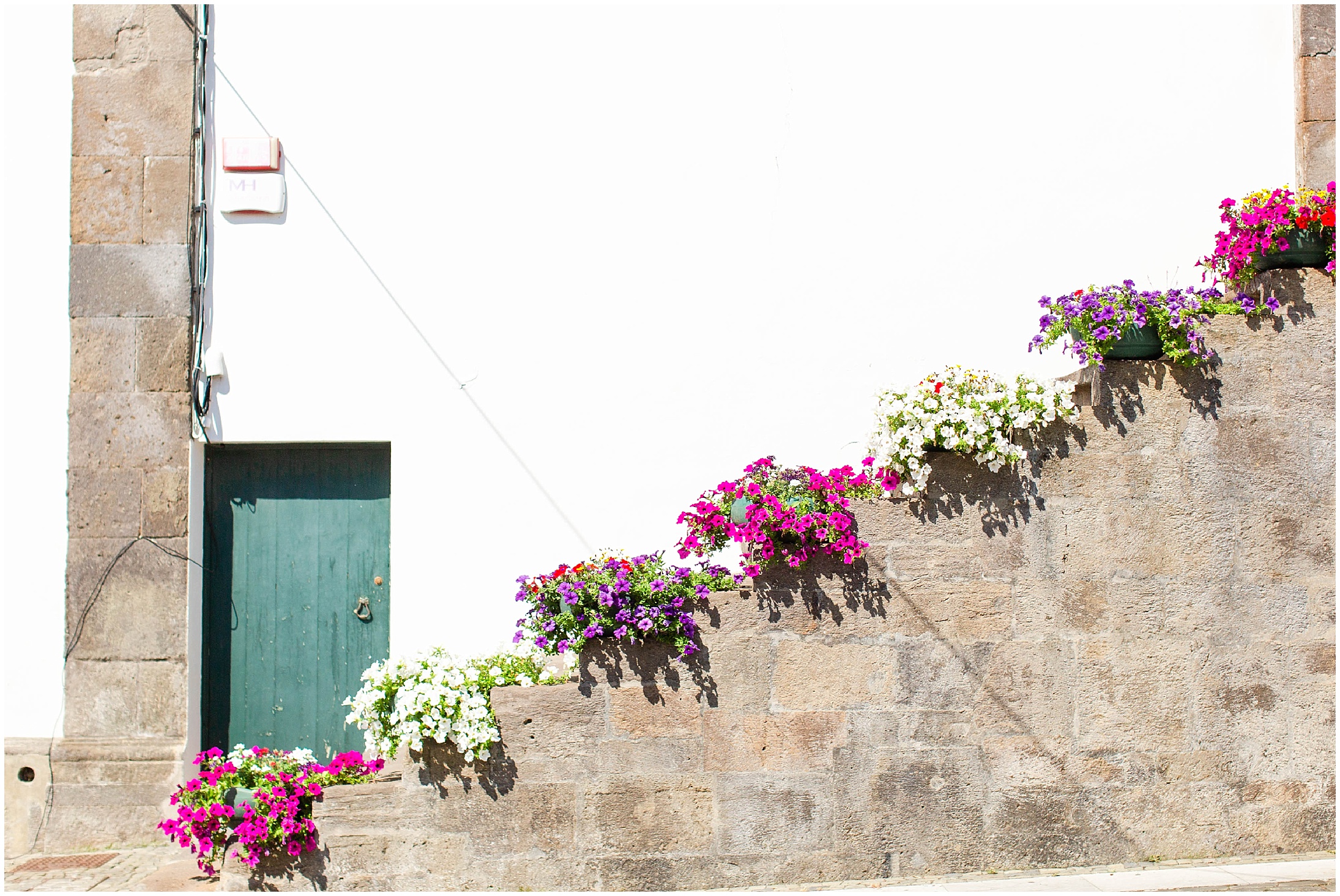
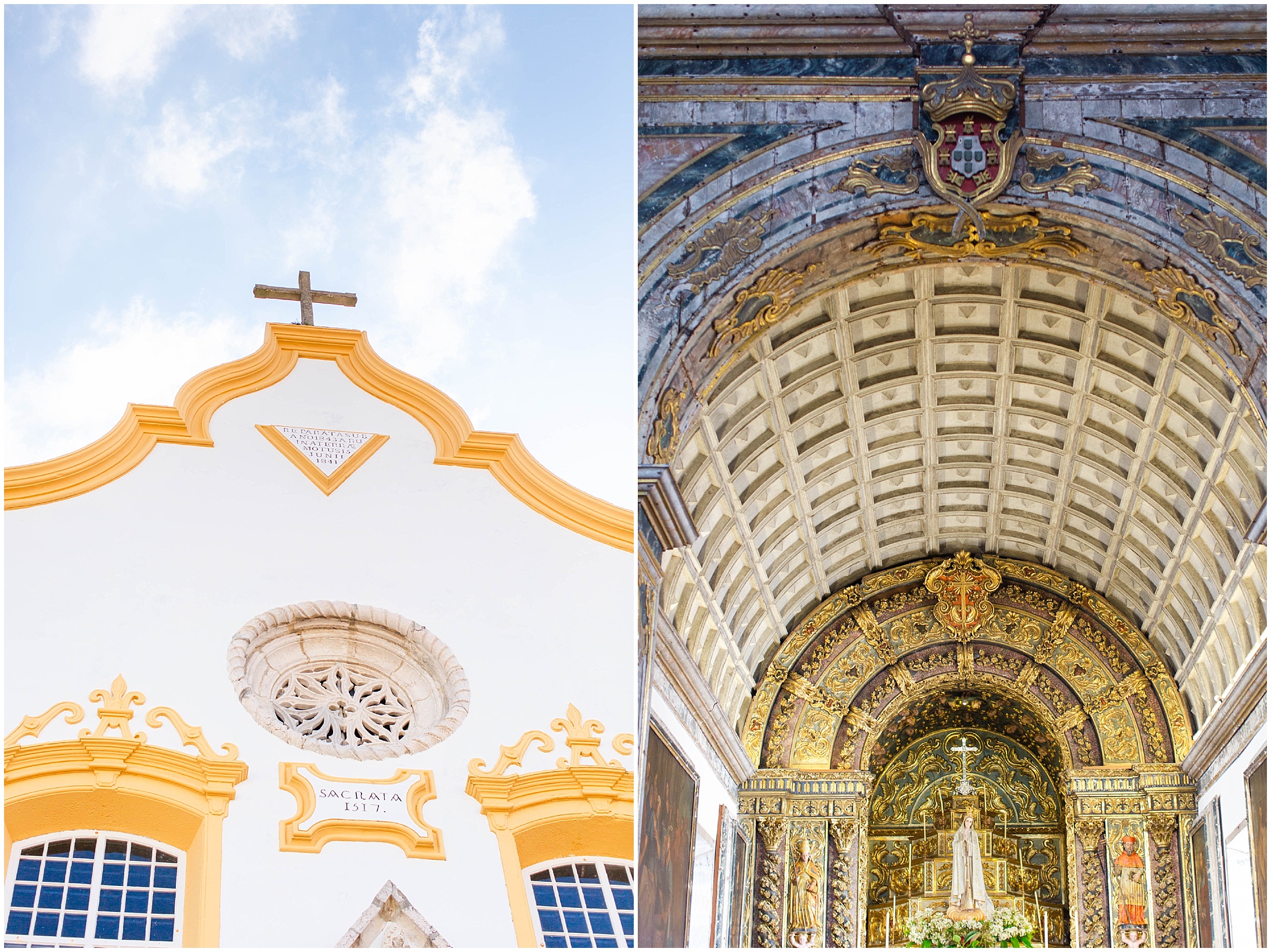
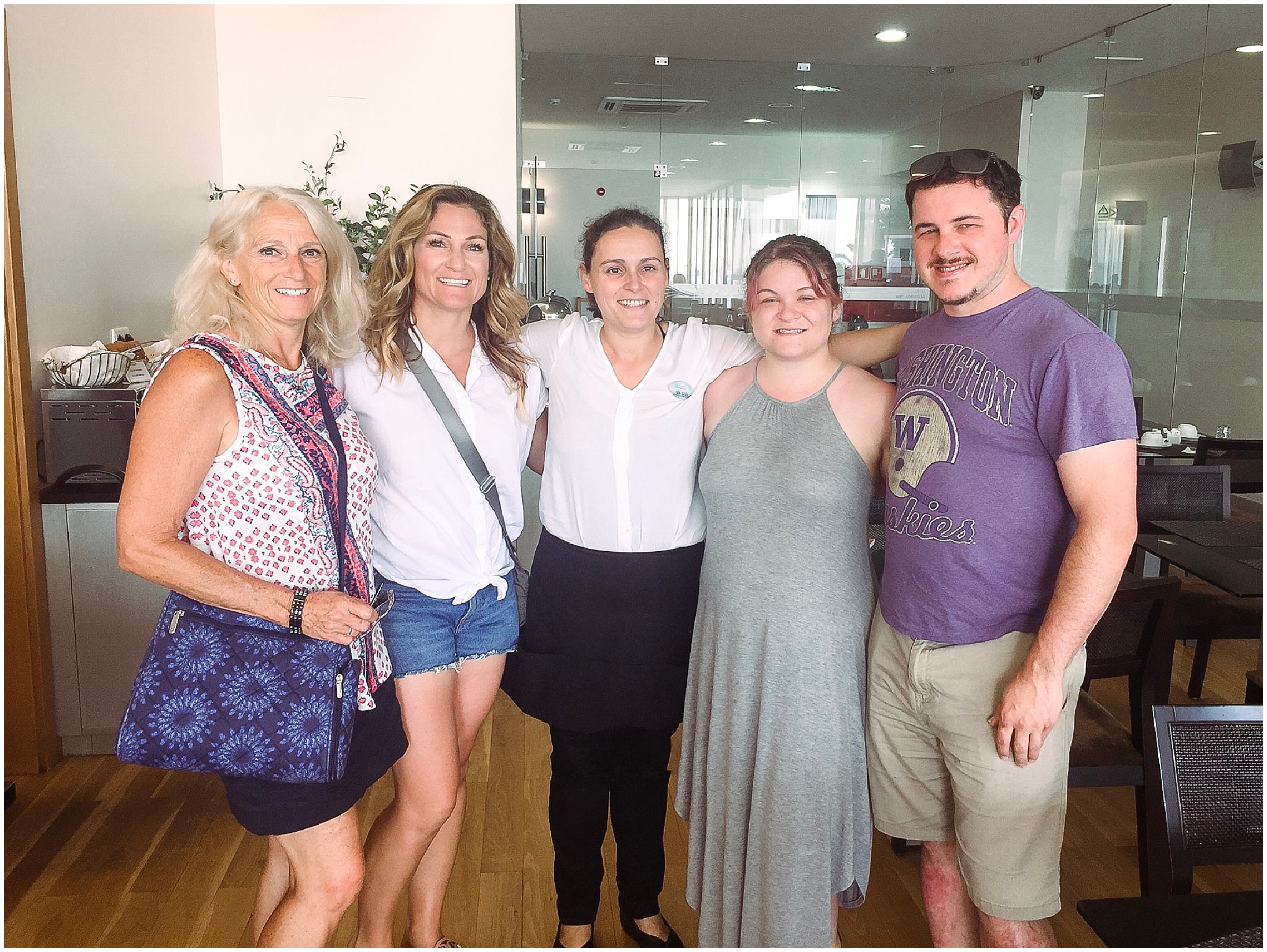
We then traveled to the island of Faial. Tia, my aunt, had done lots of research to try to find the Neves Hacienda. To our surprise, the waitress at breakfast did some research and shared that the home was now a professional school. (Picture above.) We were delighted! The taxi driver that picked us up from the airport shared that he knew where the school was located, and that his son had attended the school! He drove us there after we dropped off our luggage at the hotel. This is the view from my family’s home, now turned school.
We stayed in a hotel that used to be a fort, Pousada Forte De Horta. The surroundings were built with lava fort walls, and cannons were placed in the window openings. The pool was located in the courtyard with a limited view of the bay on the other side.
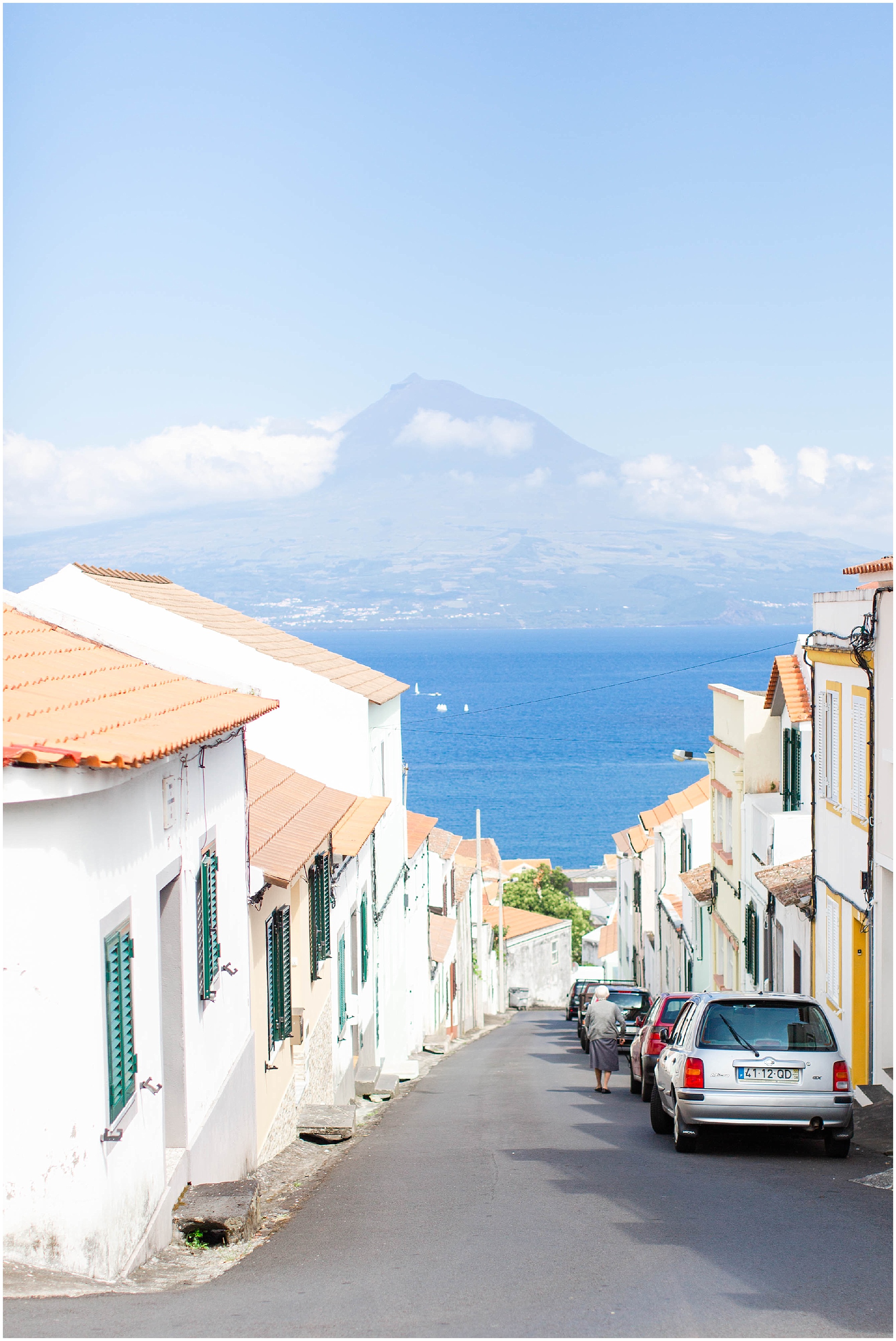
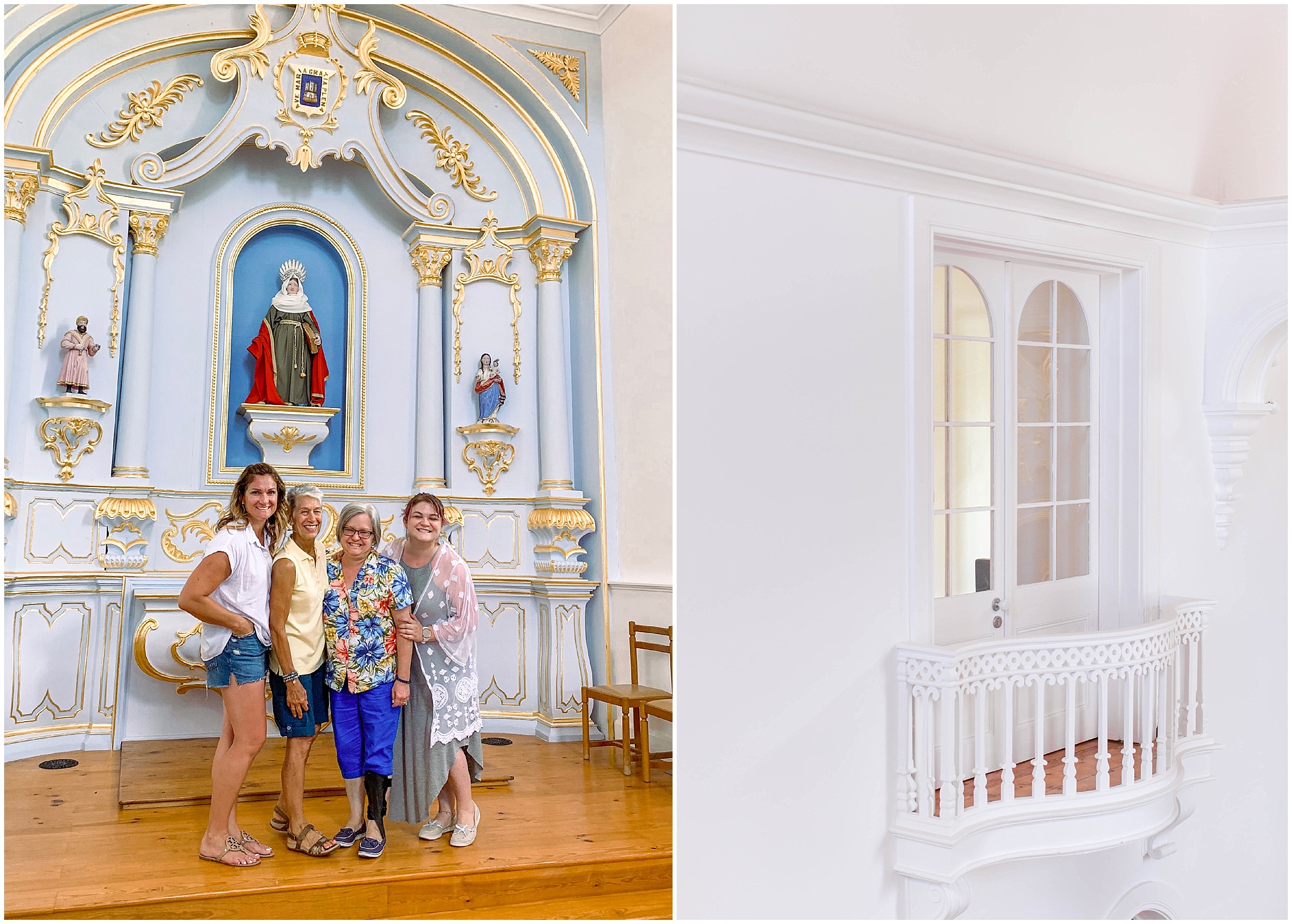
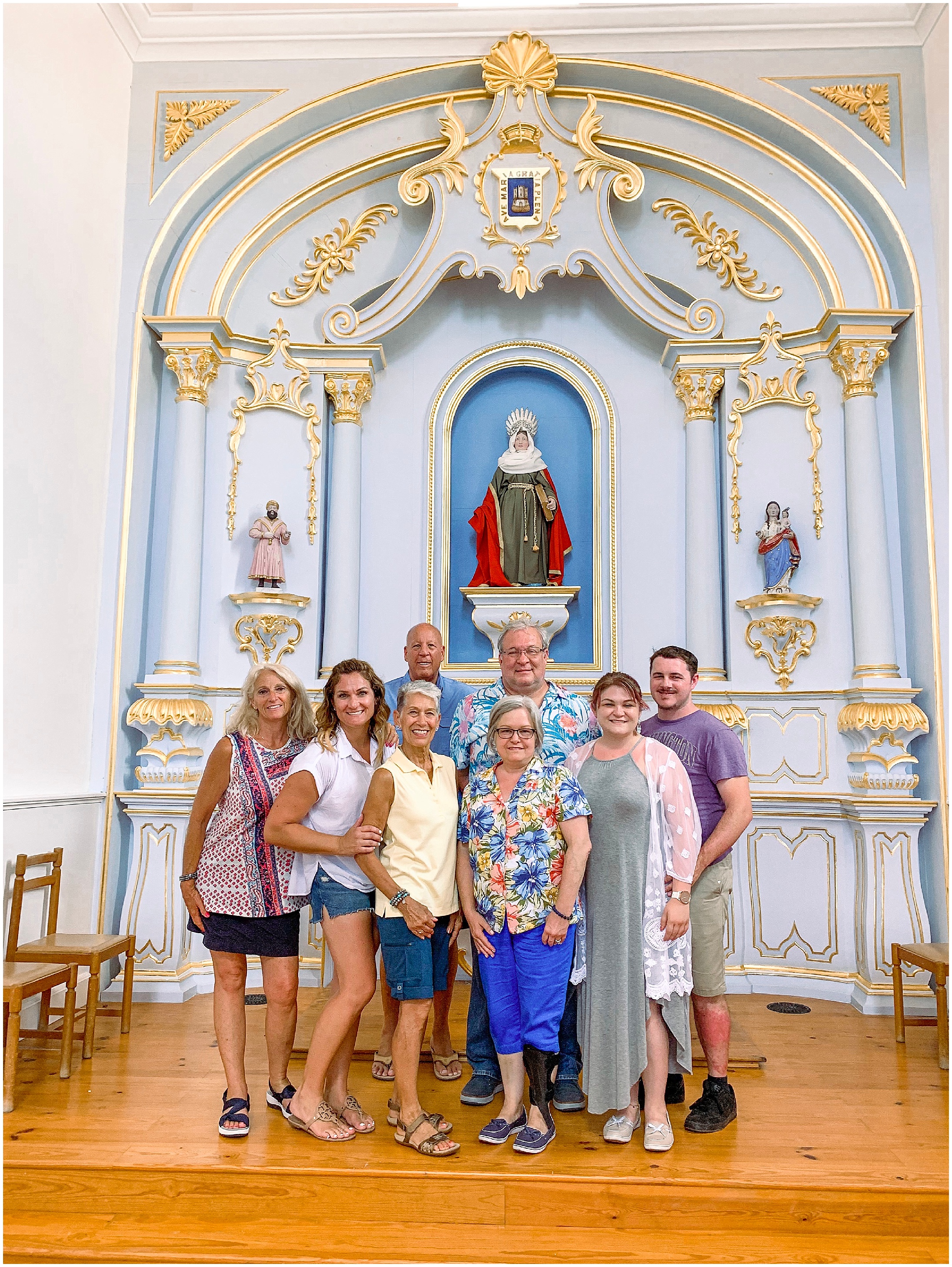
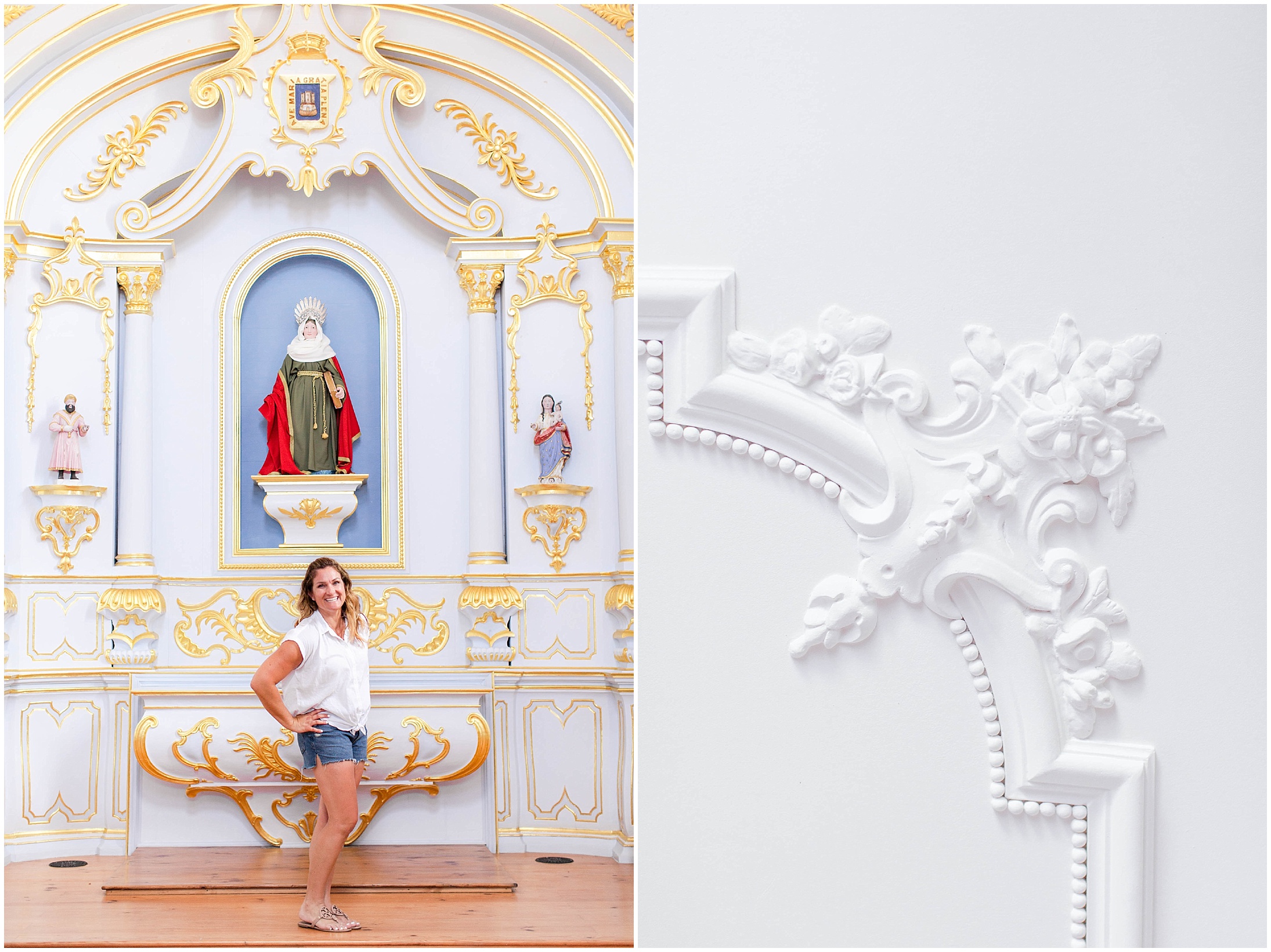
The original cathedral was still intact. The house had been remodeled for classrooms and offices.
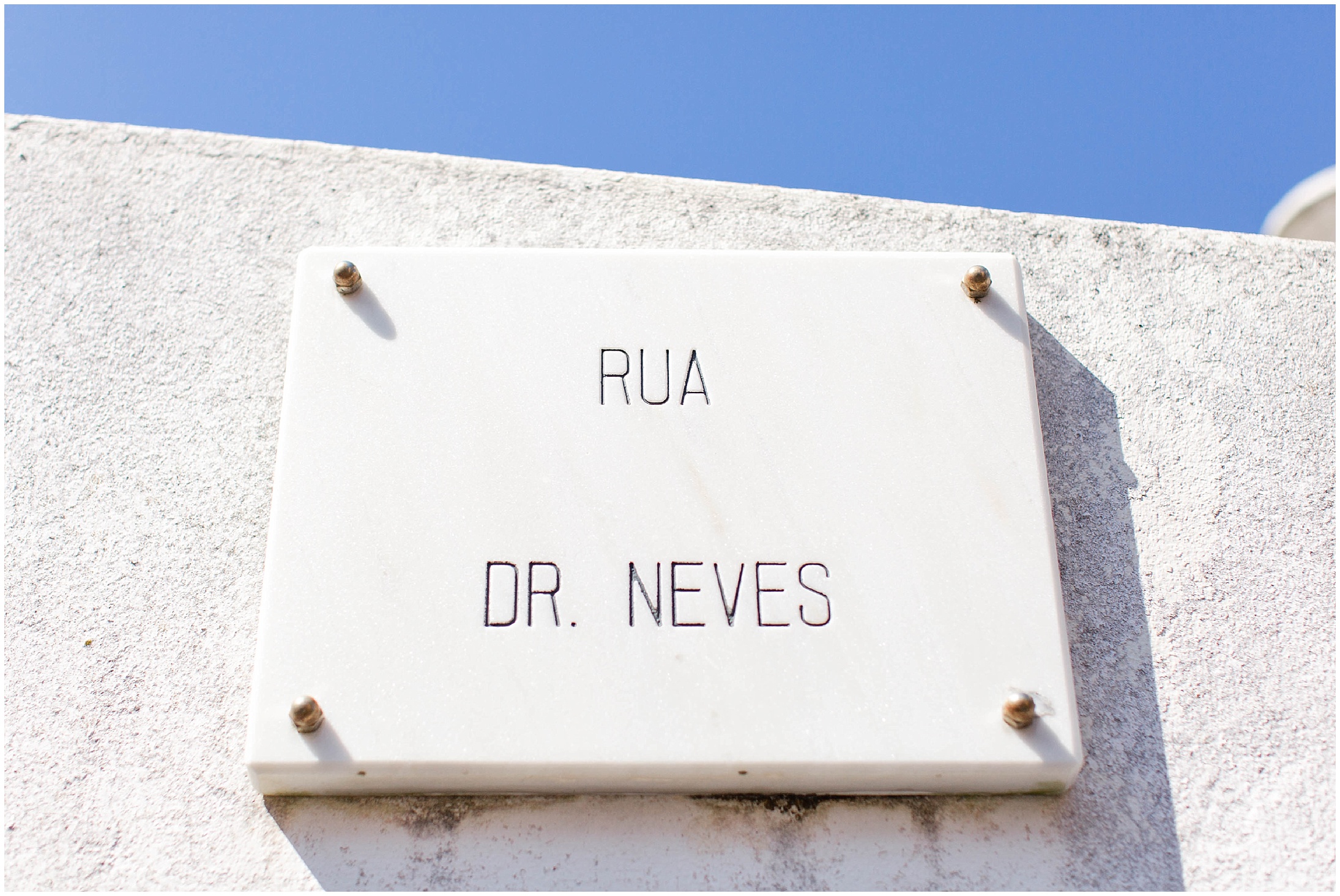
Road Dr. Neves (my maiden name)
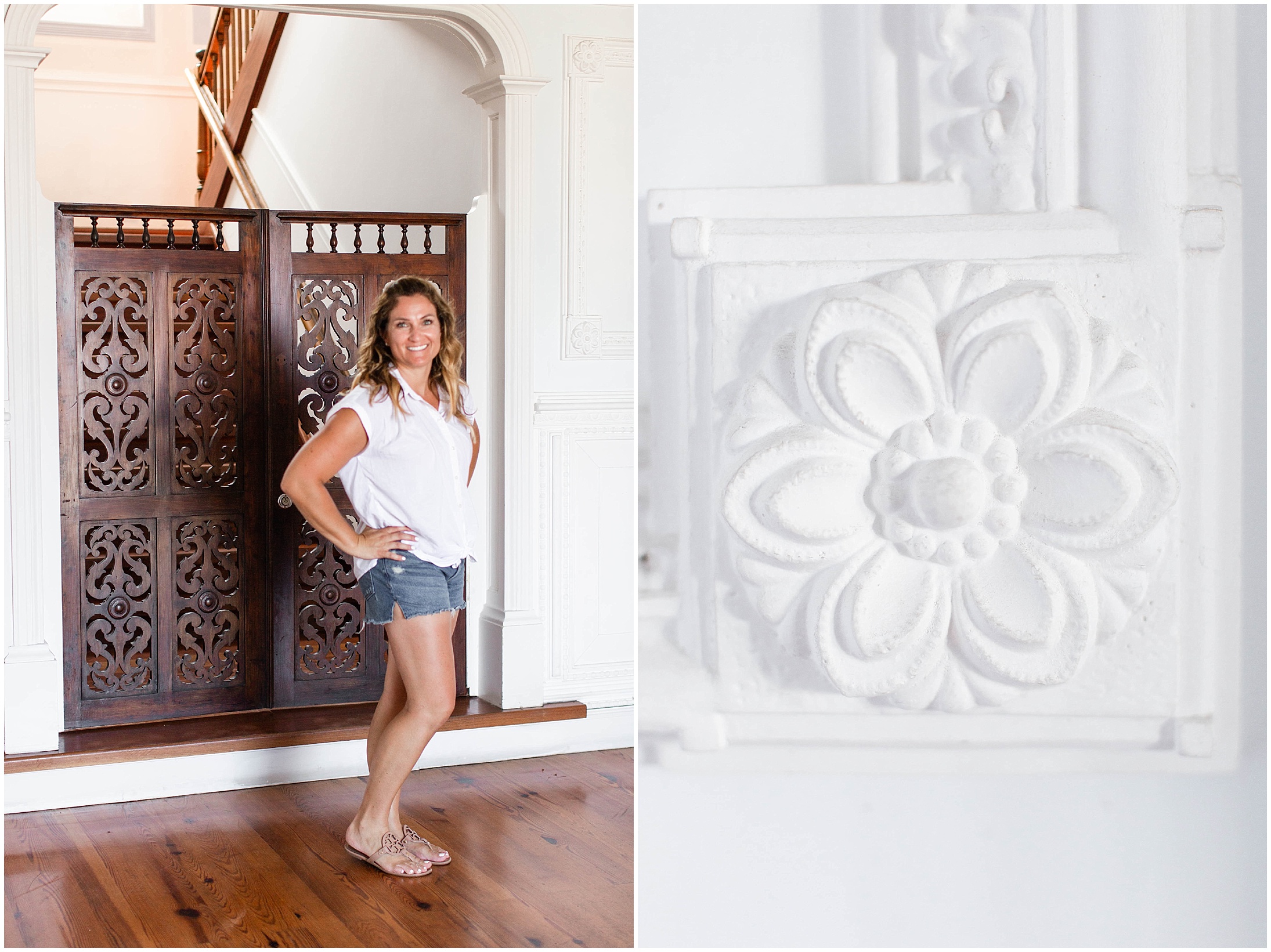
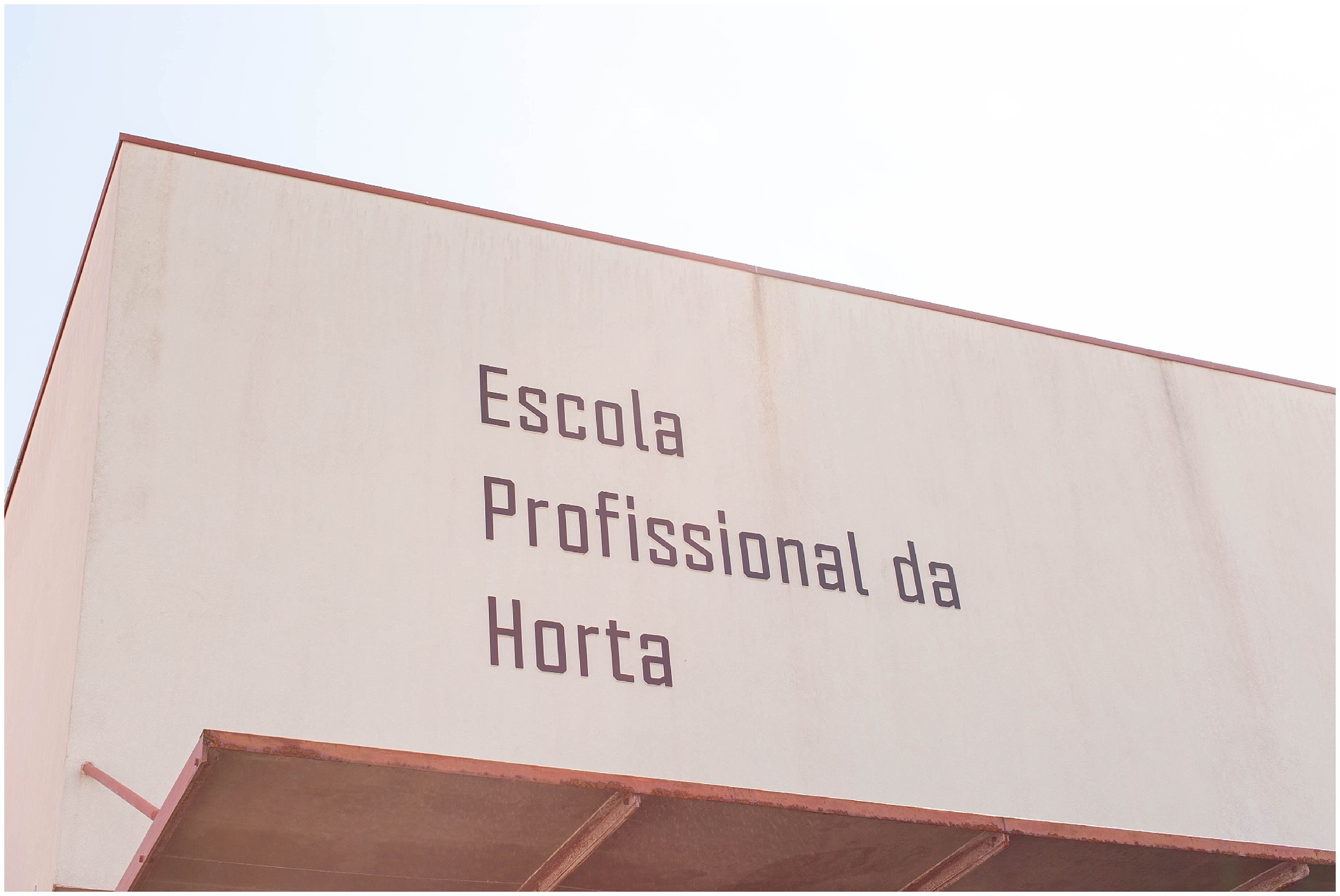
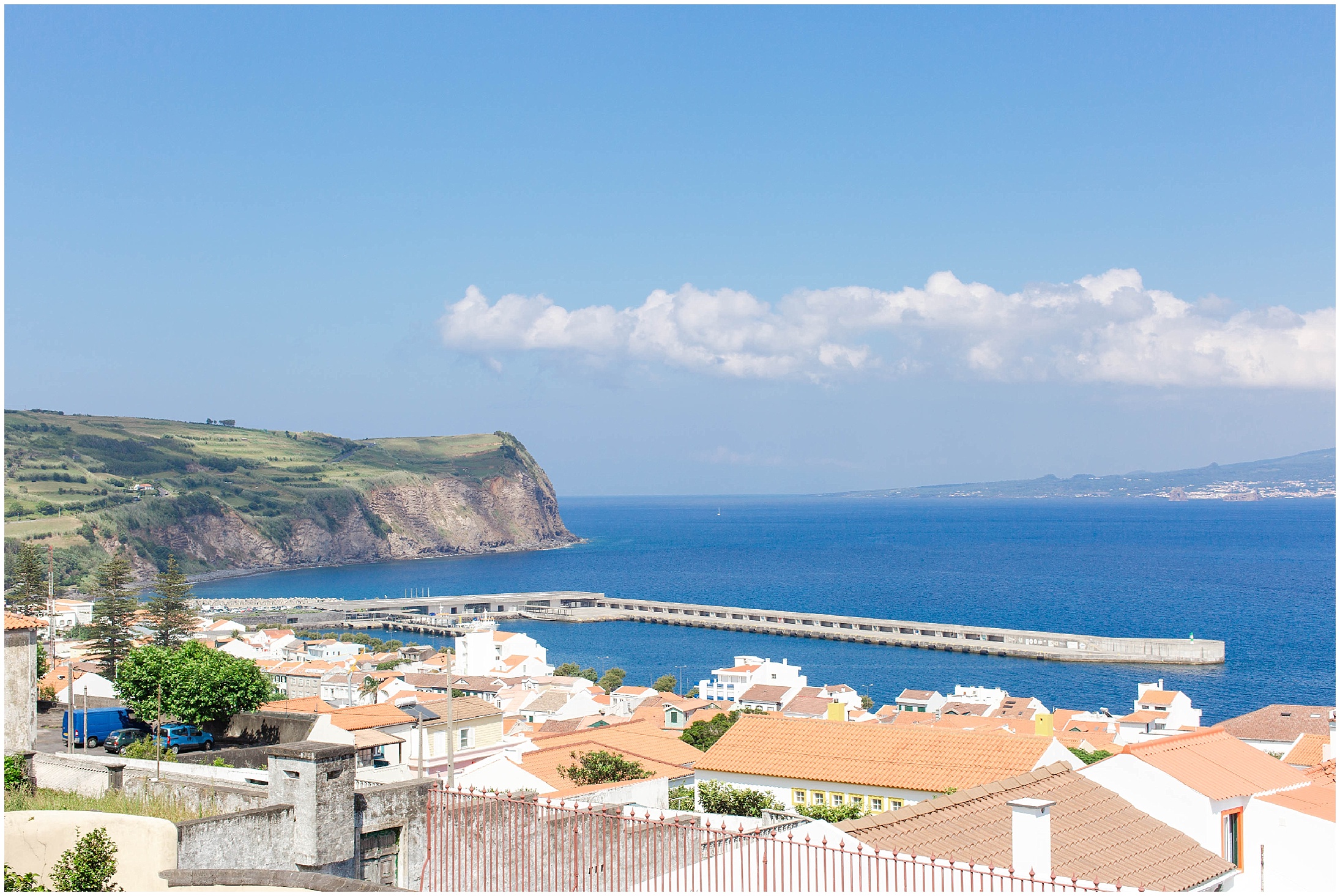
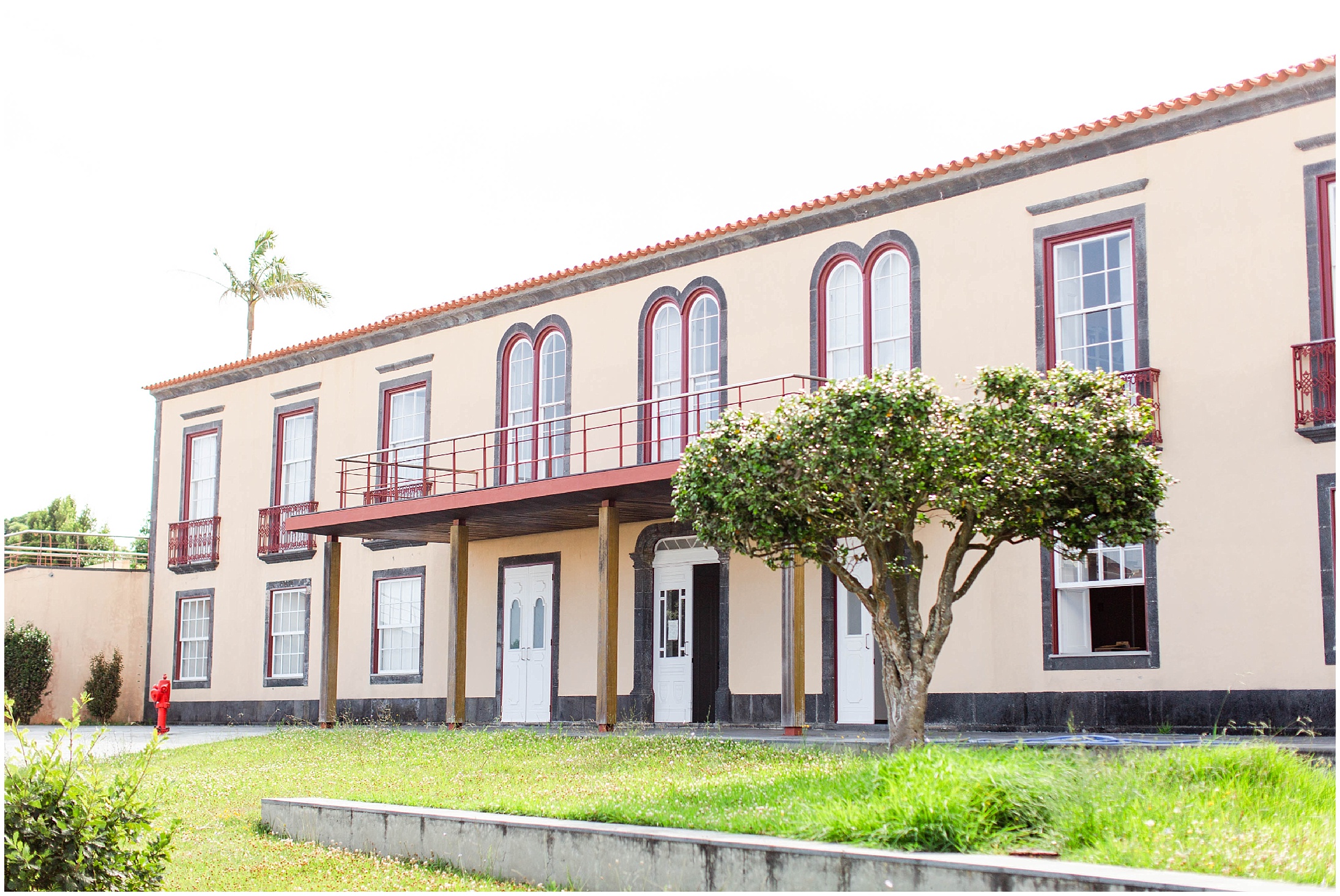
Neves Hacienda in Horta, Faial.
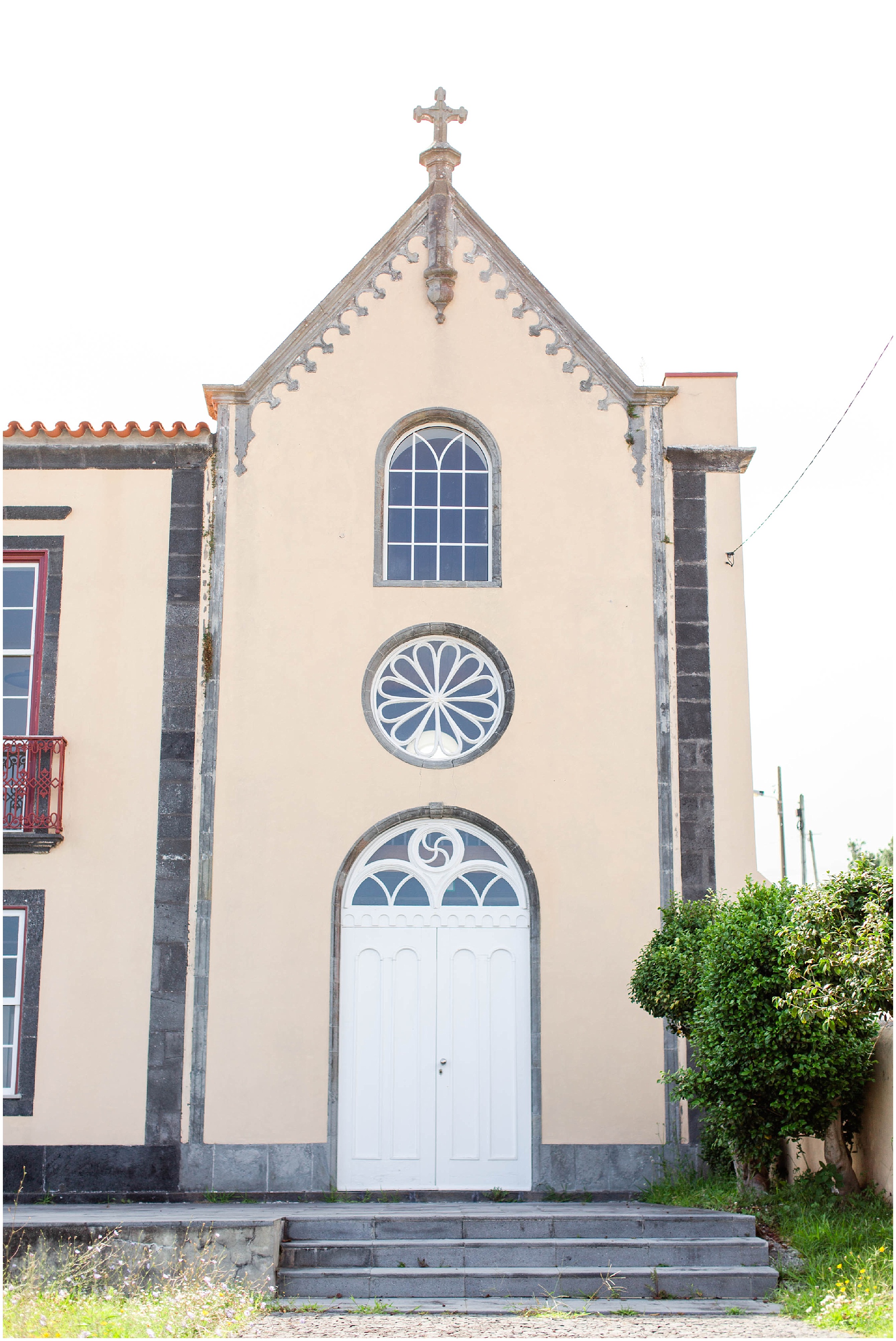
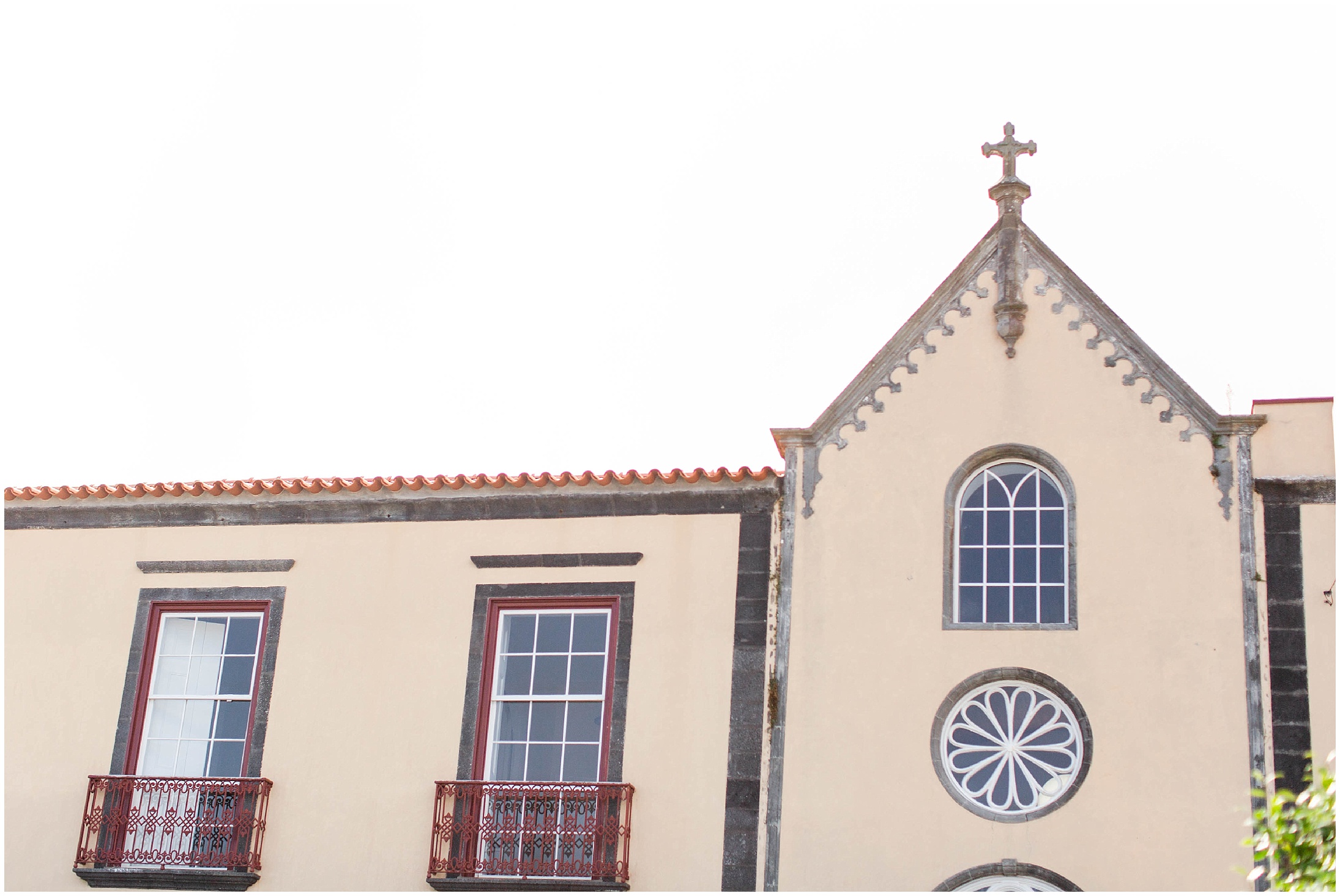
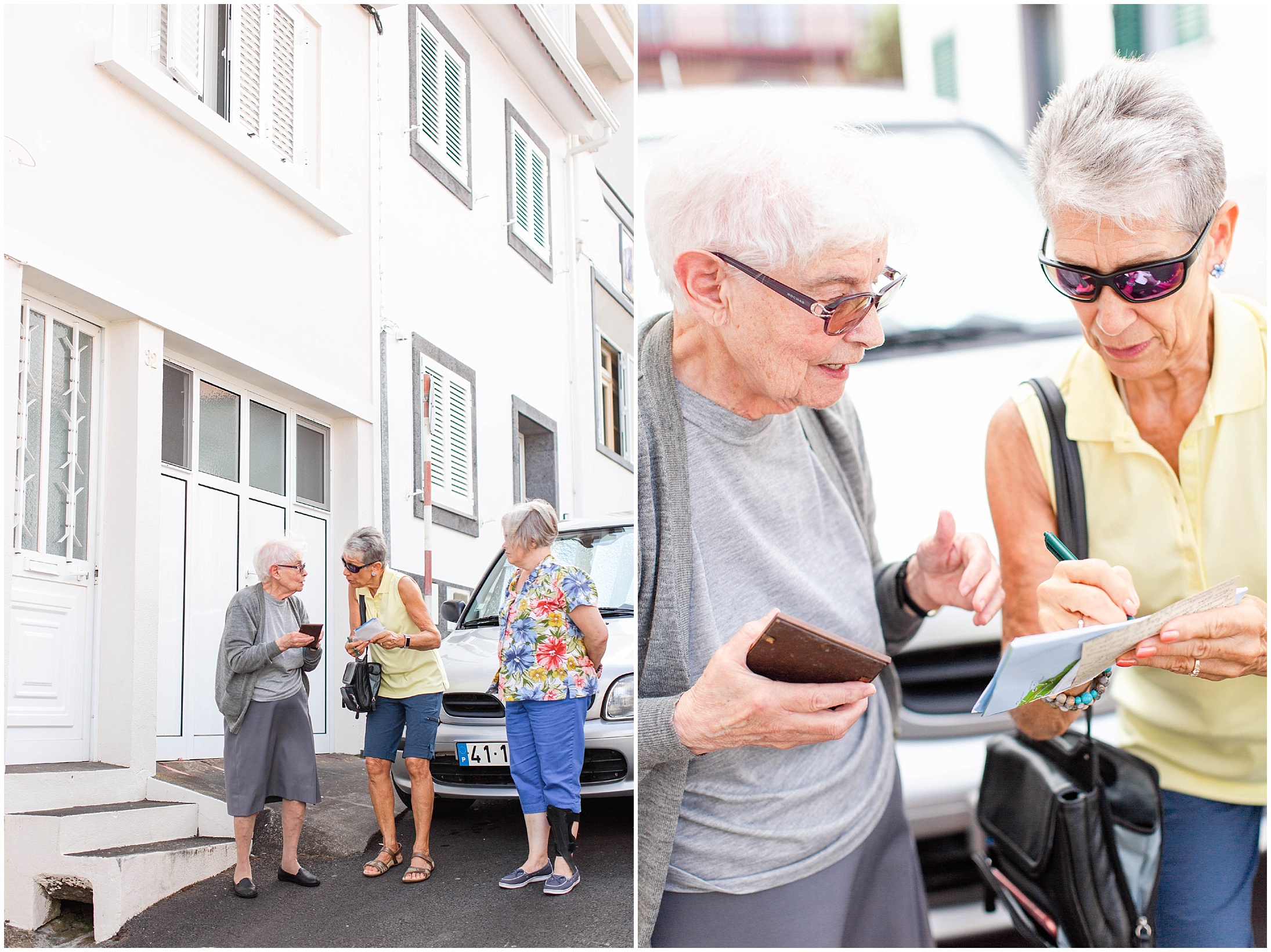
Tia learned that neighbors in the area may have known our ancestors. She stopped this beautiful lady and asked about the home. I wish I could have followed their Portuguese conversation. This neighbor knew Dr. Neves and was friends with his wife. She asked us to wait a moment. When she returned, she had a picture of Maria Antonieta Andrade. The boy with her was Ernesto Duarte de Andrade, the neighbor’s husband at age twelve. She was happy to share that Dr. Neves had the first automobile on the island and had a chauffeur to drive them around. Dr. Neves wanted the home to be turned into a maternity ward, but a school is what is there today.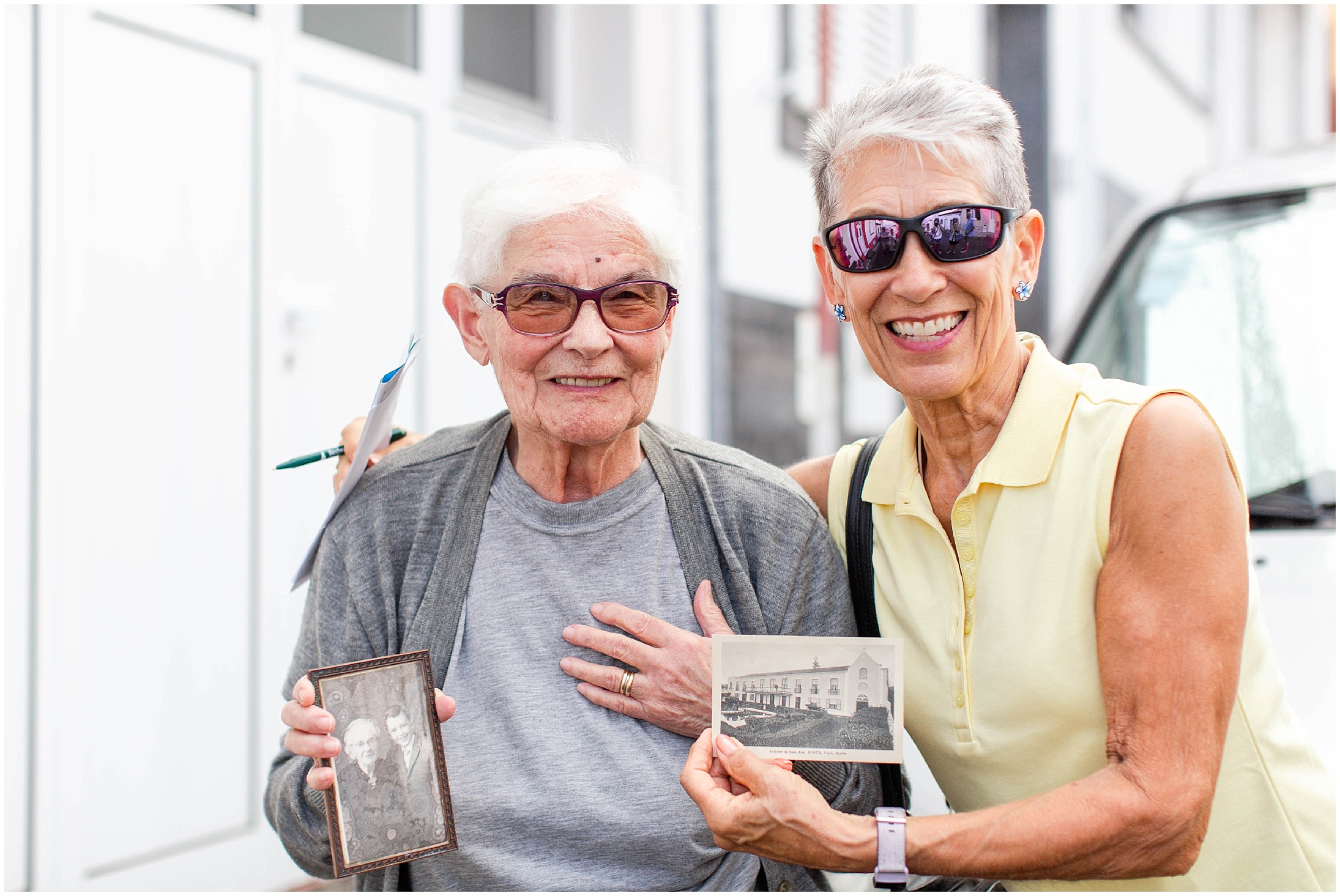
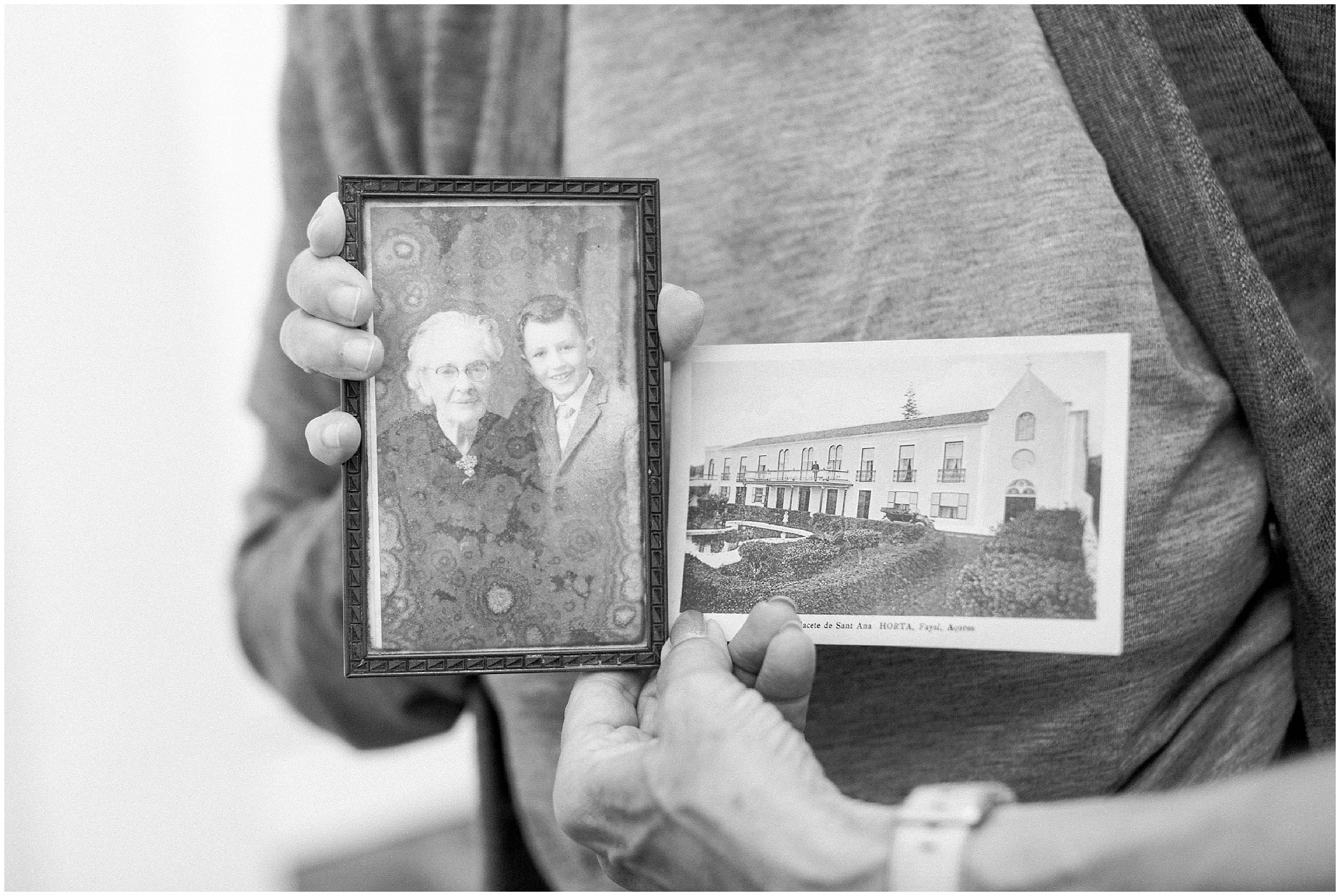
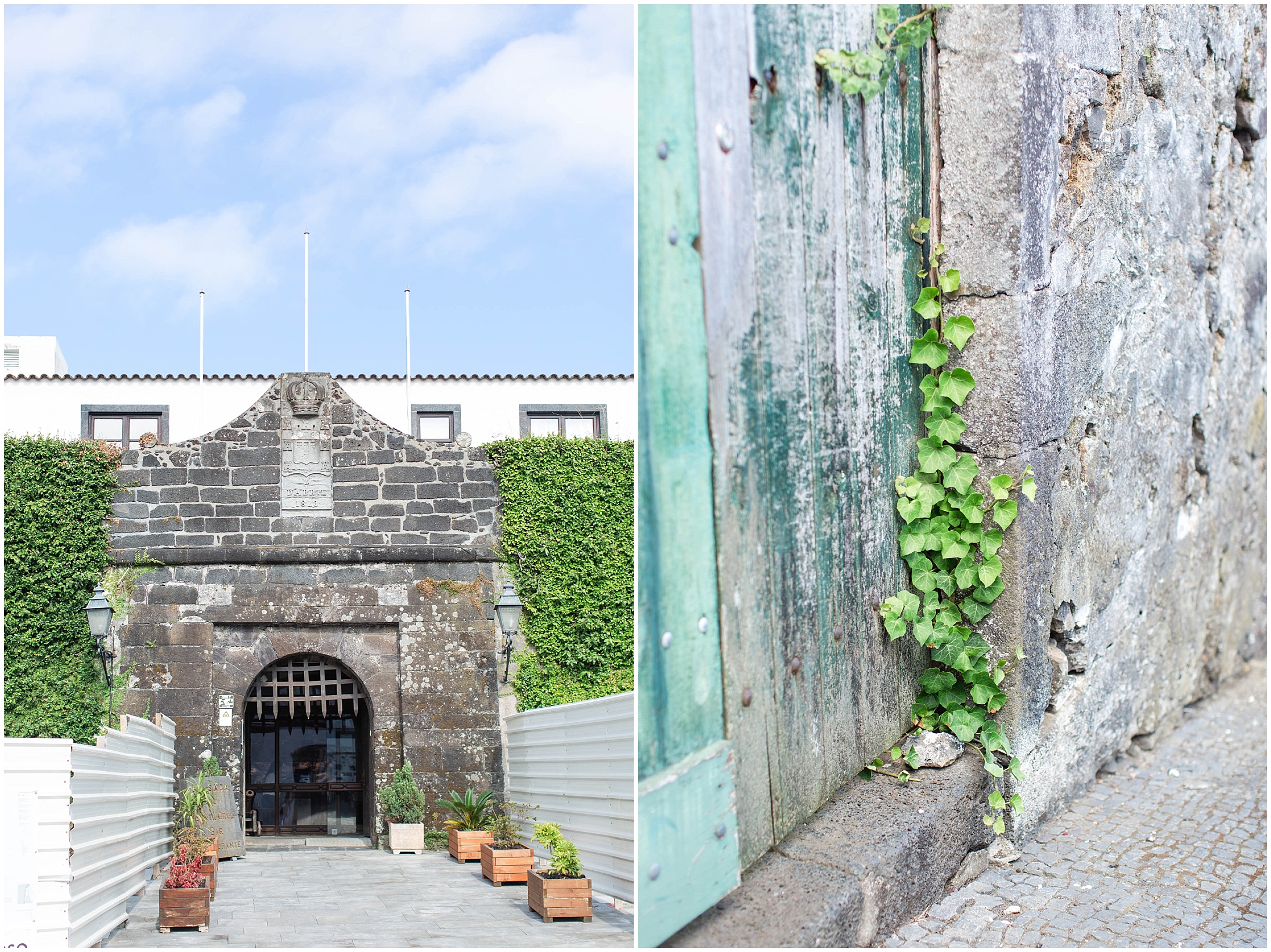
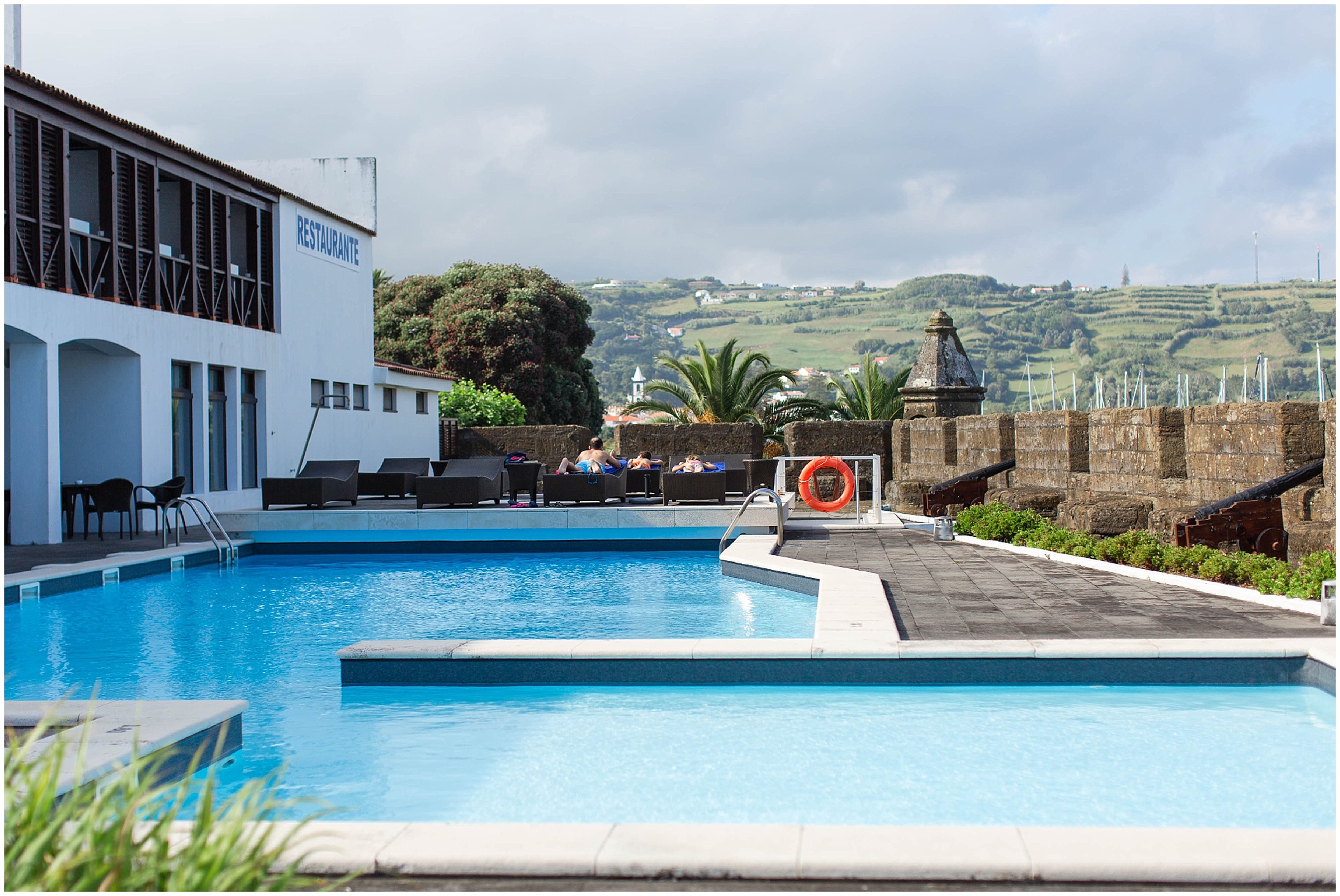
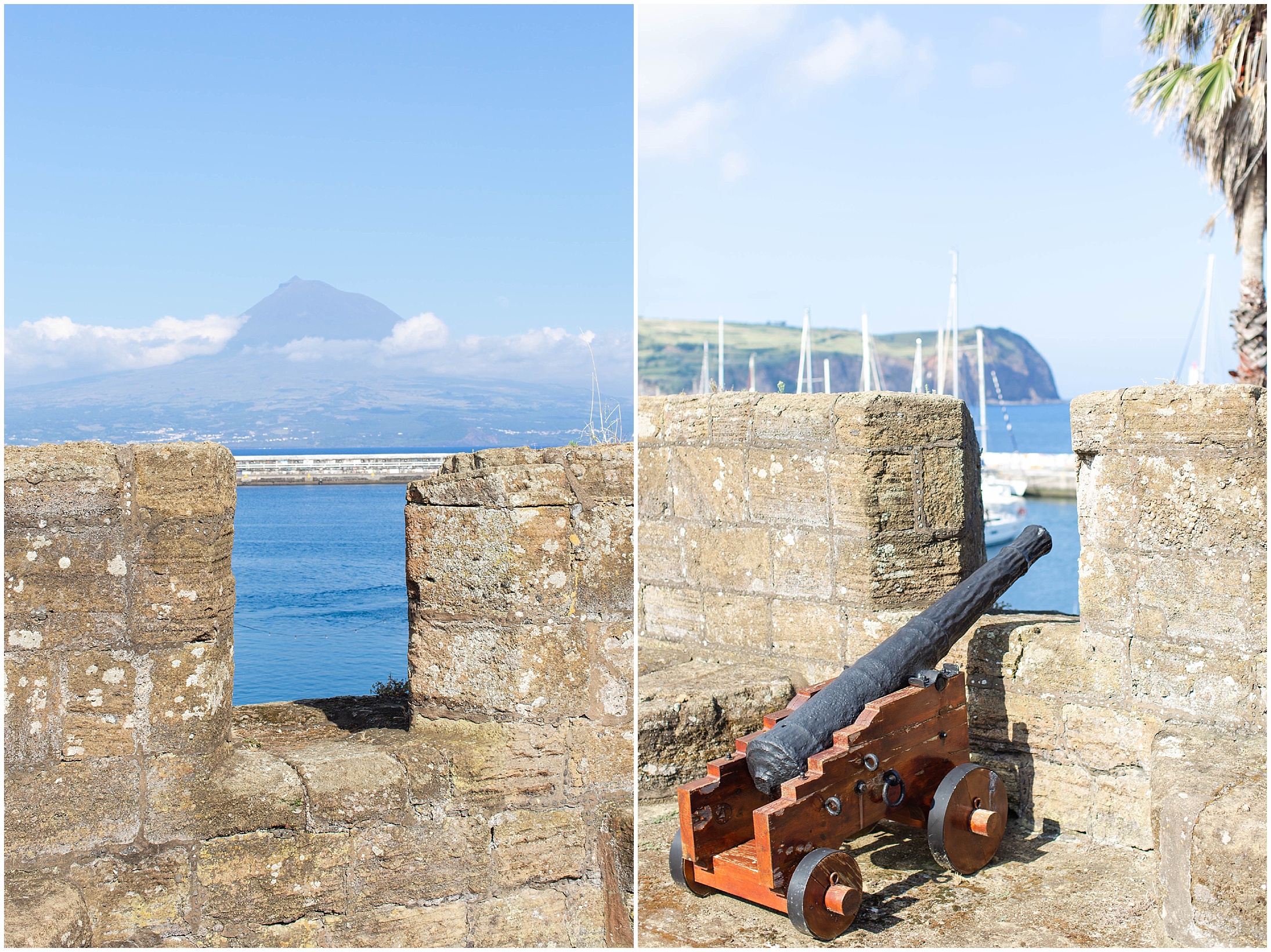
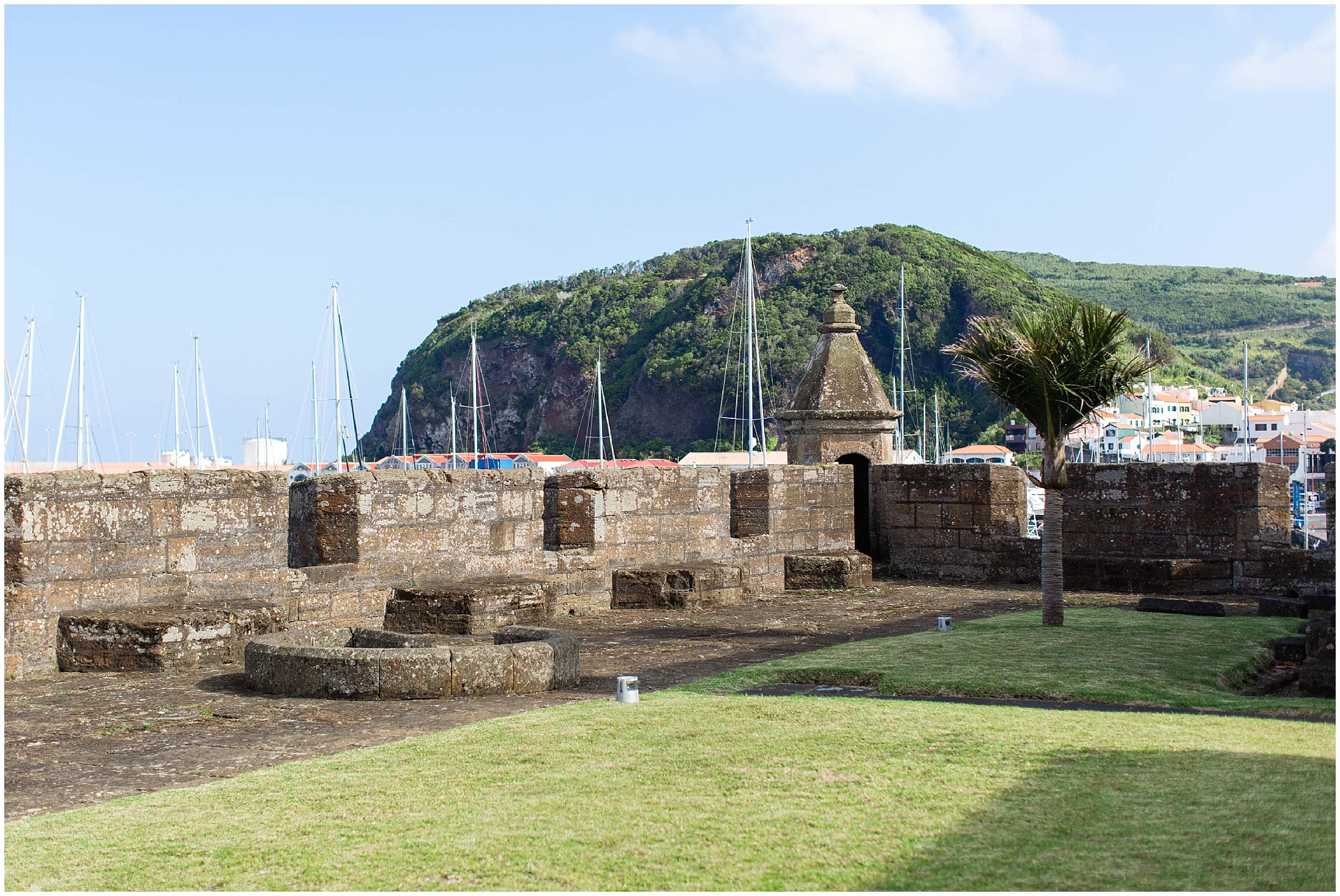
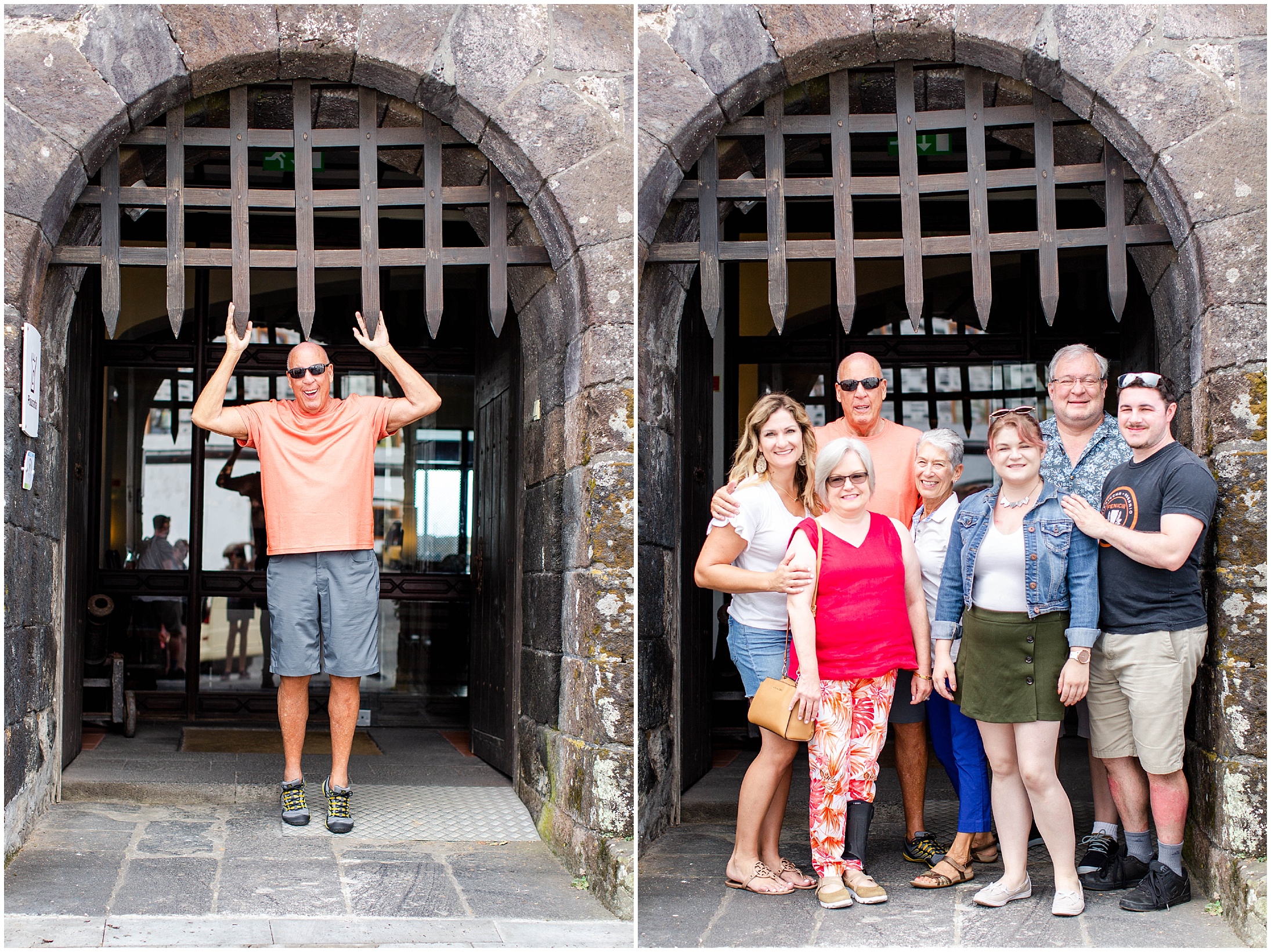
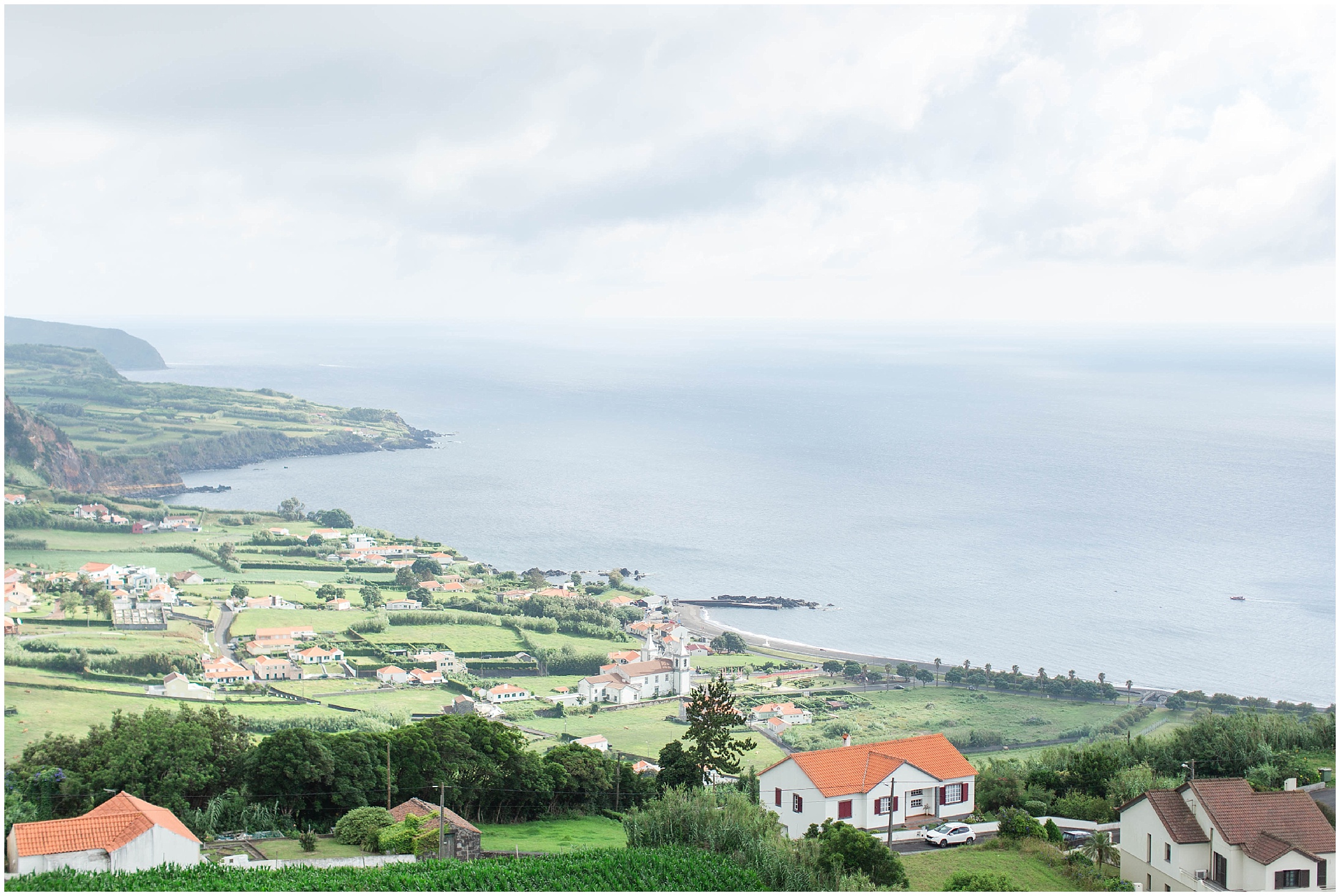
It is hard to see, but just in front of the boat in the water are two dolphins!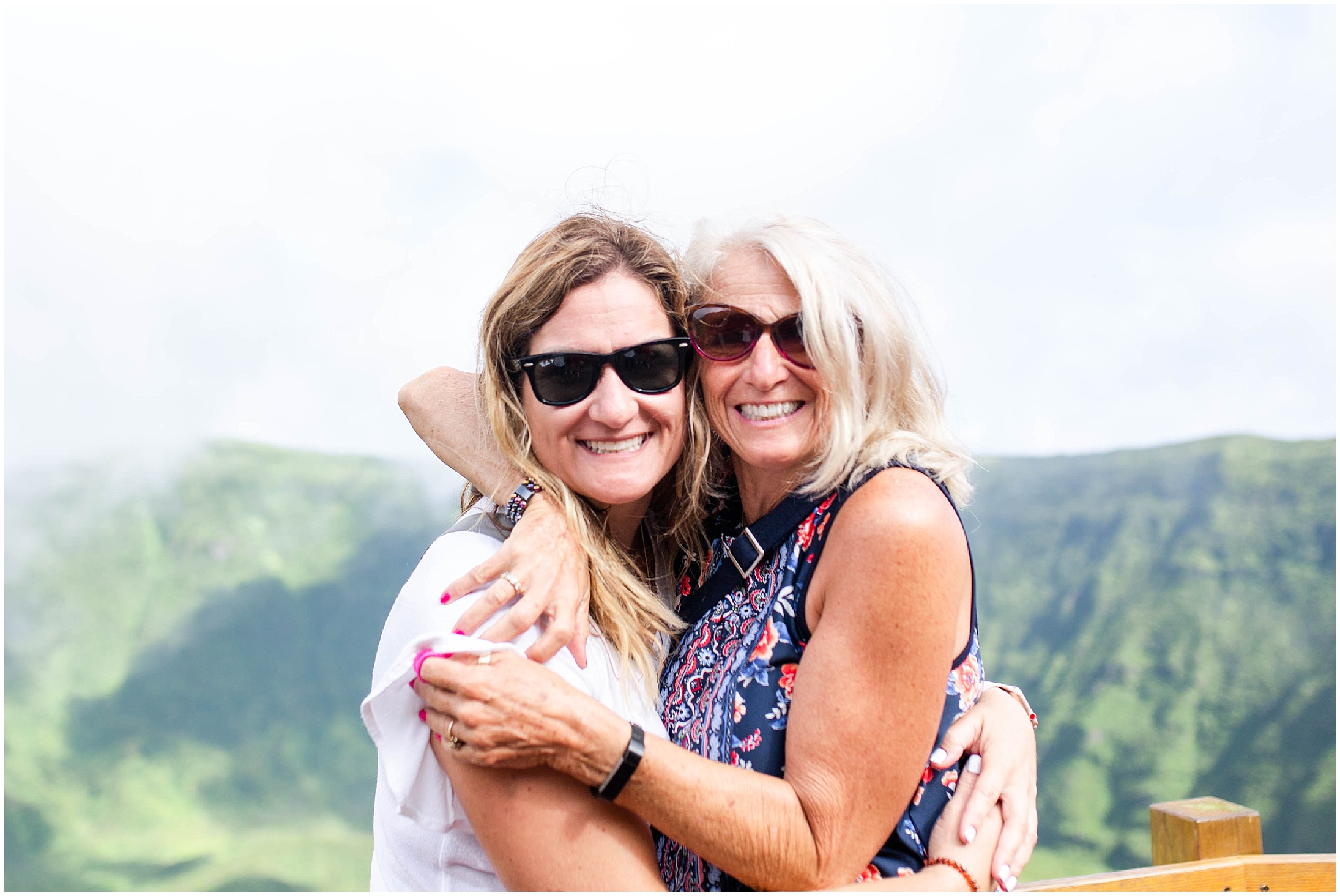
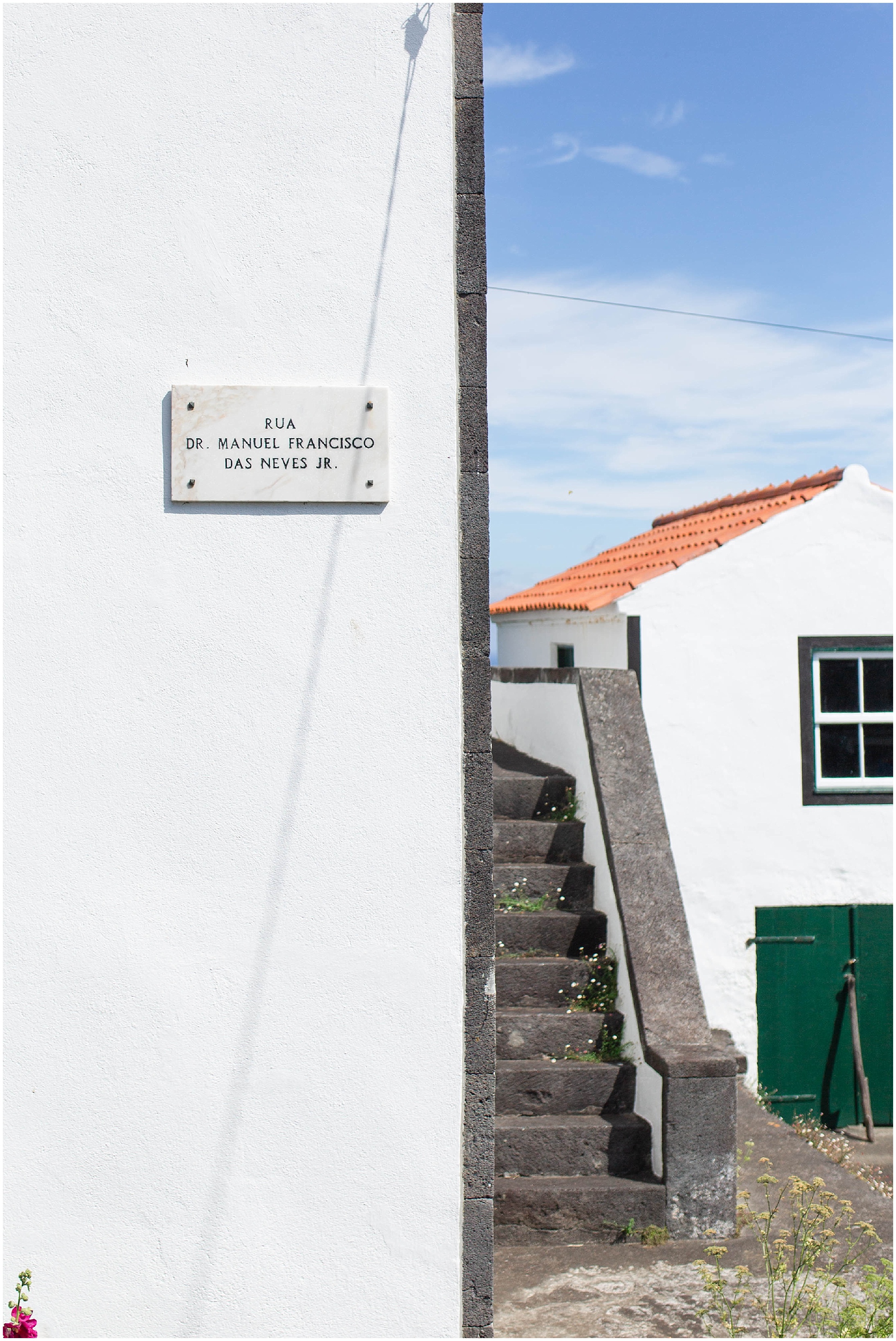
Another road dedicated to Dr. Neves.
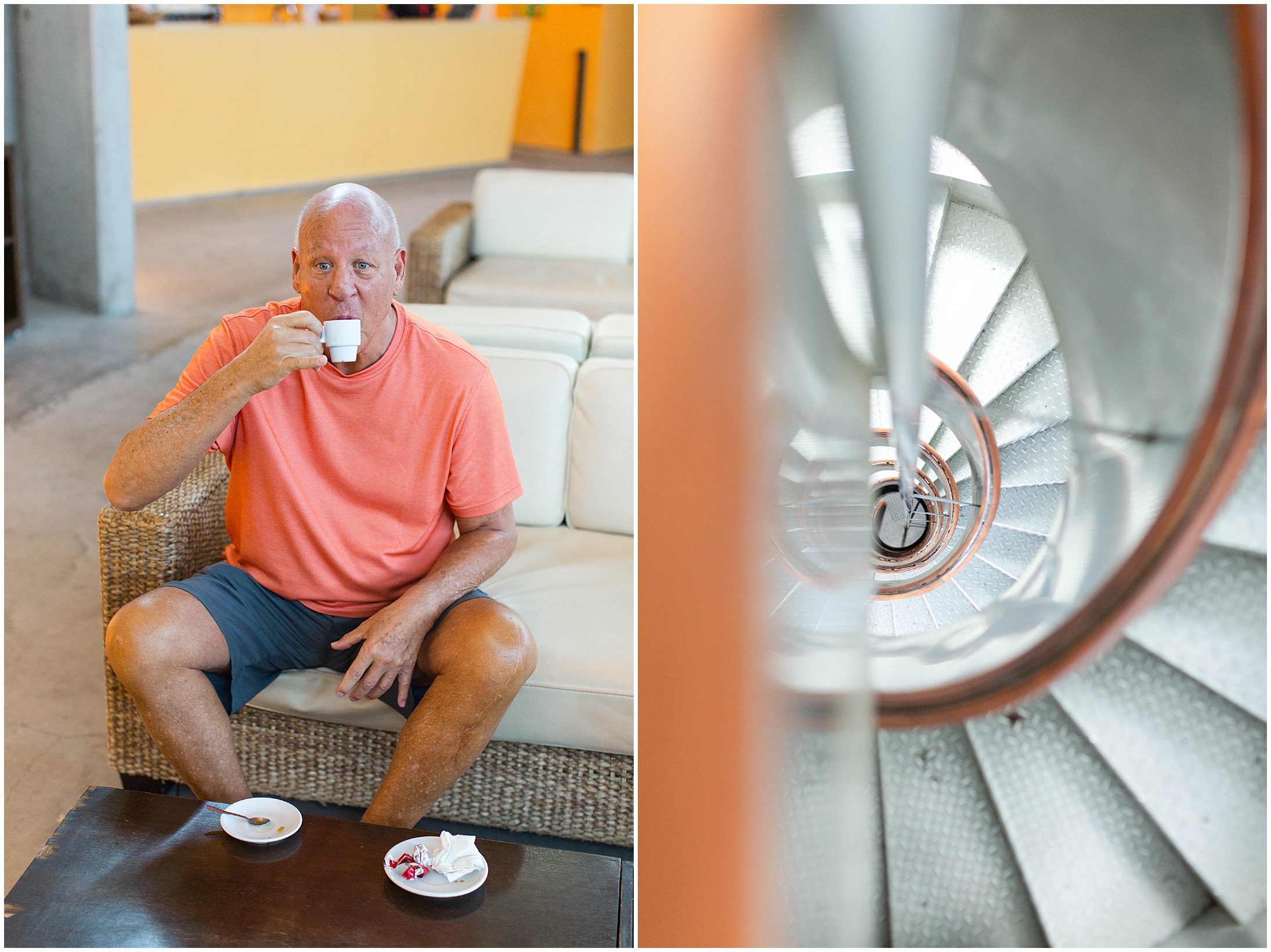
We traveled to a lighthouse and location of a volcanic eruption. Left: Uncle Devon is enjoying his first espresso. Right: Steps leading up to the top of the lighthouse.
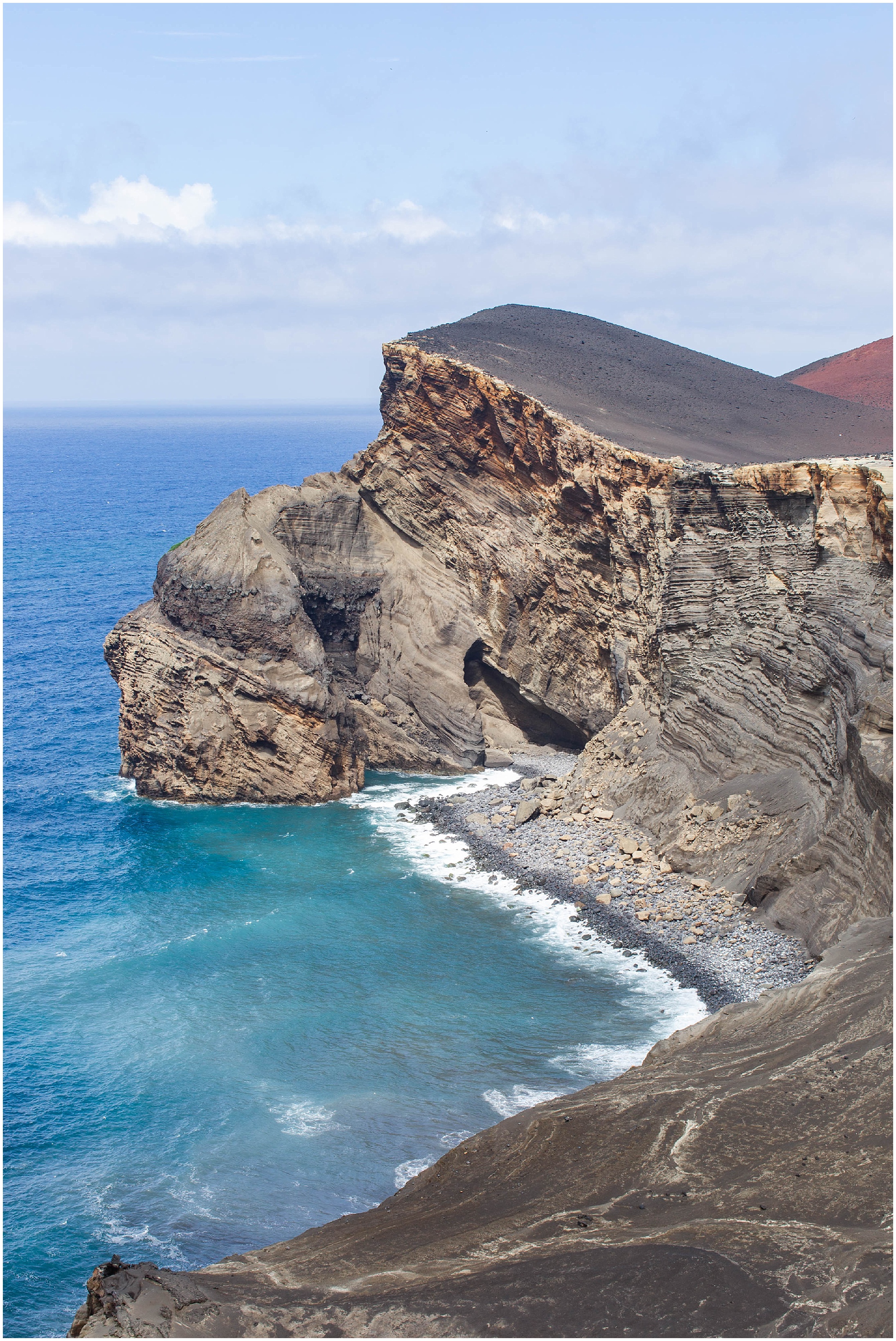 Notice that there is no vegetation yet. The land needs more time post volcanic eruption to grow vegetation.
Notice that there is no vegetation yet. The land needs more time post volcanic eruption to grow vegetation.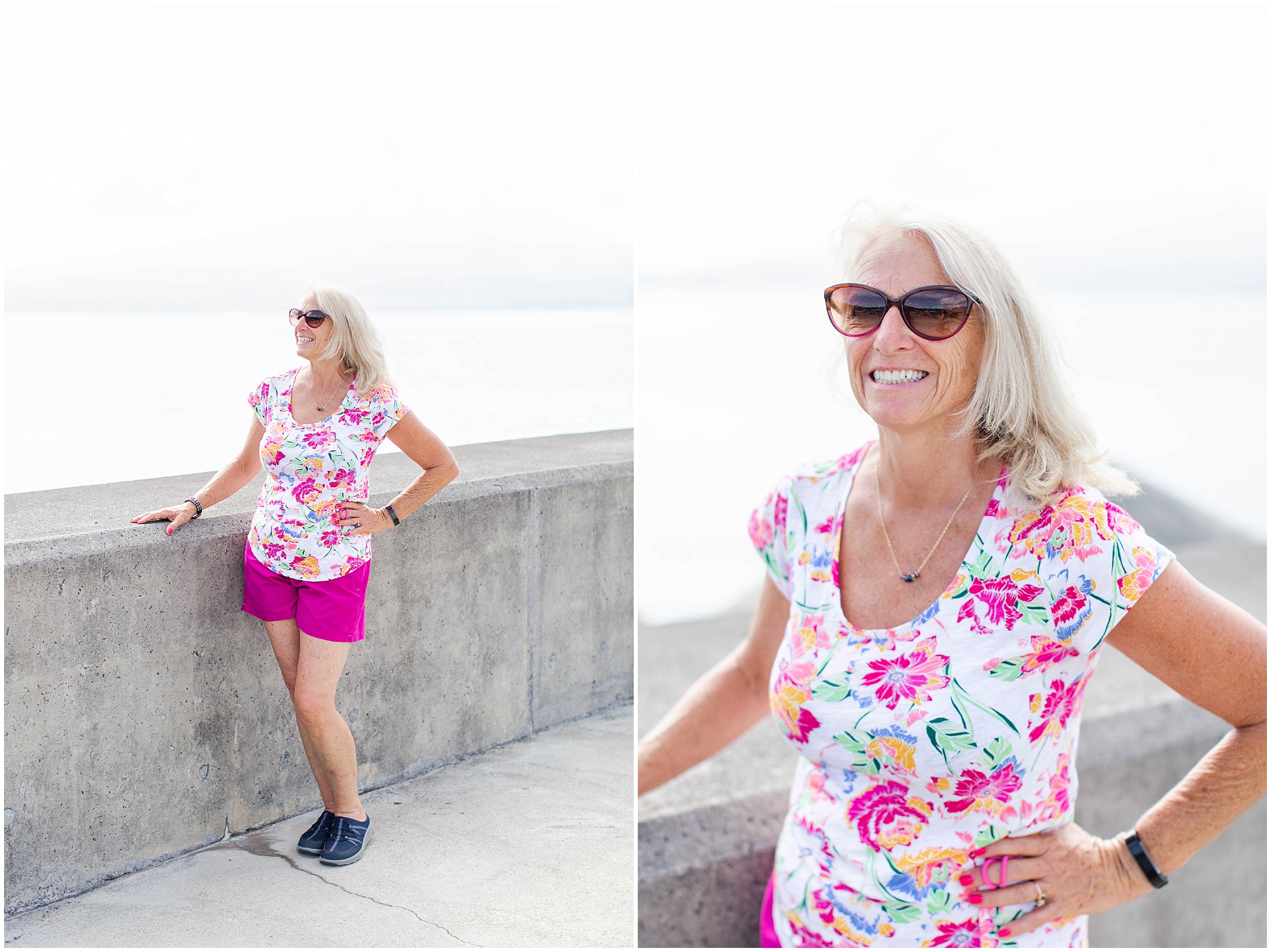
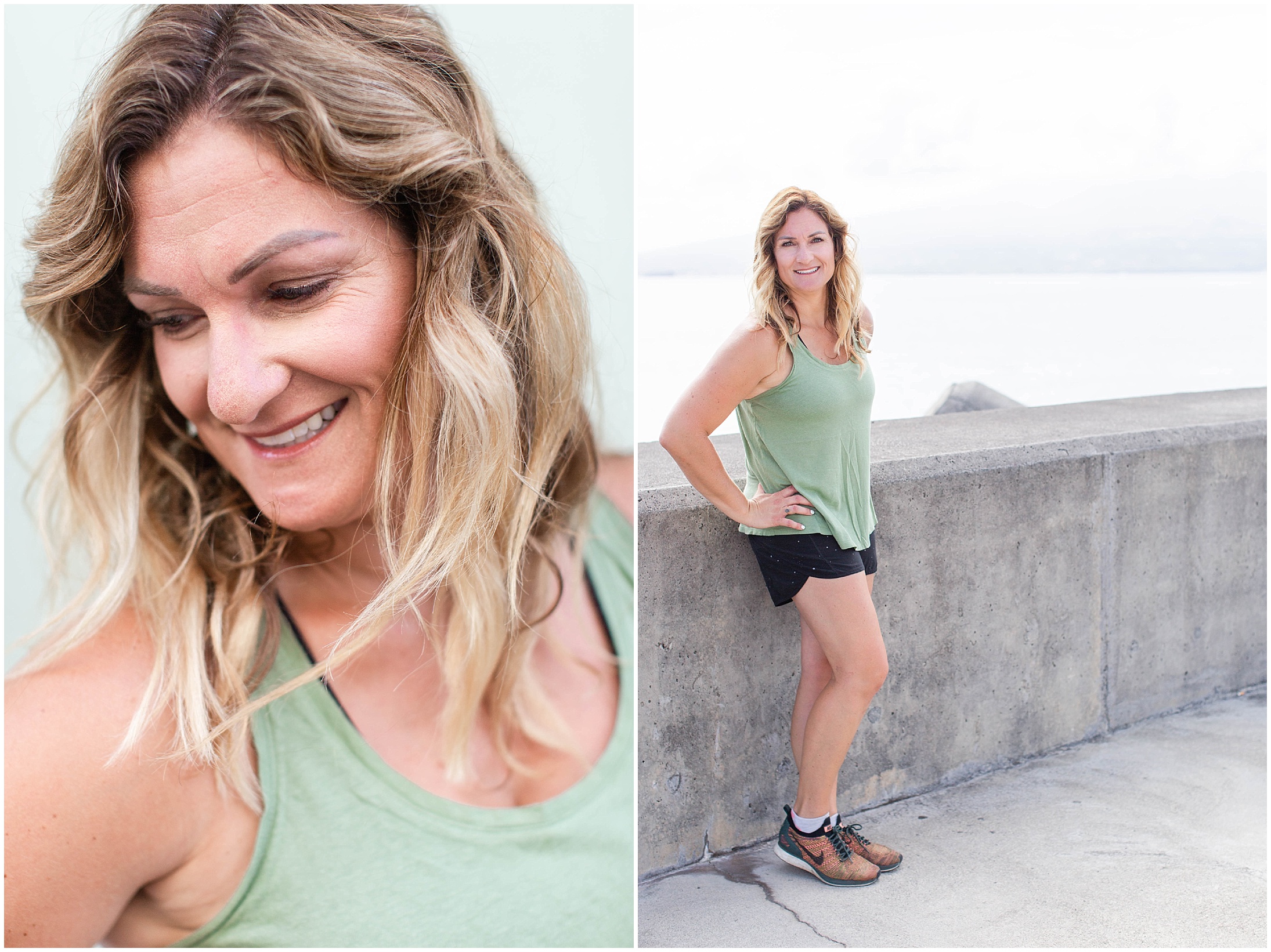
Waiting for the ferry = mini session.
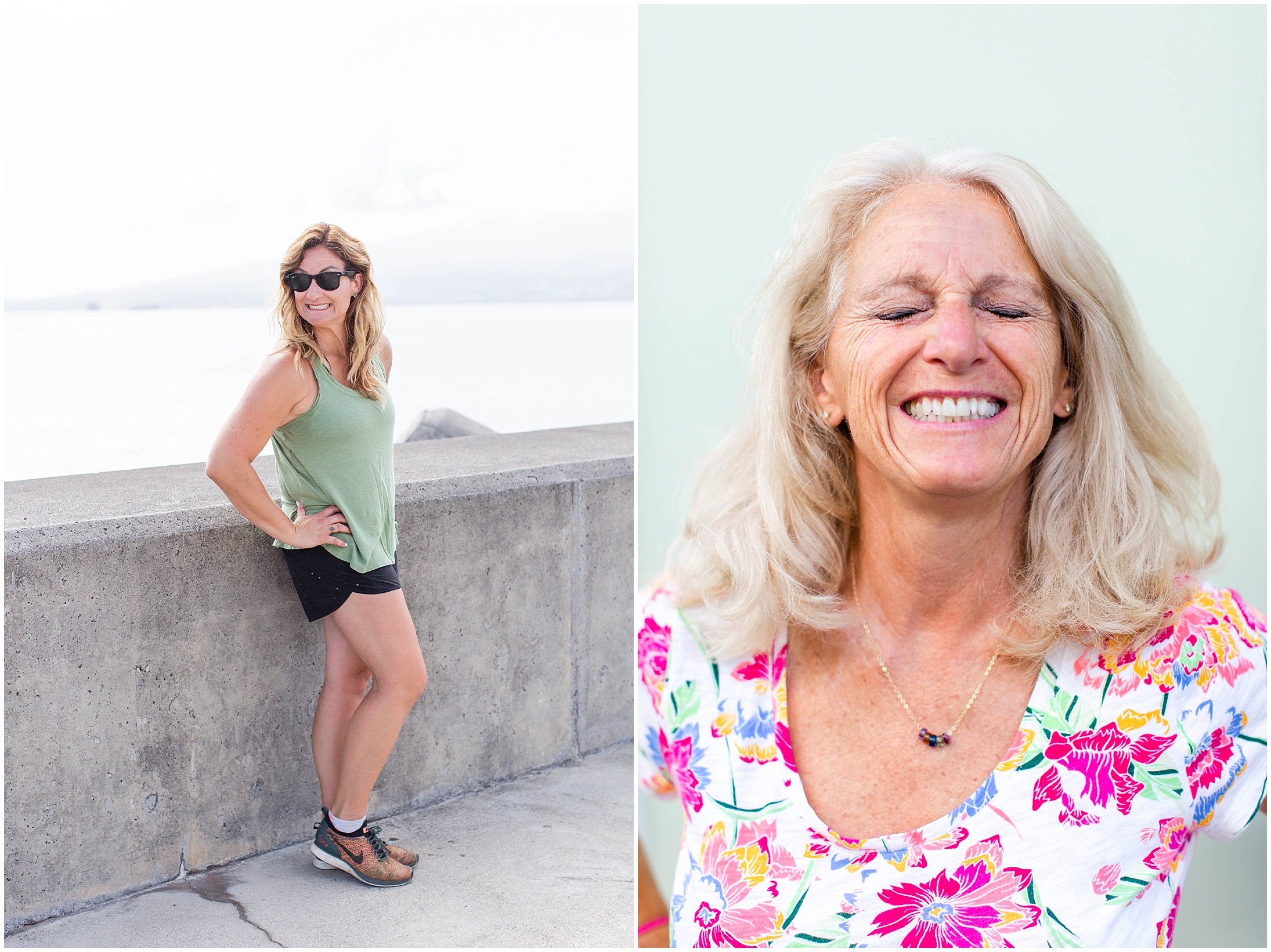
Being in front of the camera can be awkward for us all!
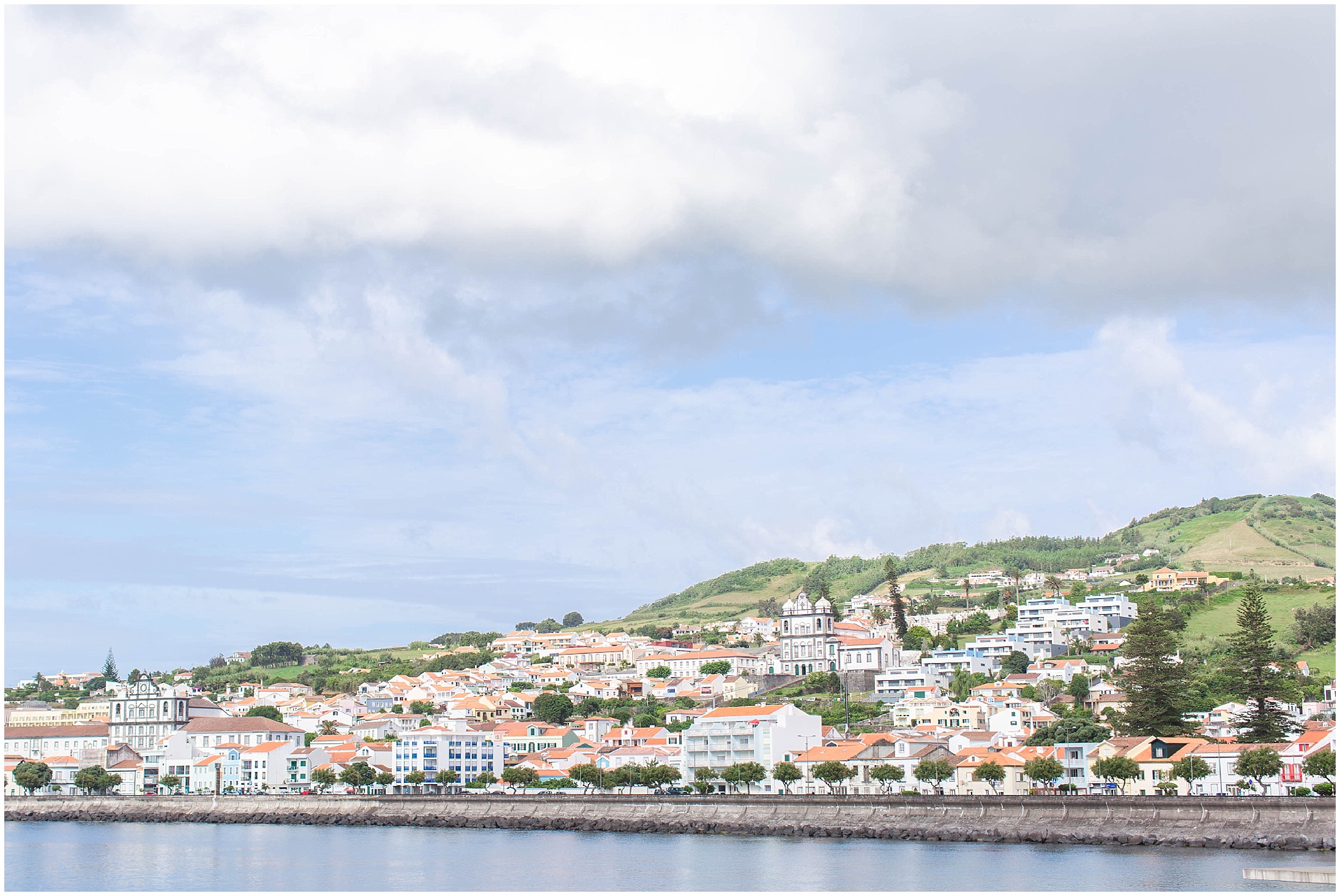 We took a ferry across the ocean for a day trip to the island of Pico. Pico had the most recent volcanic eruption, and a lot of the ground is still gravel and lava pieces. Their vineyards were lined with lava rock barriers. These rock walls block the grapes from strong winds and hold heat for cooler temperatures. We were able to taste the local wine and eat an authentic lunch down by the local swimming hole.
We took a ferry across the ocean for a day trip to the island of Pico. Pico had the most recent volcanic eruption, and a lot of the ground is still gravel and lava pieces. Their vineyards were lined with lava rock barriers. These rock walls block the grapes from strong winds and hold heat for cooler temperatures. We were able to taste the local wine and eat an authentic lunch down by the local swimming hole.
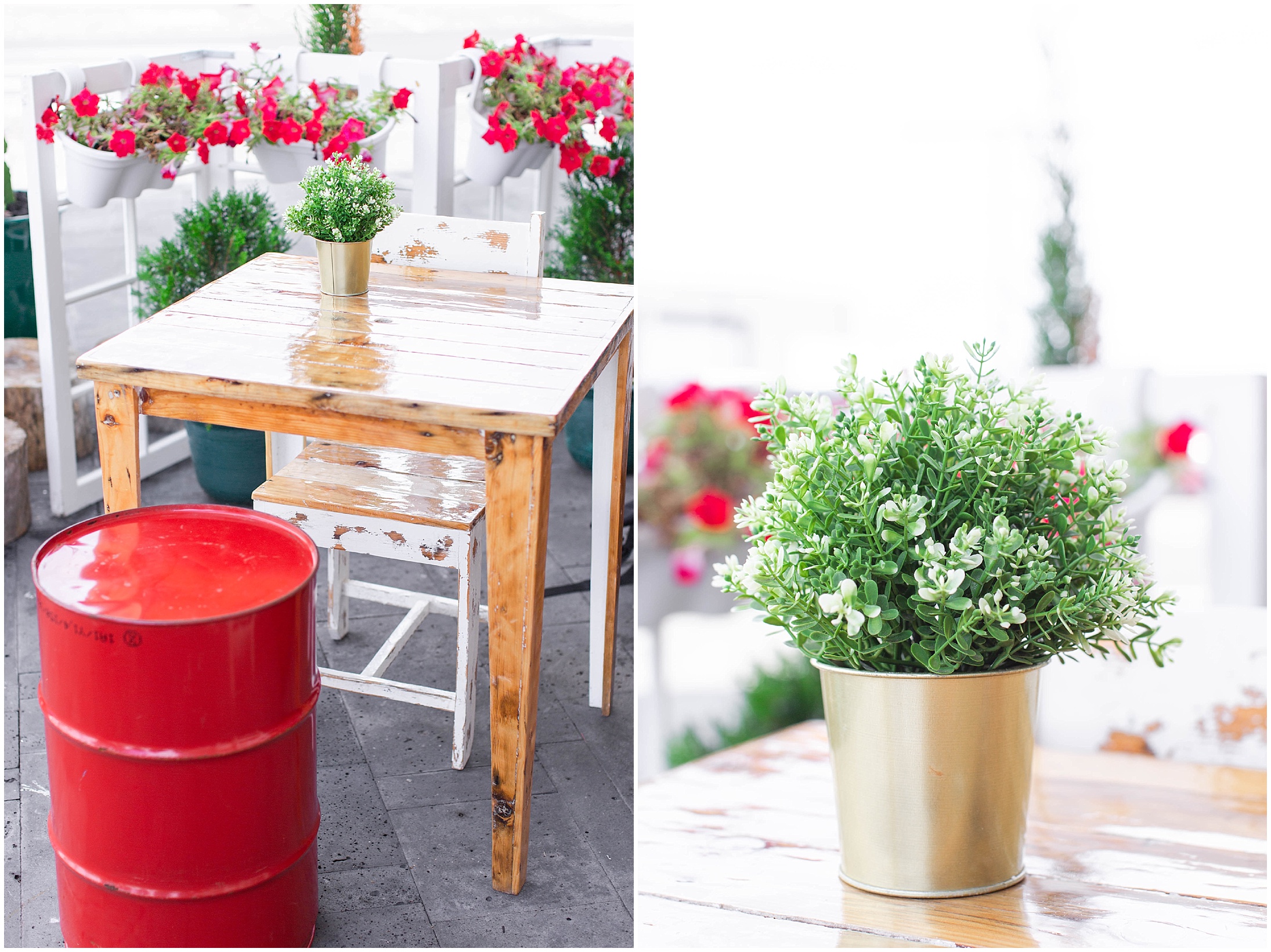
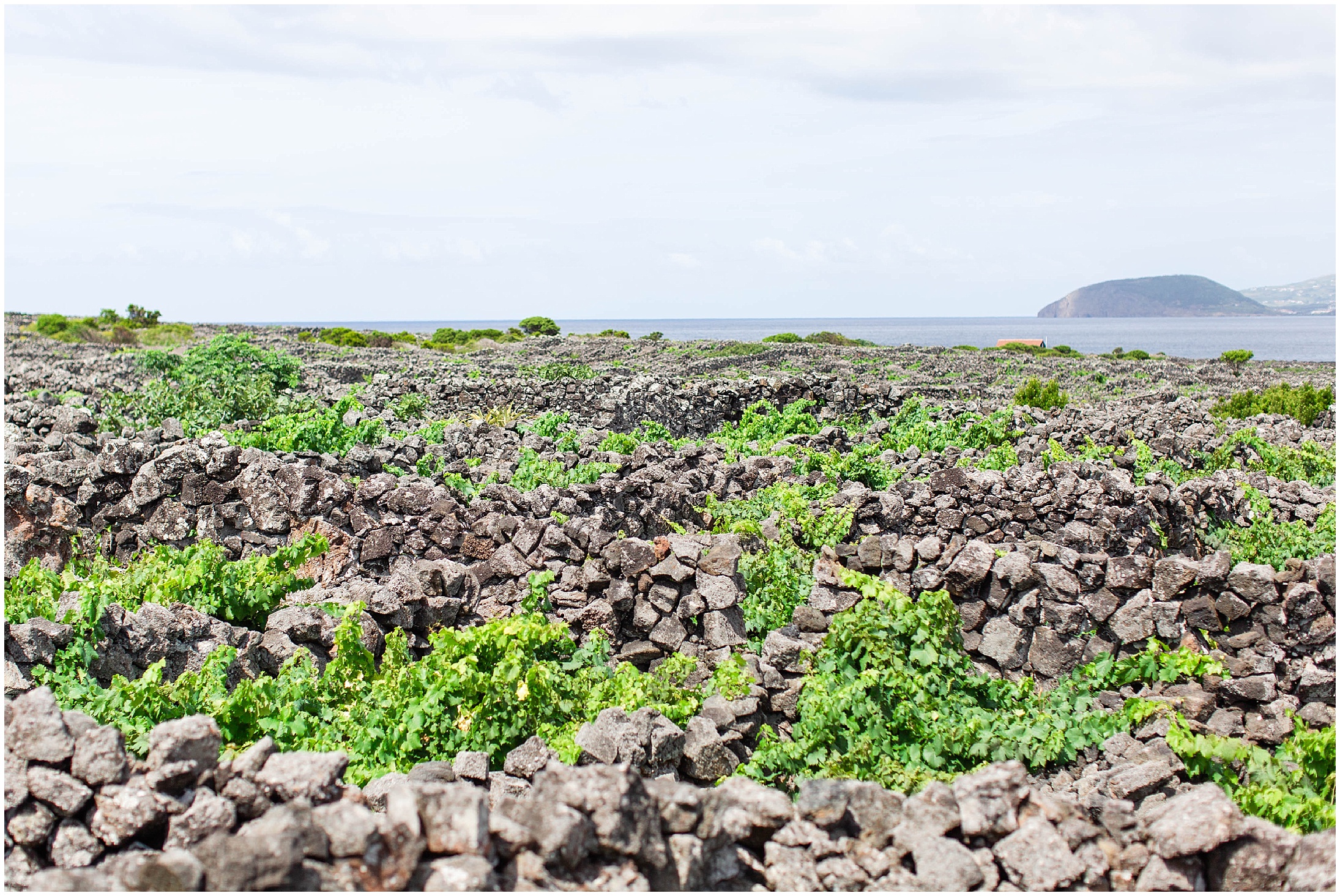
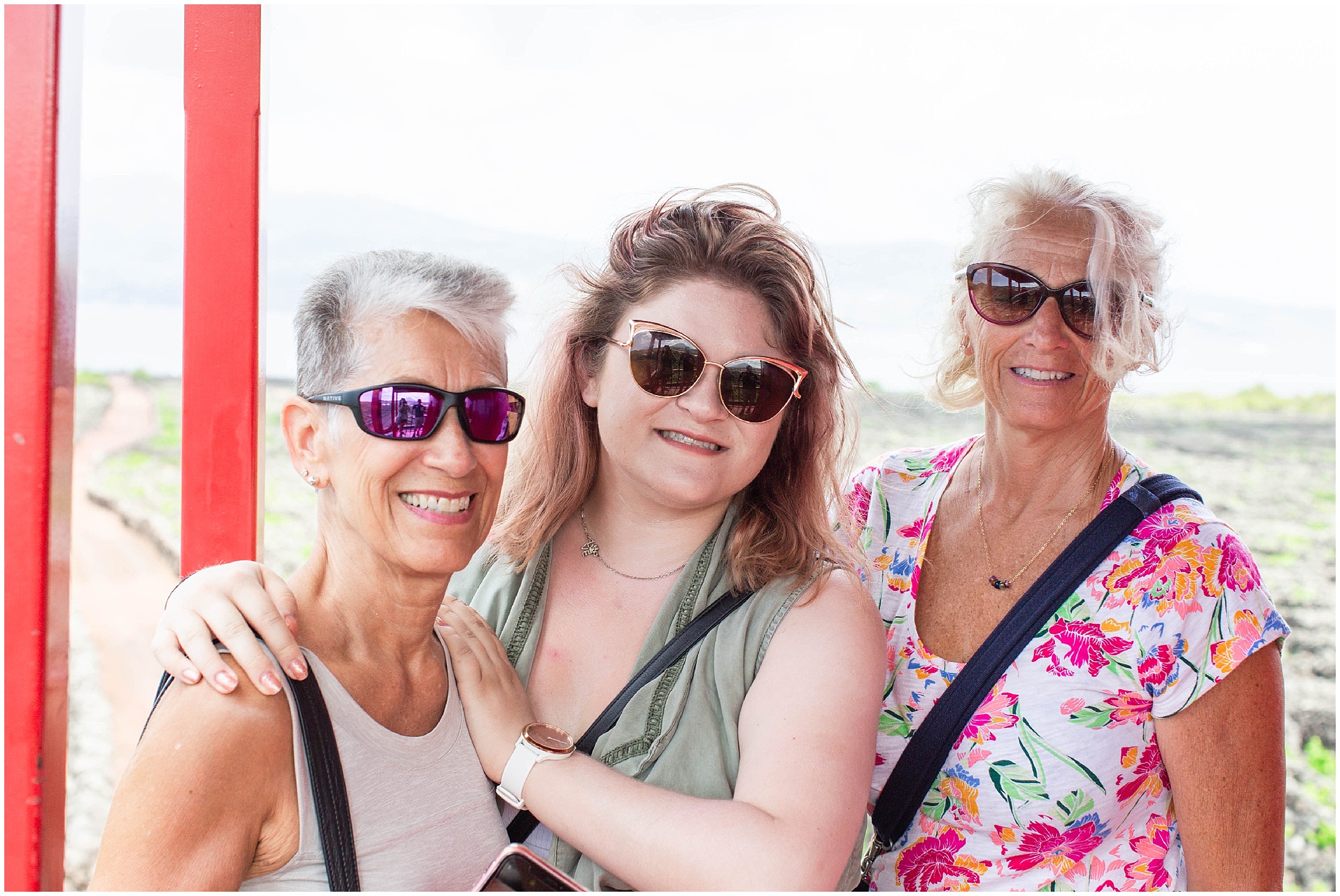
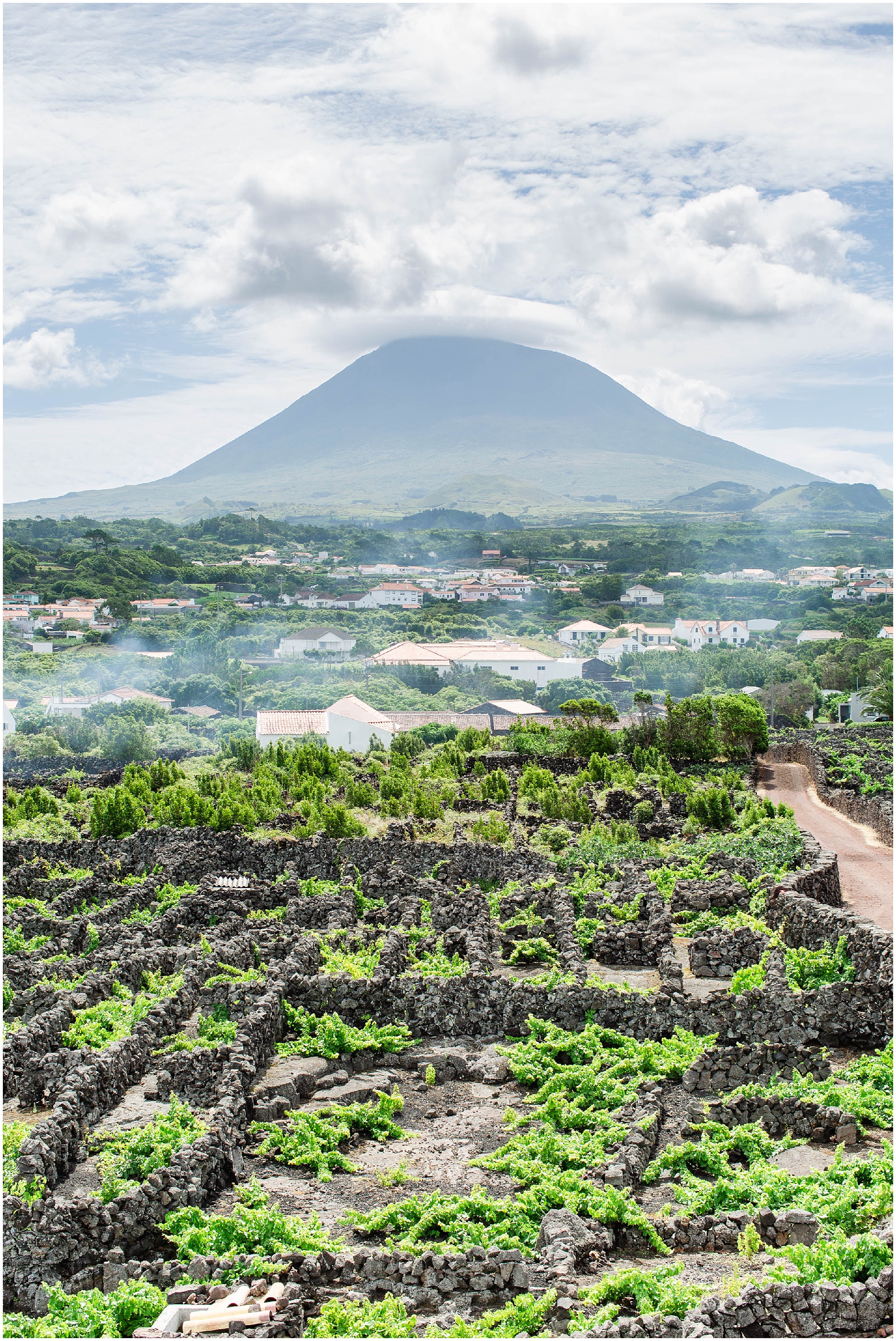
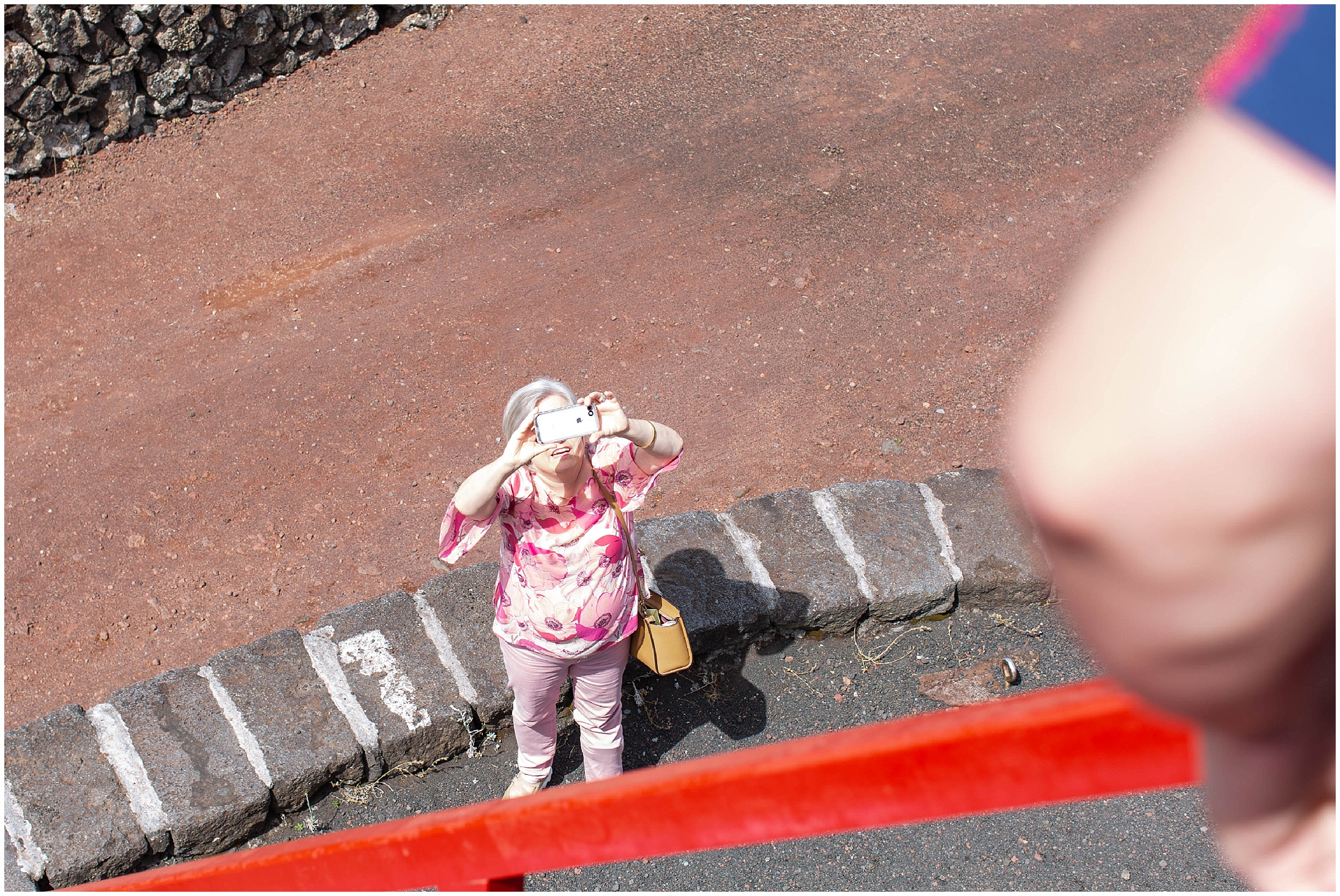
Aunt Julianne taking a picture of us in old Flemish windmill.
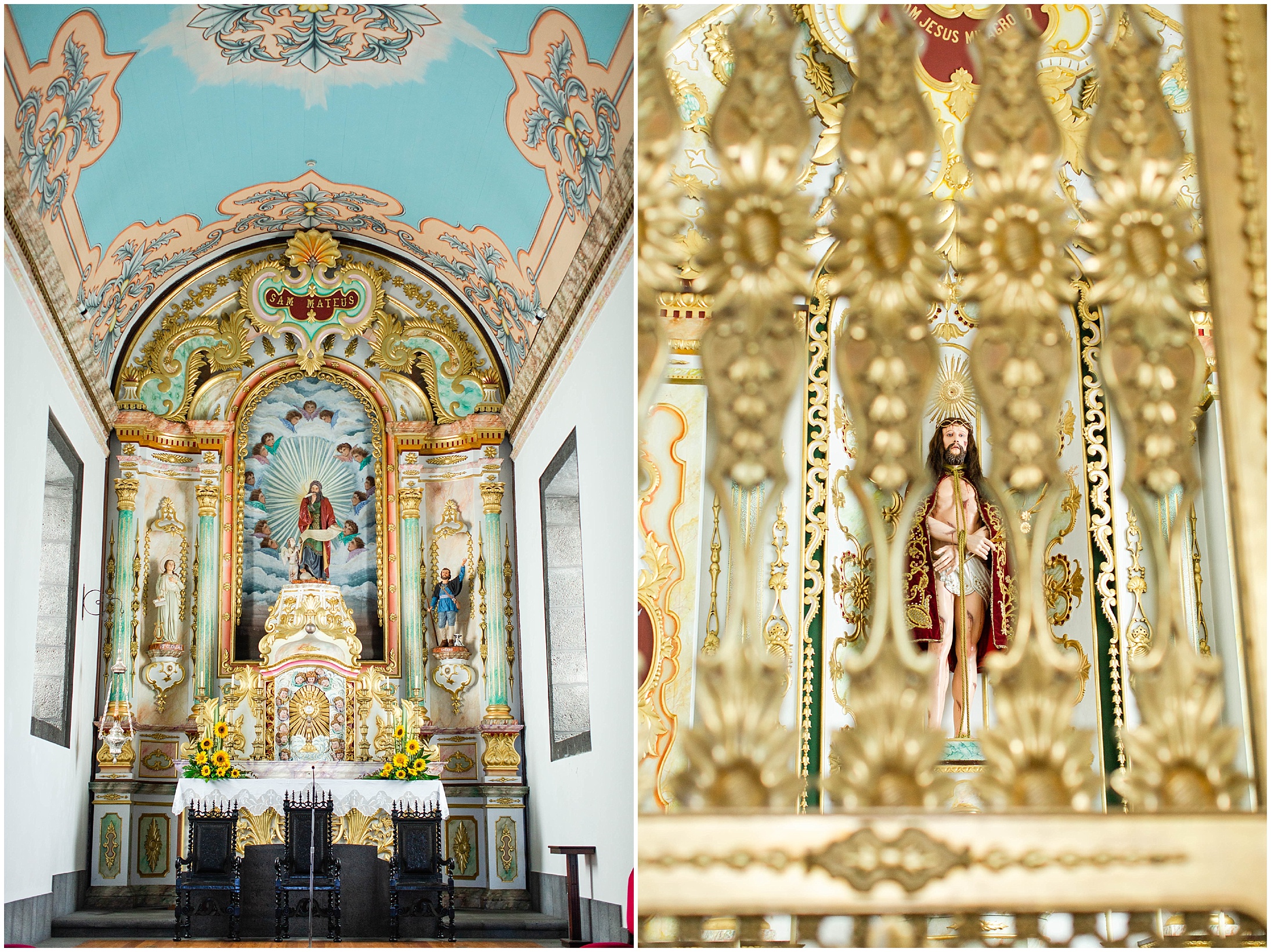
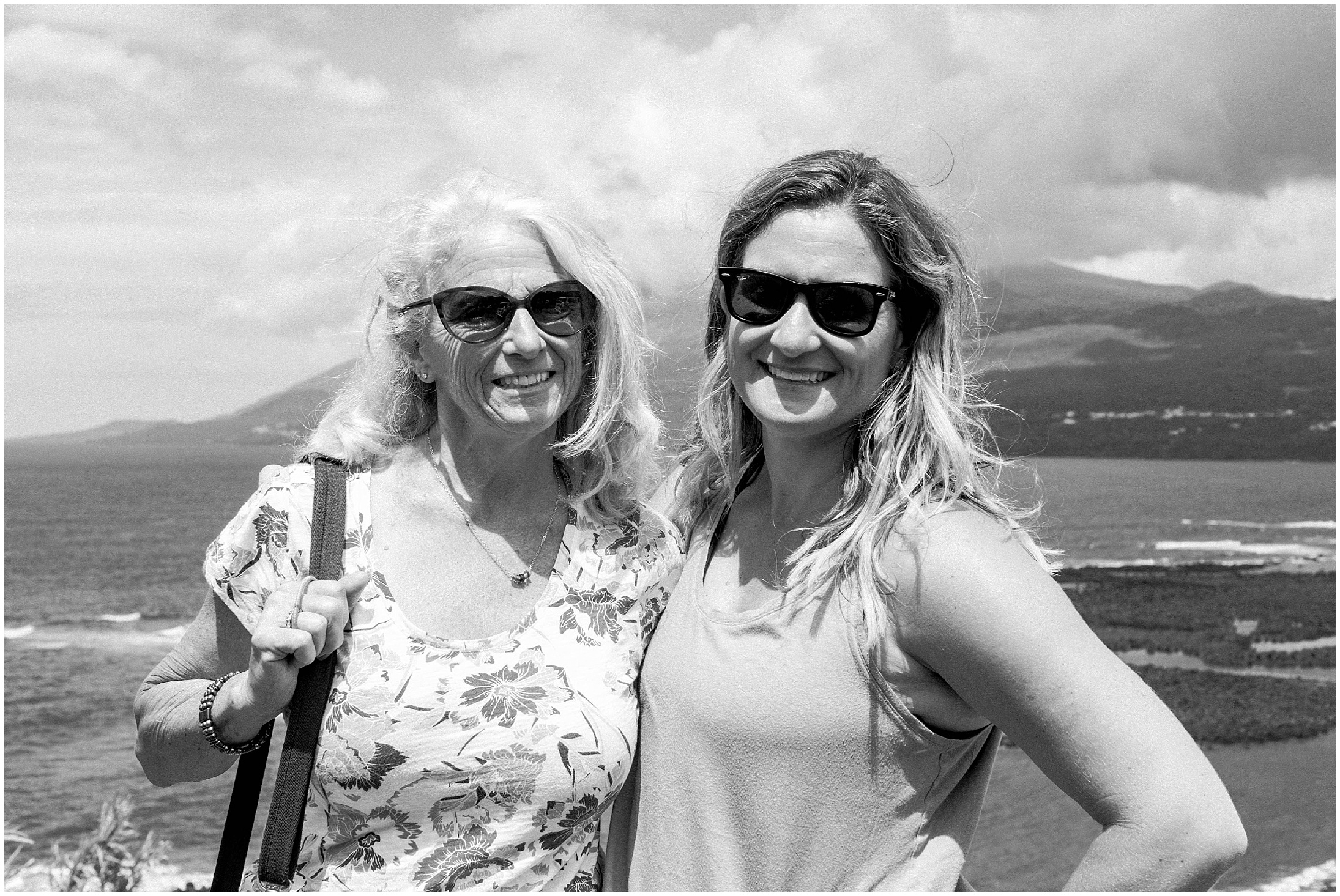
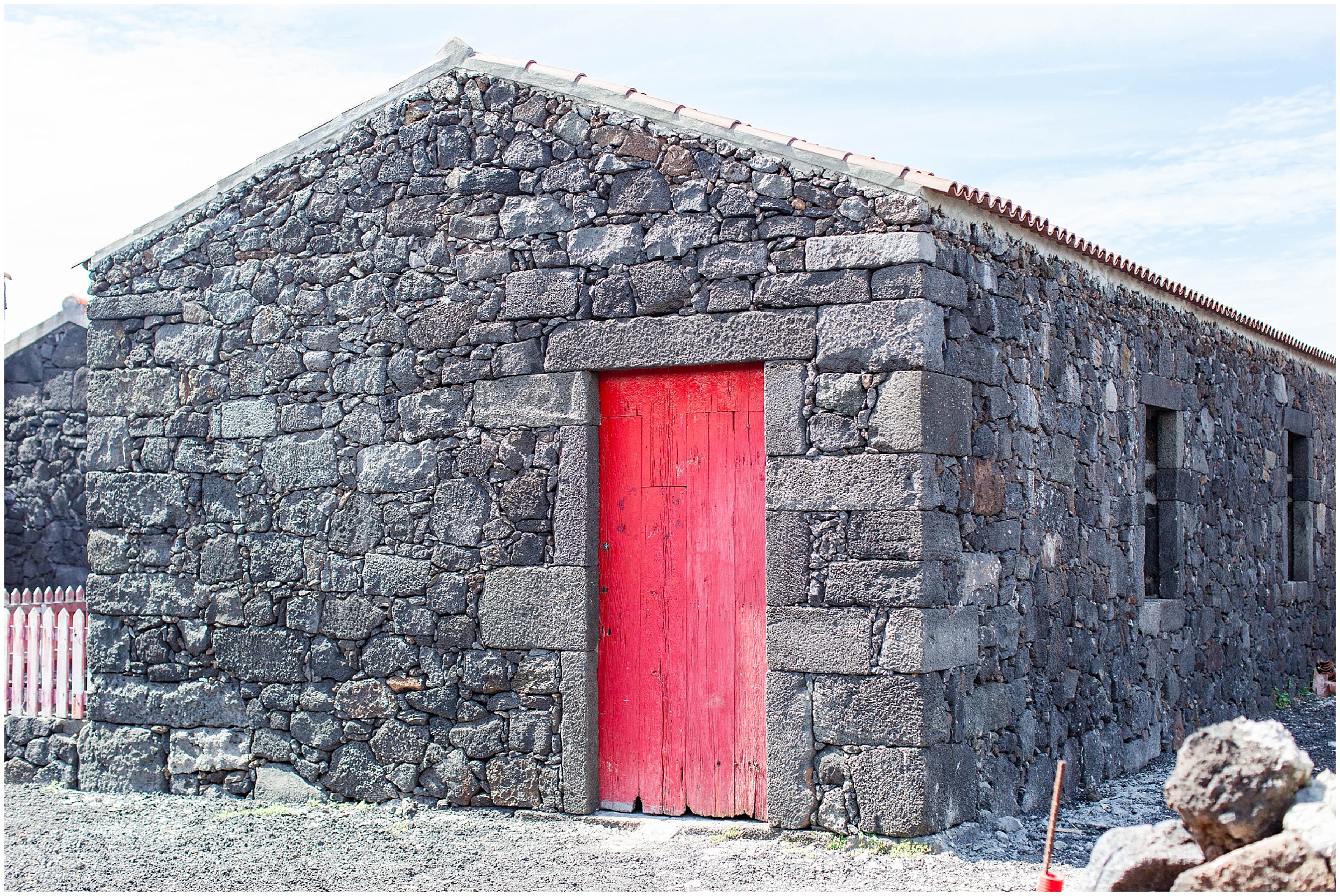
There is so much lava rock on the island that many homes were made out of that resource.
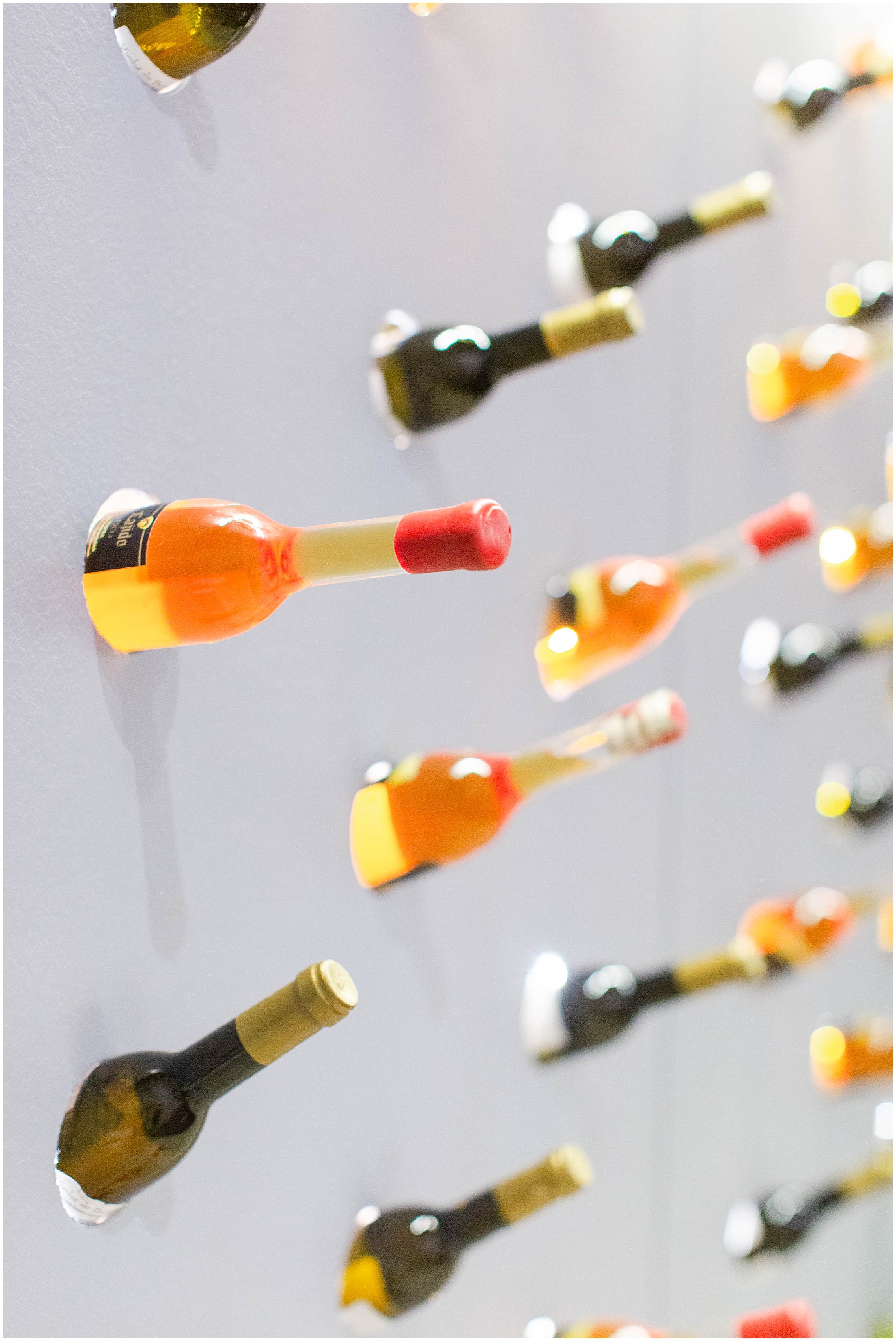
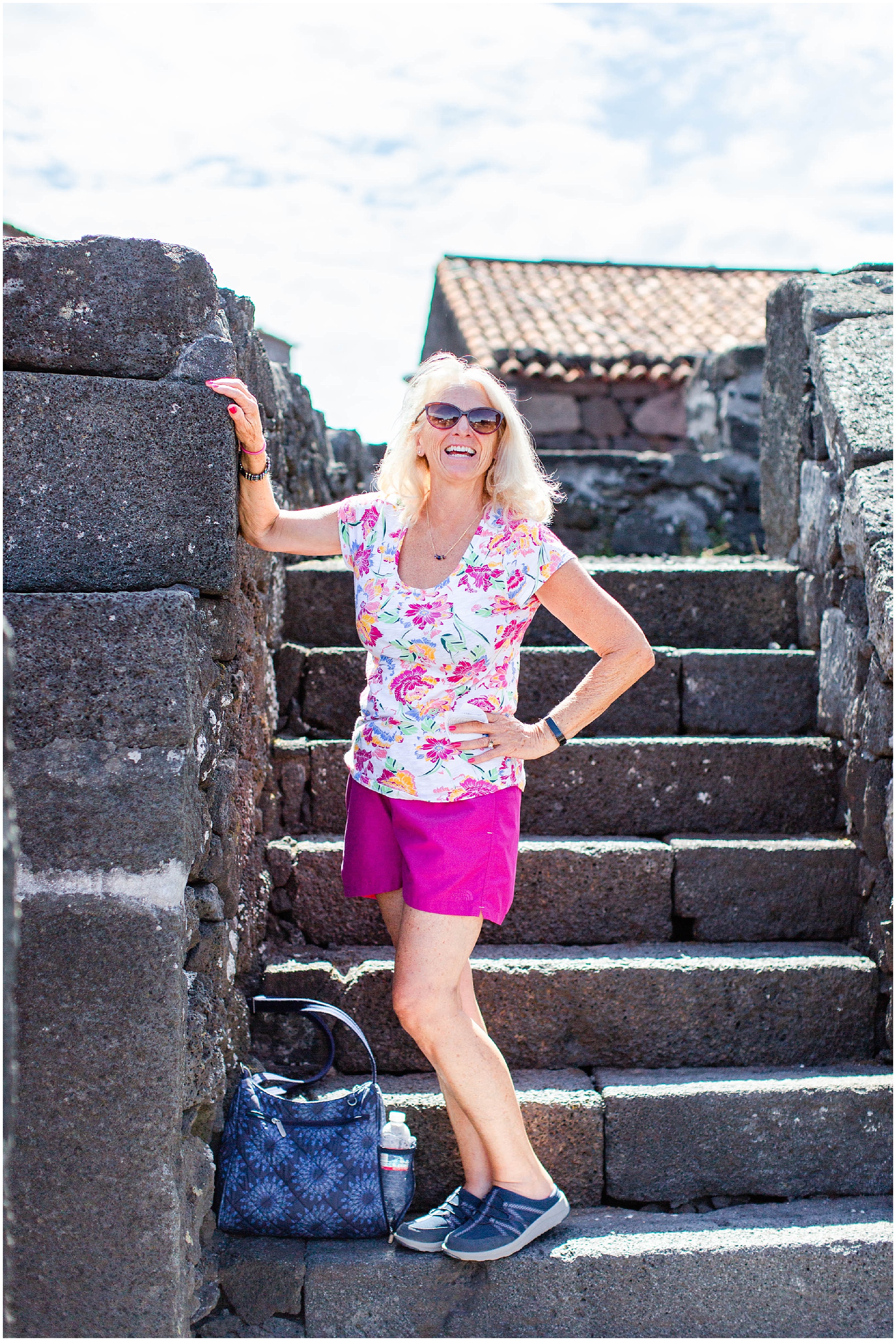
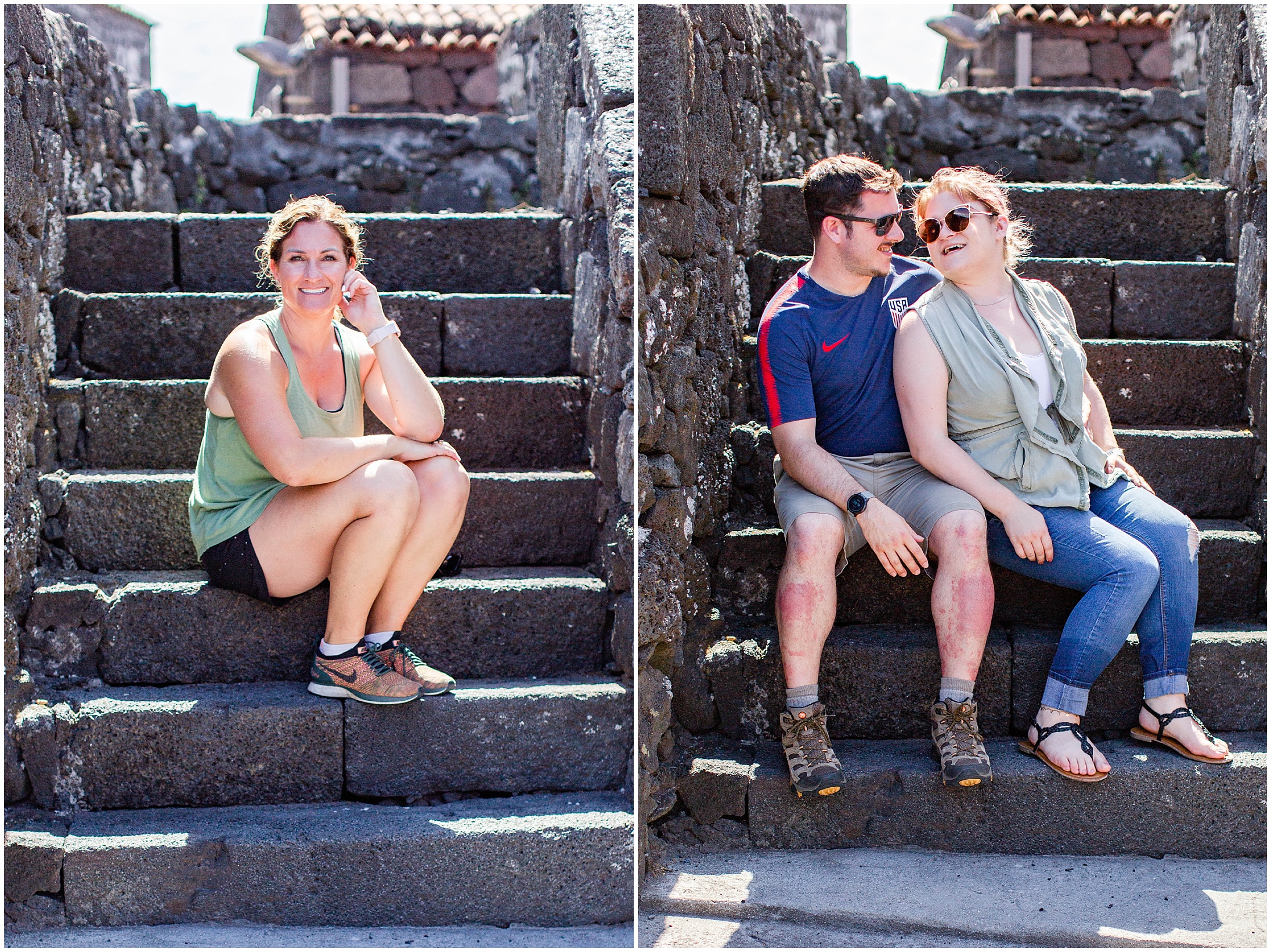
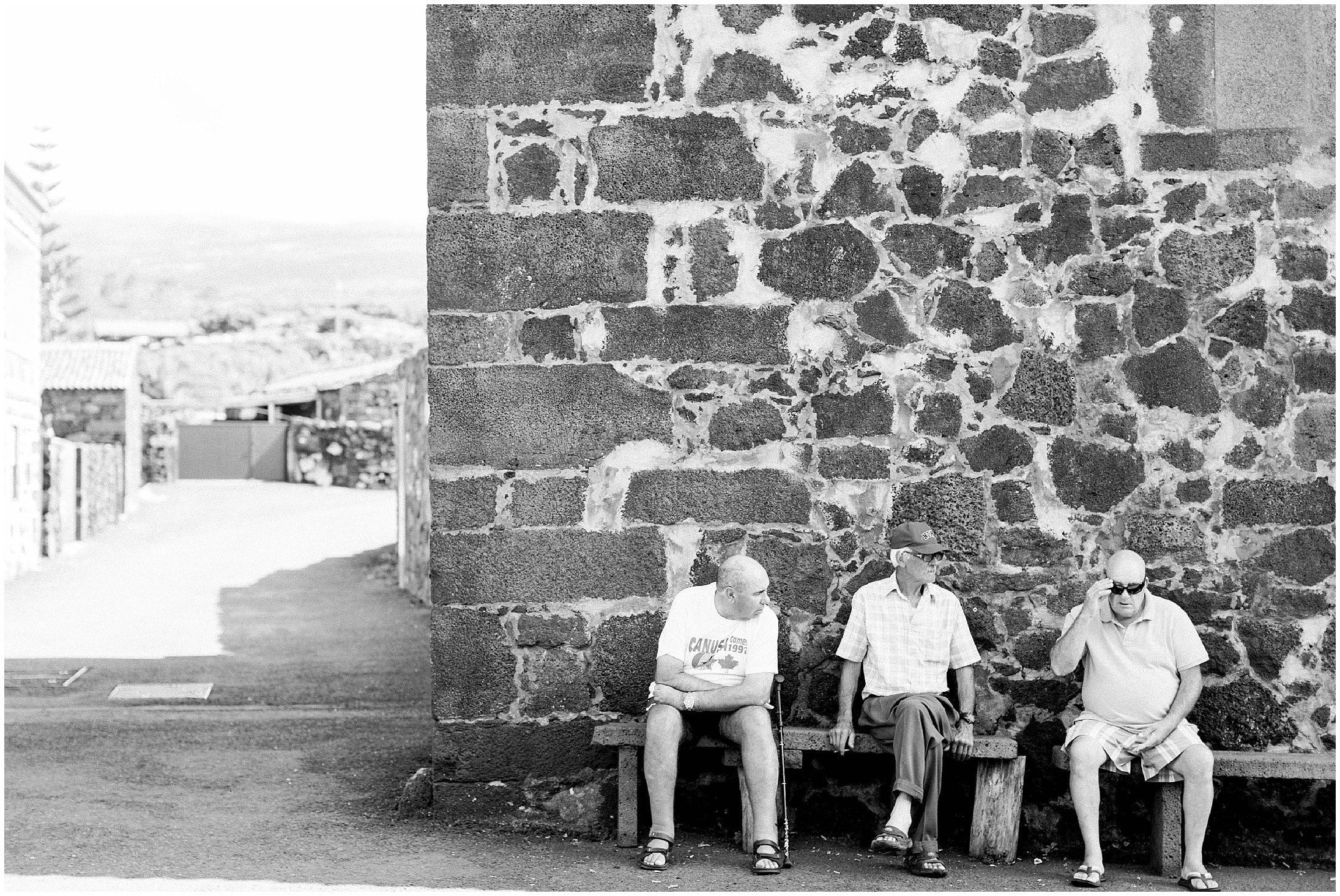
Portuguese men chatting on the corner.
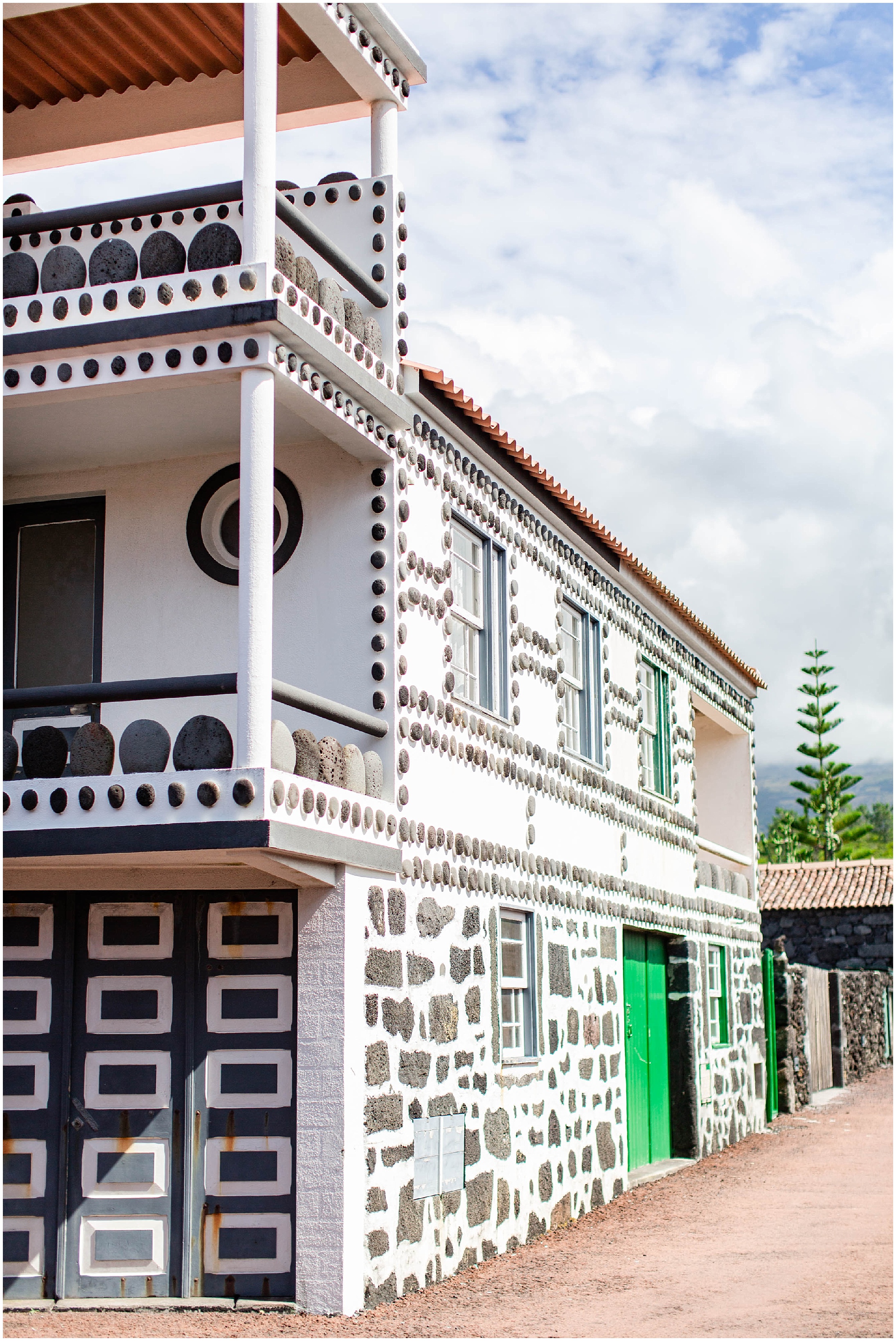
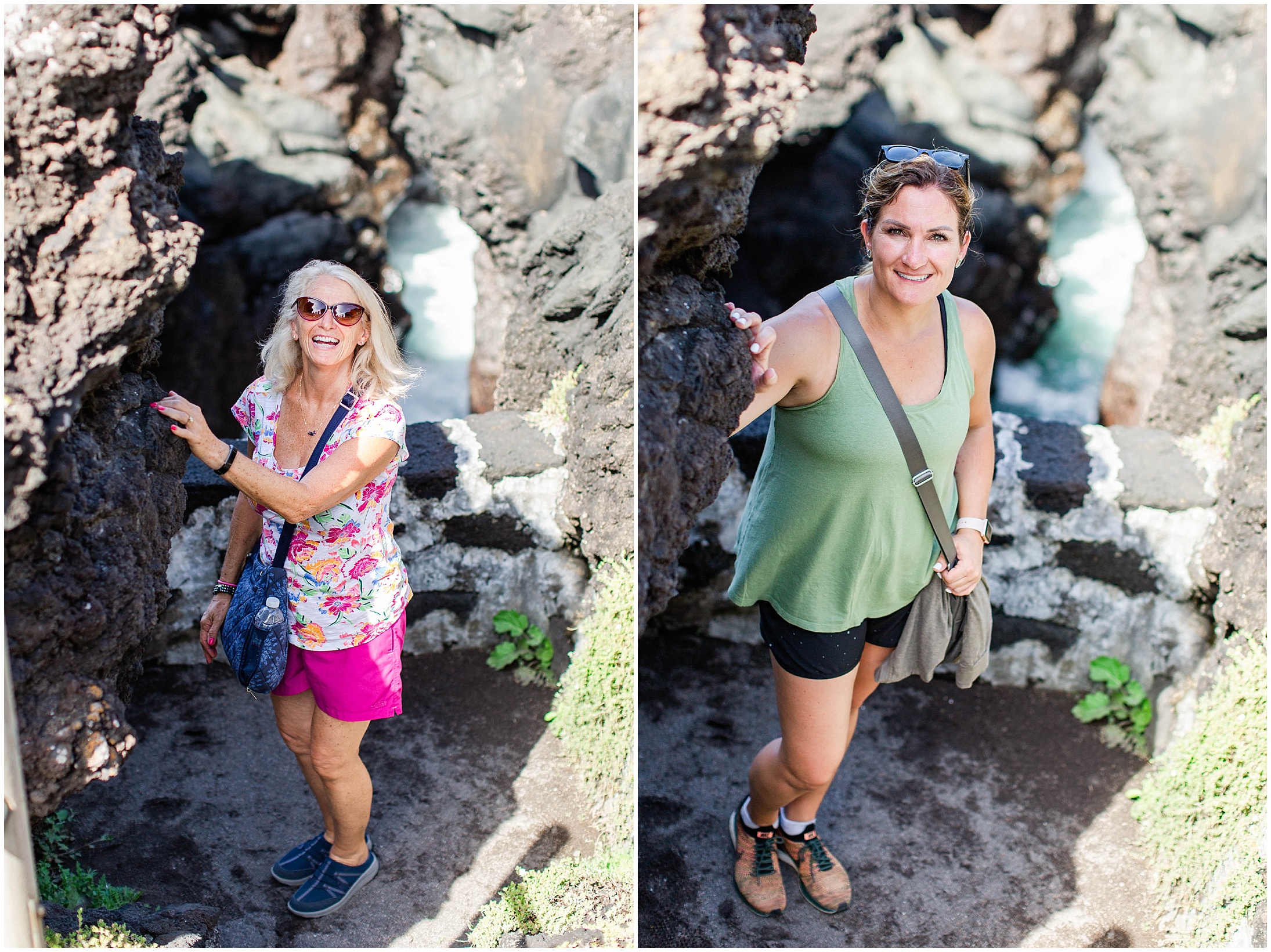
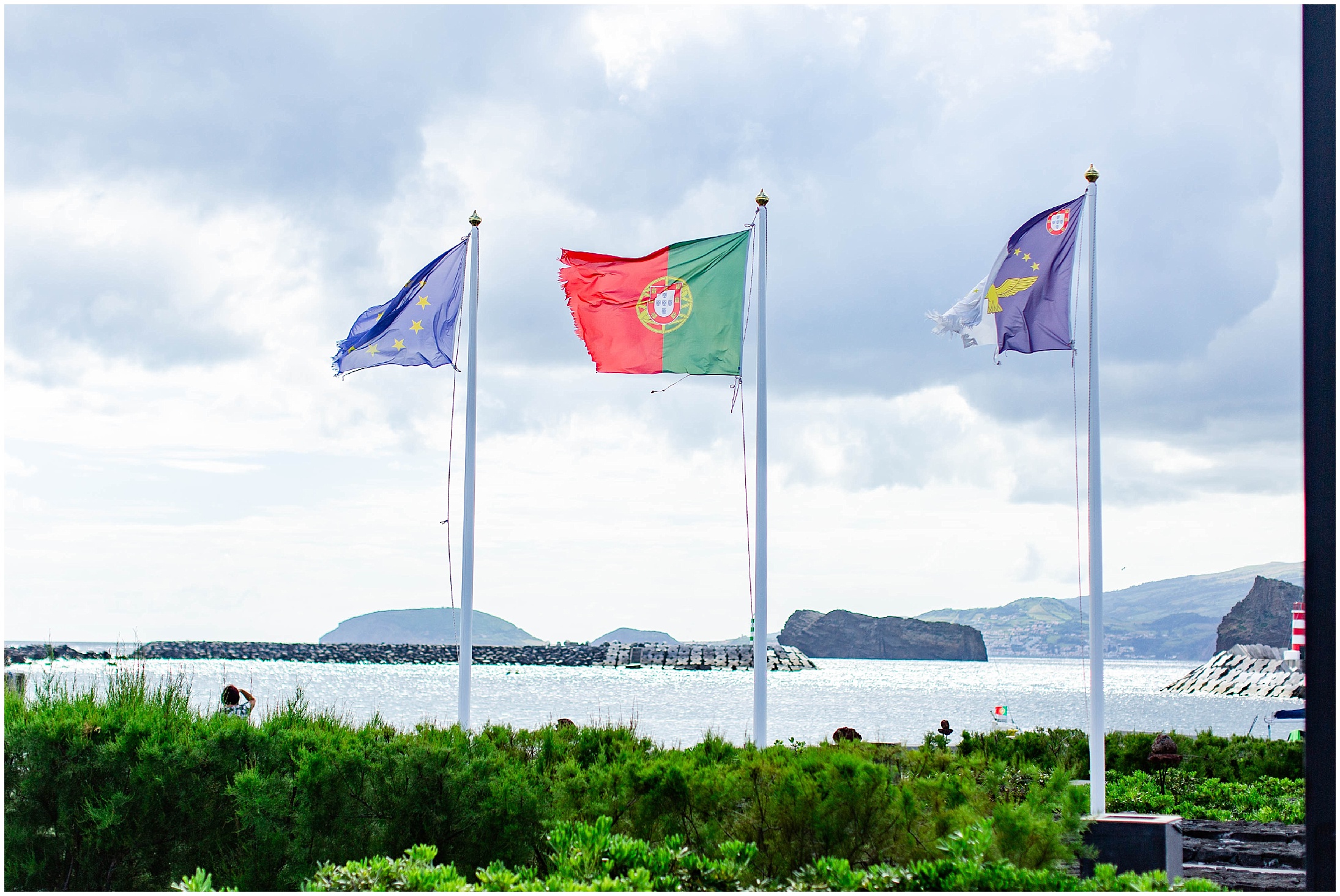
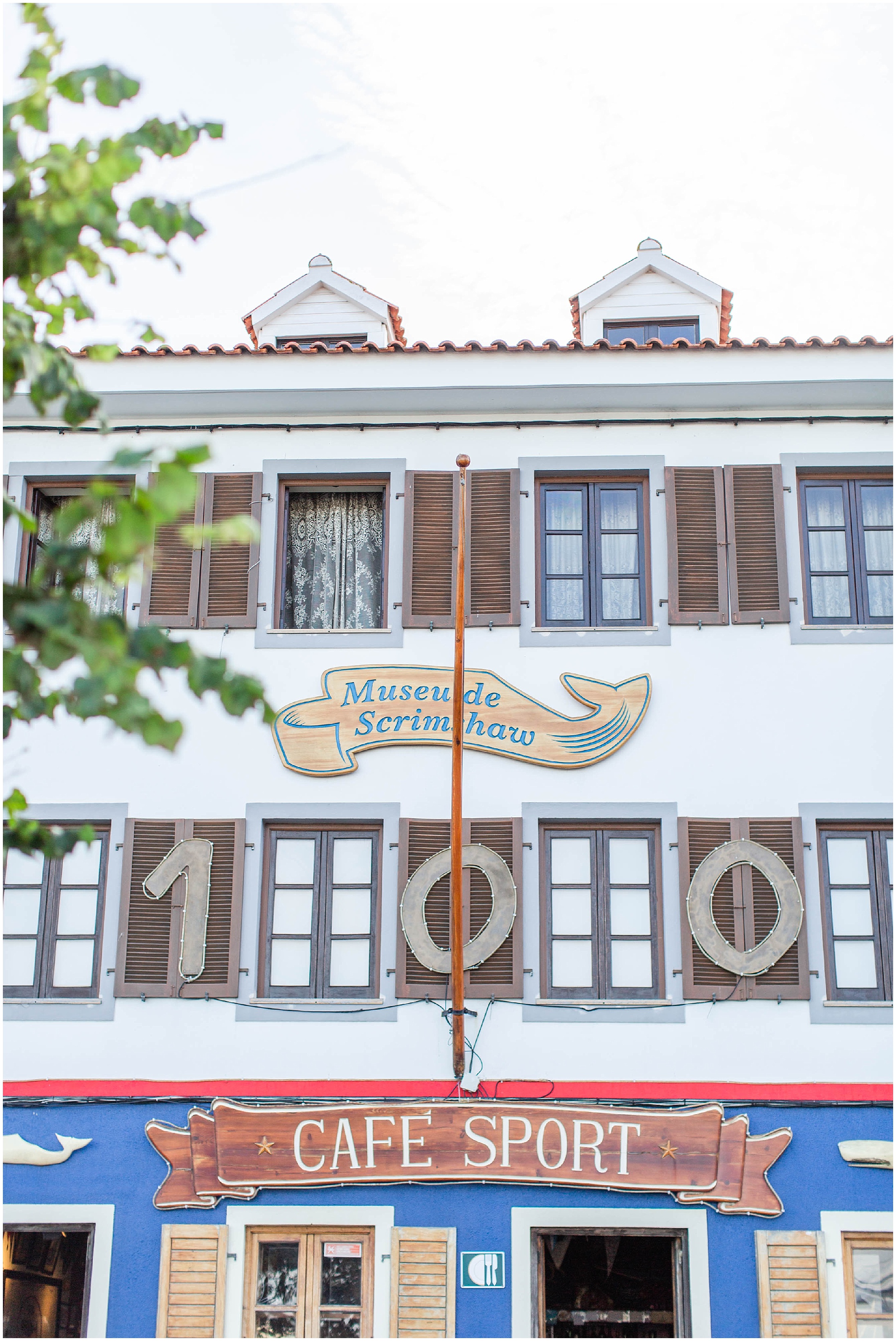
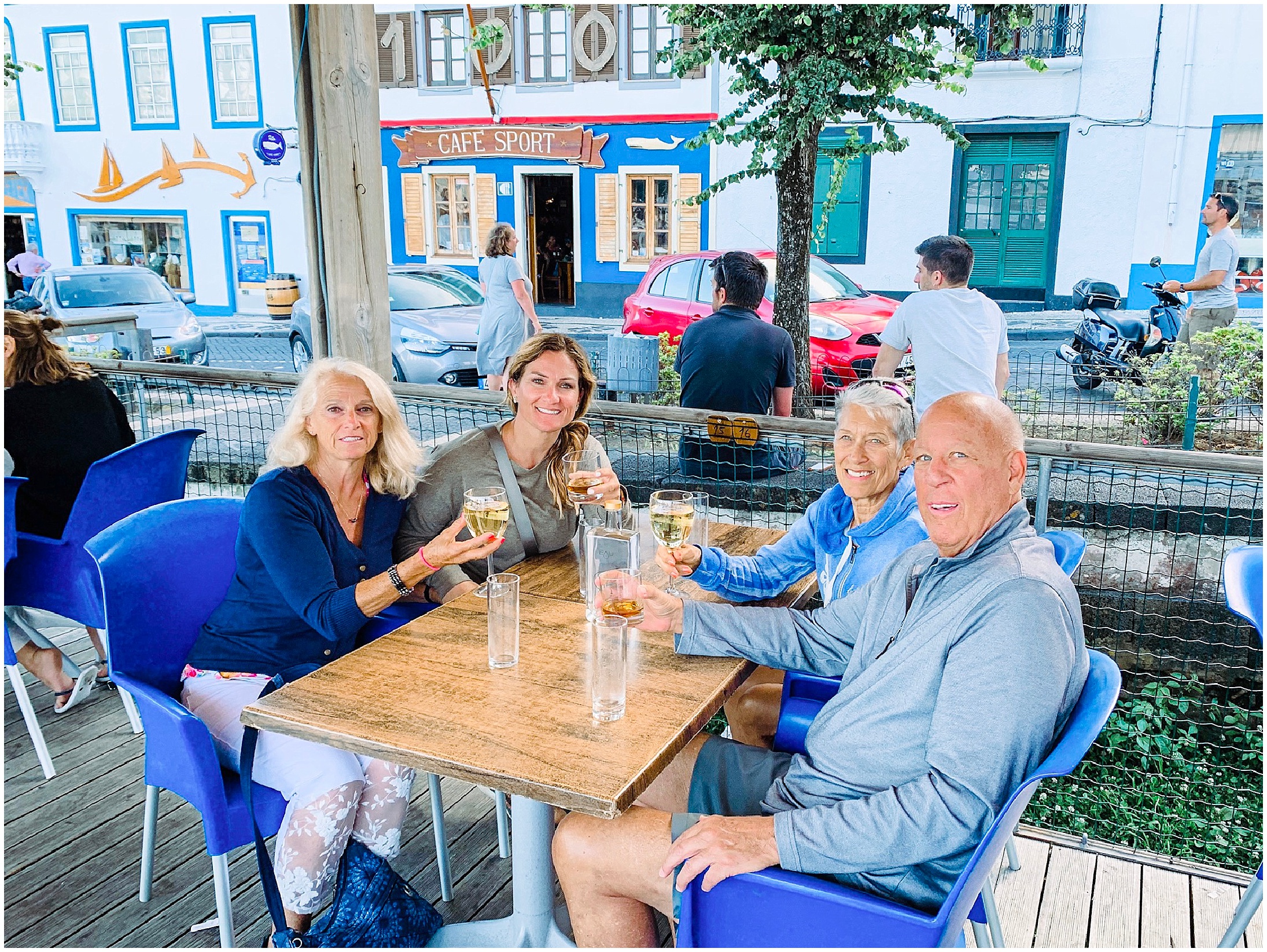
We ate at Peter’s Cafe Sport twice while on the island of Faial. This restaurant is famous for sailors coming in to eat, drink, and refill their supplies before their next voyage. Below is our view of the bay from Peter’s outside eating area.
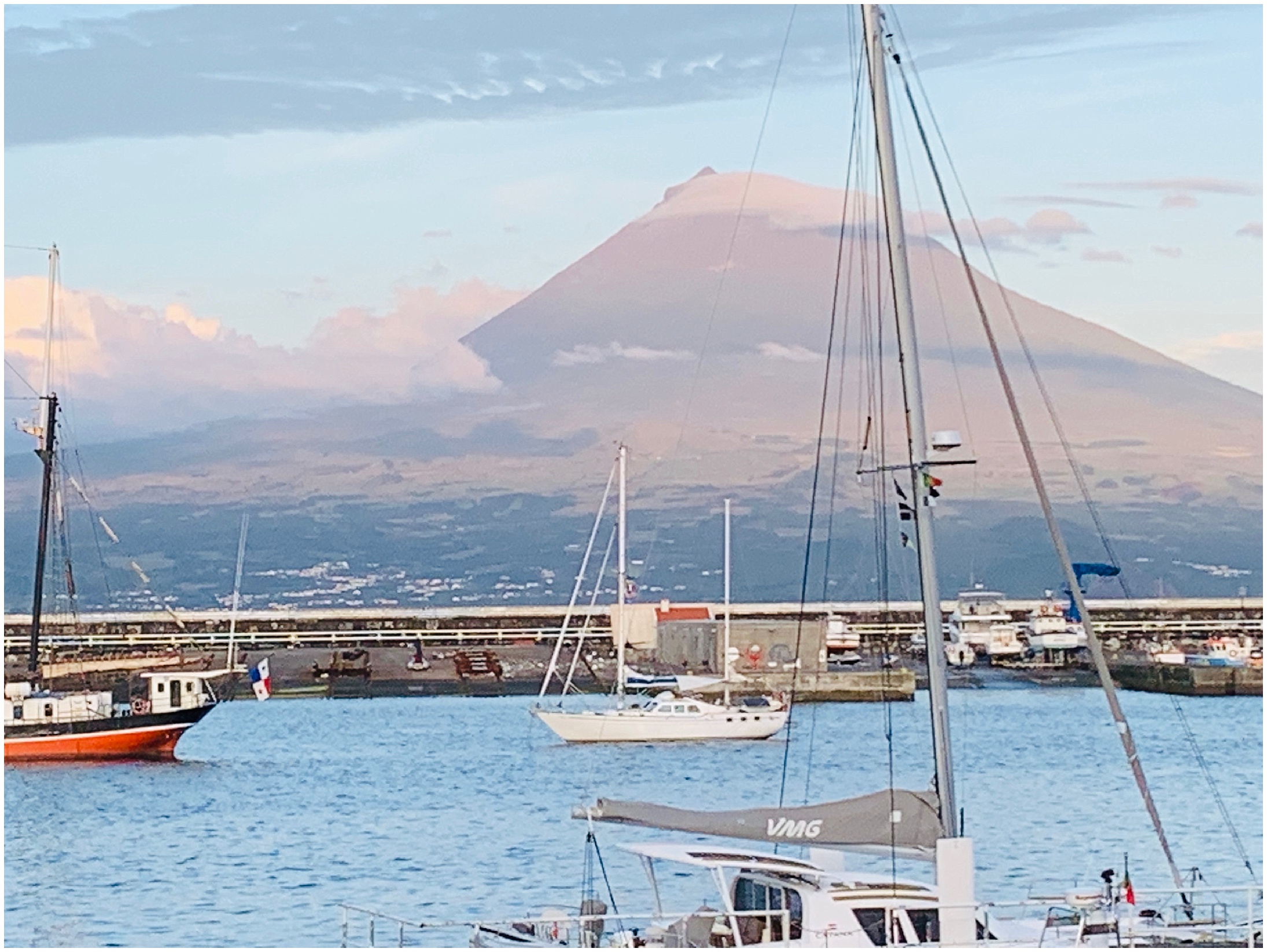
Our final island was Sao Miguel. We stayed in the city of Ponta Delgada at the Azor Hotel. There was a luxury pool on the seventh floor, and this also gave us an extraordinary view of the bay and marina. The marina had a built-in water park with multiple swimming pools, and it extended out to the ocean. There was a shallow fenced-in area in the ocean for swimmers not wanting to be in deep water. We had a full-day tour on the island with José with Amazing Tours. We started the day with a tea plantation. We learned what tea plants looked like, the leaves that created which teas, and we got to sample the final product! We then explored the town of Furnas. There are natural hot springs that cook the famous Caldera Stew (meat and vegetable dish) underground.
While we were in the Valley of Furnas, we spent about 90 minutes in a large pool of warm springs. It is known for curing skin and respiratory conditions. This pool was more than warm, it was hot! We needed to cool off in the center island. We also saw the famous Sete Cidades. There are both a blue and a green lake side by side that are huge! Our tour guide, José, took us to some natural hot springs. He had us quickly slice our hand through an almost scalding hot spring. He then took us around the corner and had us do the same thing to another natural spring. This time the water was cold. When José put the water into a champagne flute, we could see carbonation! We all got to sample the “nonalcoholic volcanic champagne”. The third natural spring was cold as well but with almost no carbonation!
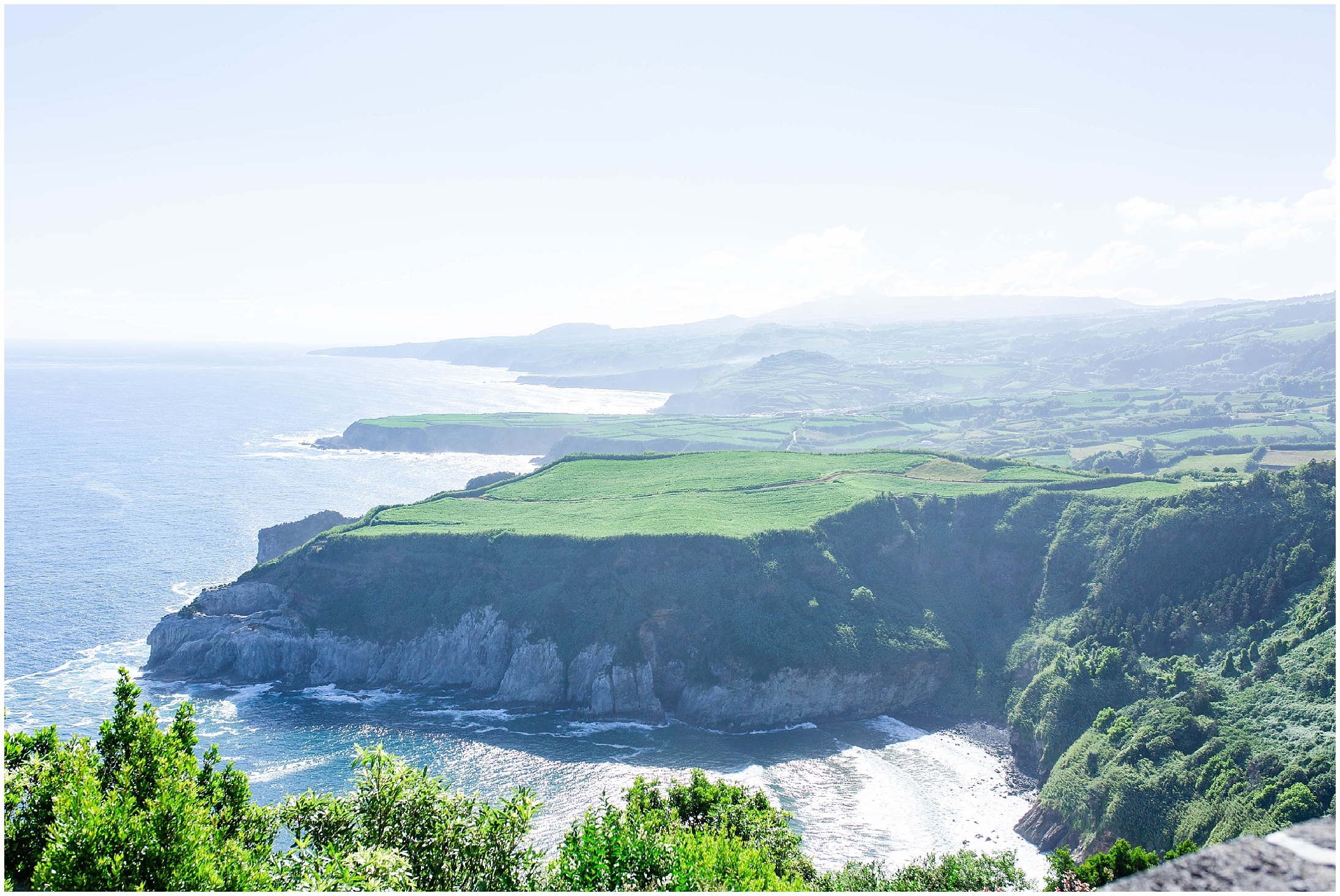
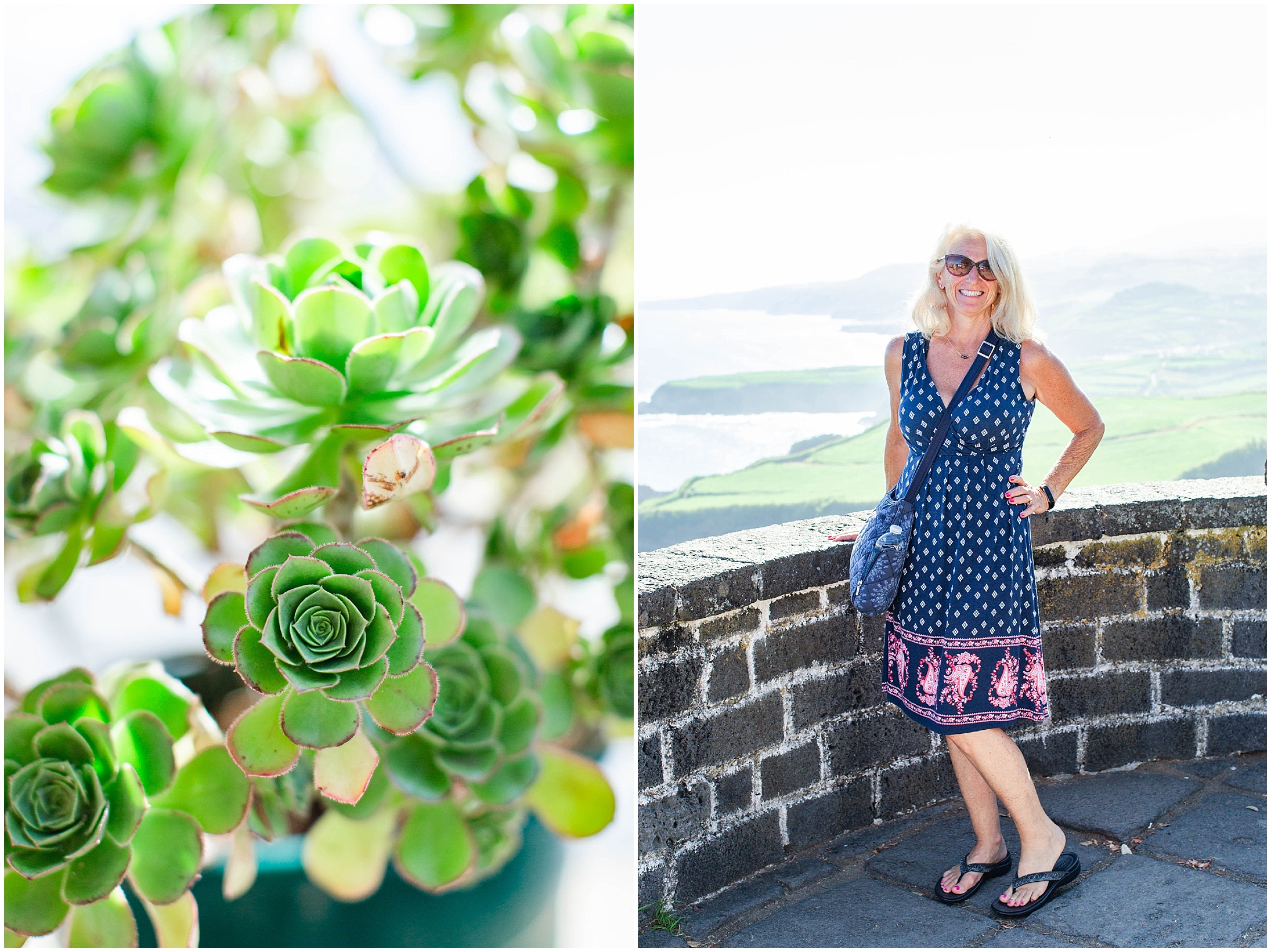
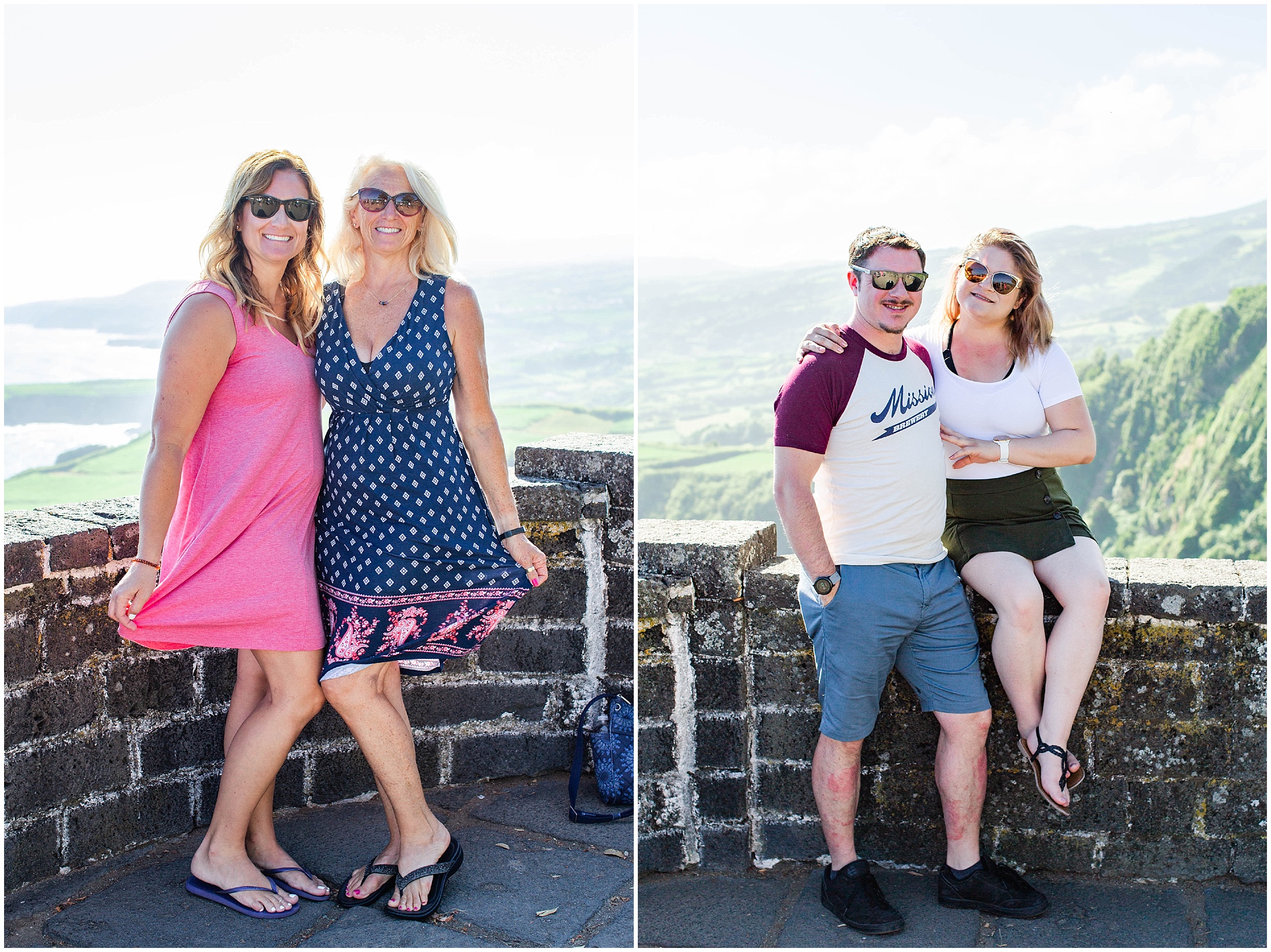
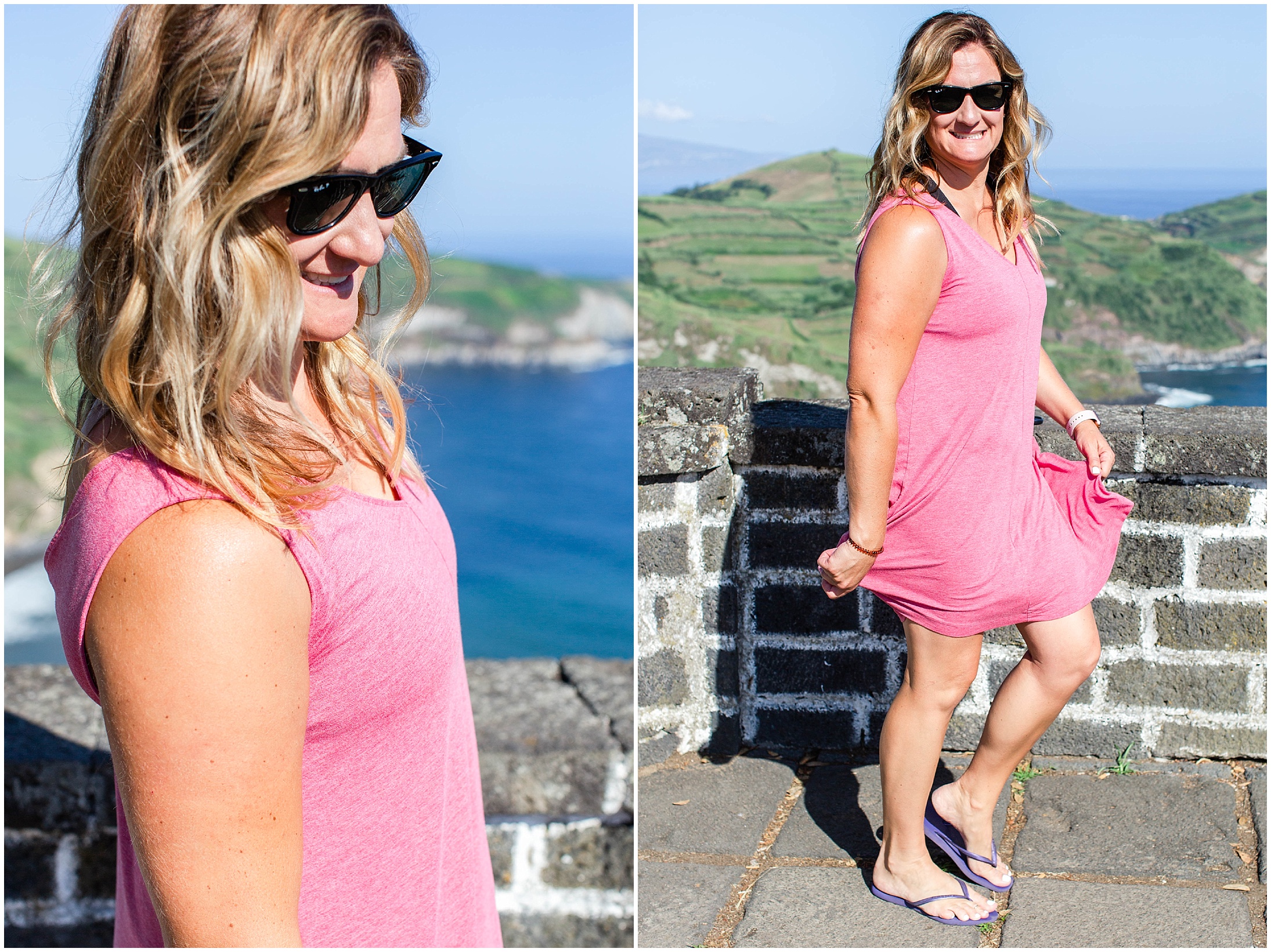
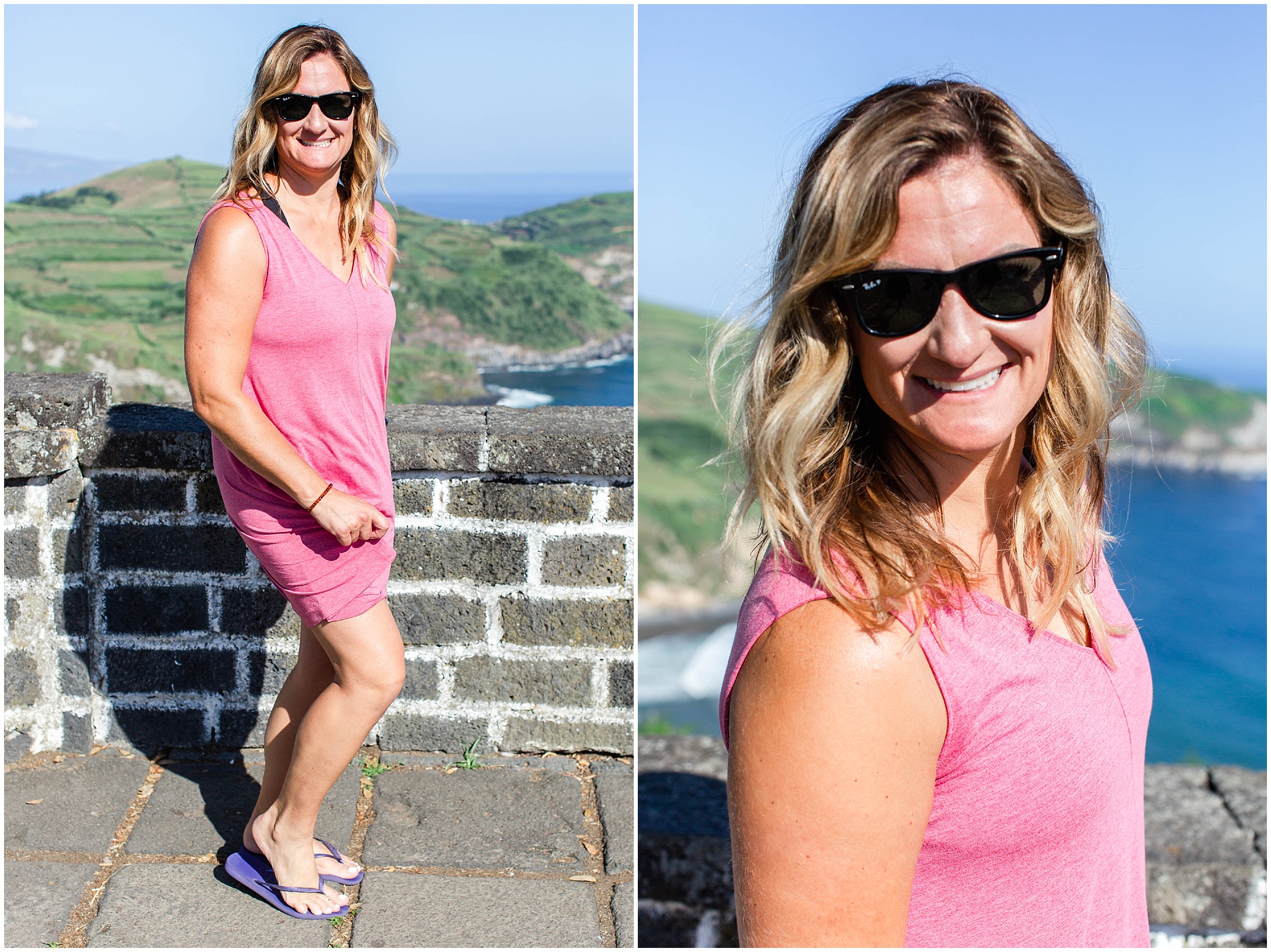
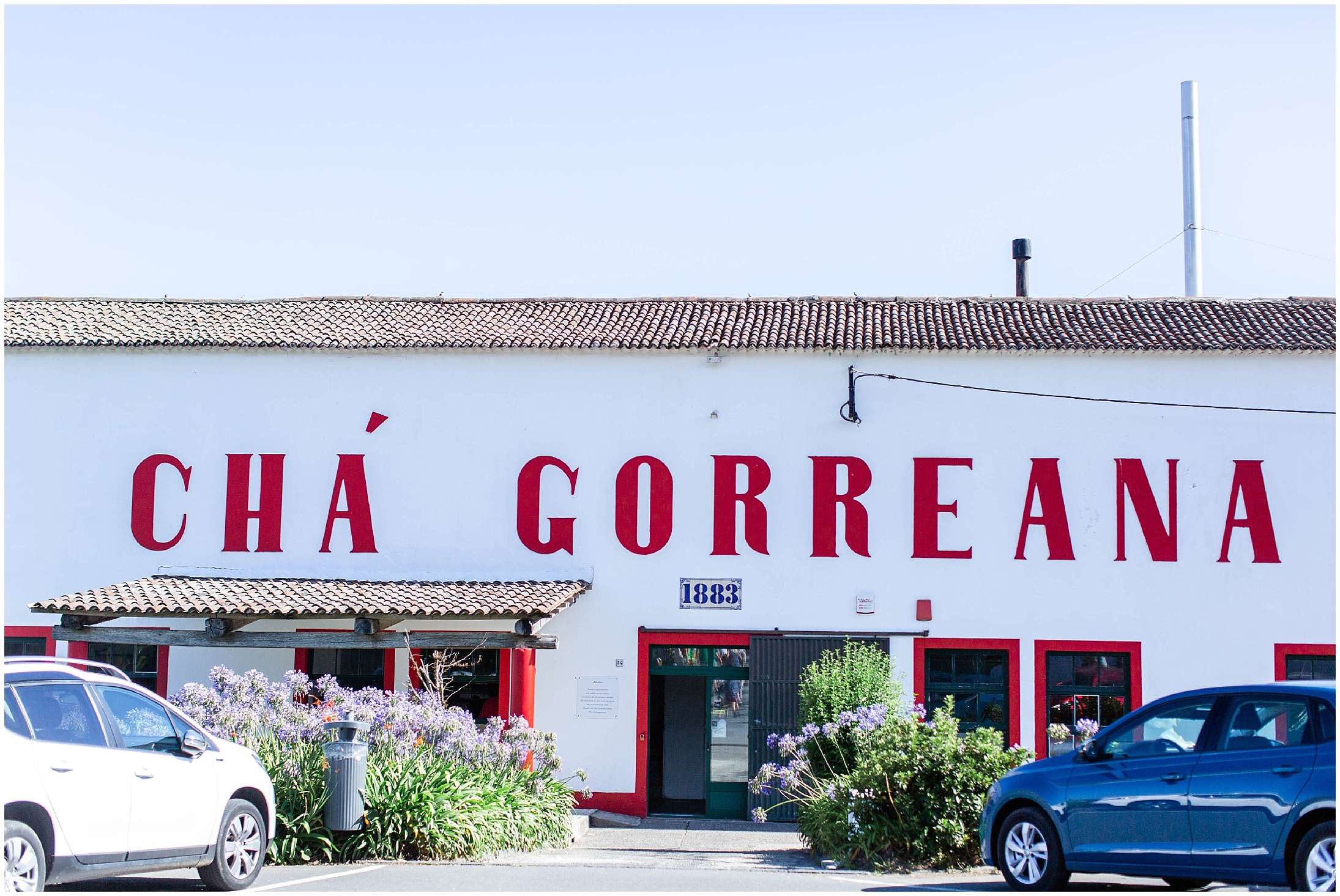
Gorreana Tea Plantation
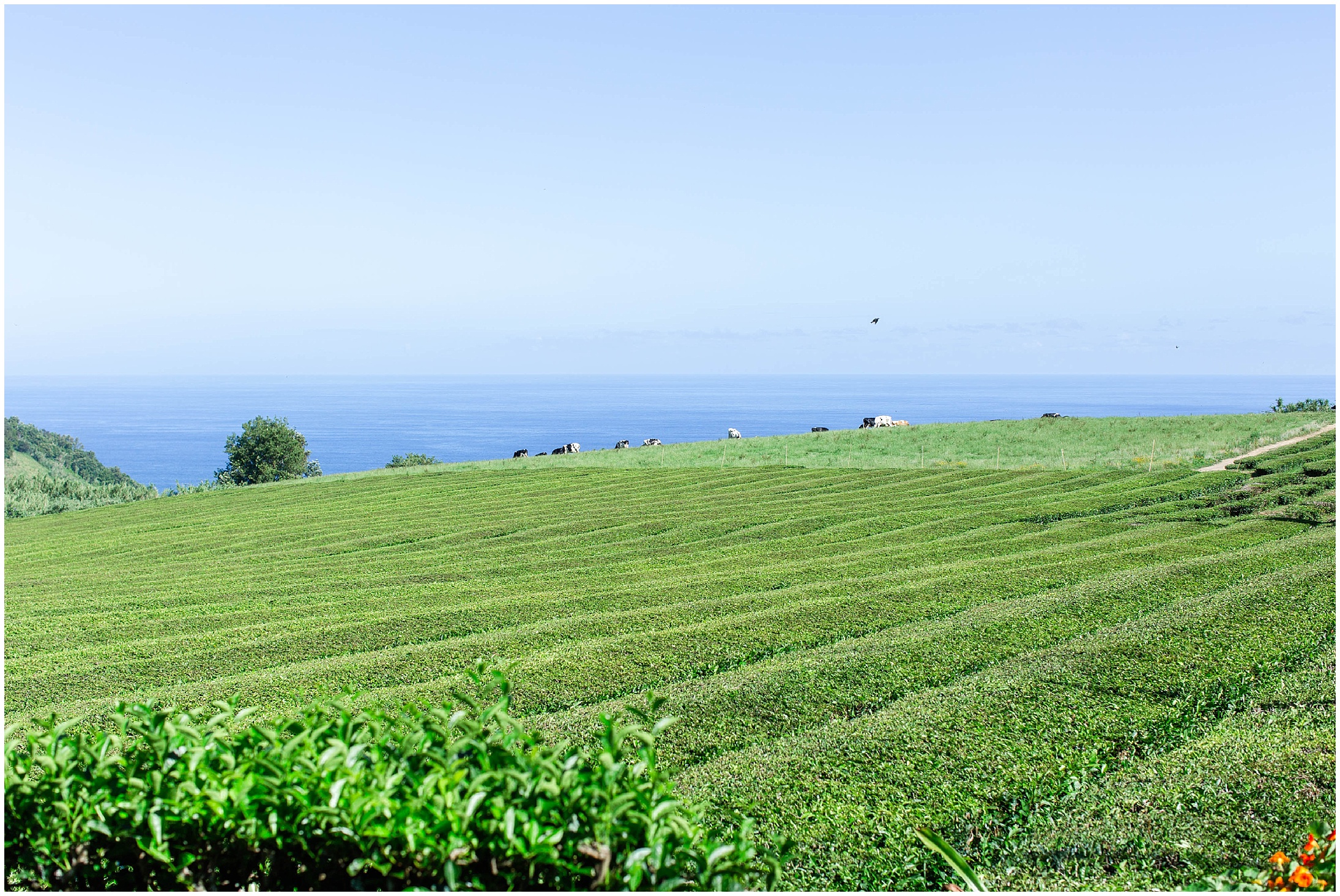
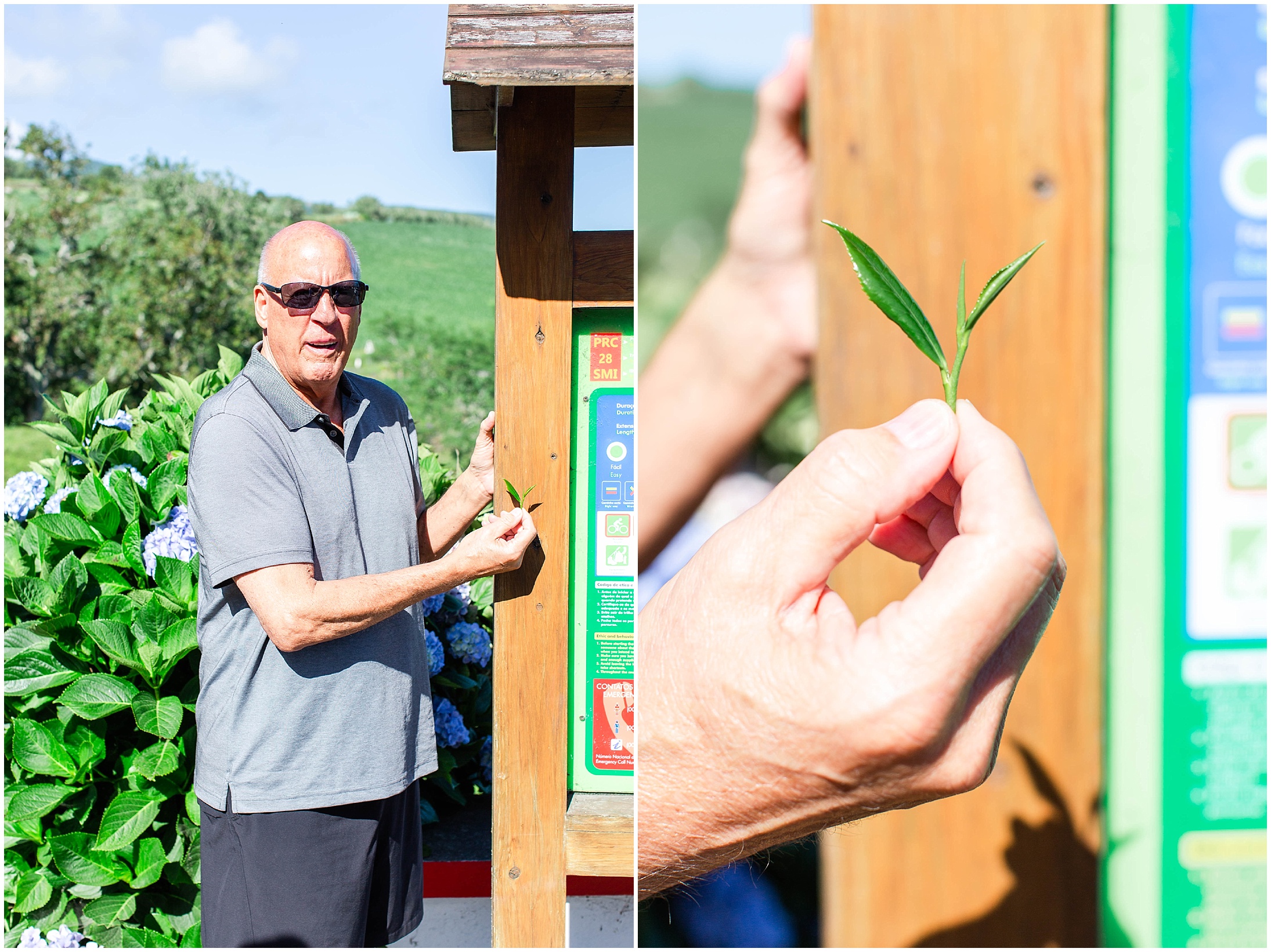
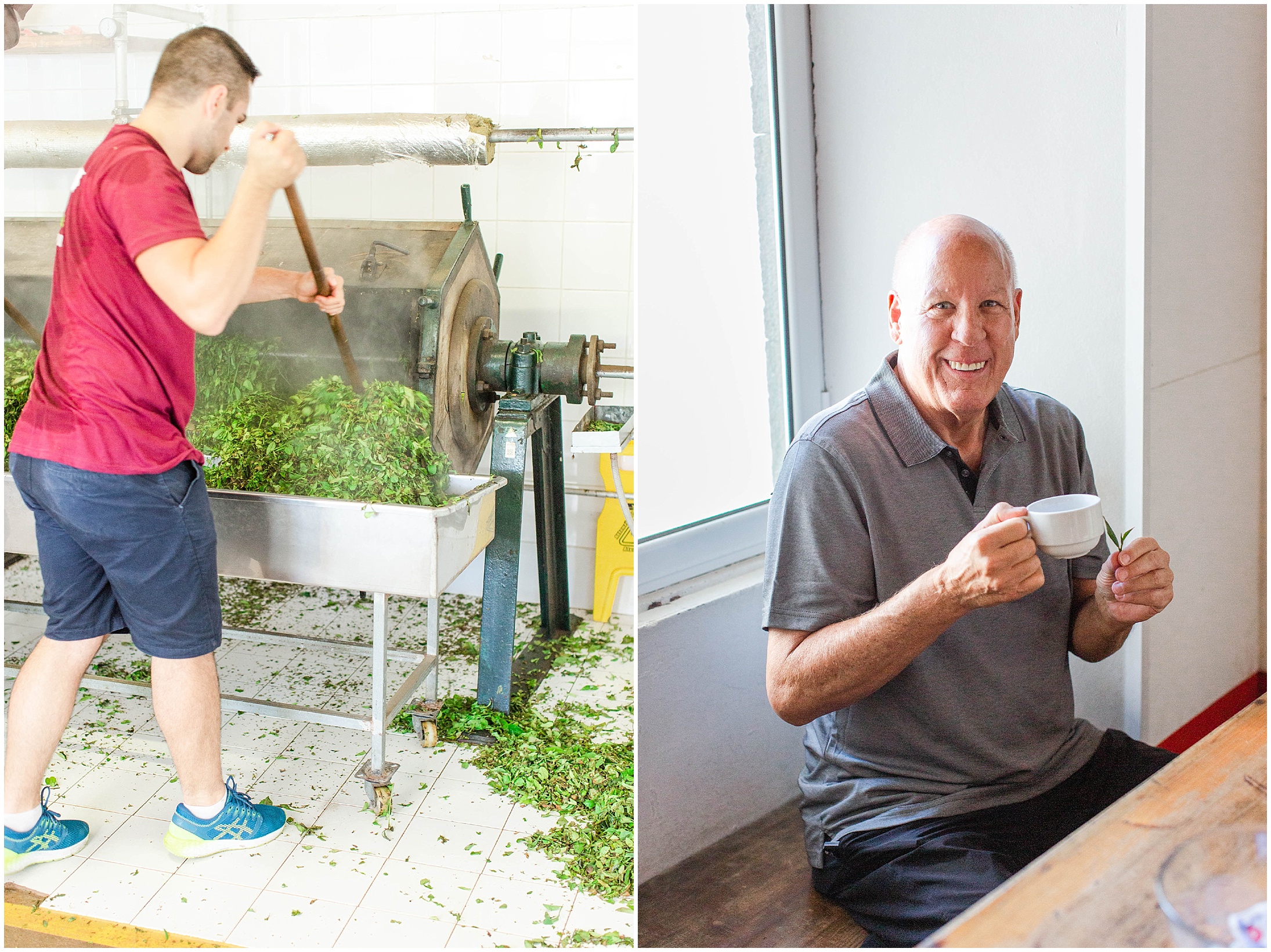
From picking to sampling the tea.
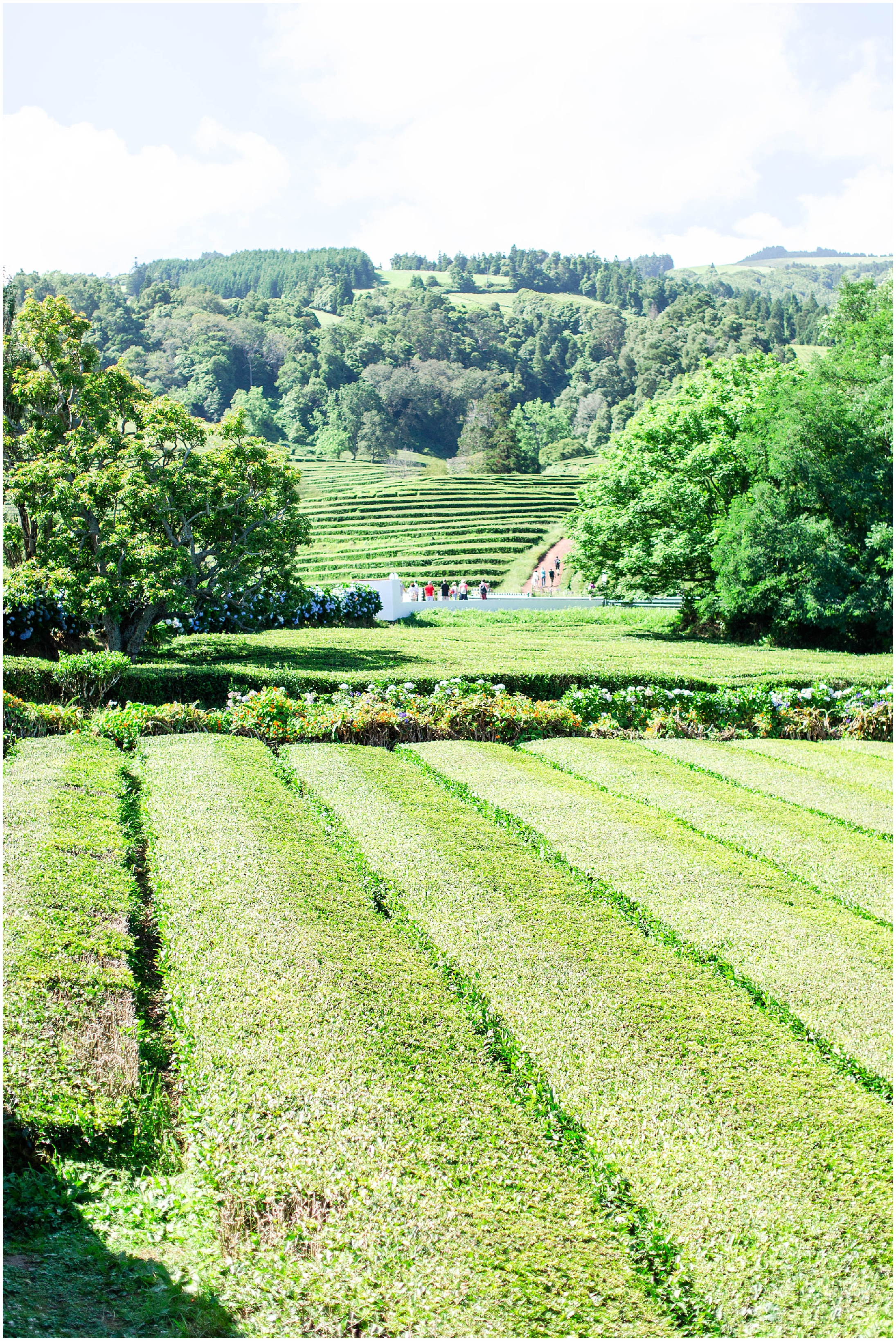
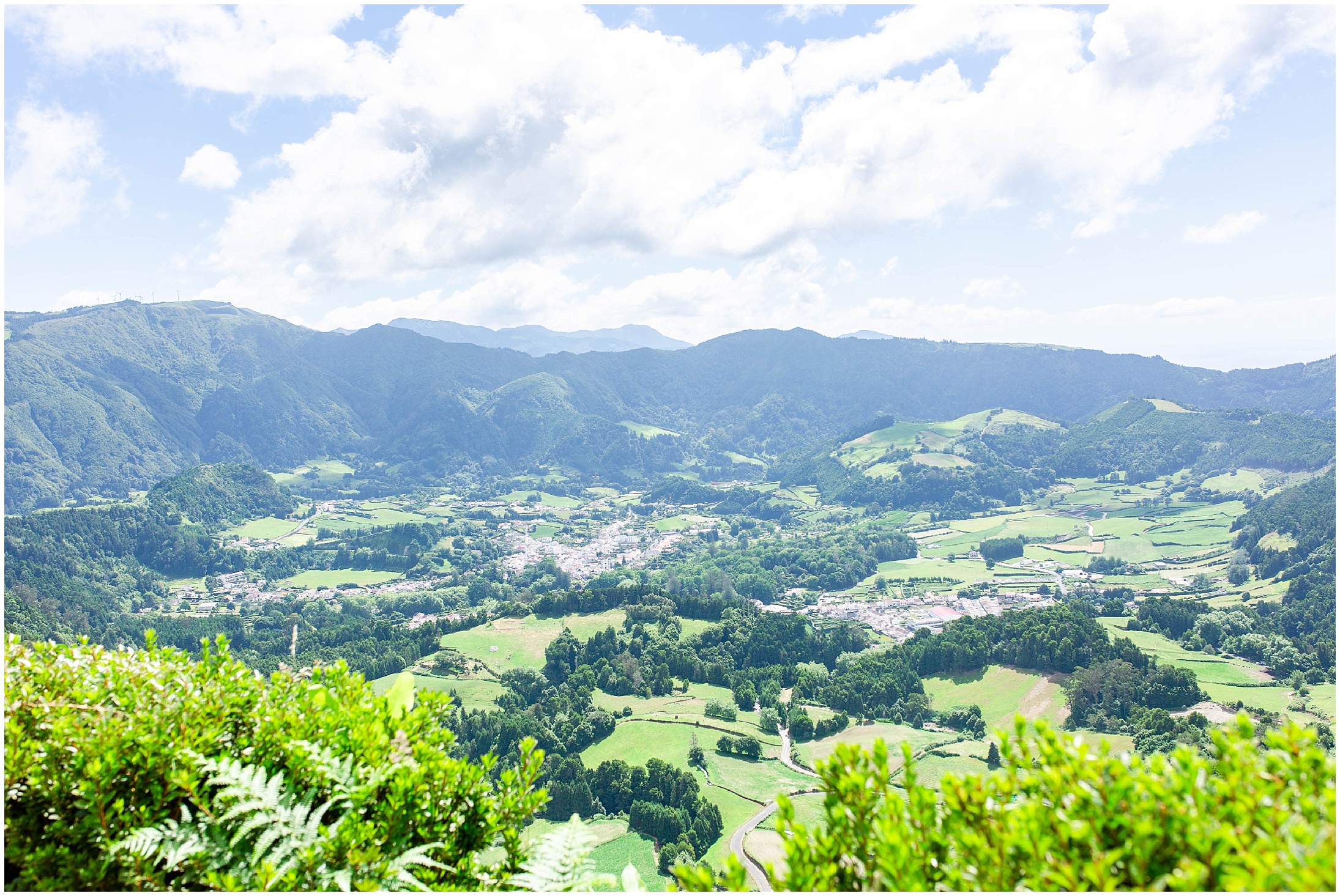
City of Furnas
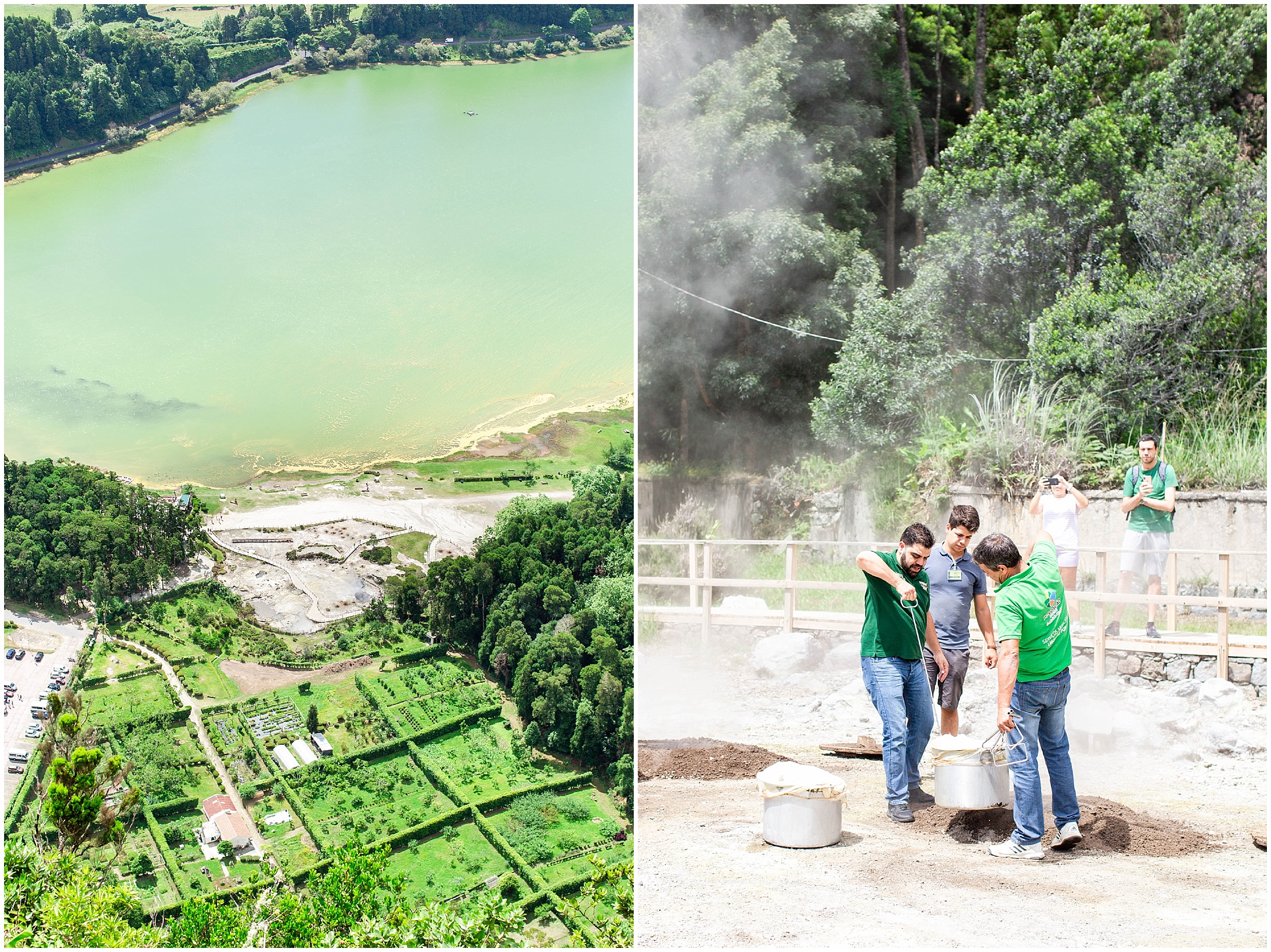
Caldera Stew goes underground around 5 a.m., and it is pulled out around noon for meals.
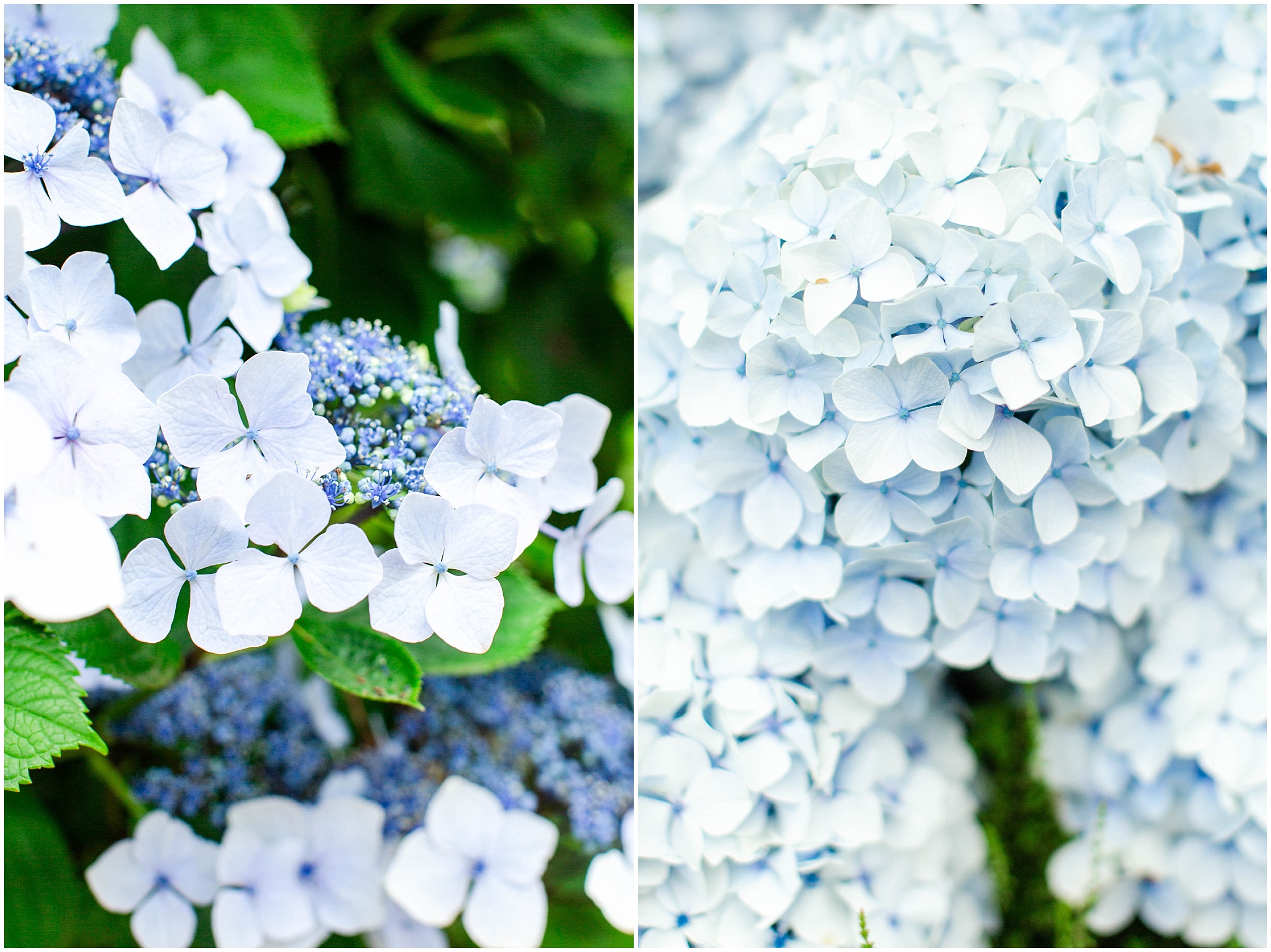
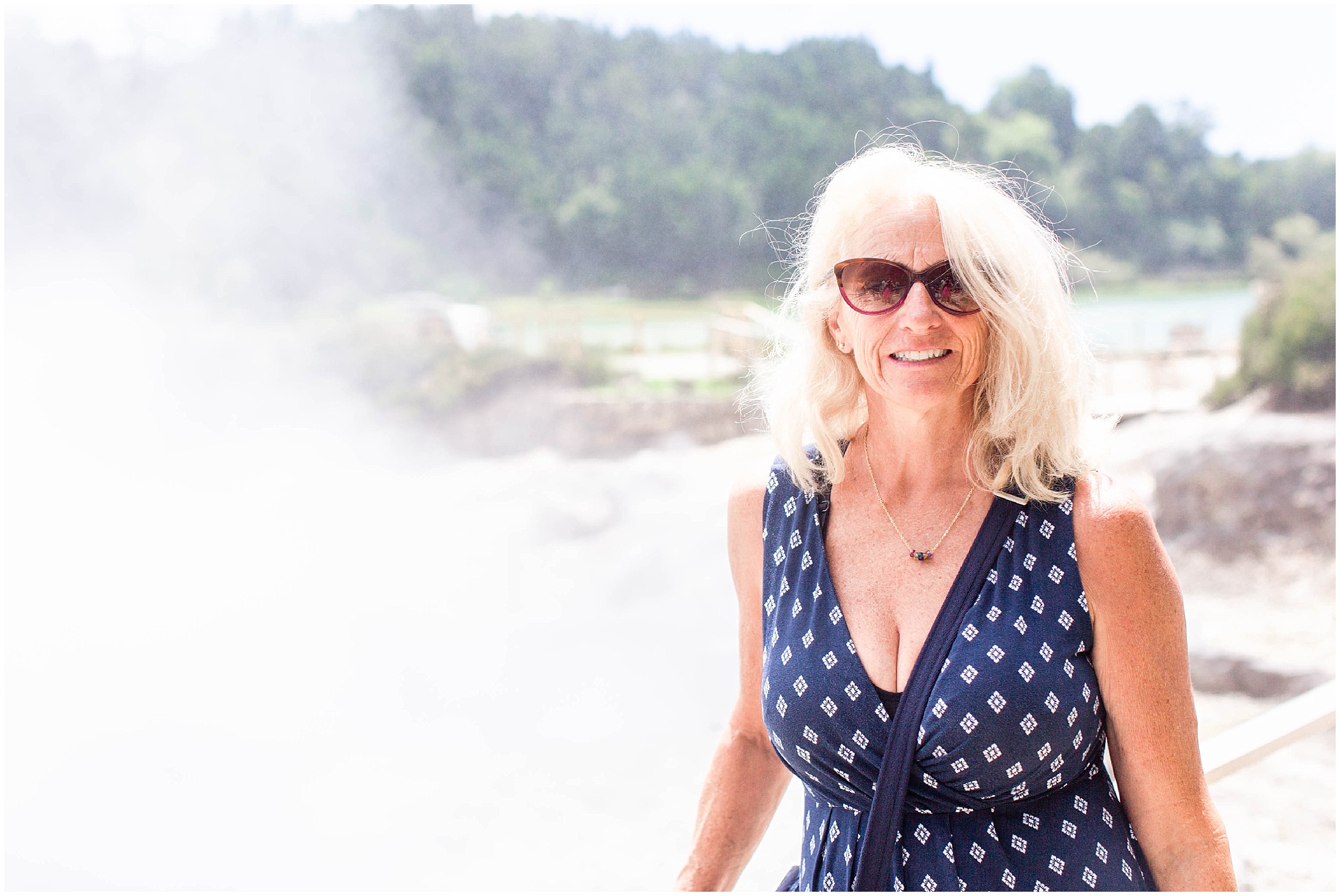
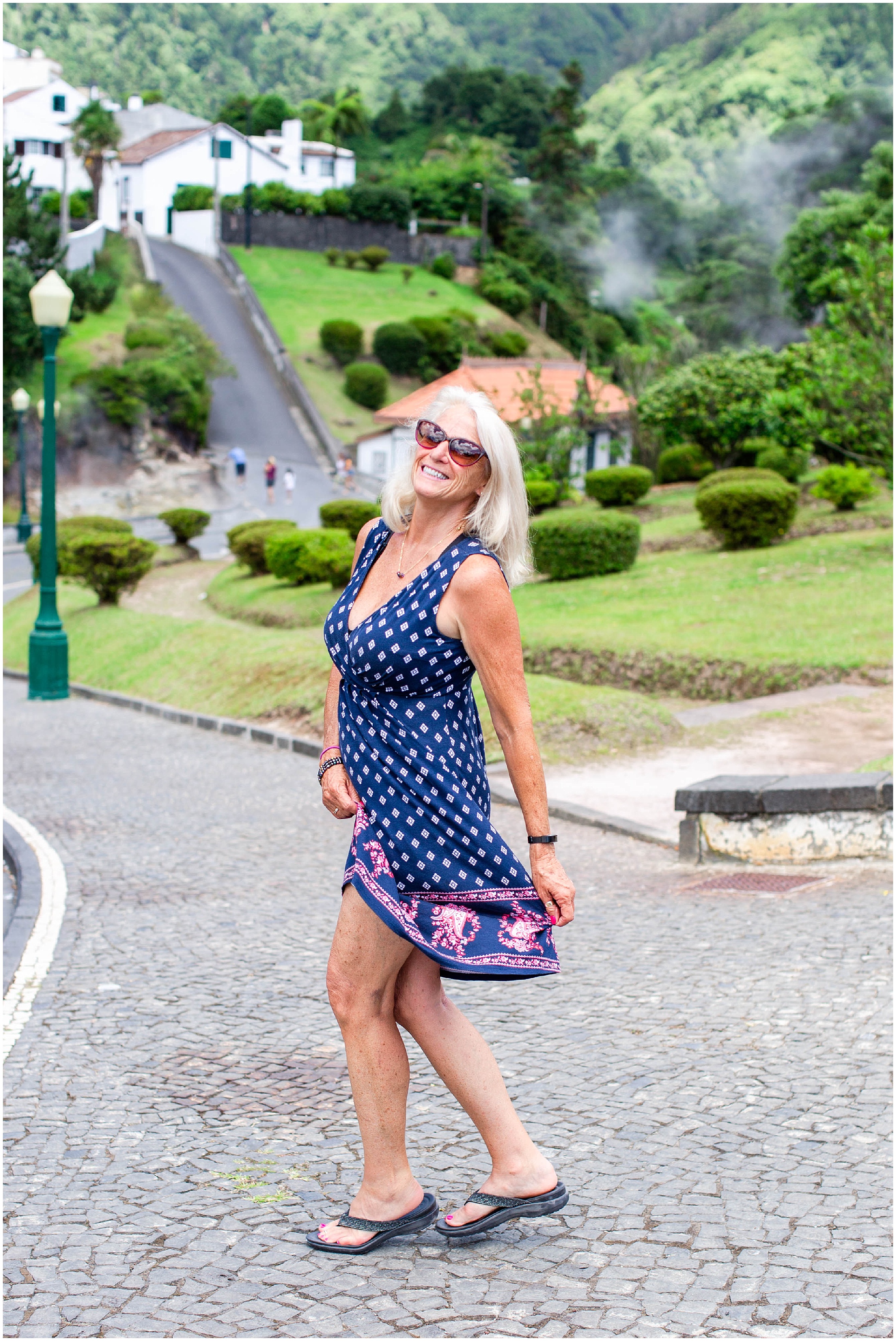
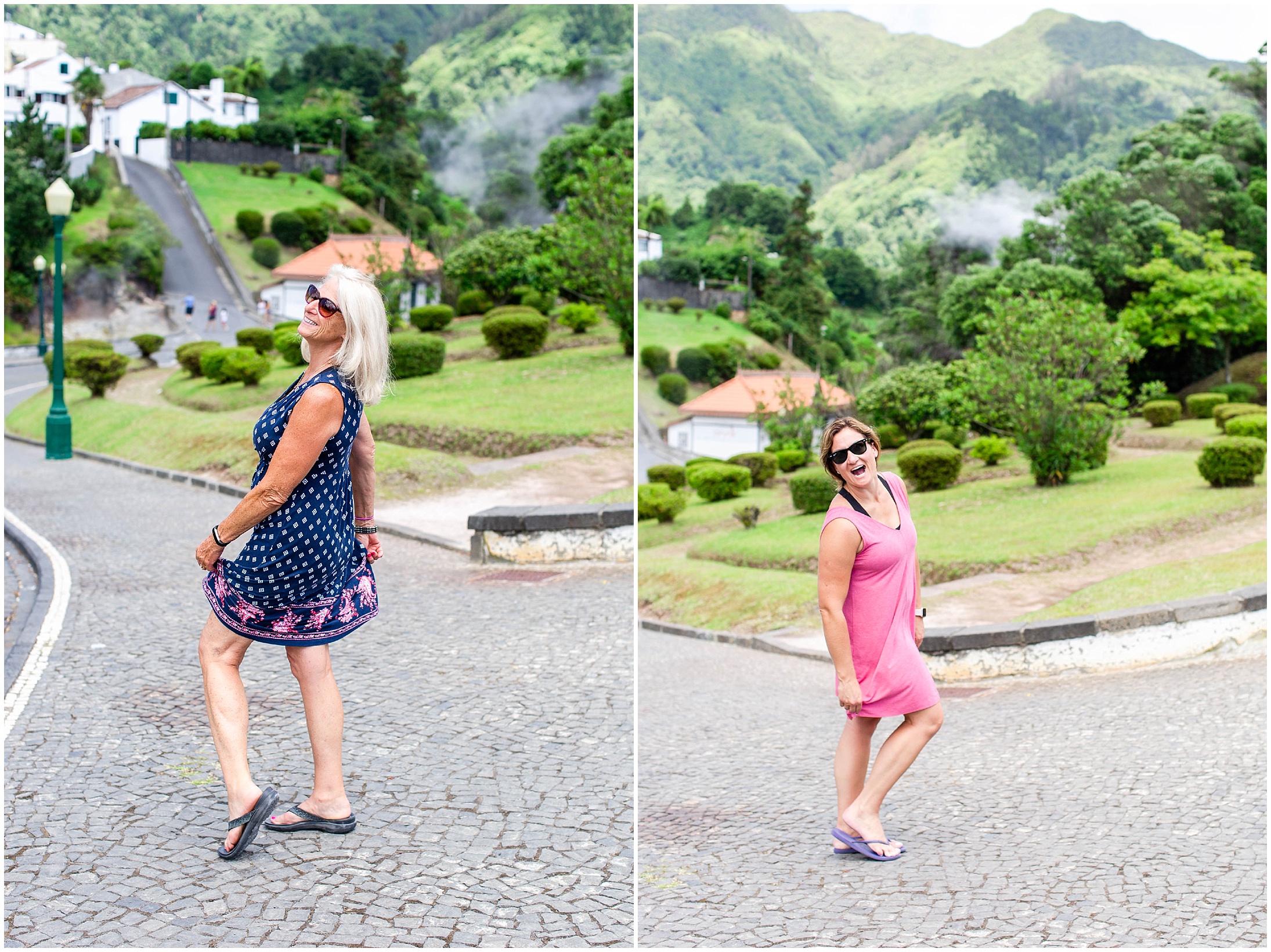
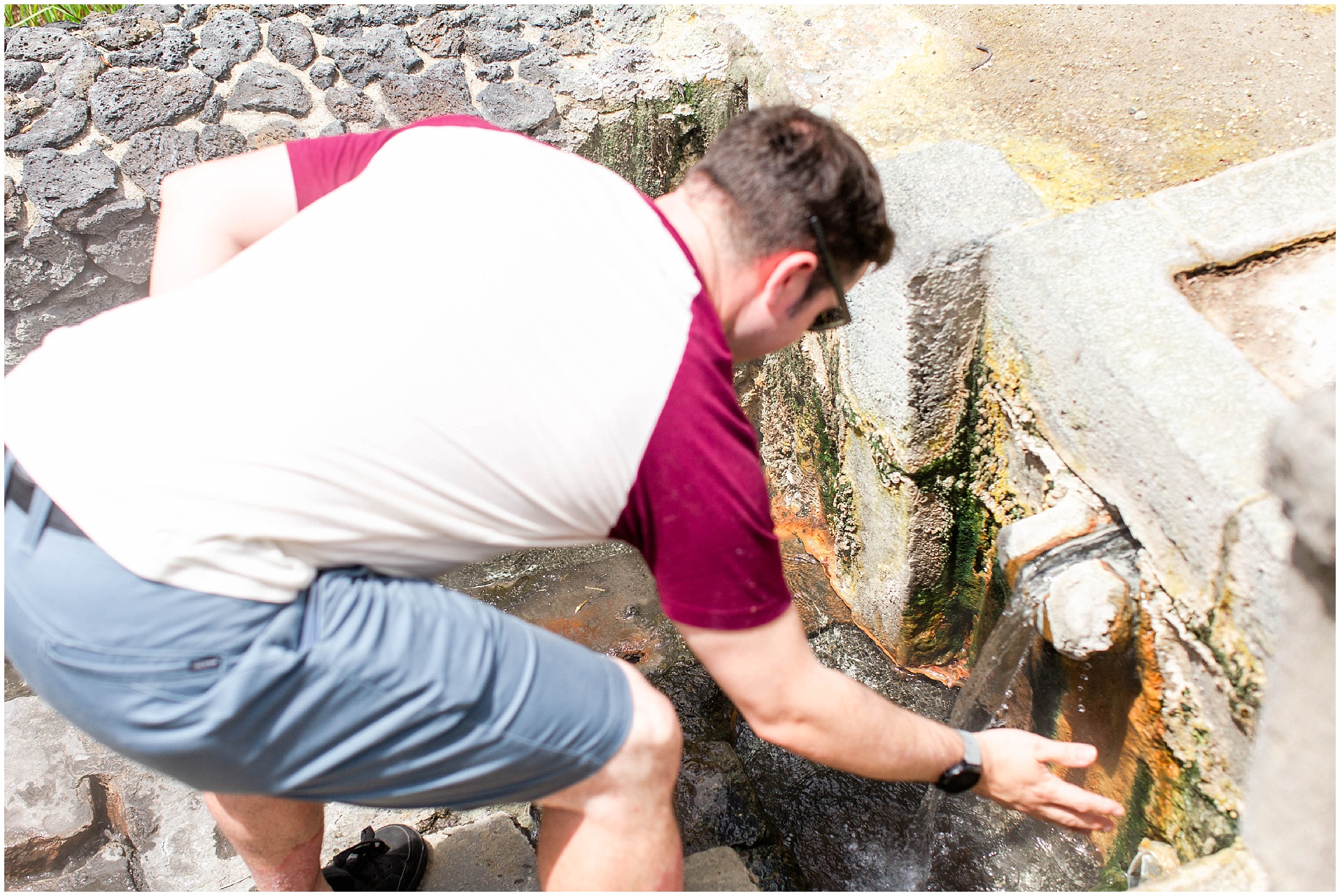
John slicing his hand through hot natural springs.
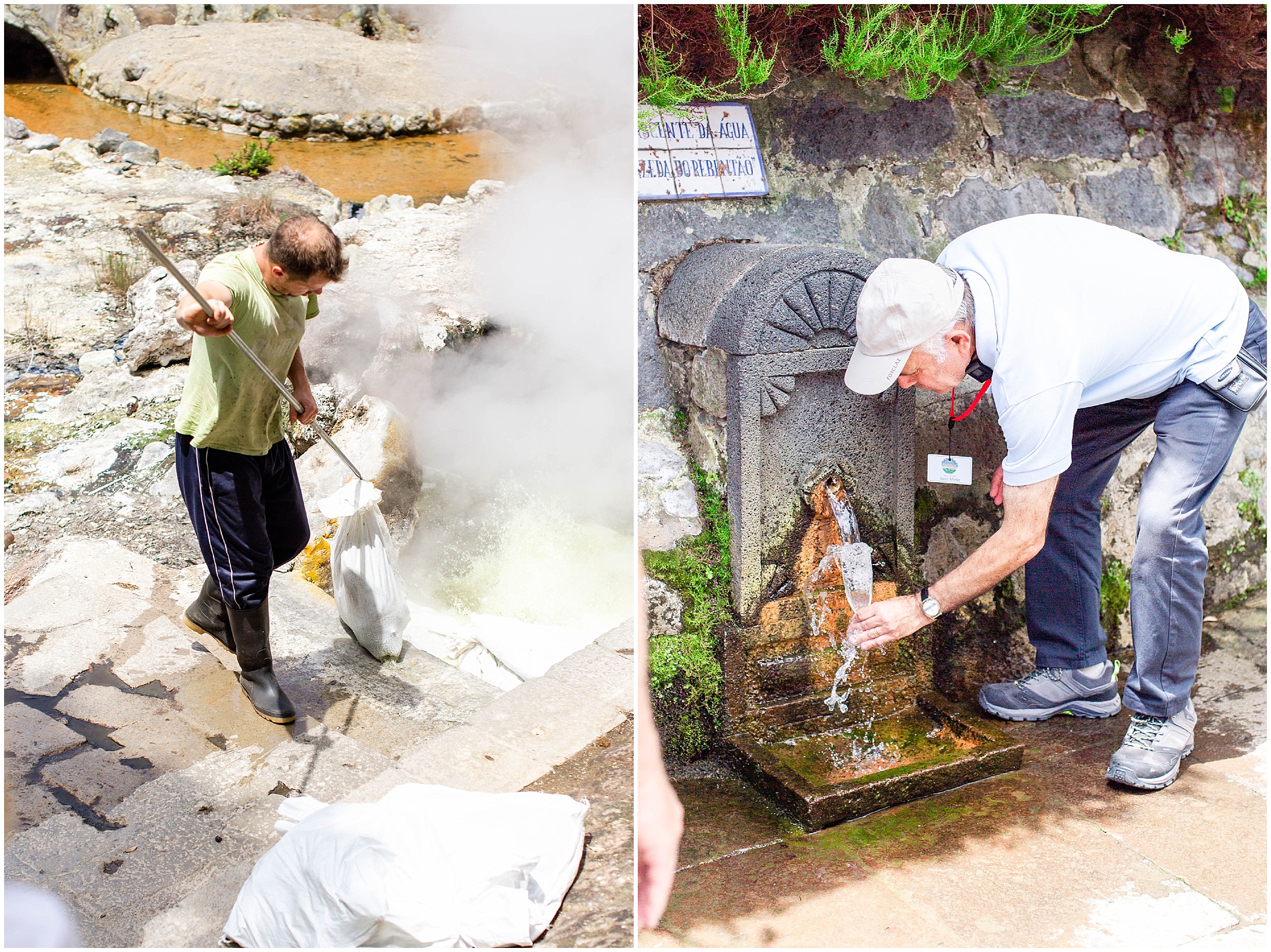
Left: A local is pulling bags of corn on the cob out of the natural hot springs. Right: Tour Guide, José, sampling the “non-alcoholic volcanic champagne”.
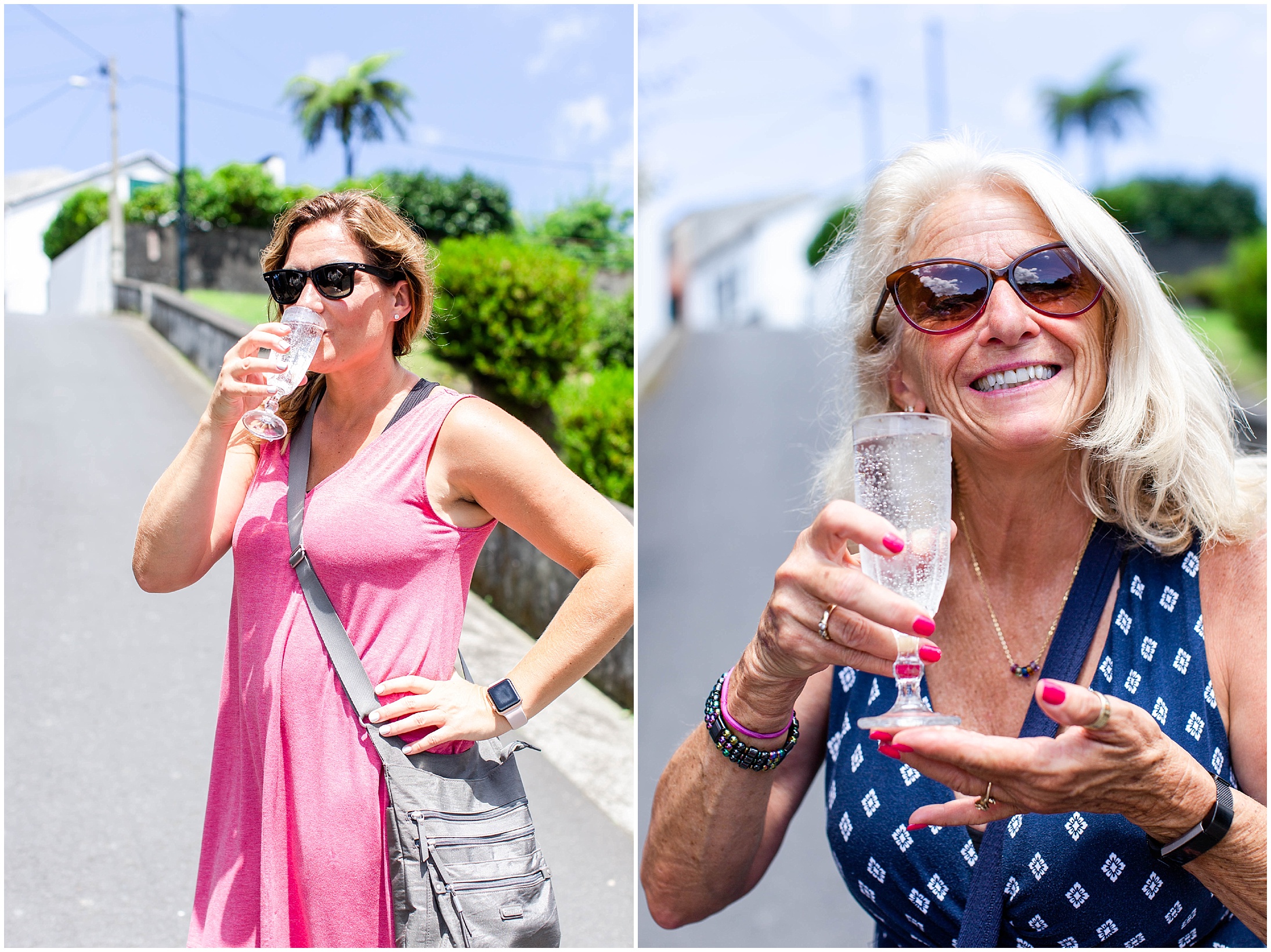
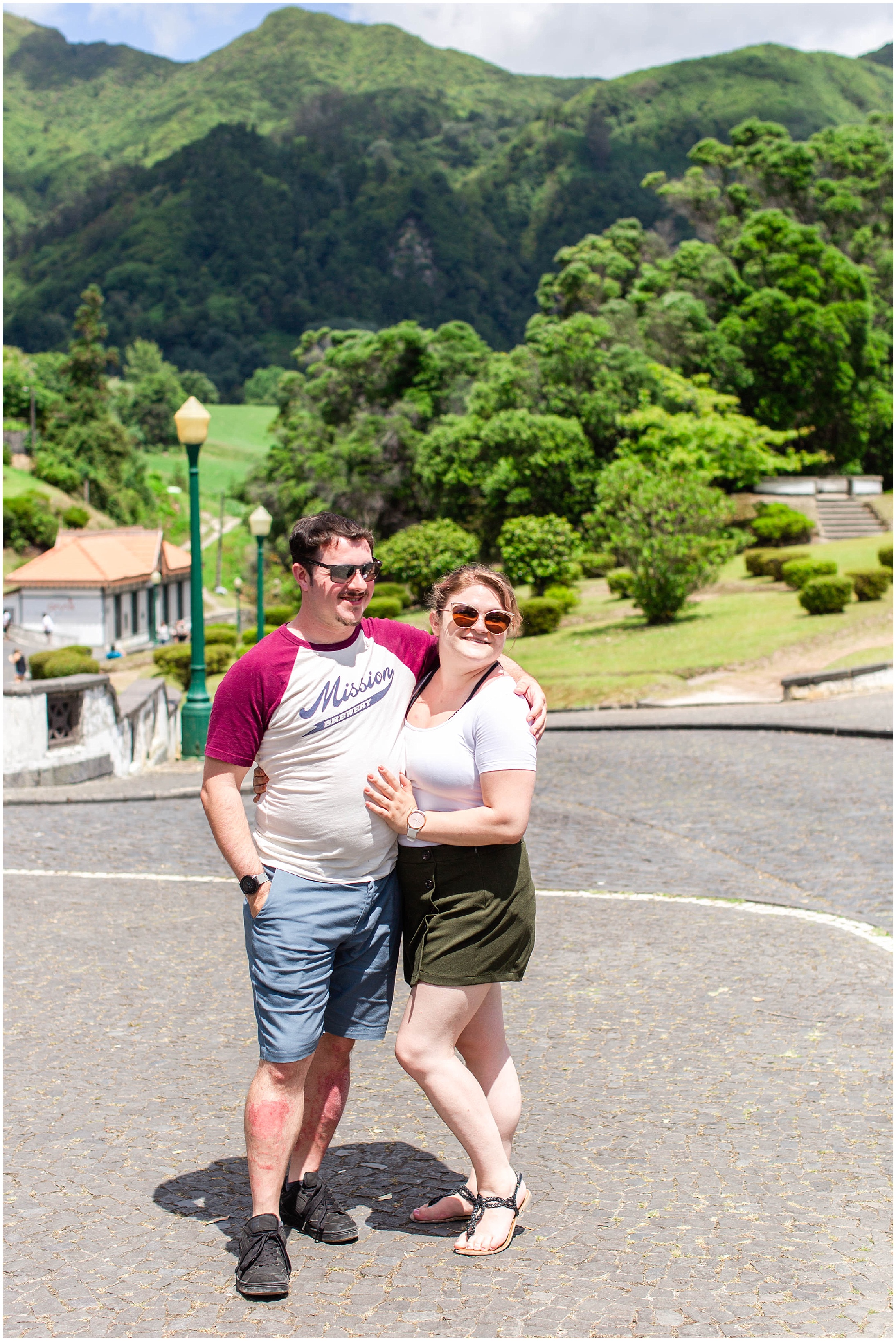
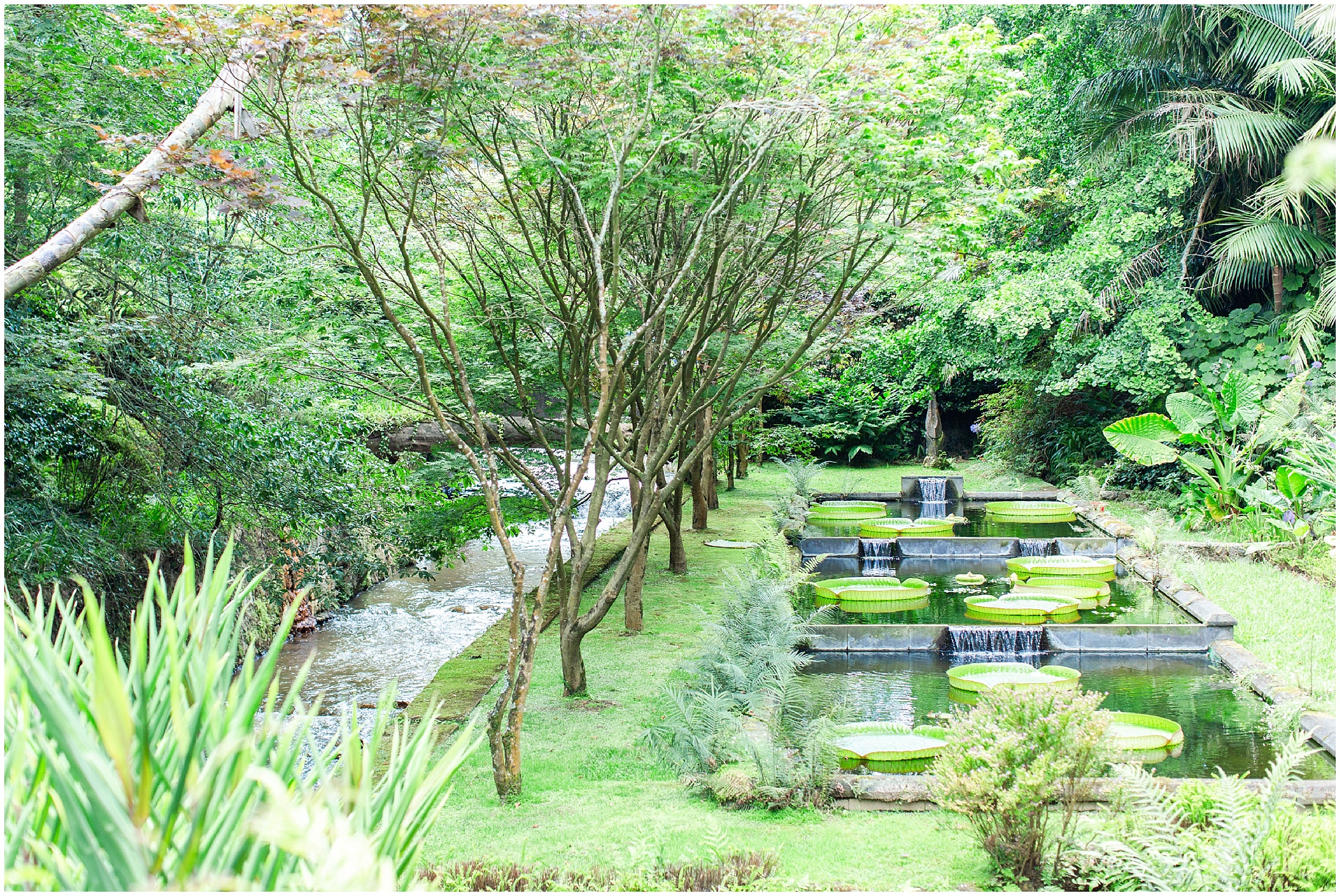
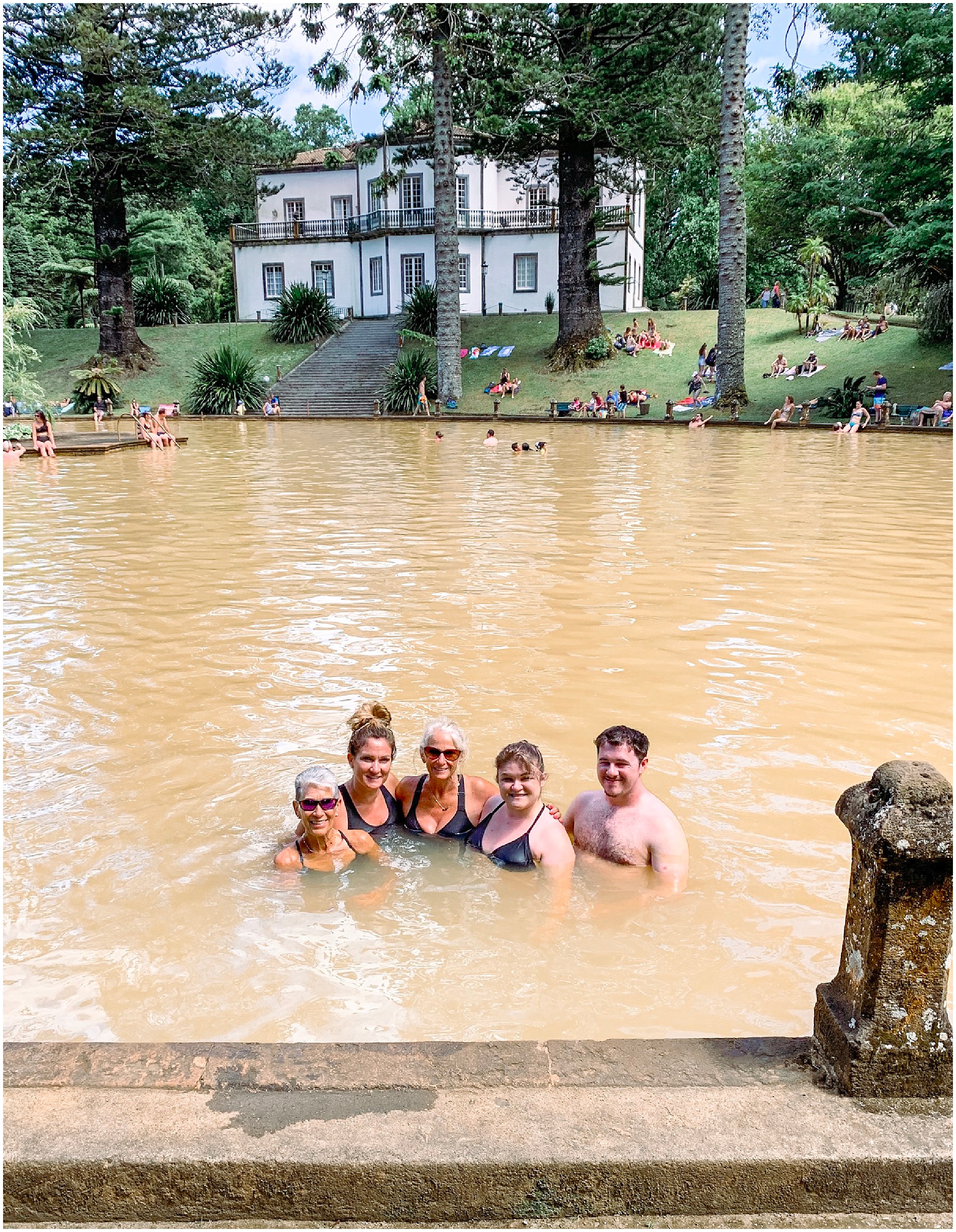
Furnas natural hot springs (pool).
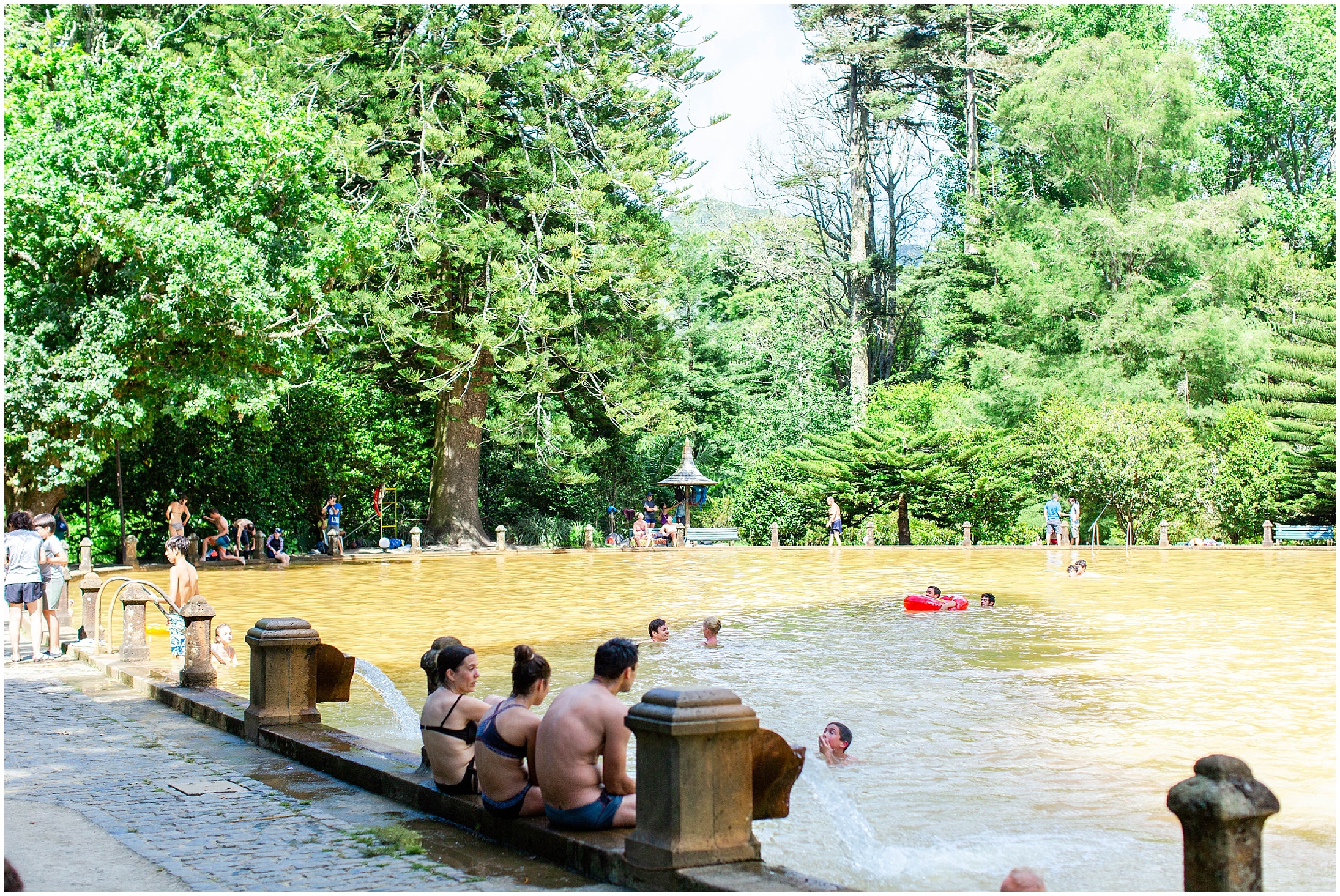
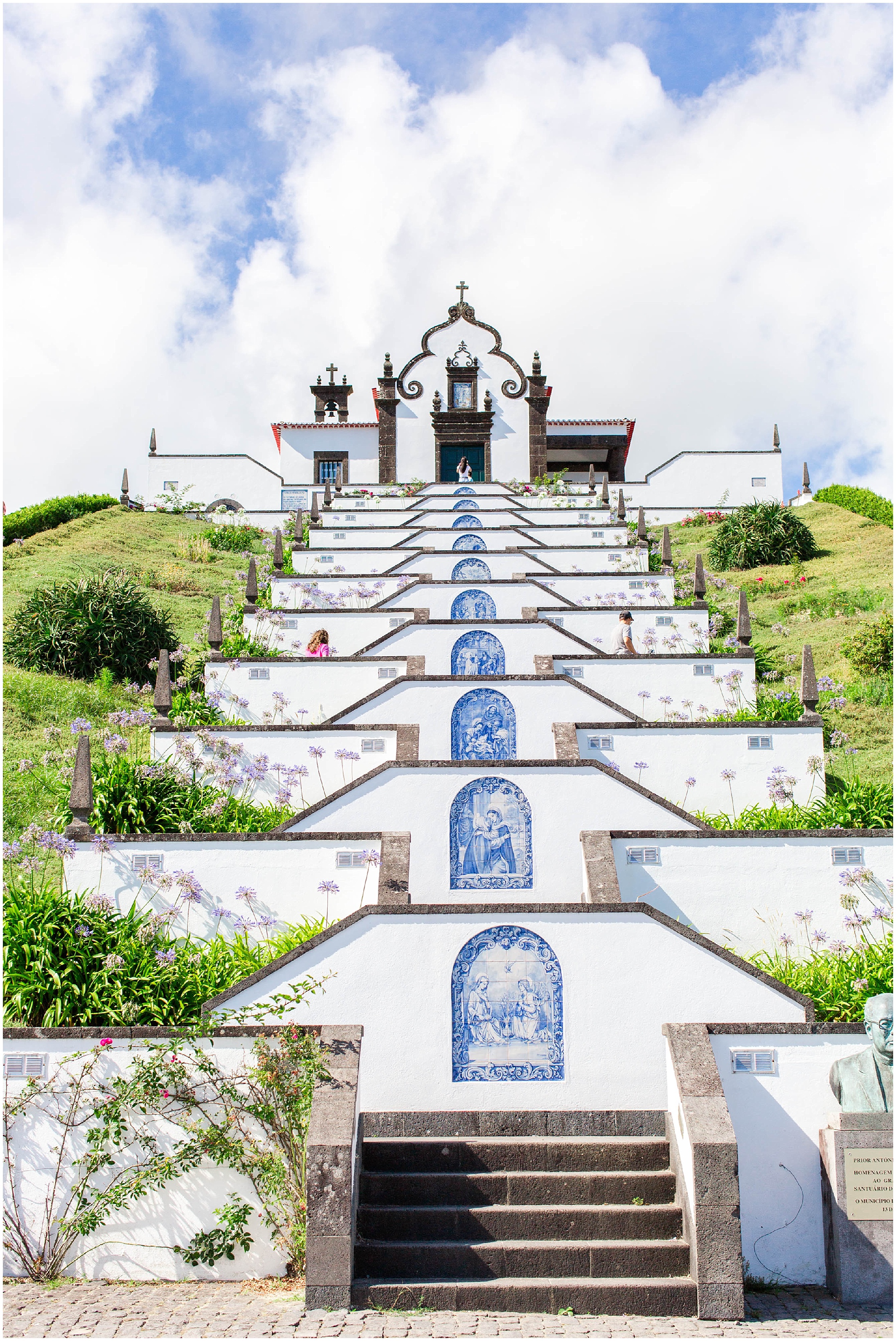
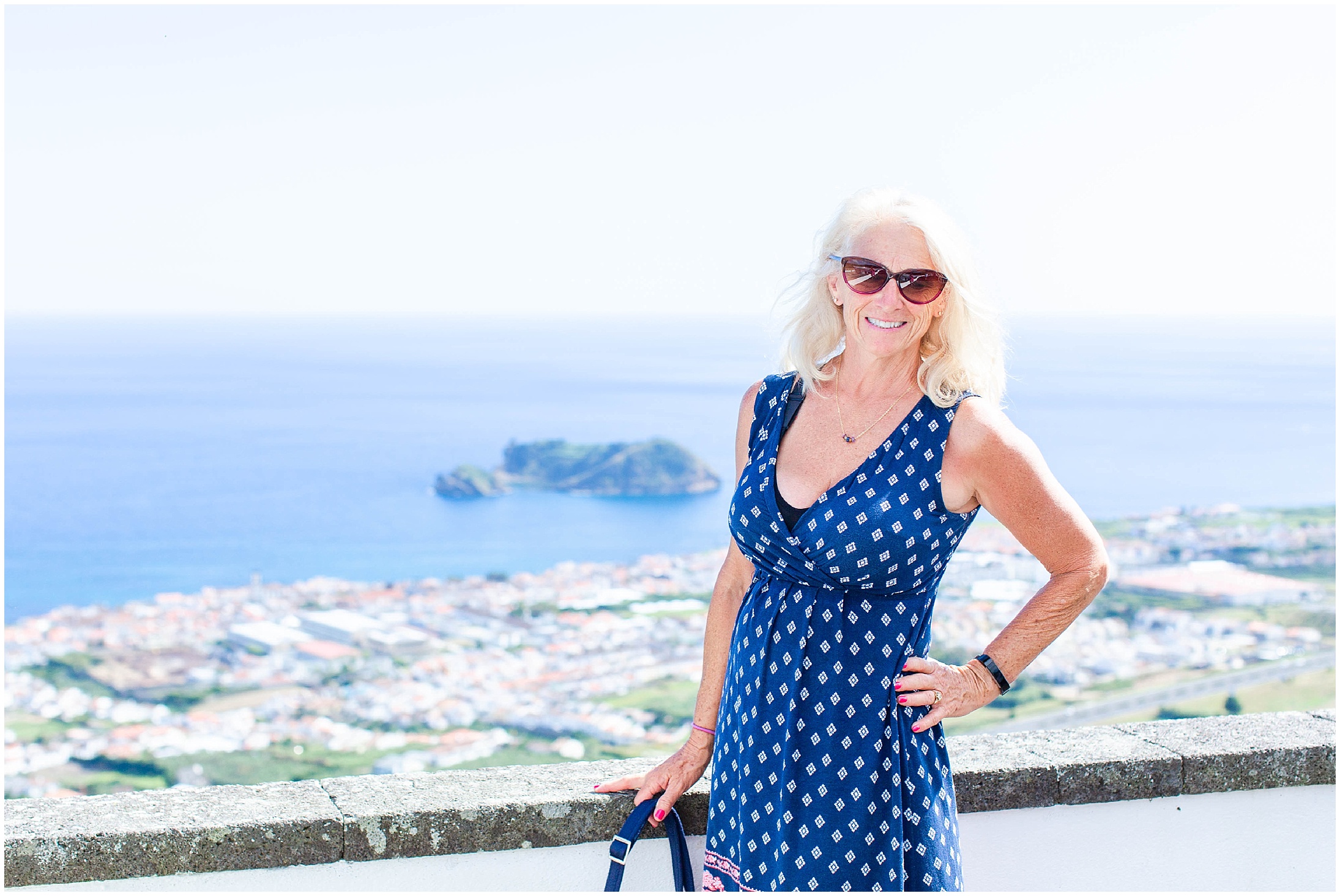
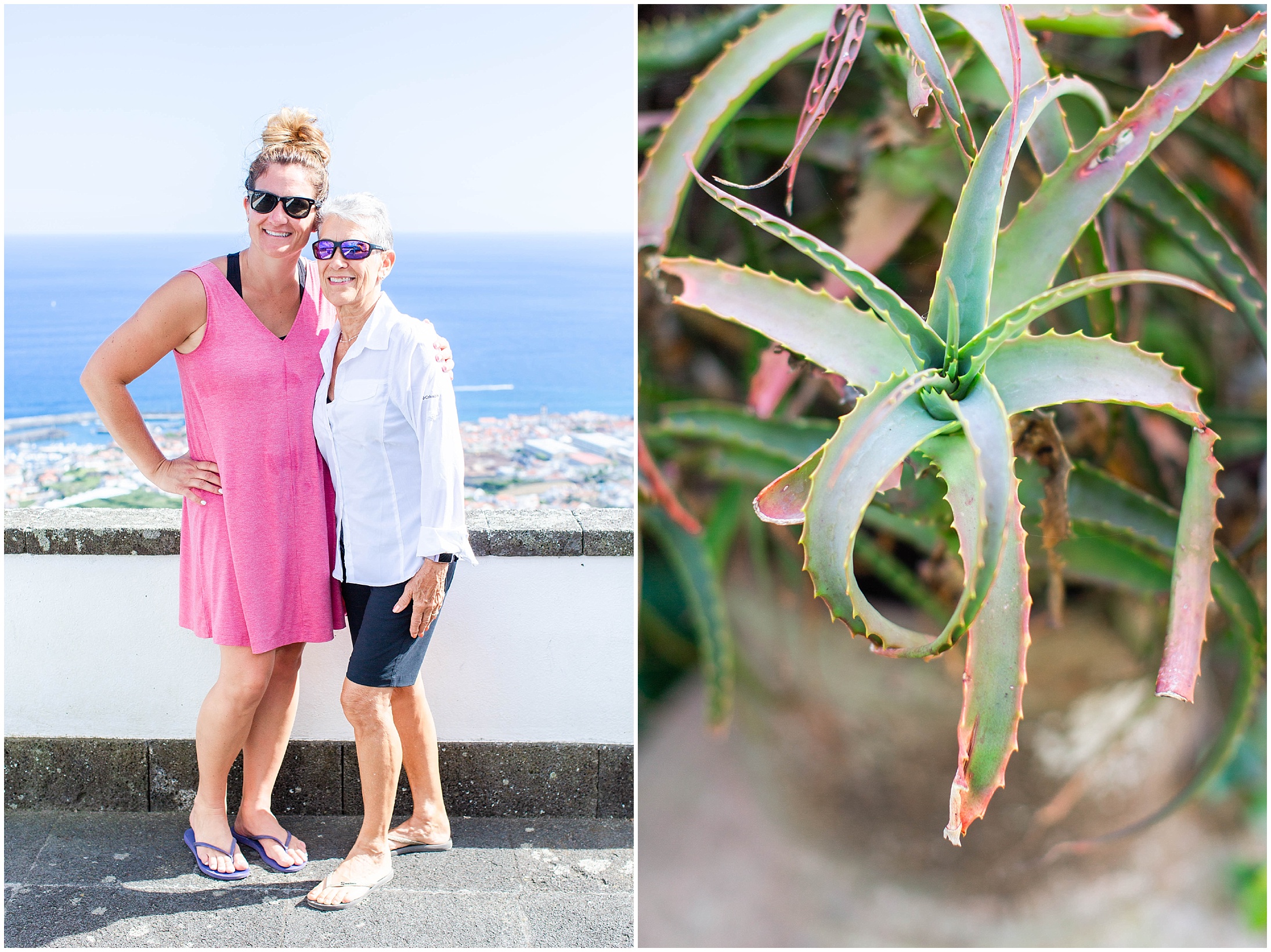
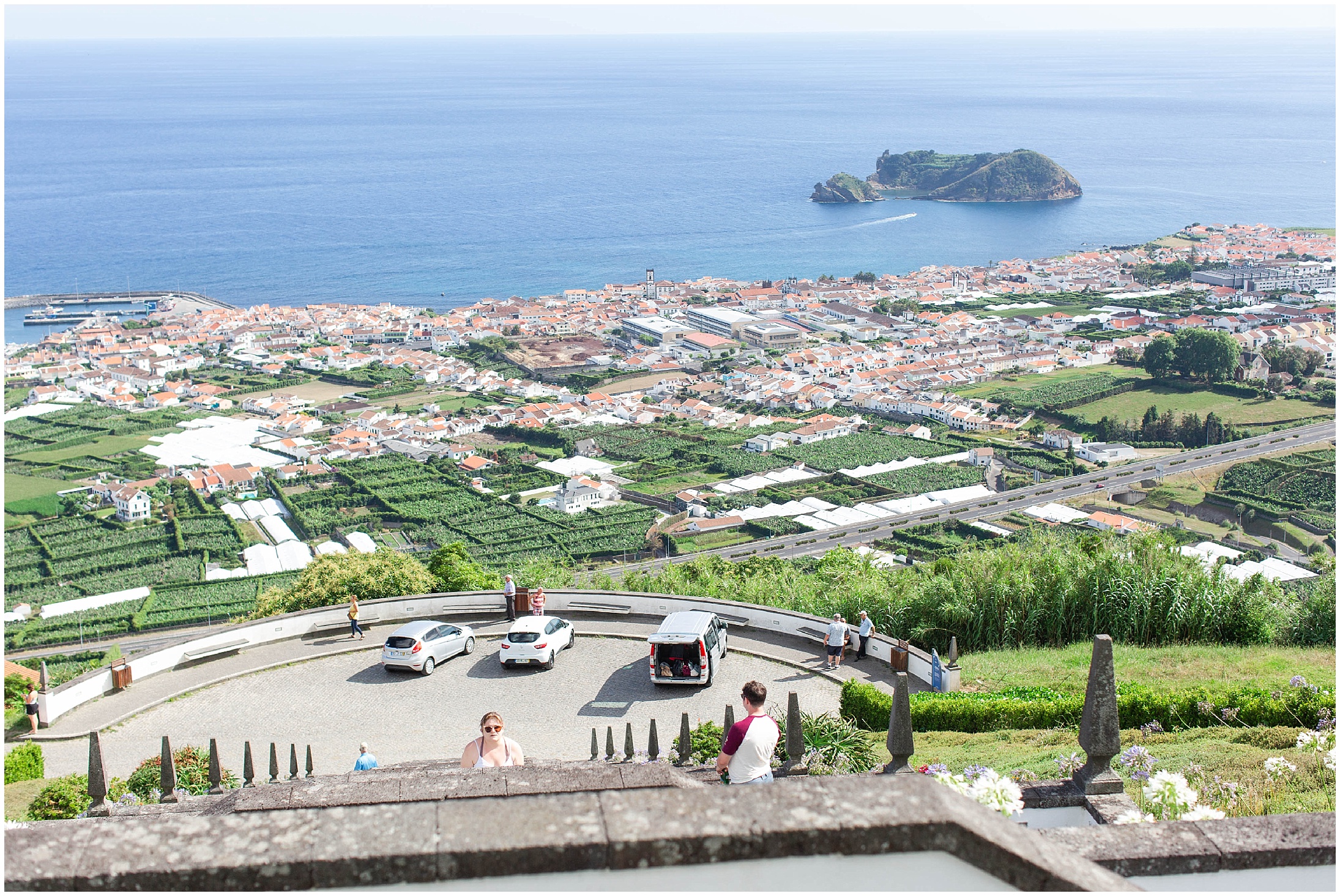
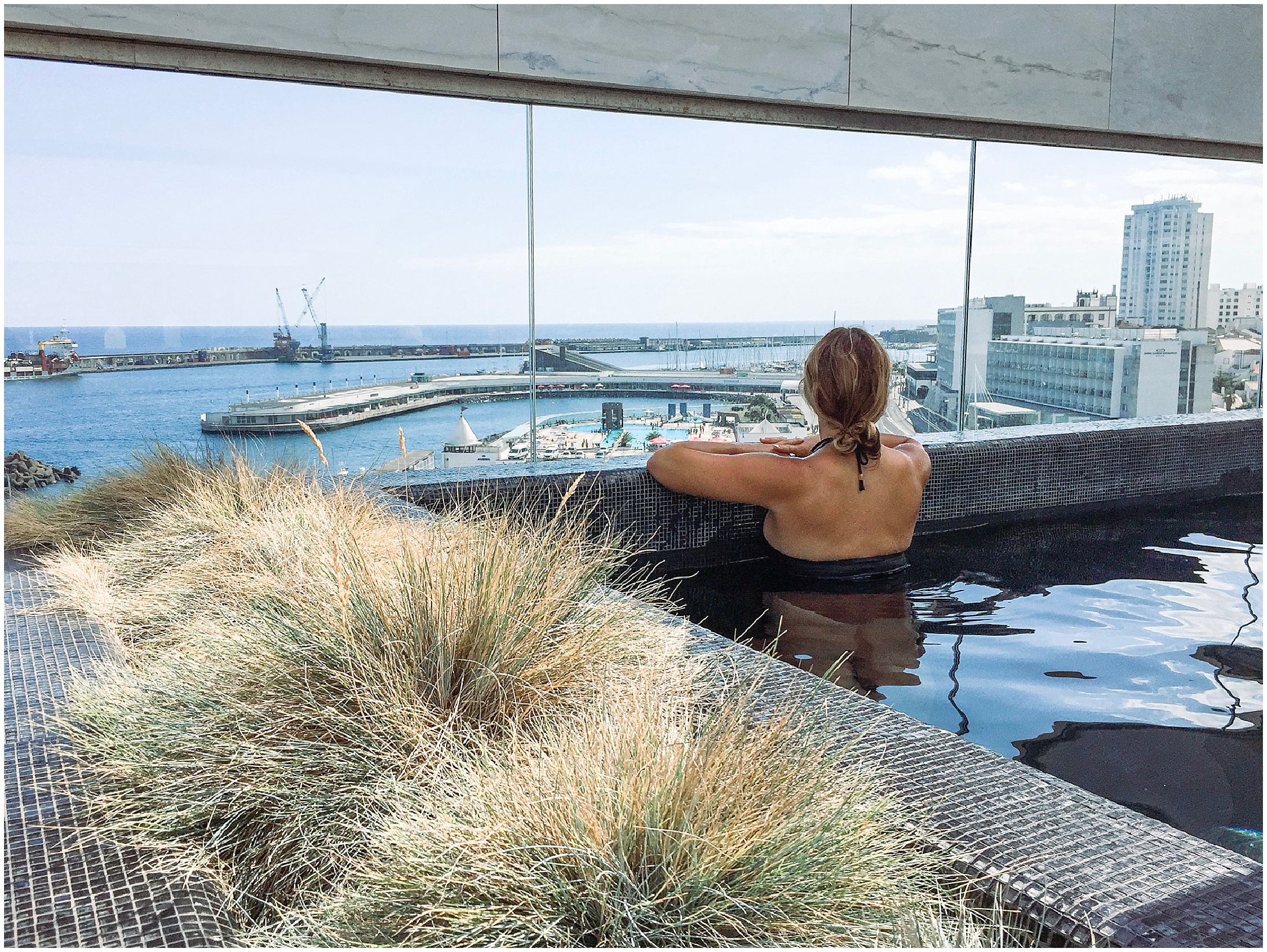
My view from the Azor Hotel pool.
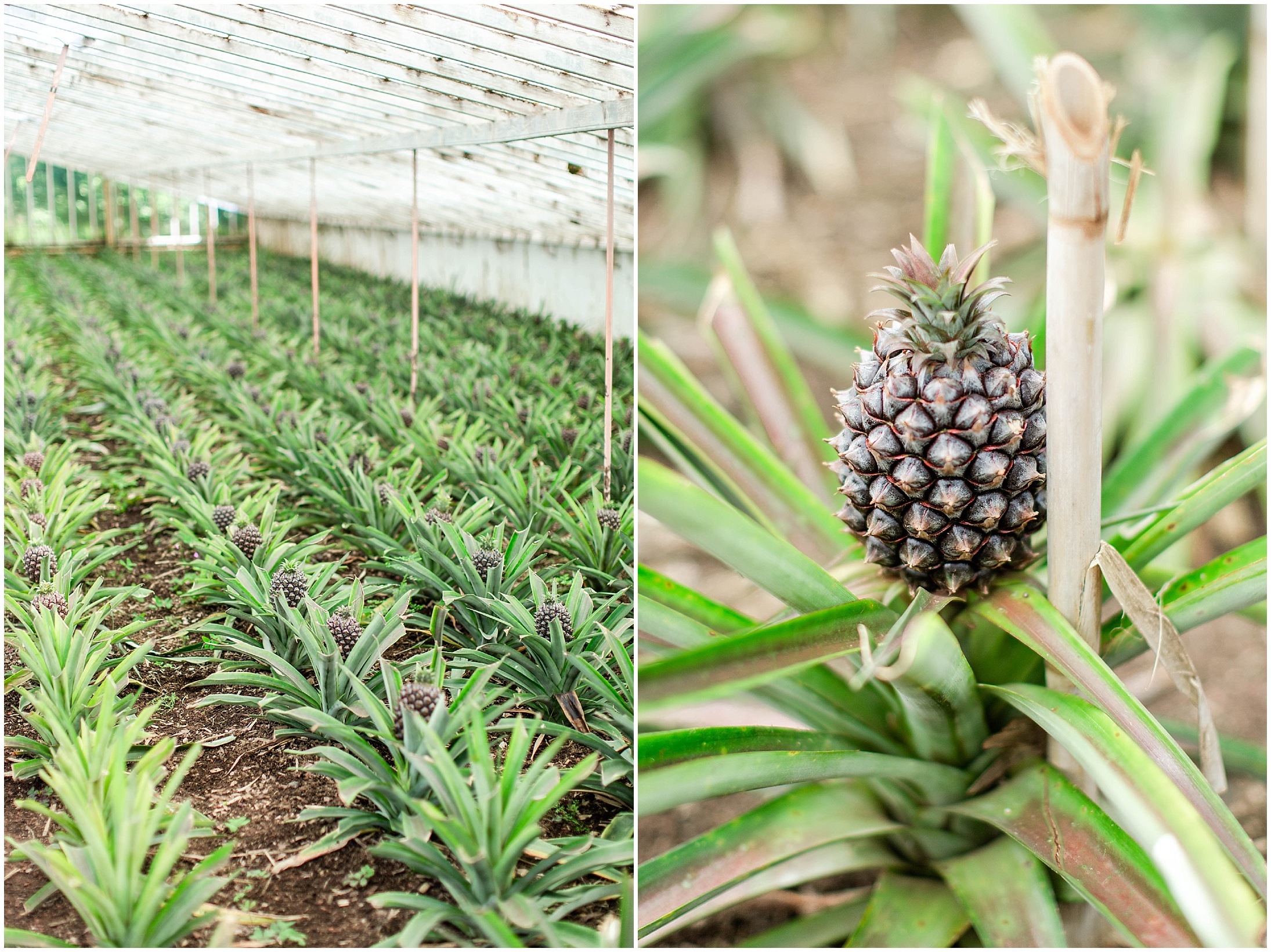
Pineapple Plantation. It takes about two years to produce a pineapple.
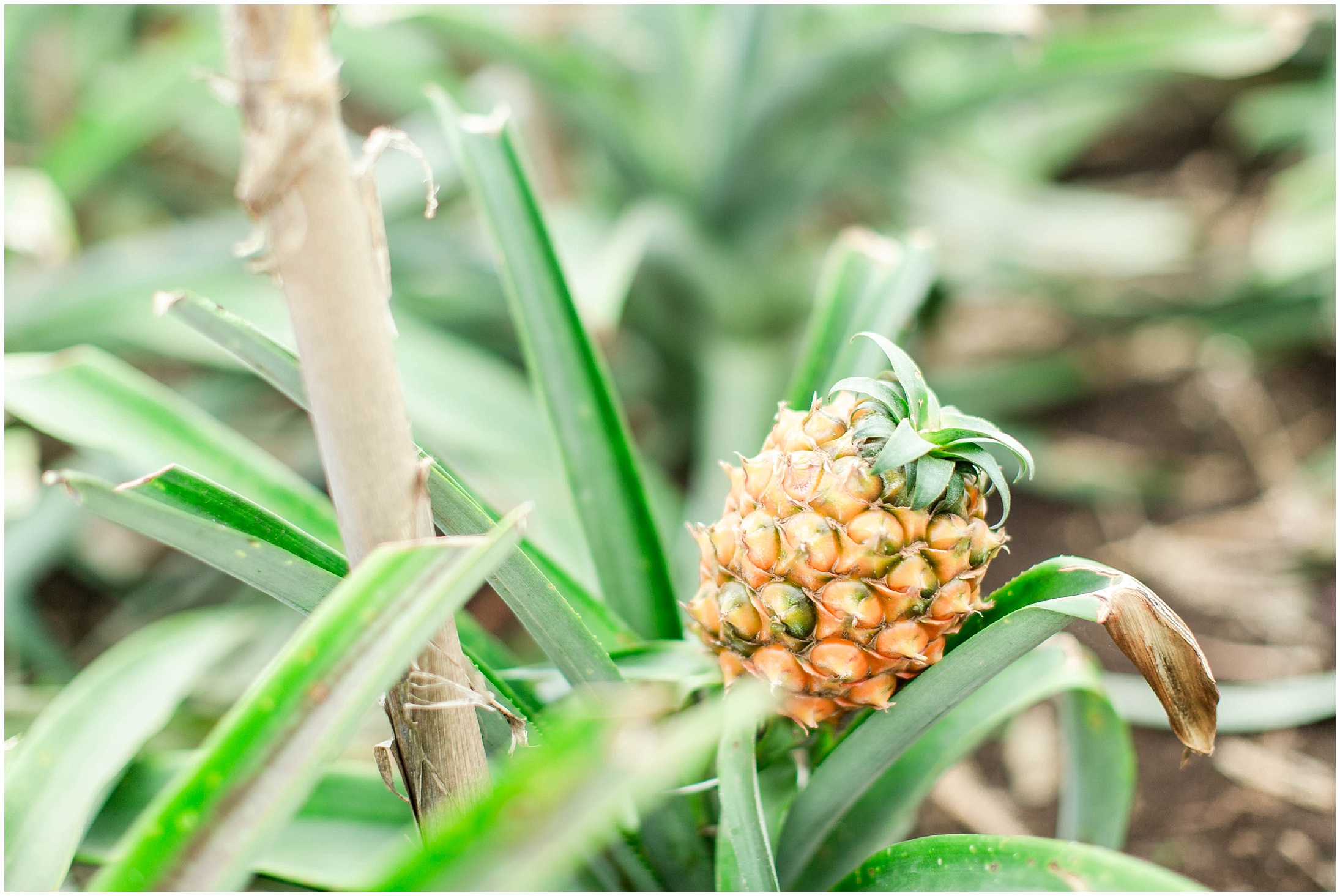
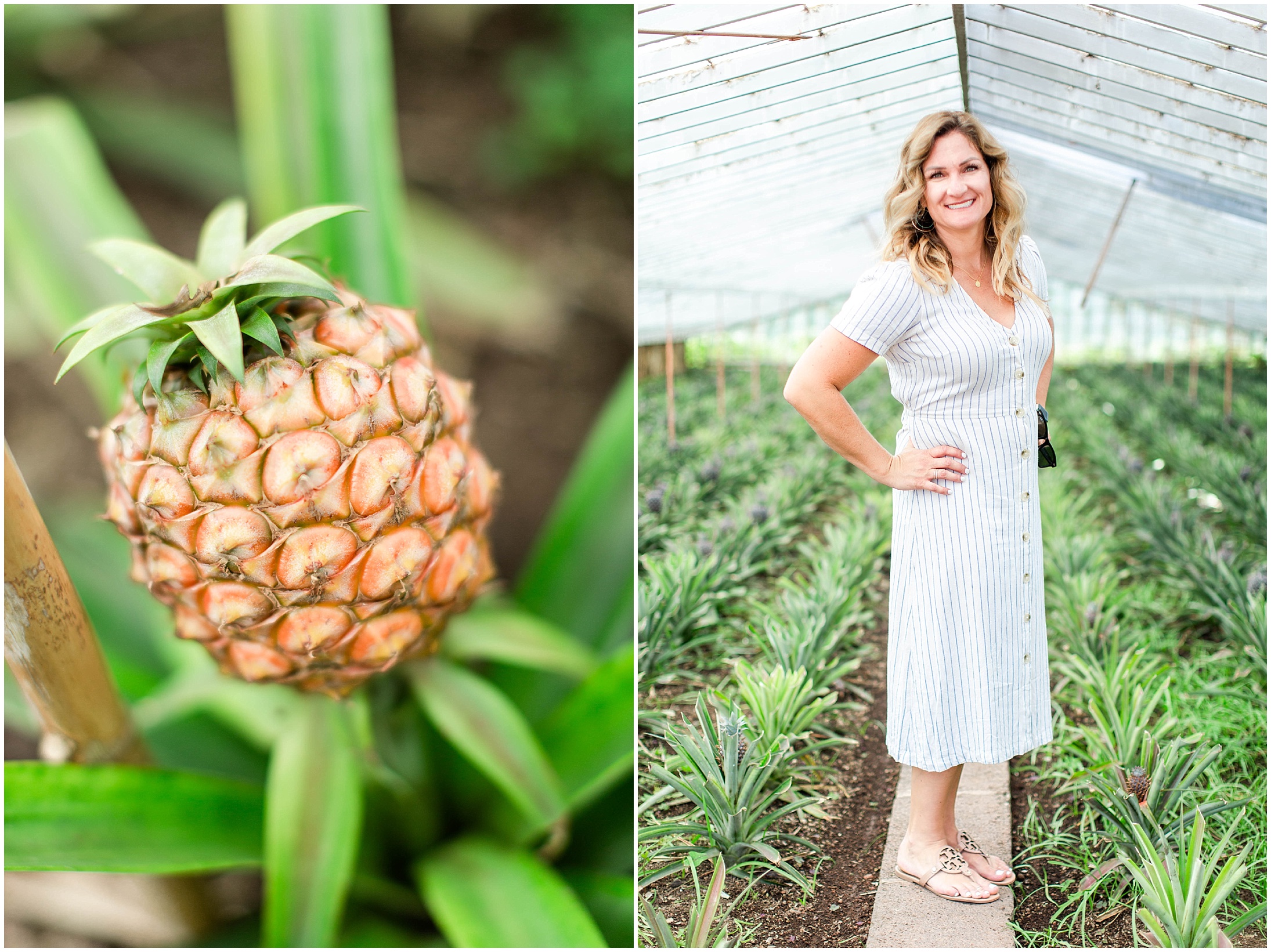
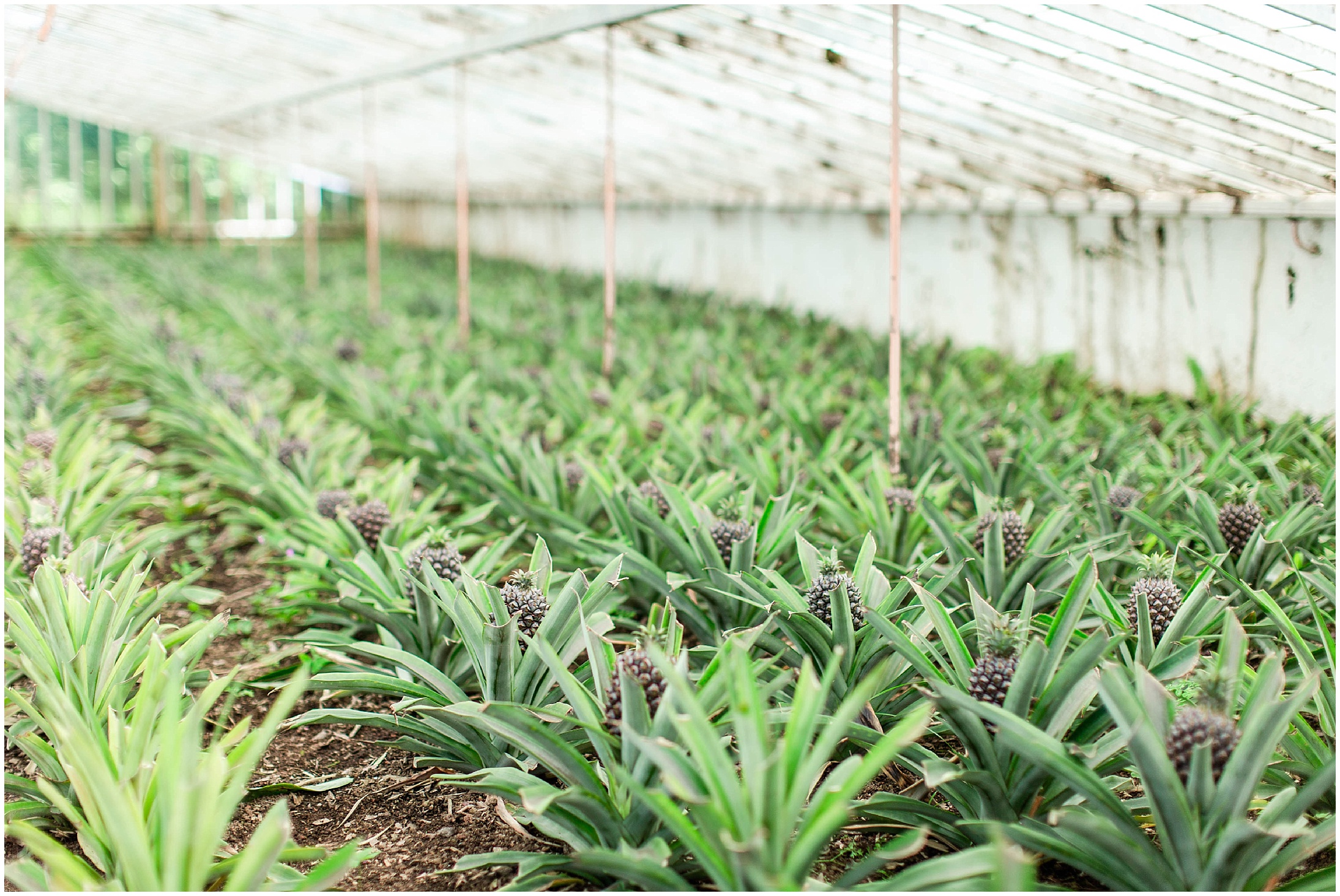
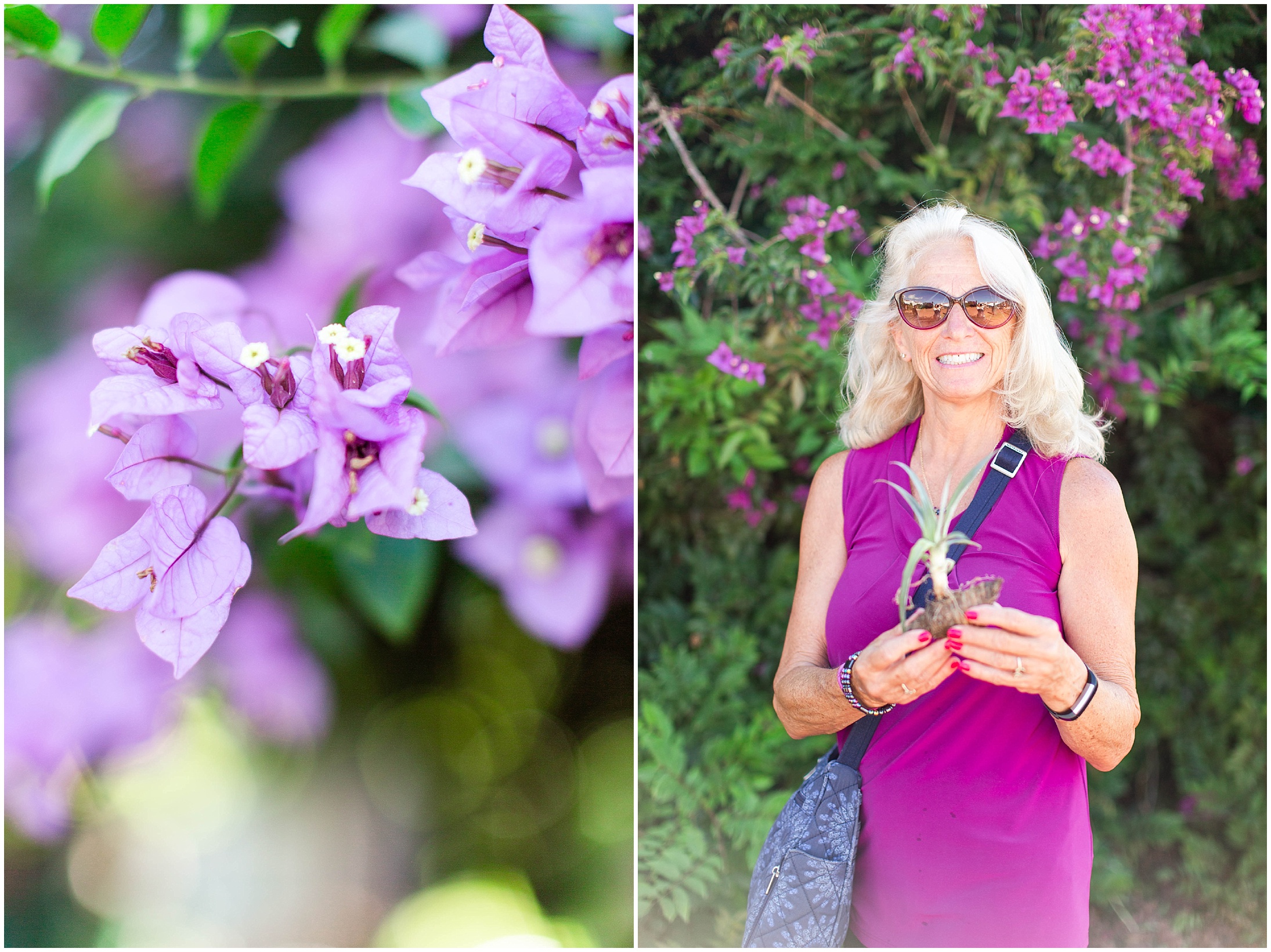
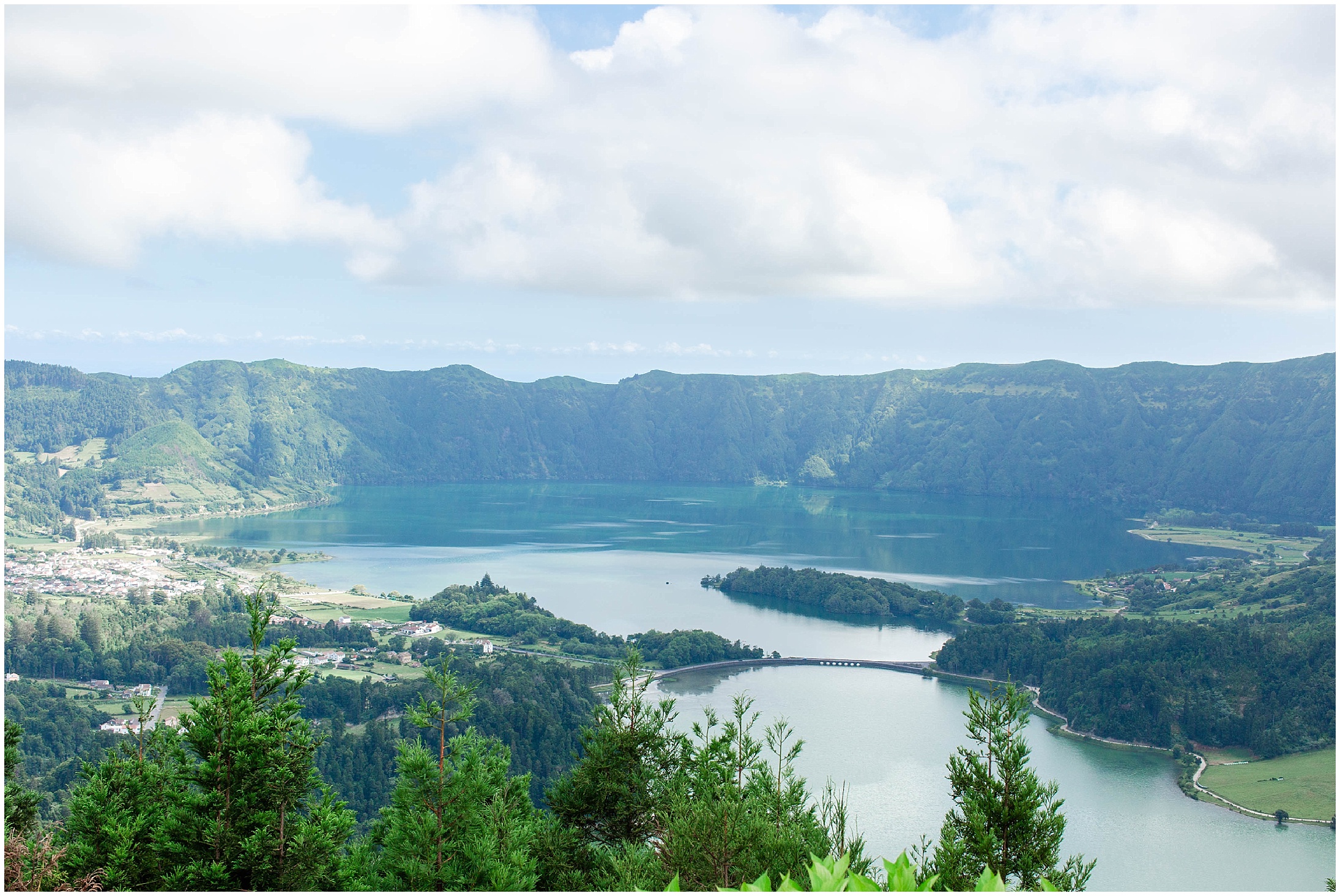
Sete Cidades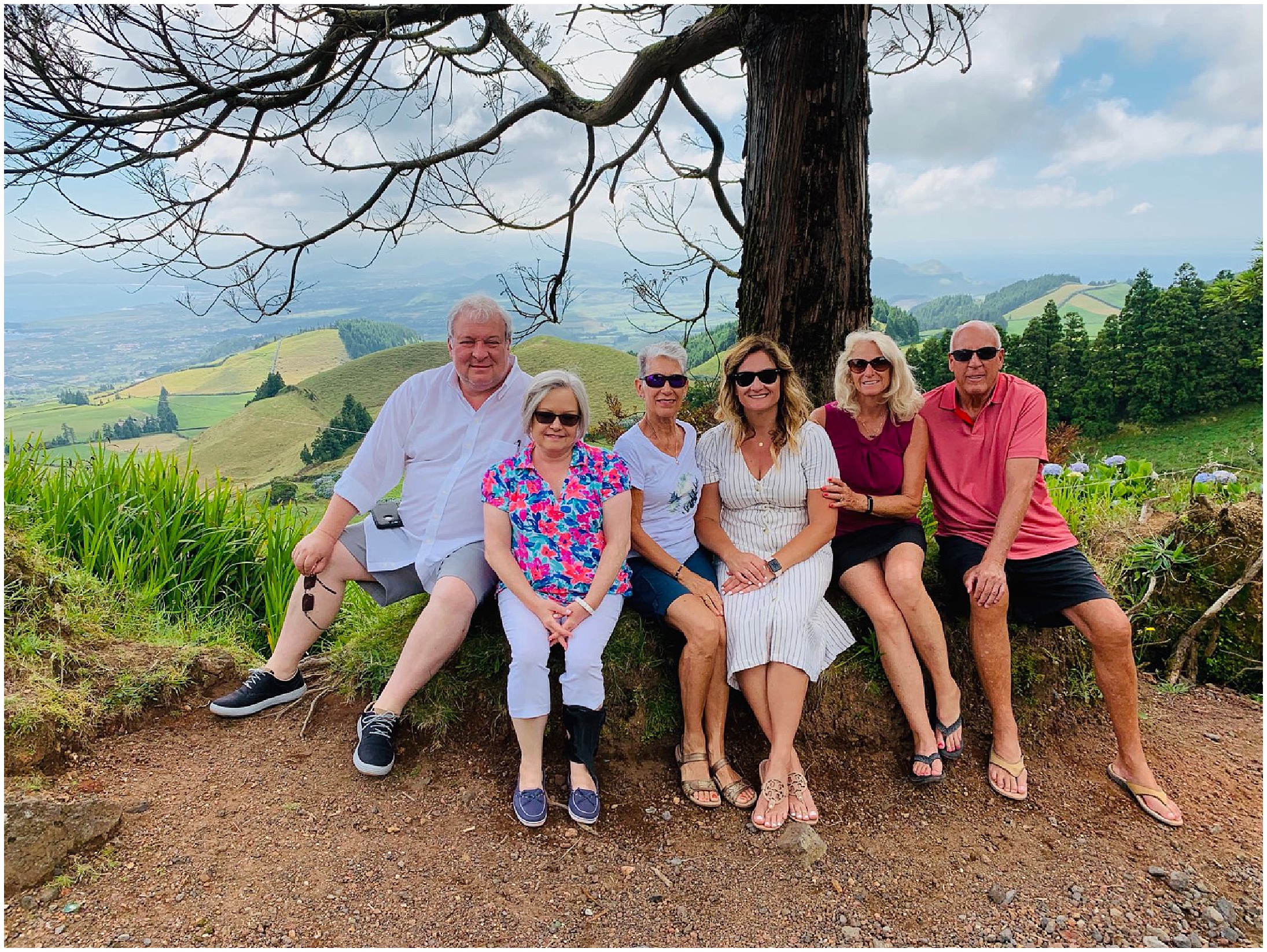
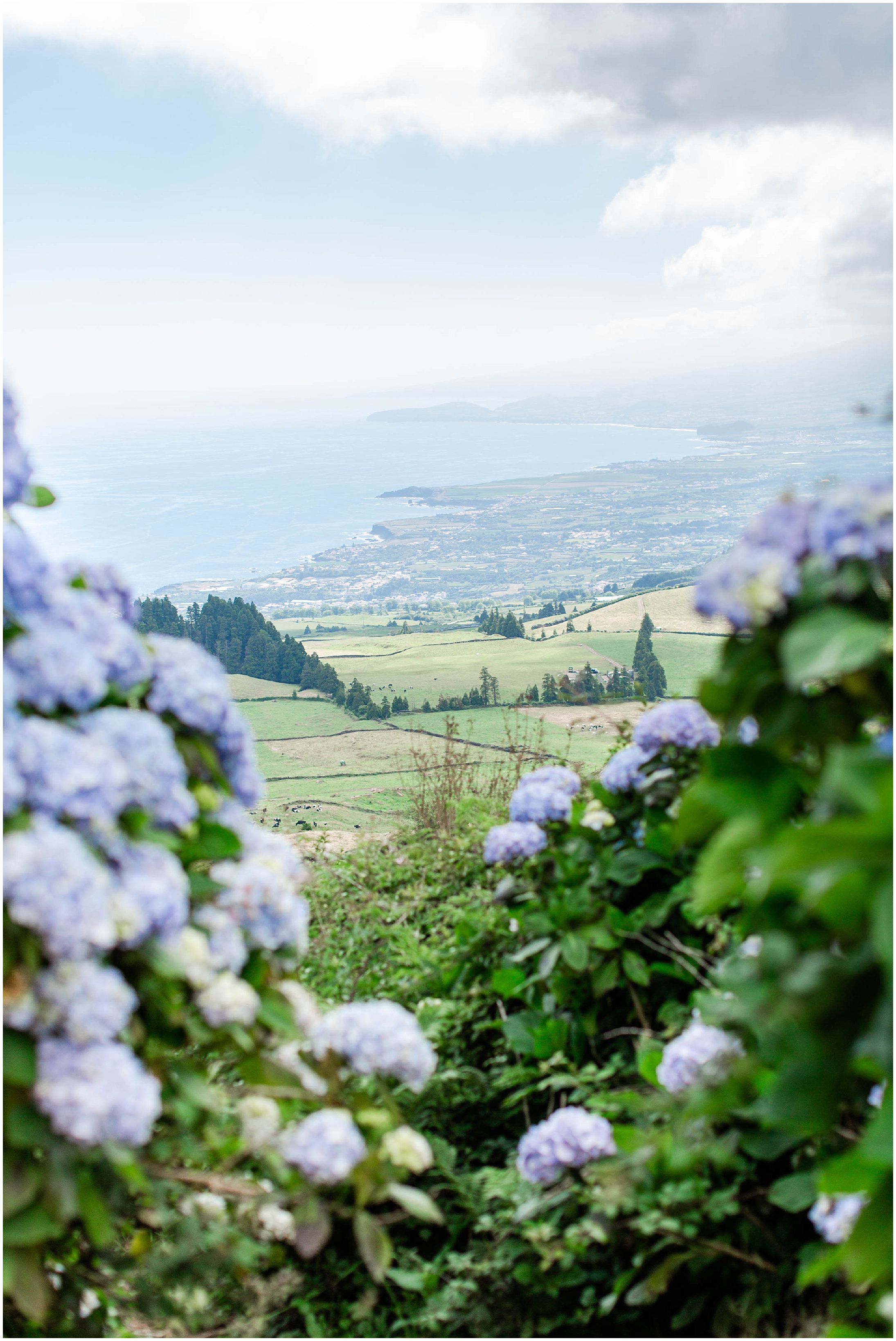
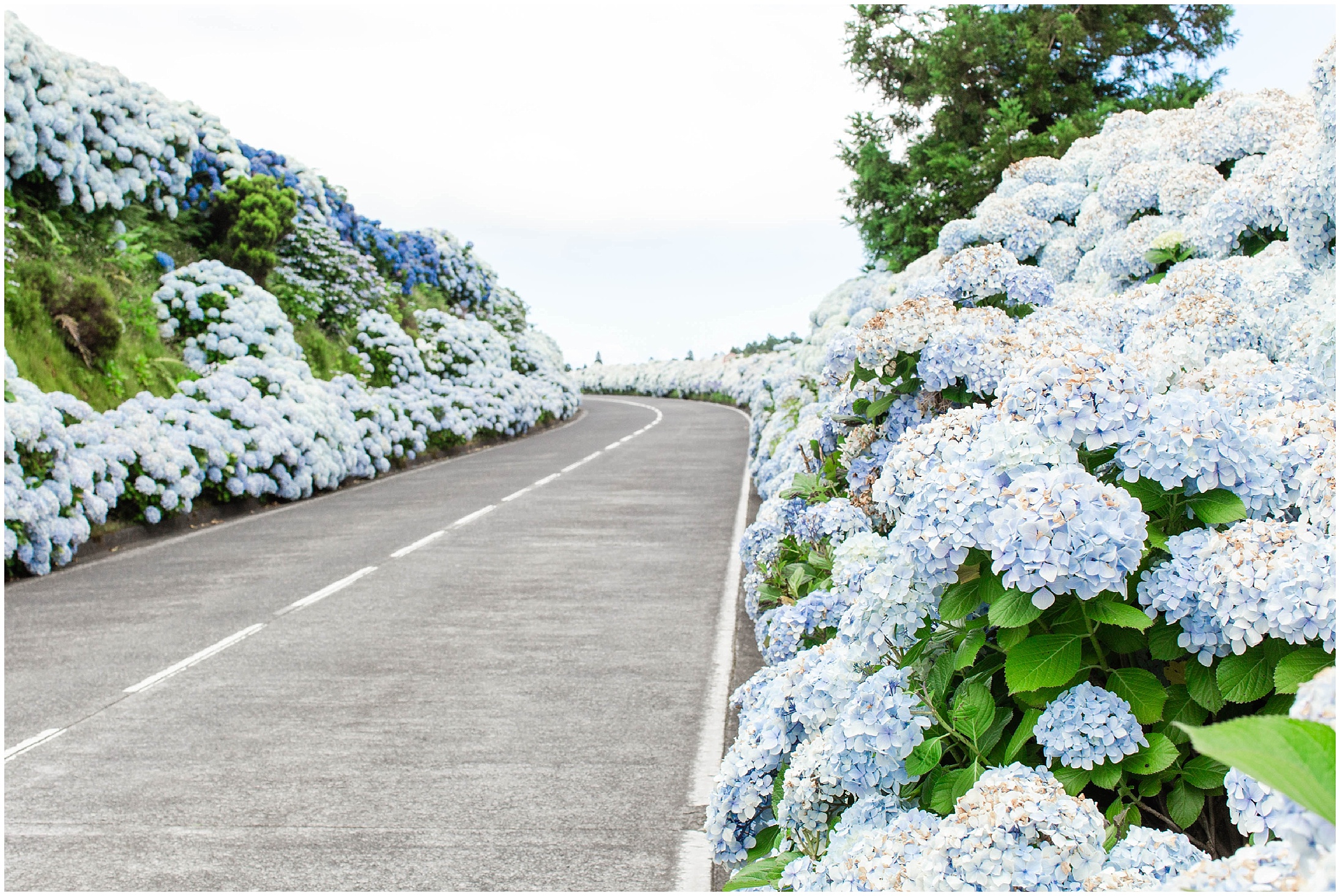
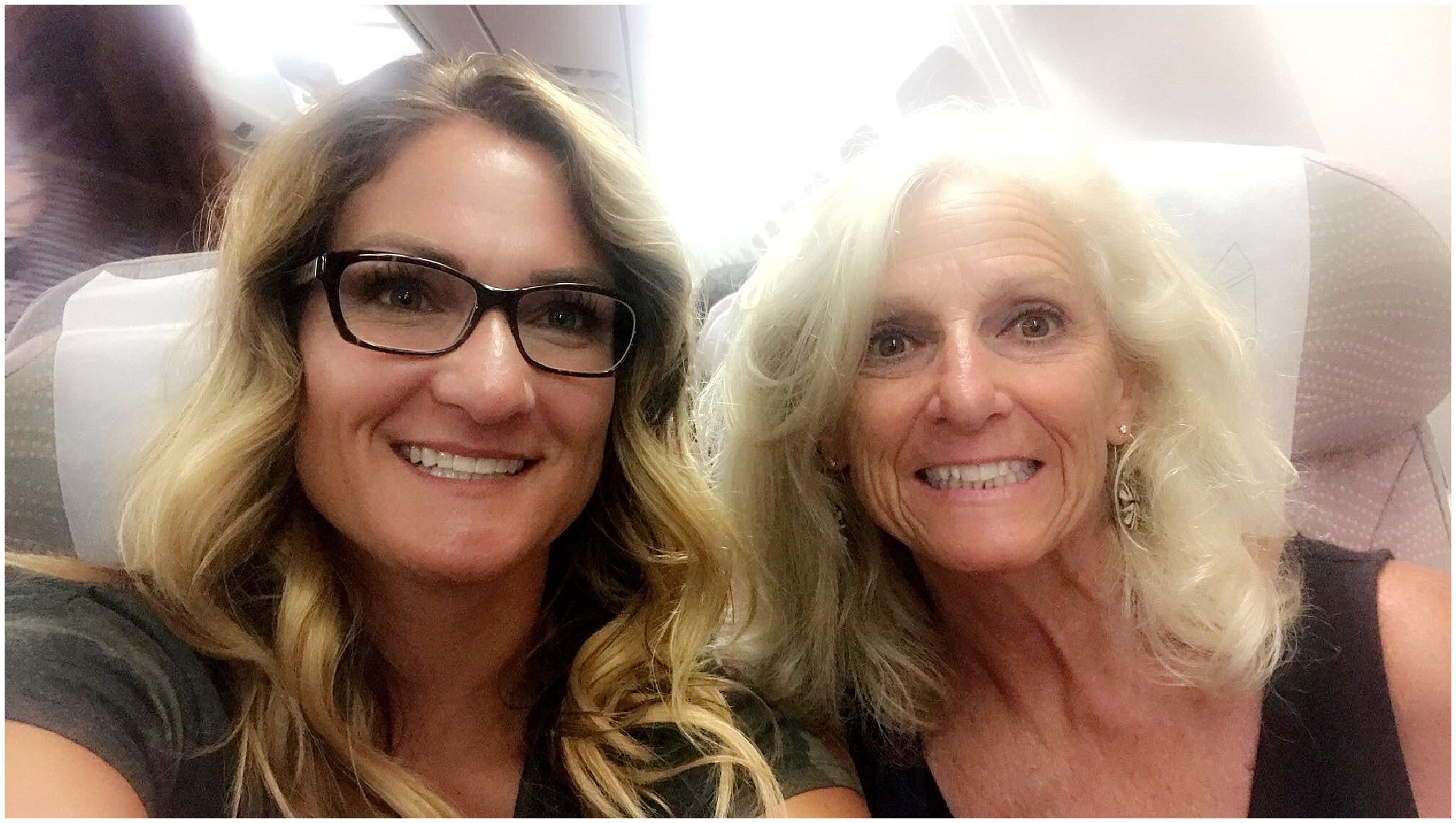
Finally flying home after six hours worth of delays!
If you would like to view more personal blog posts, please click here.